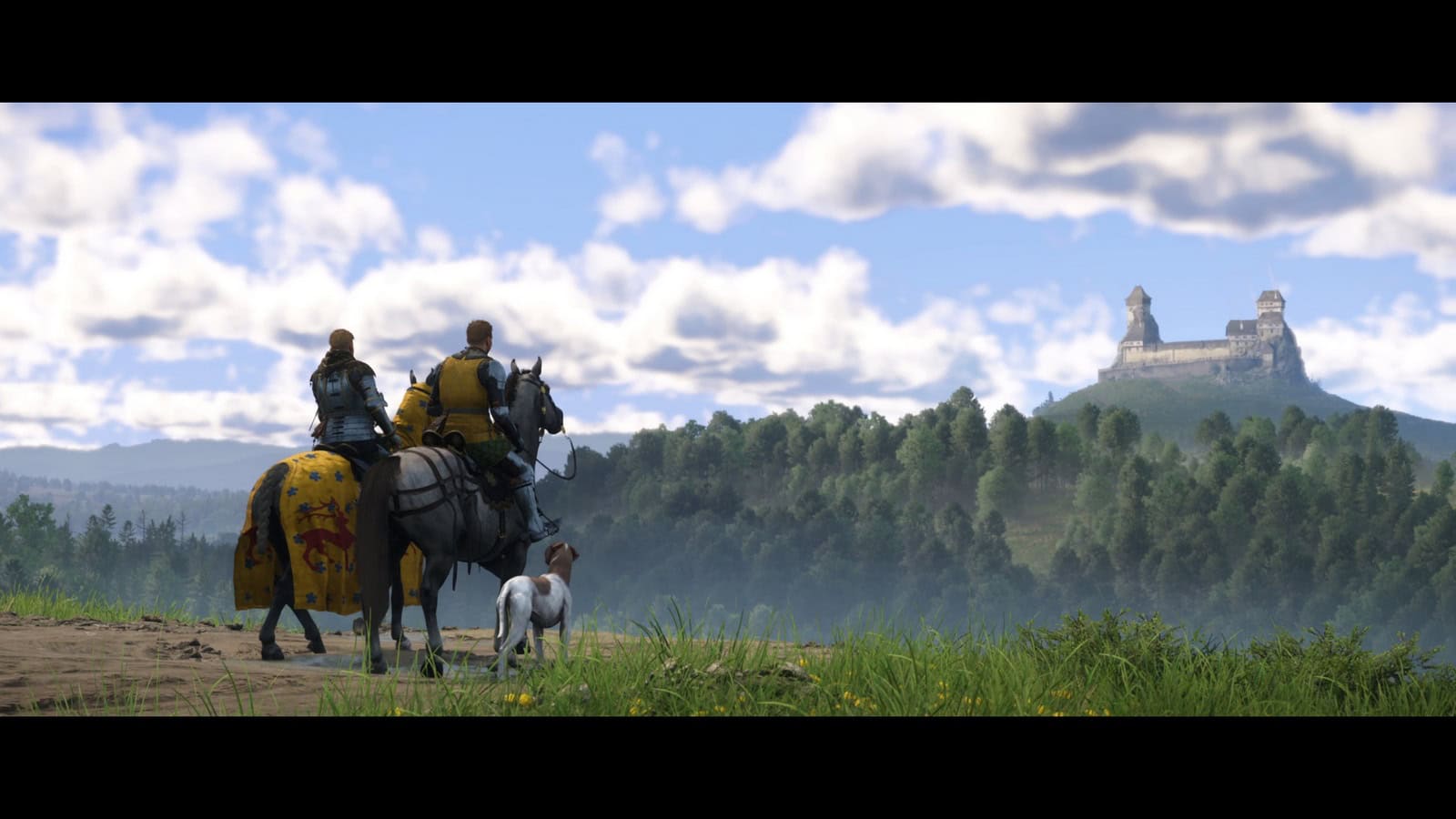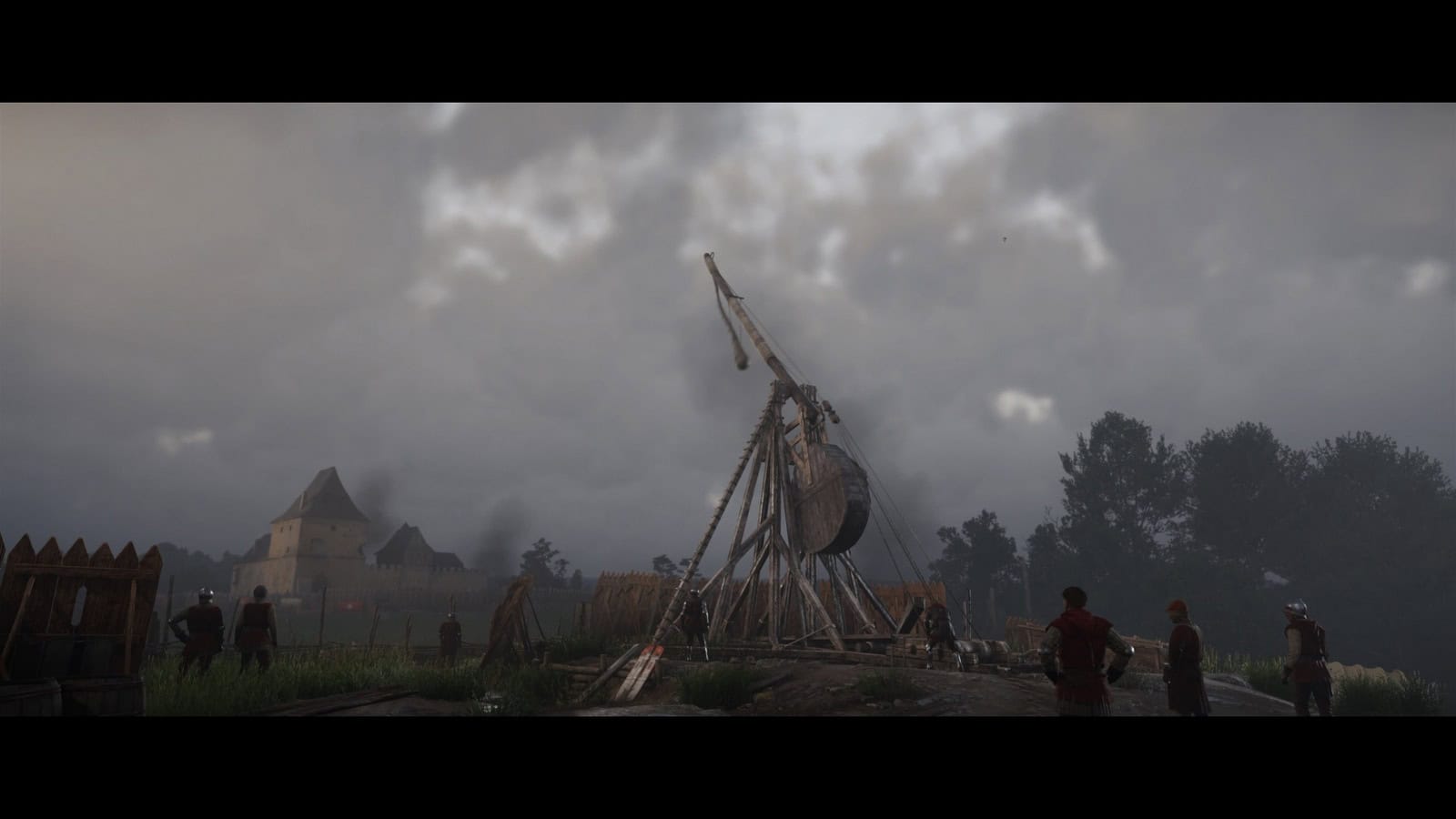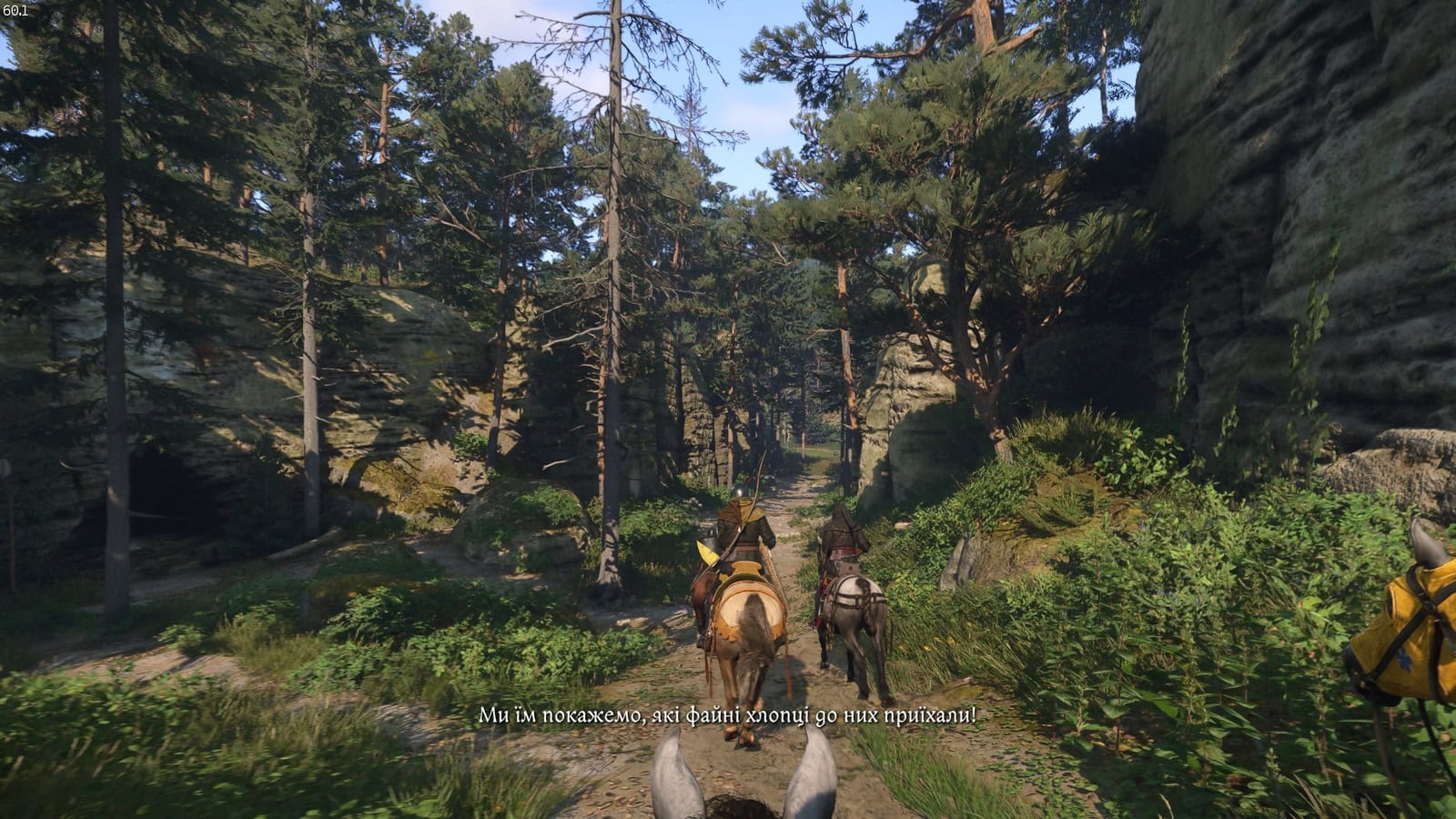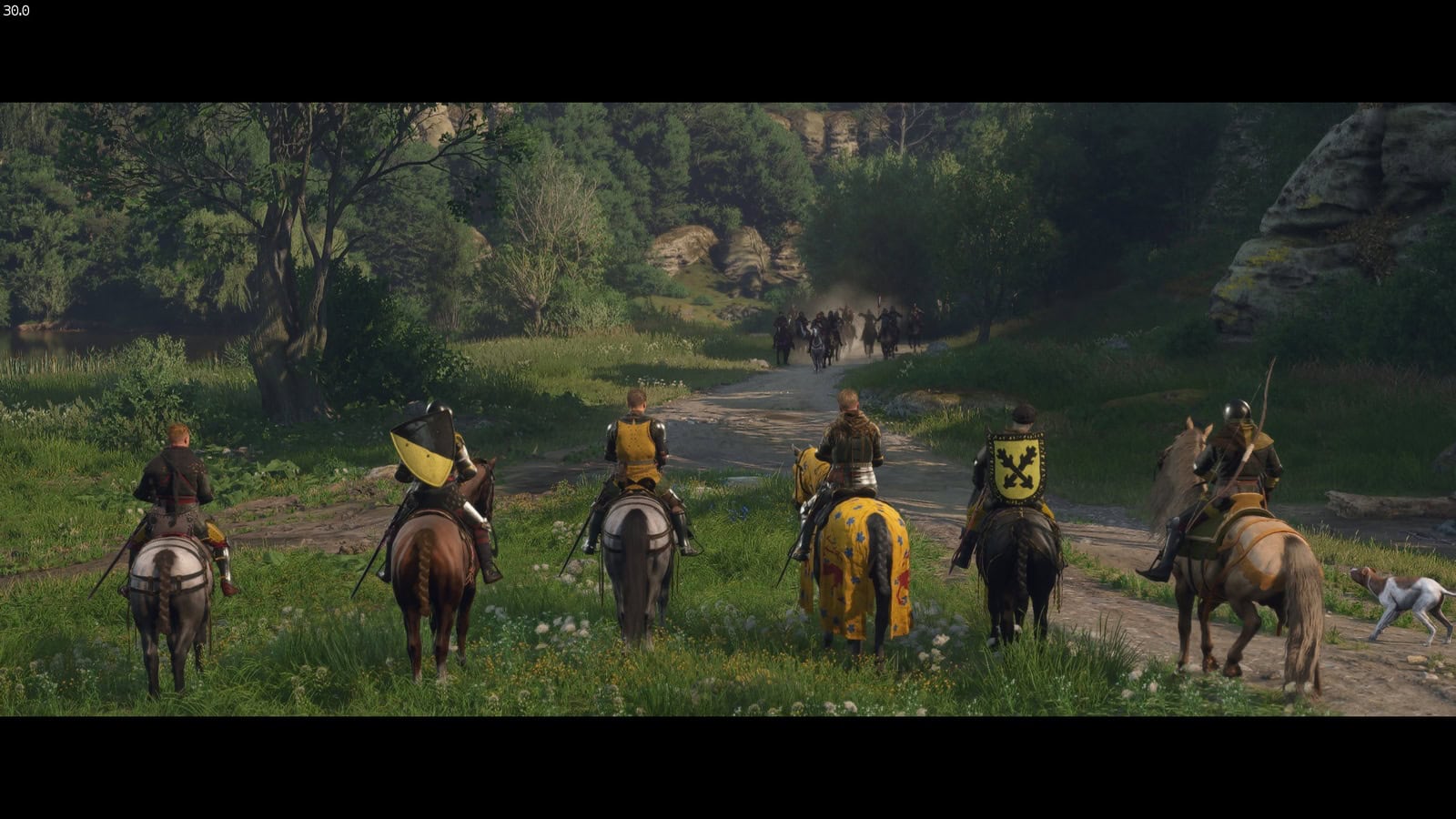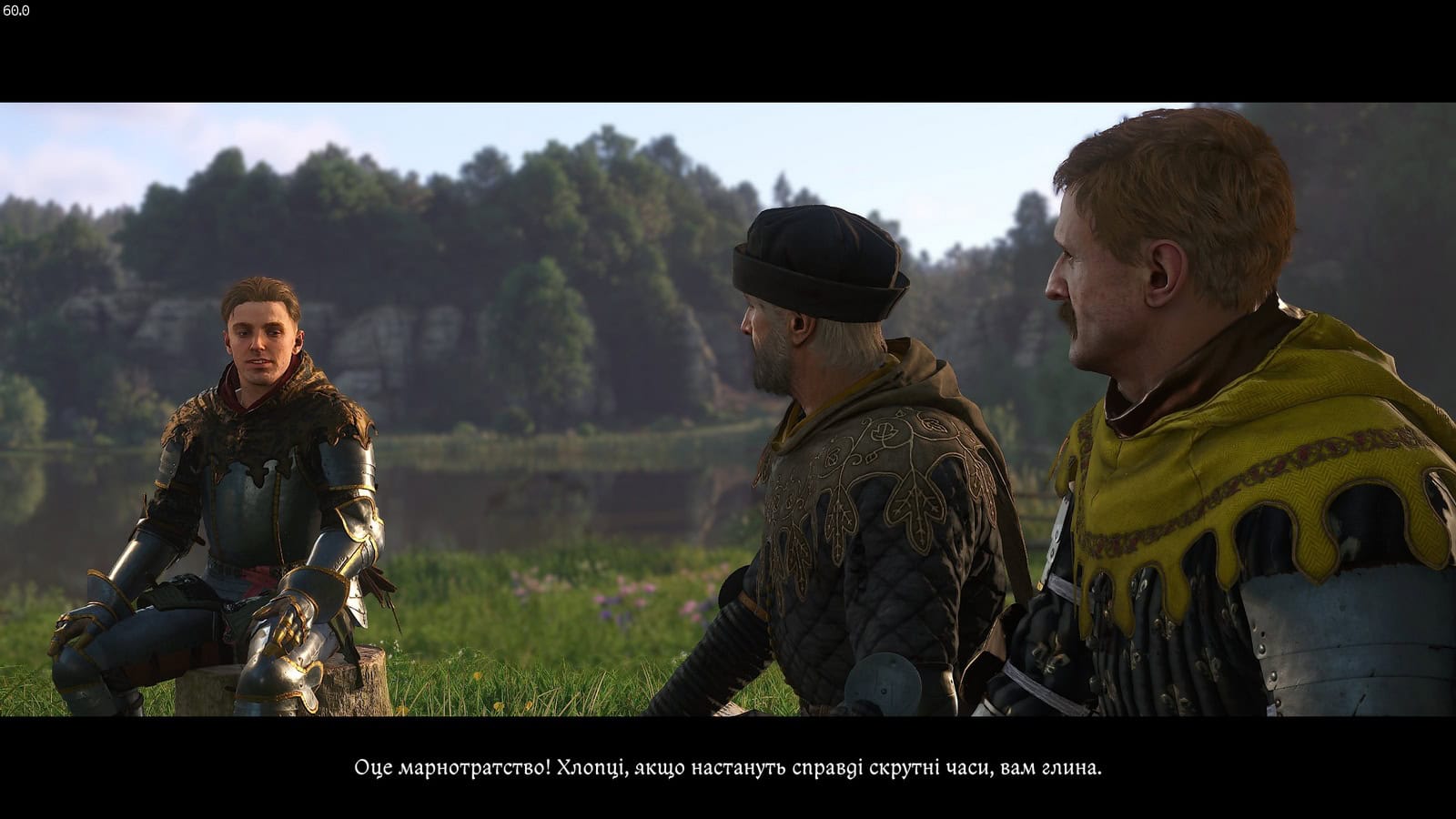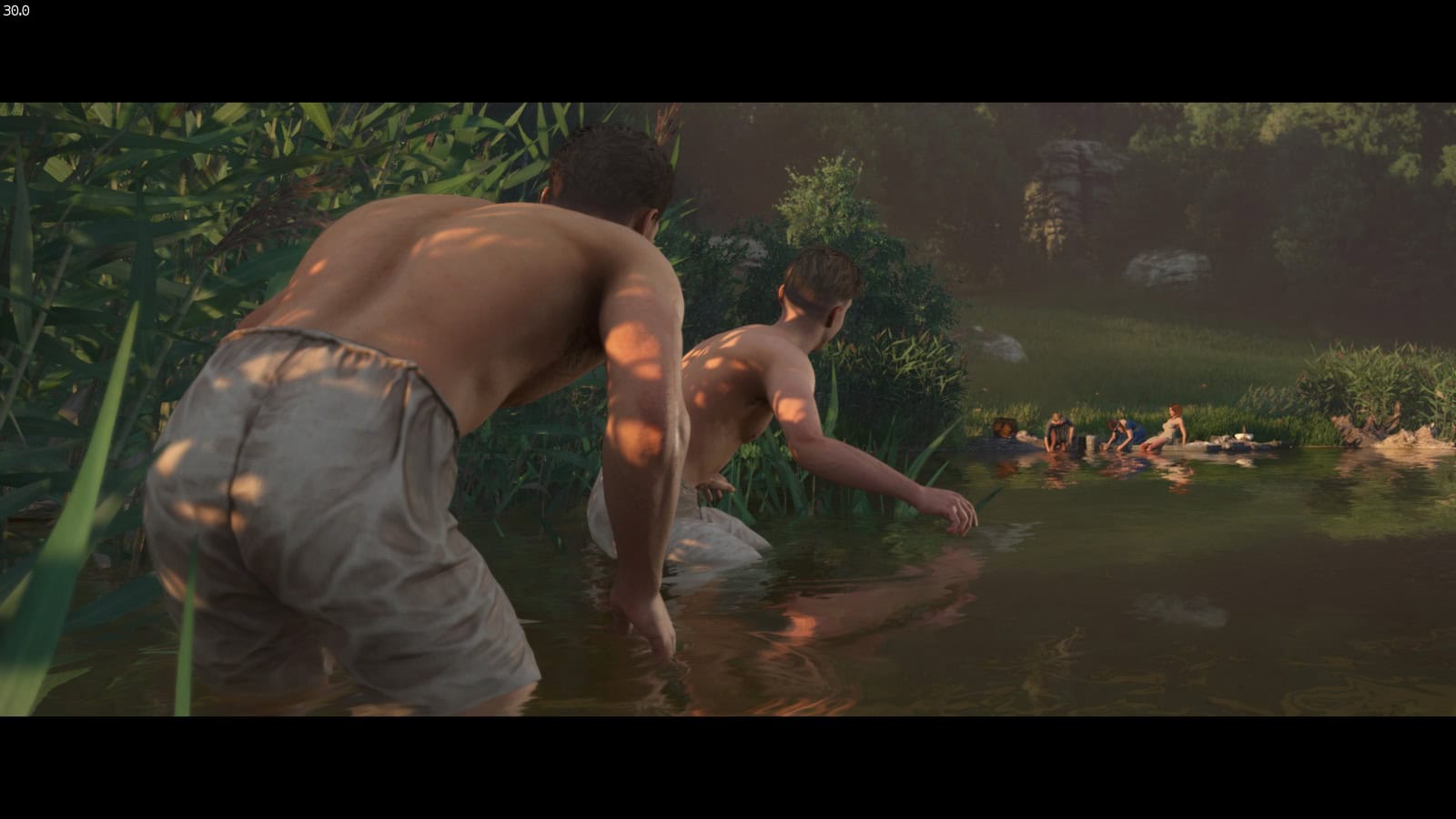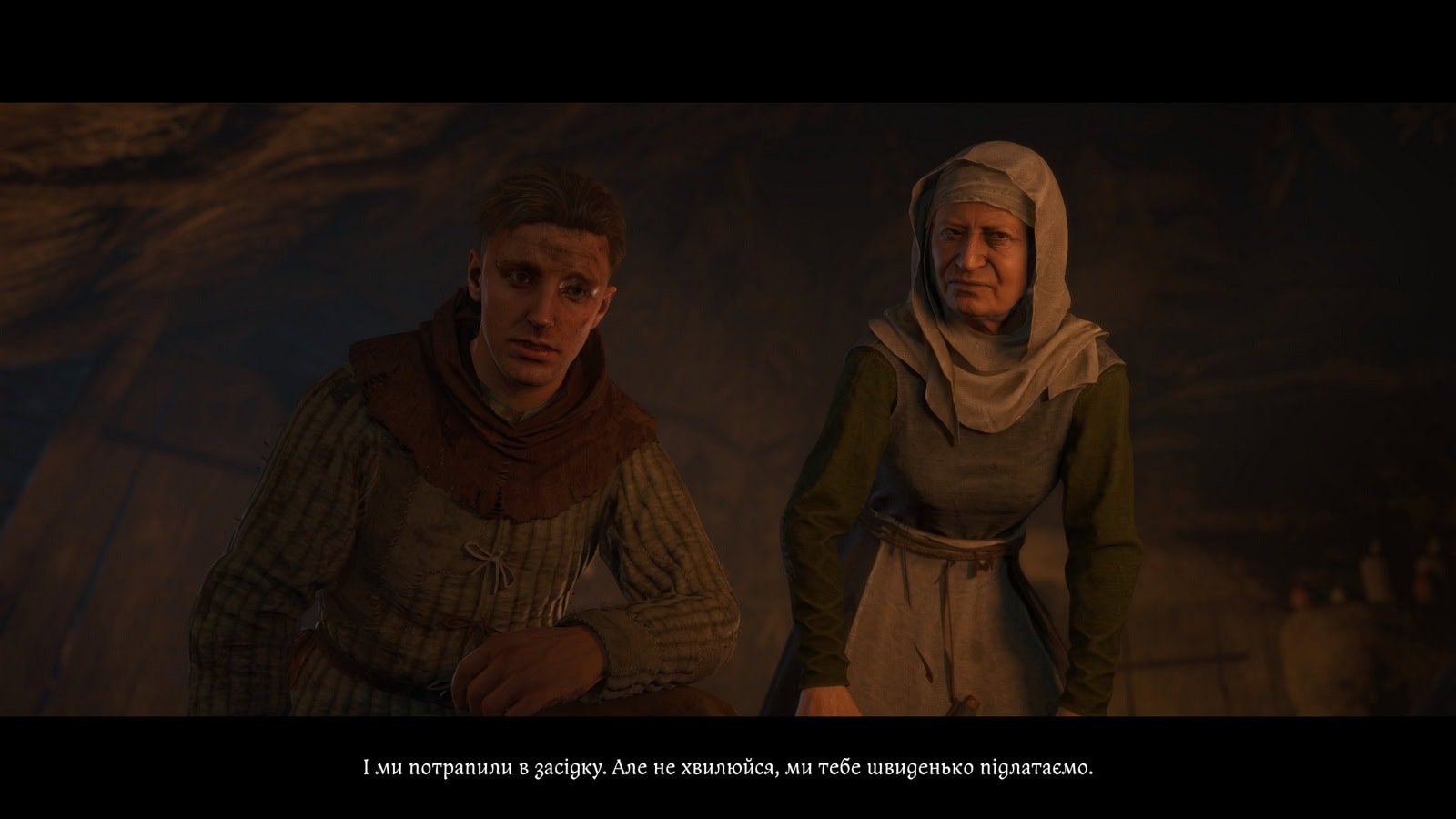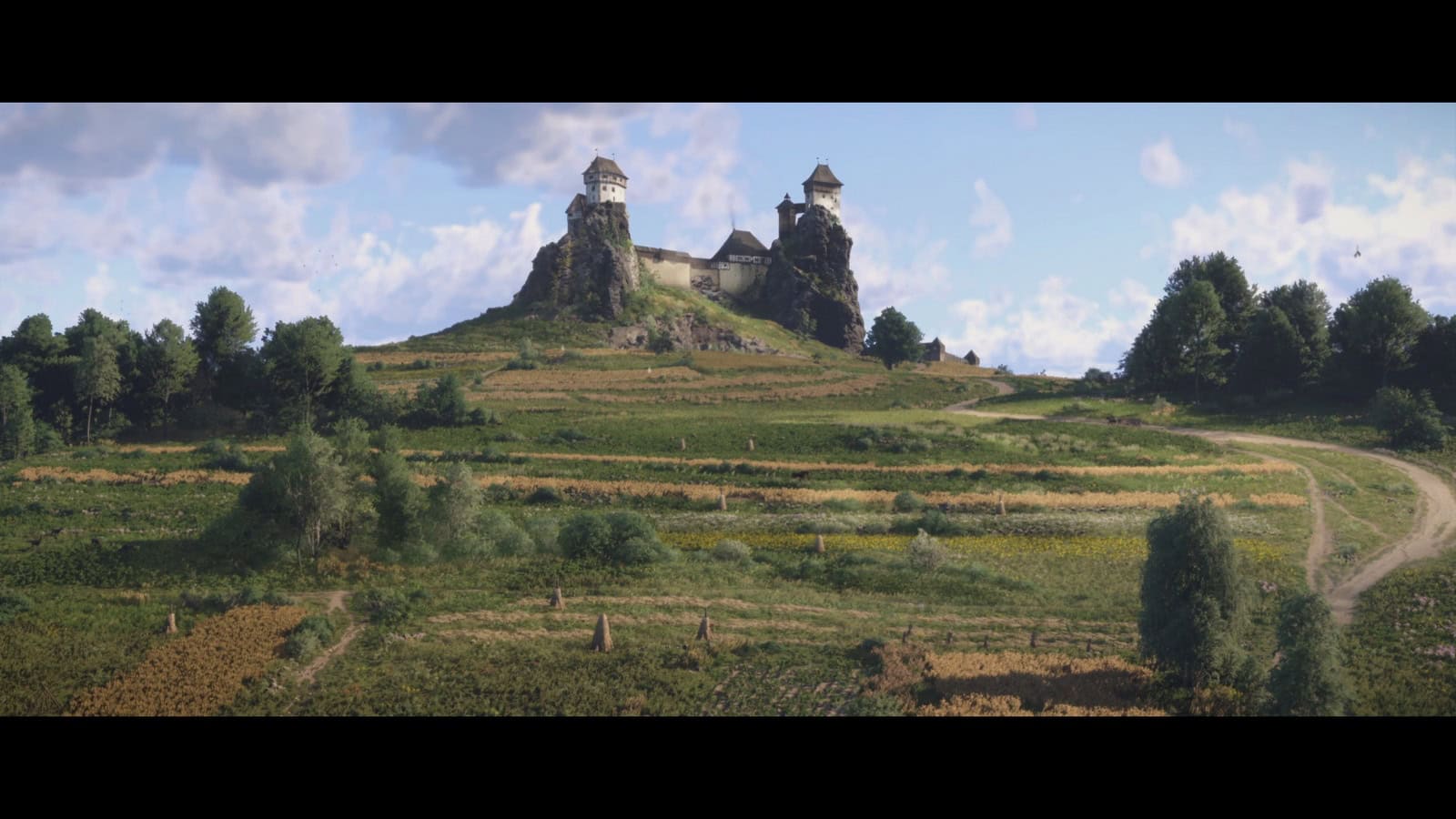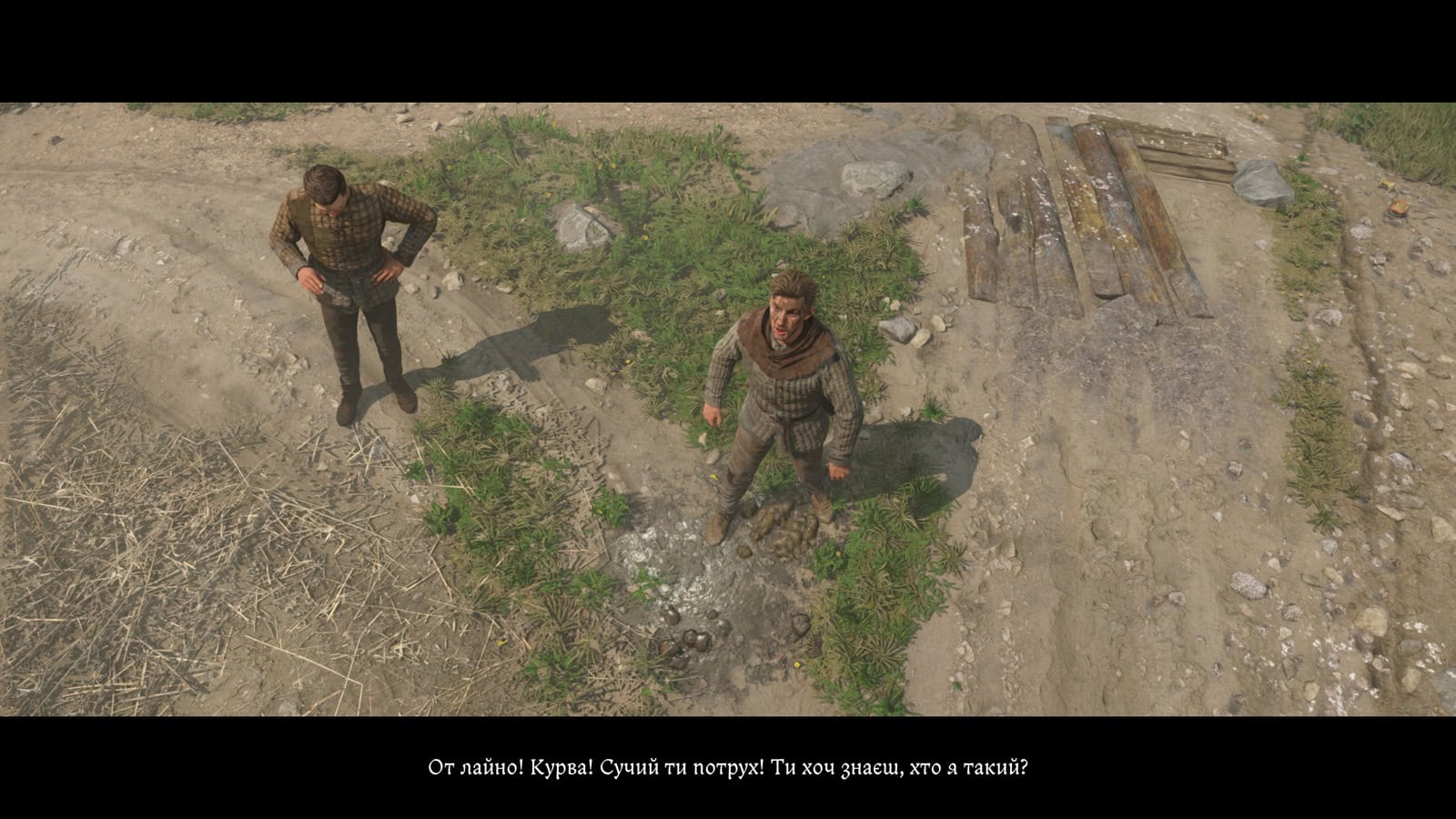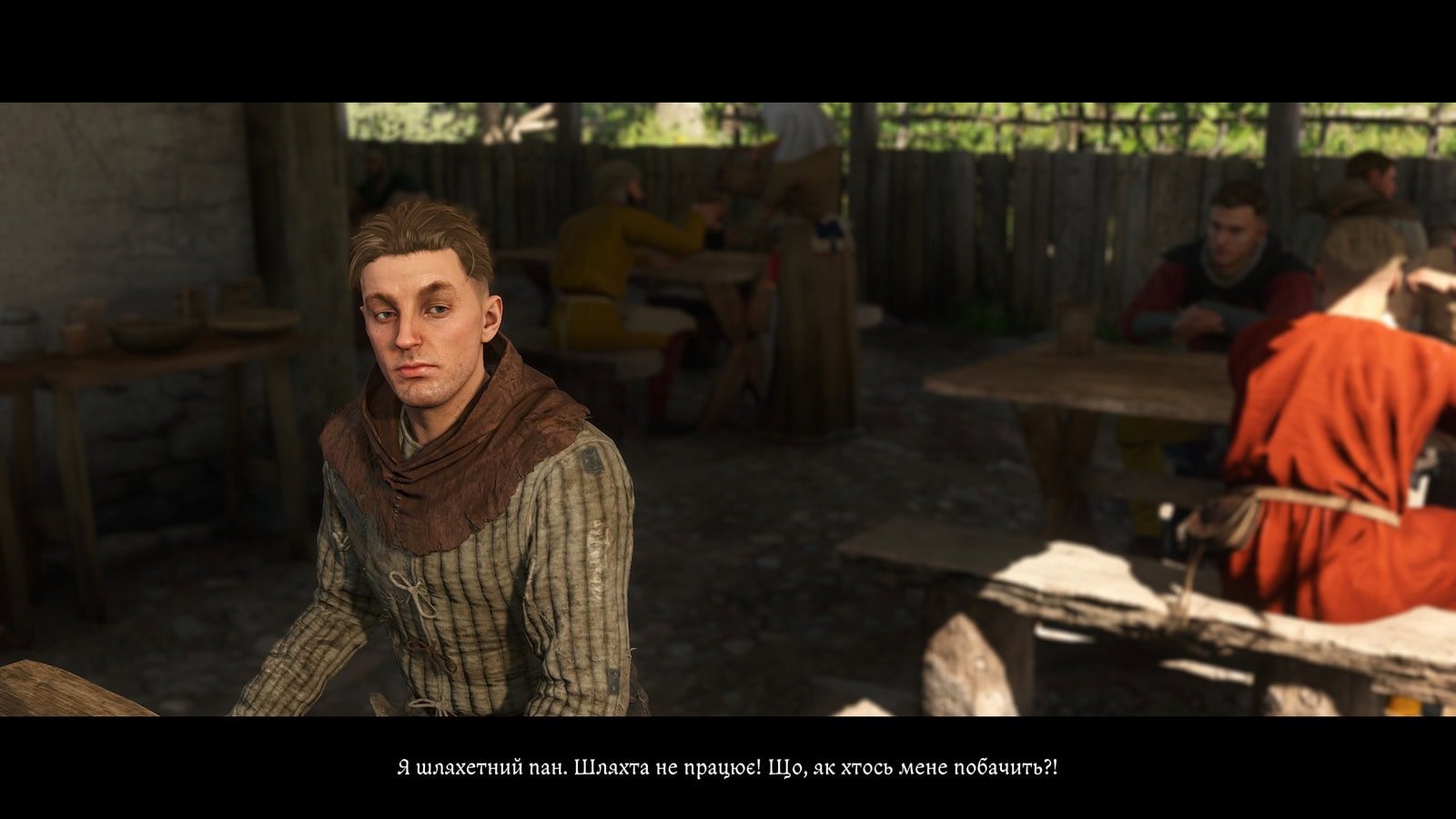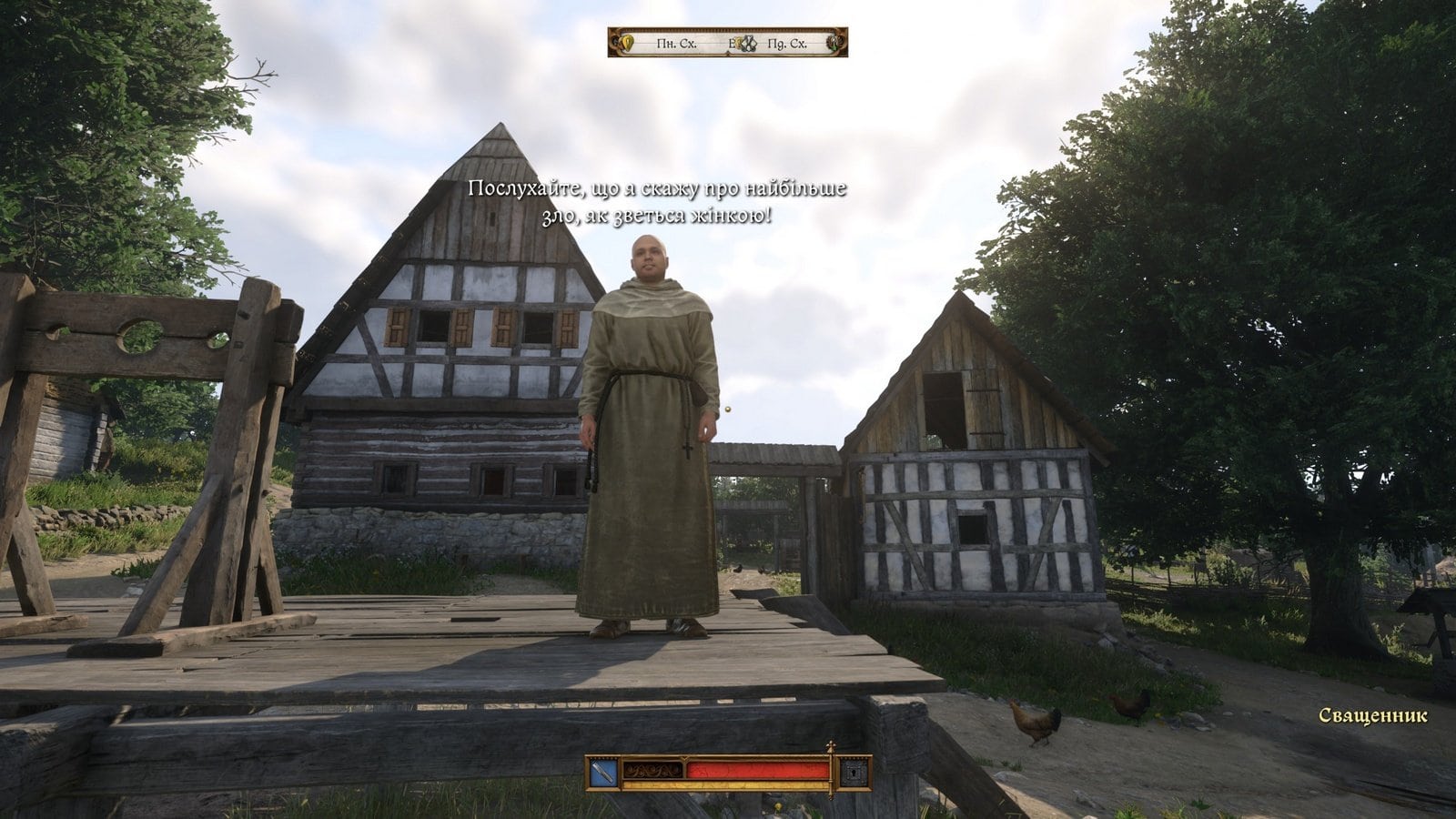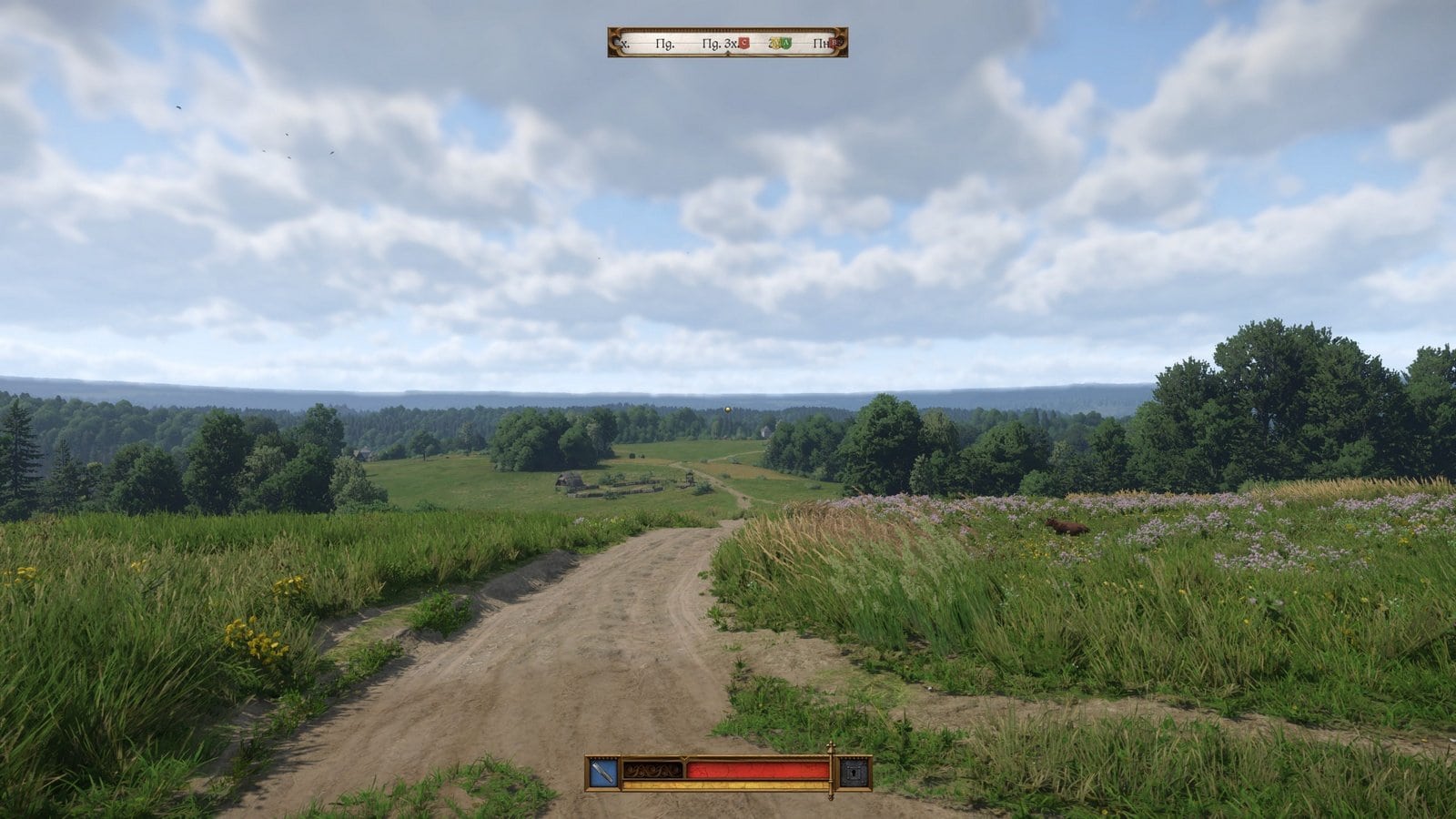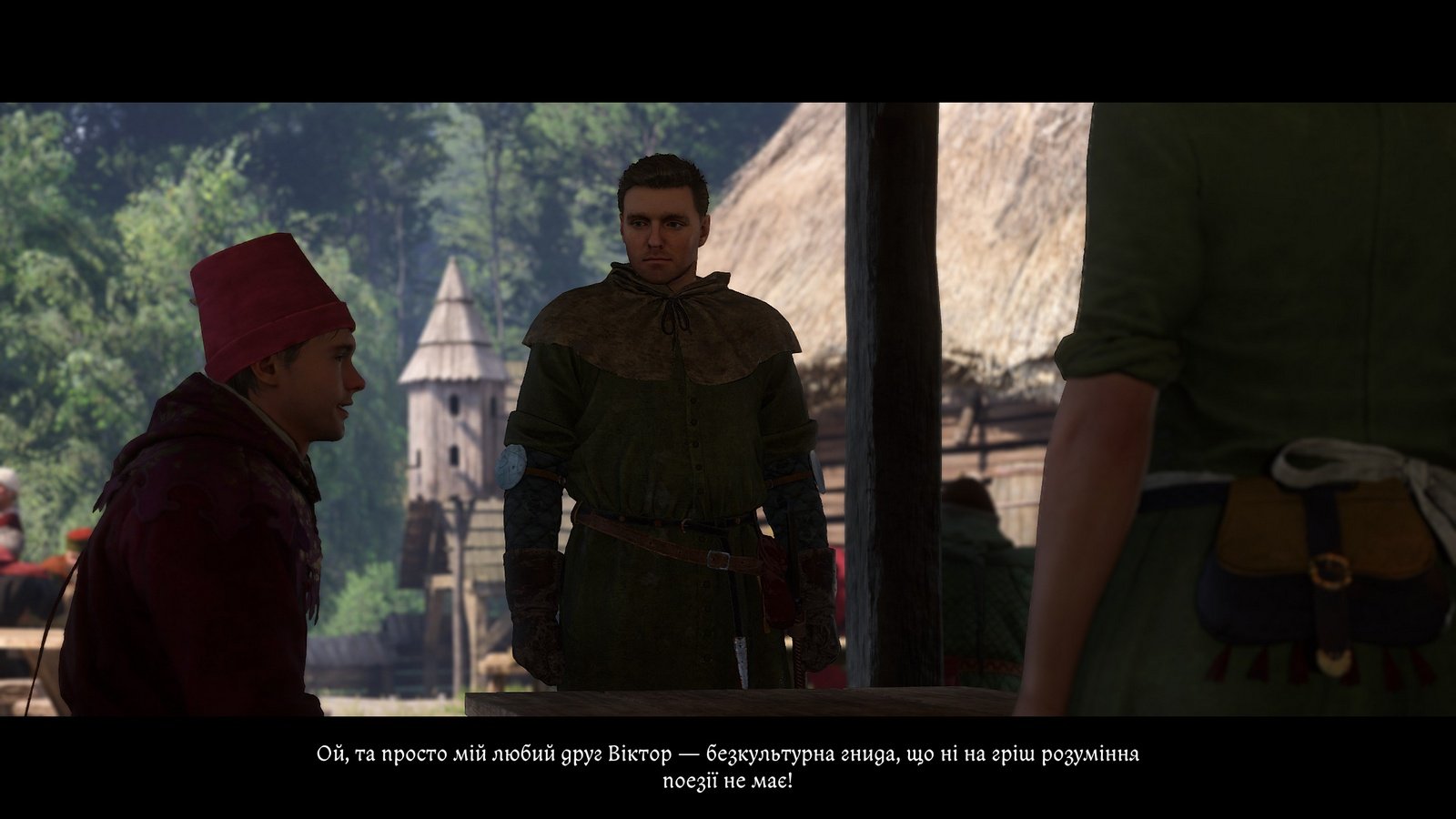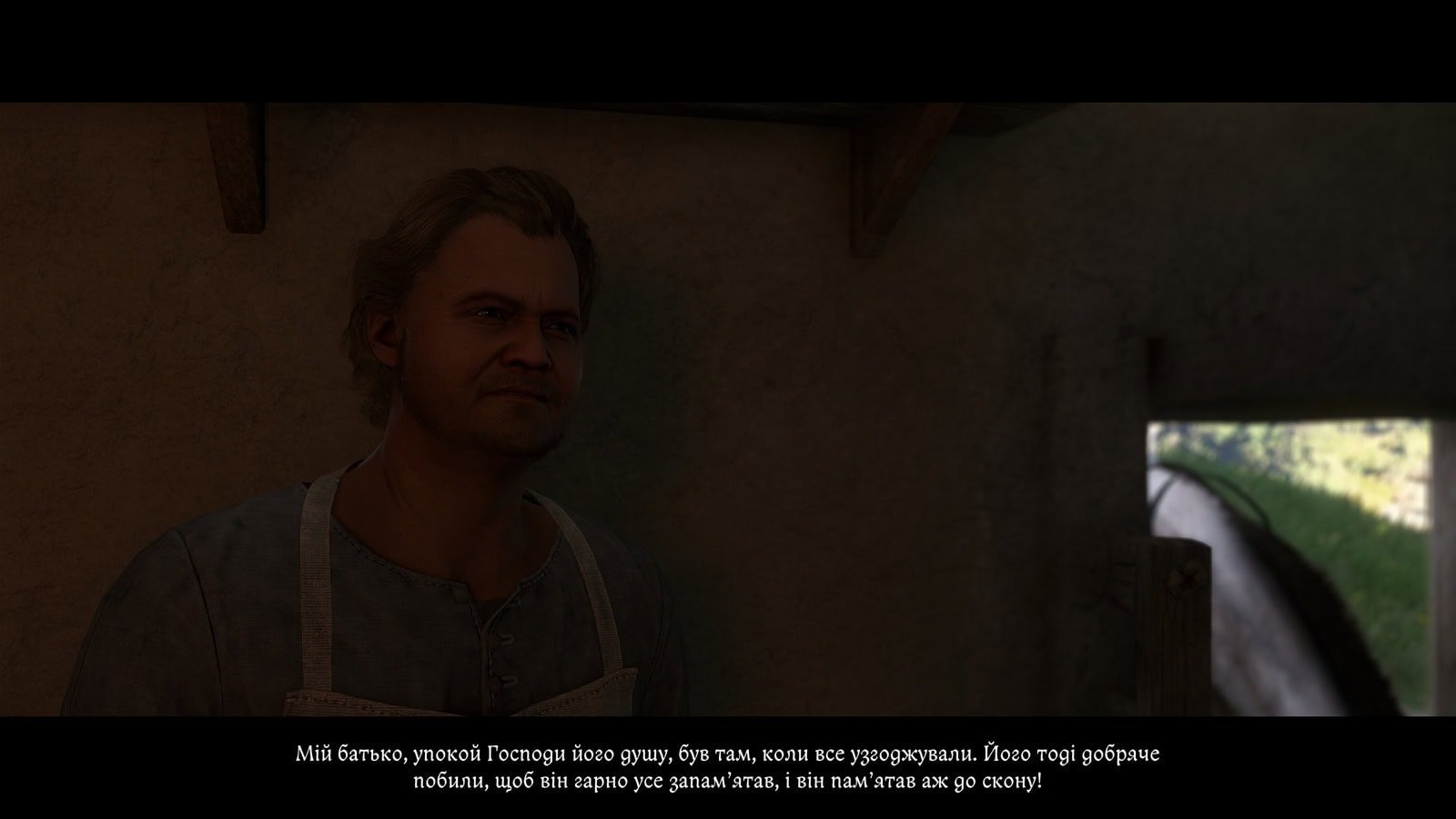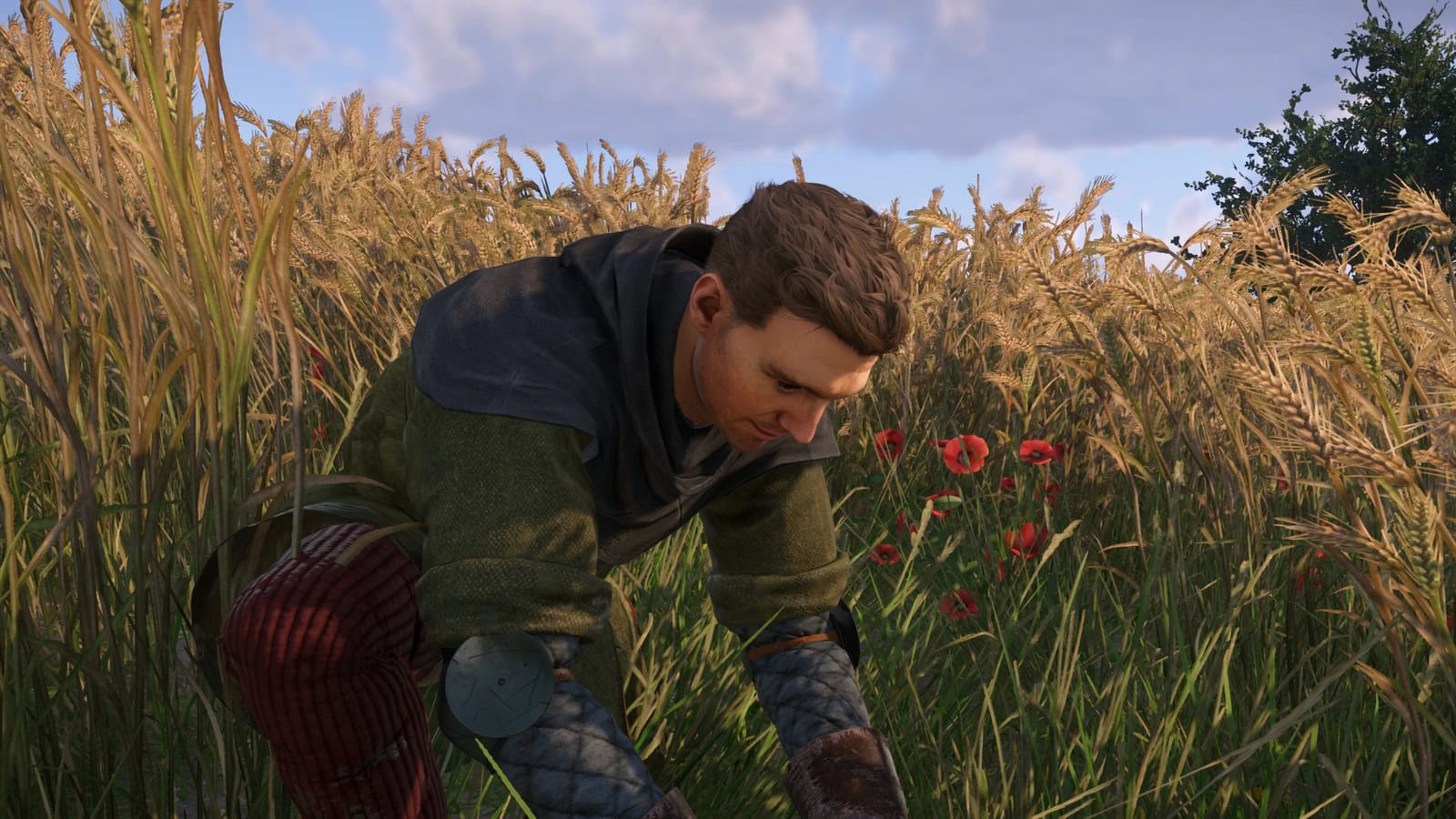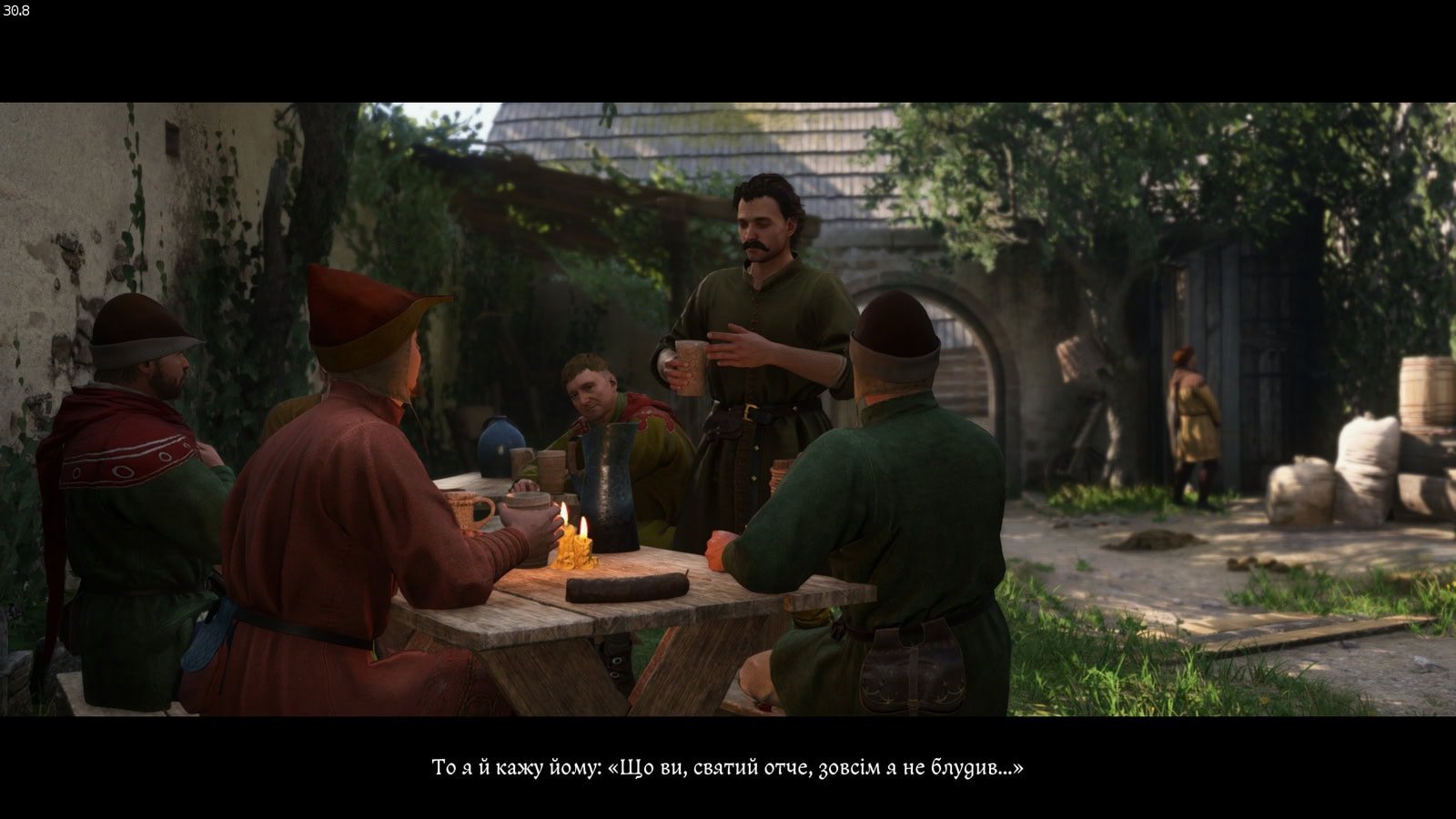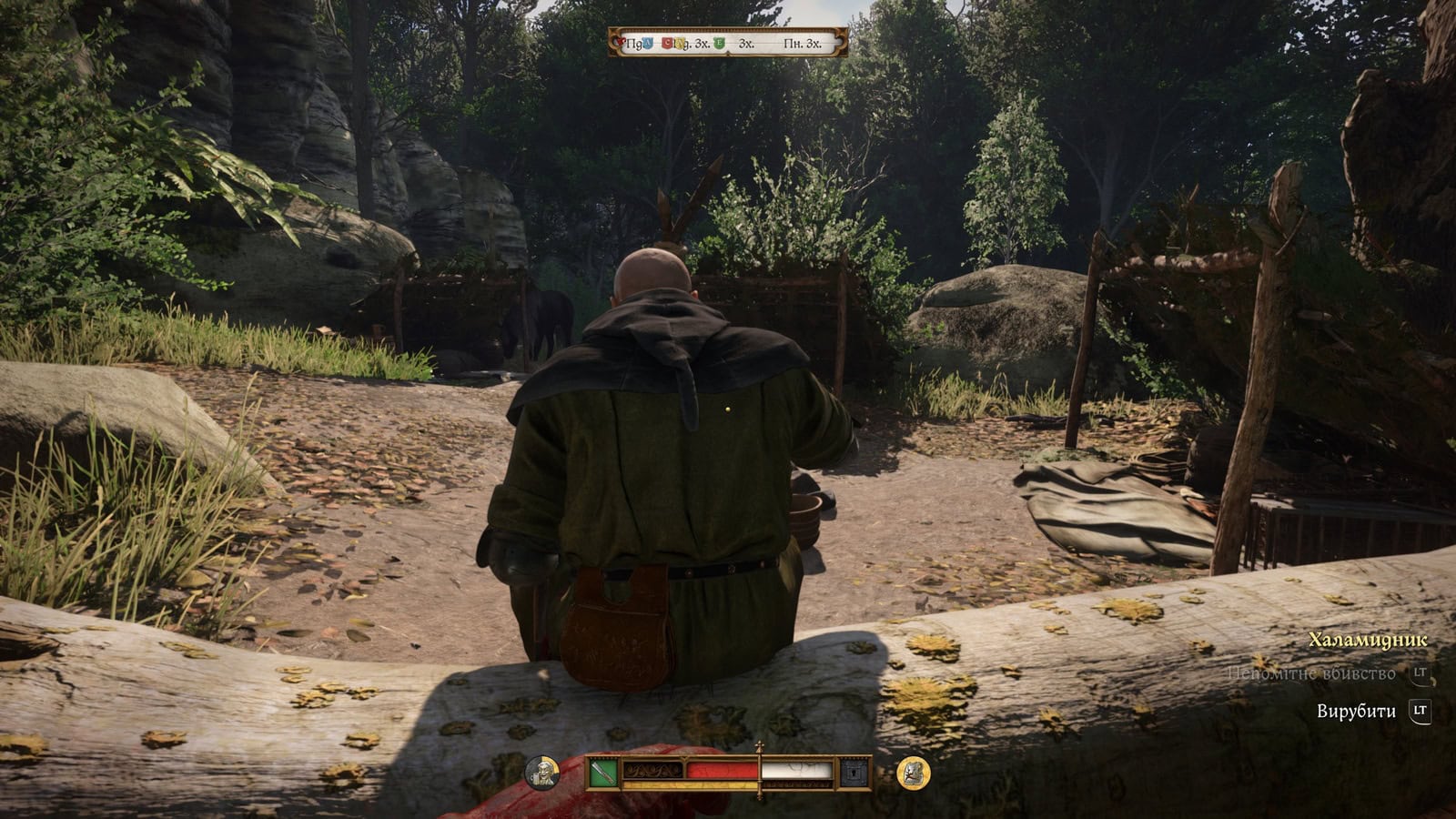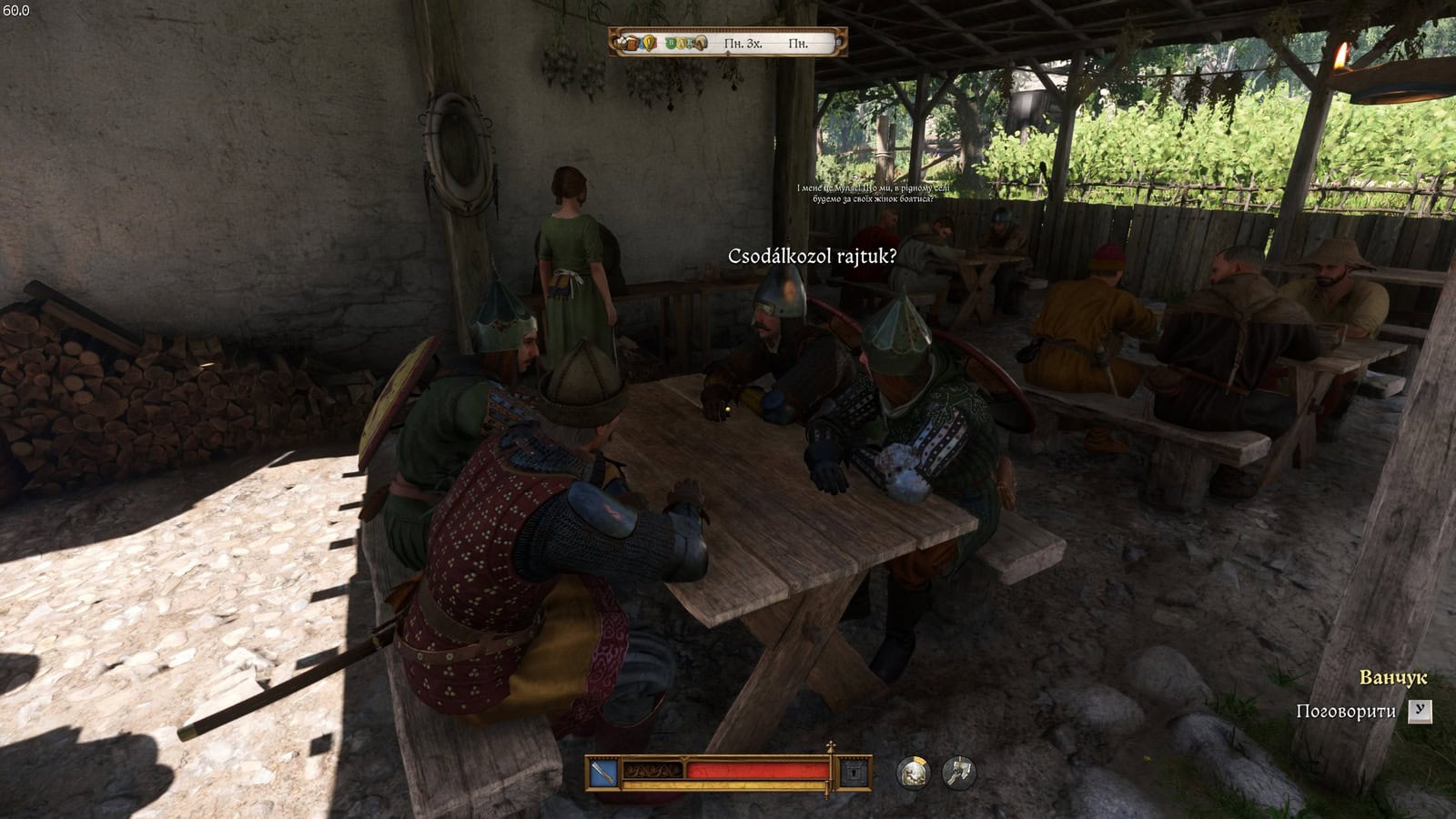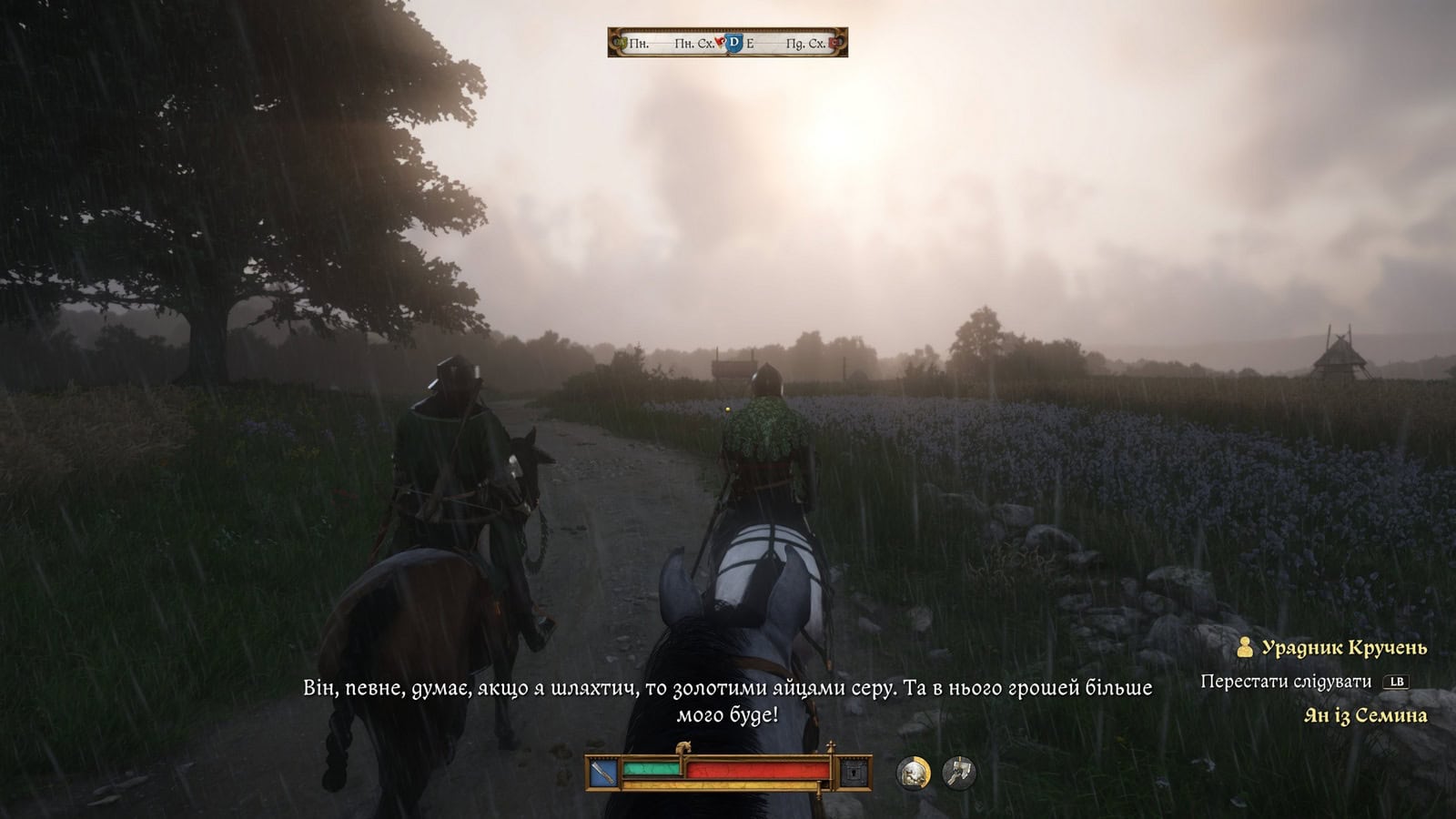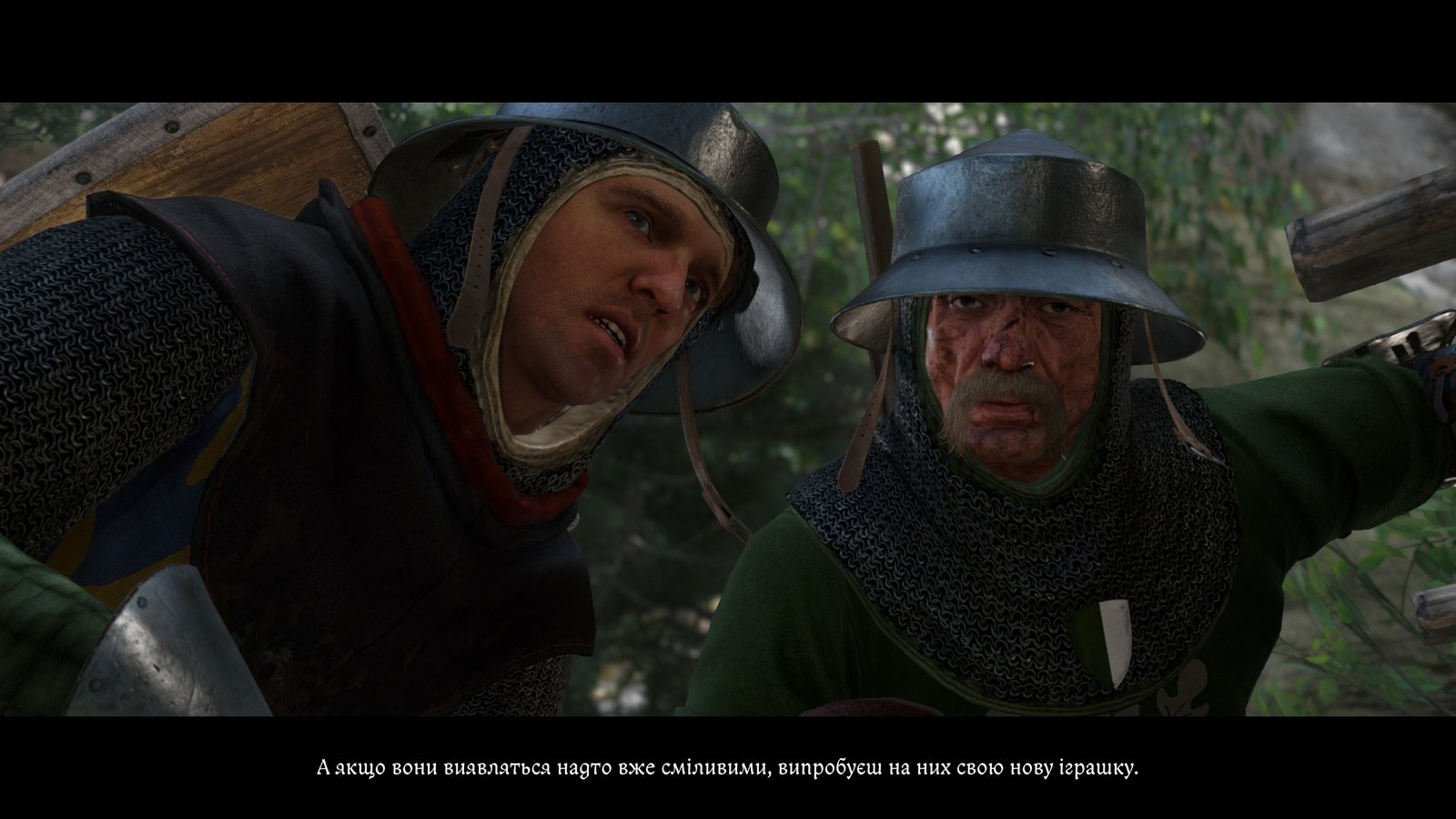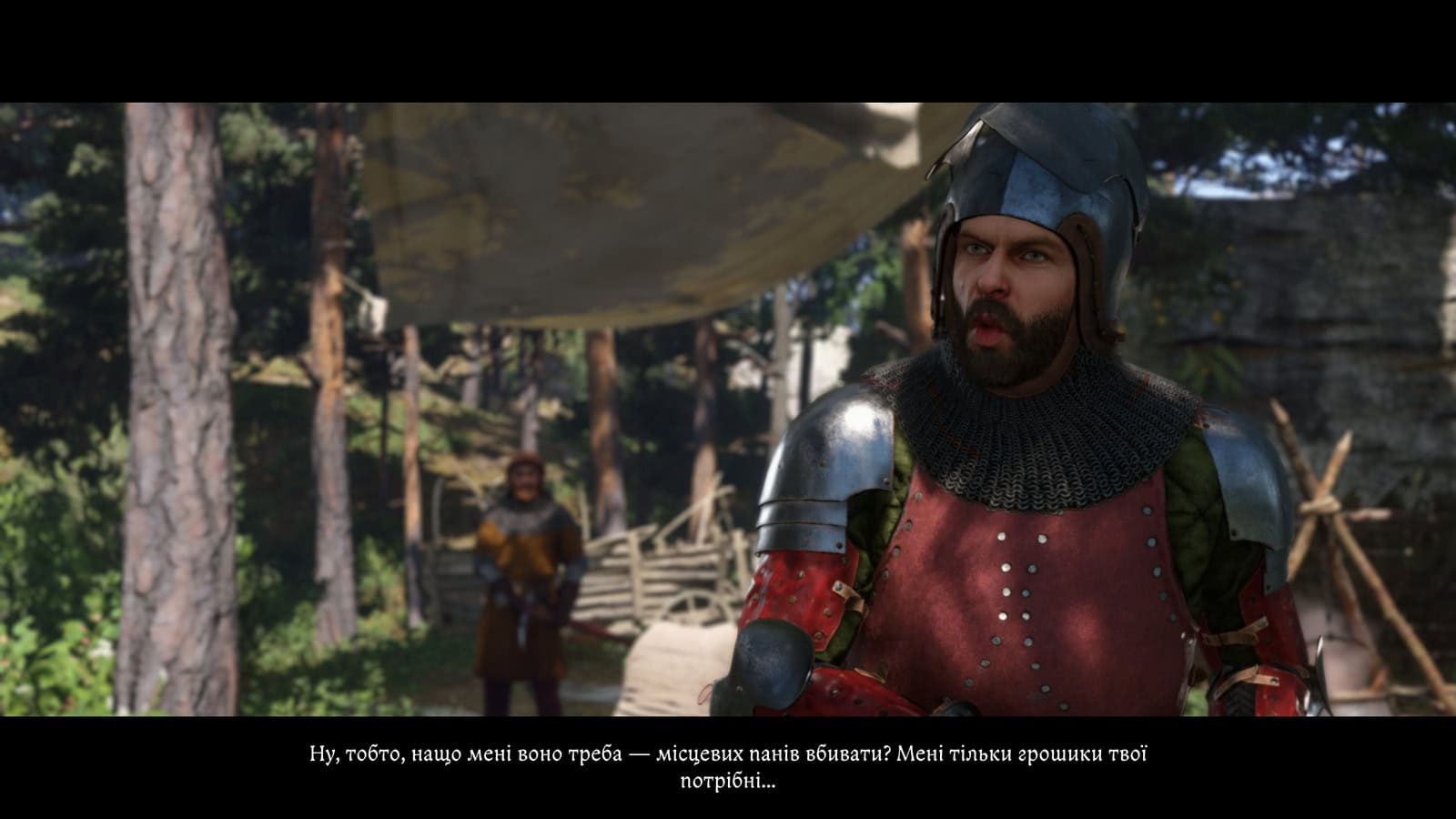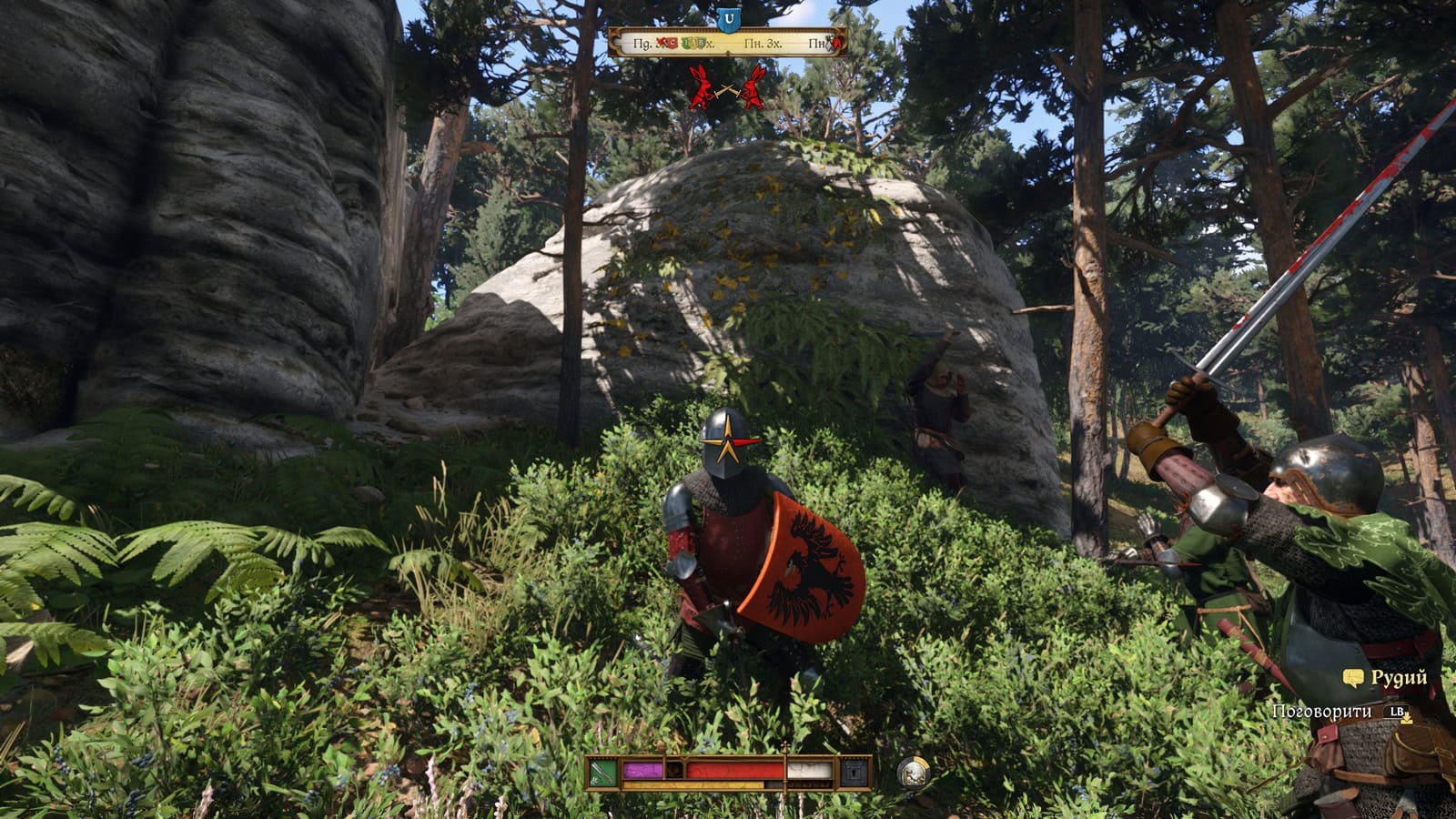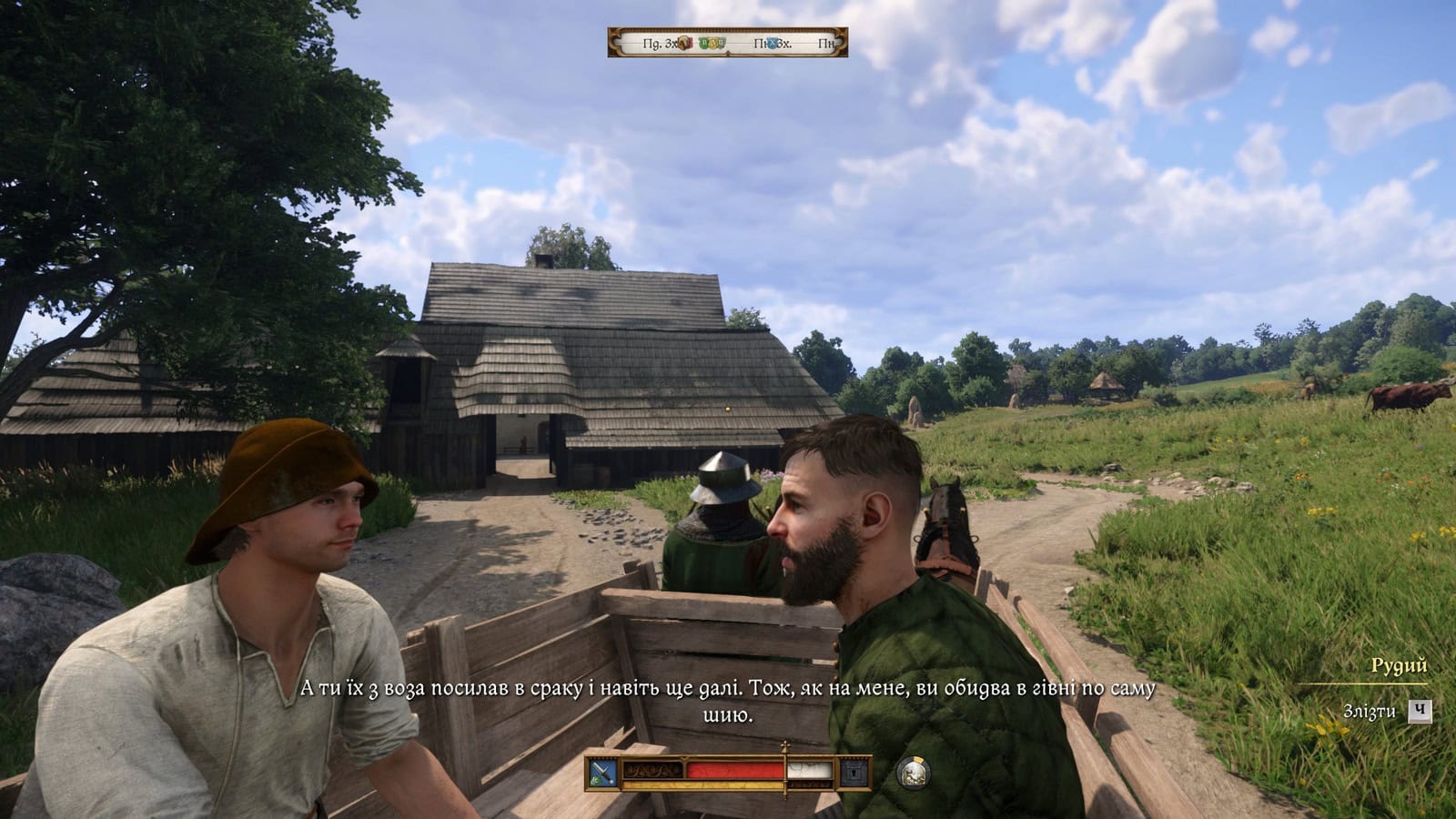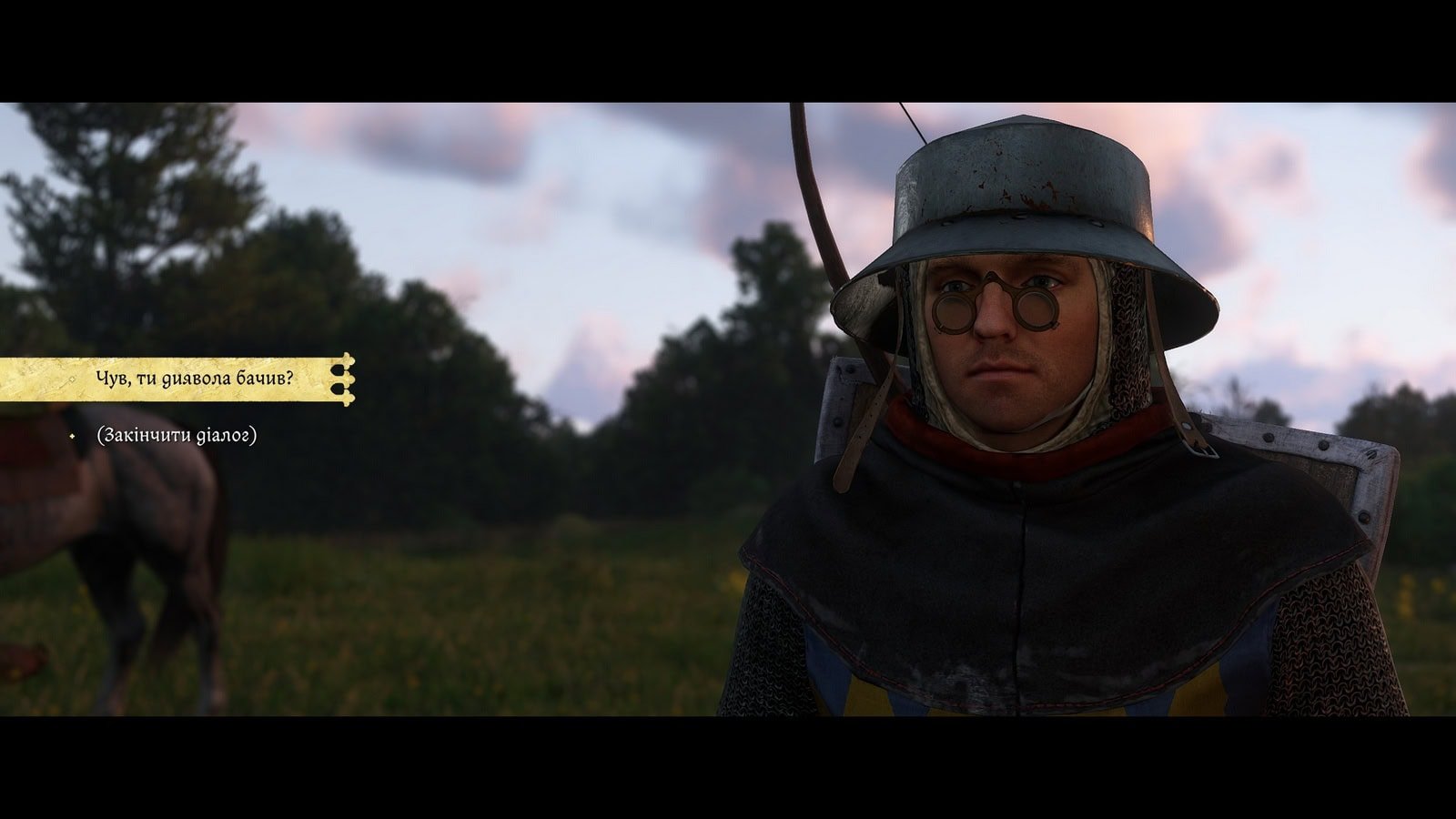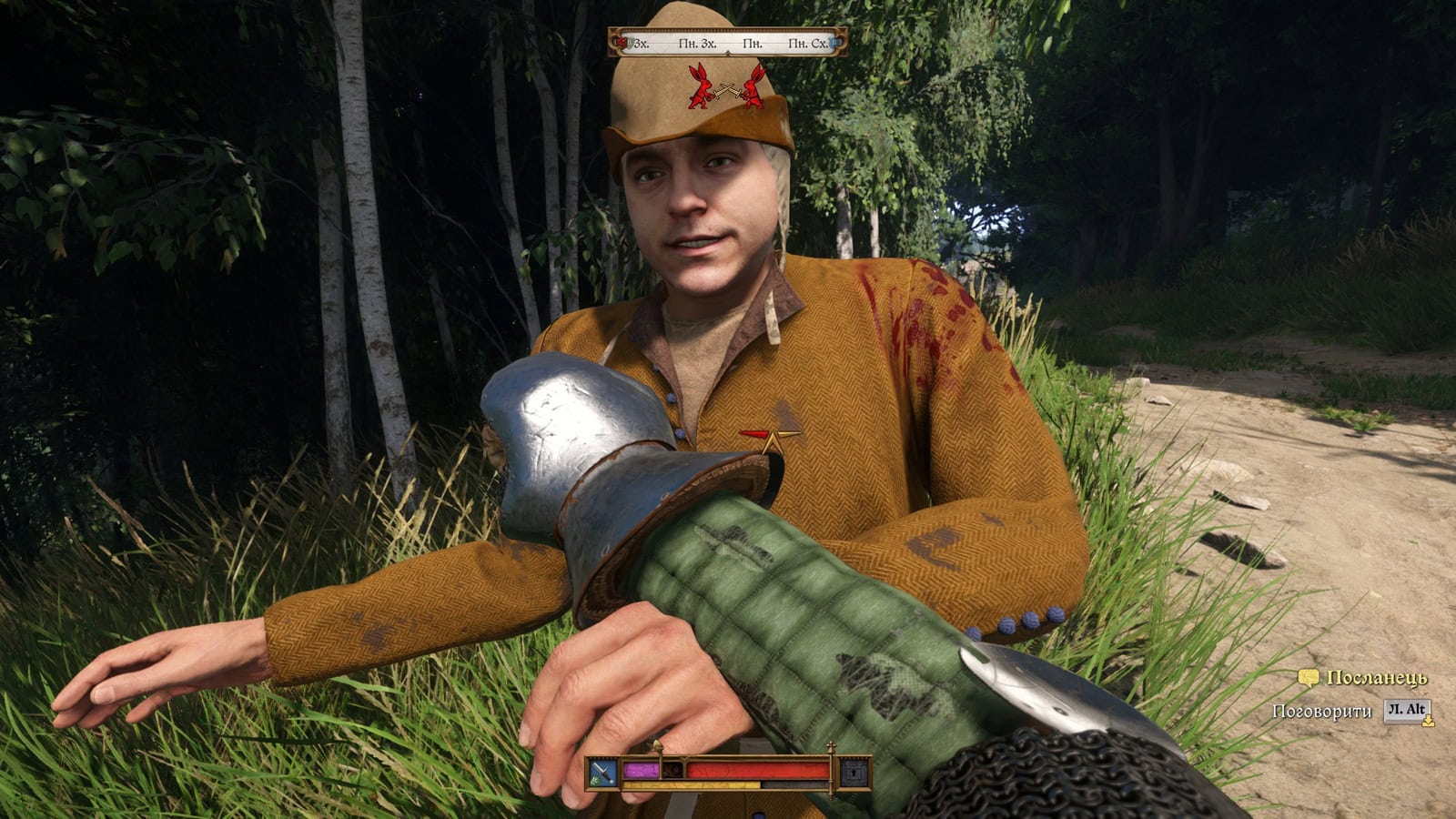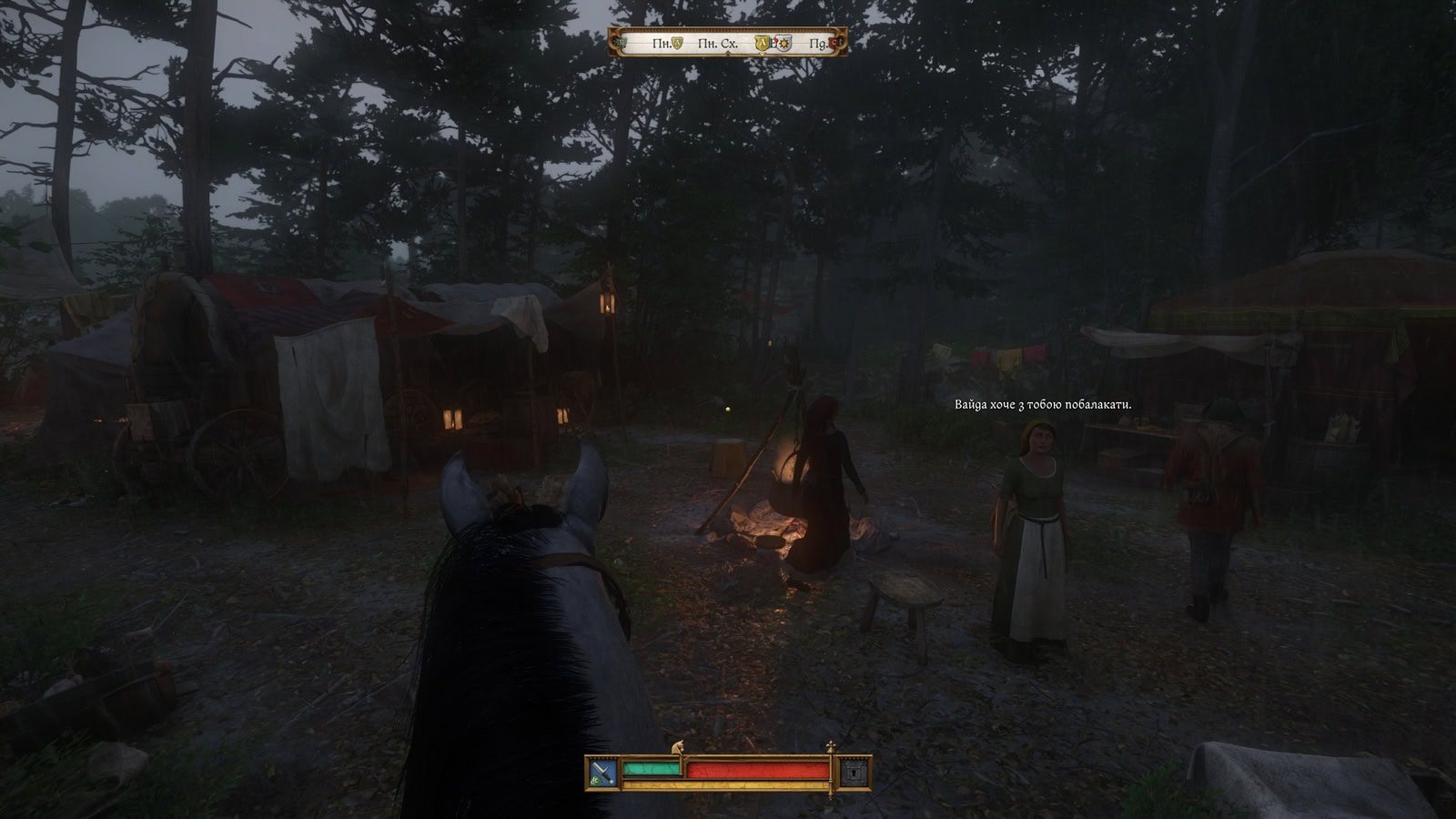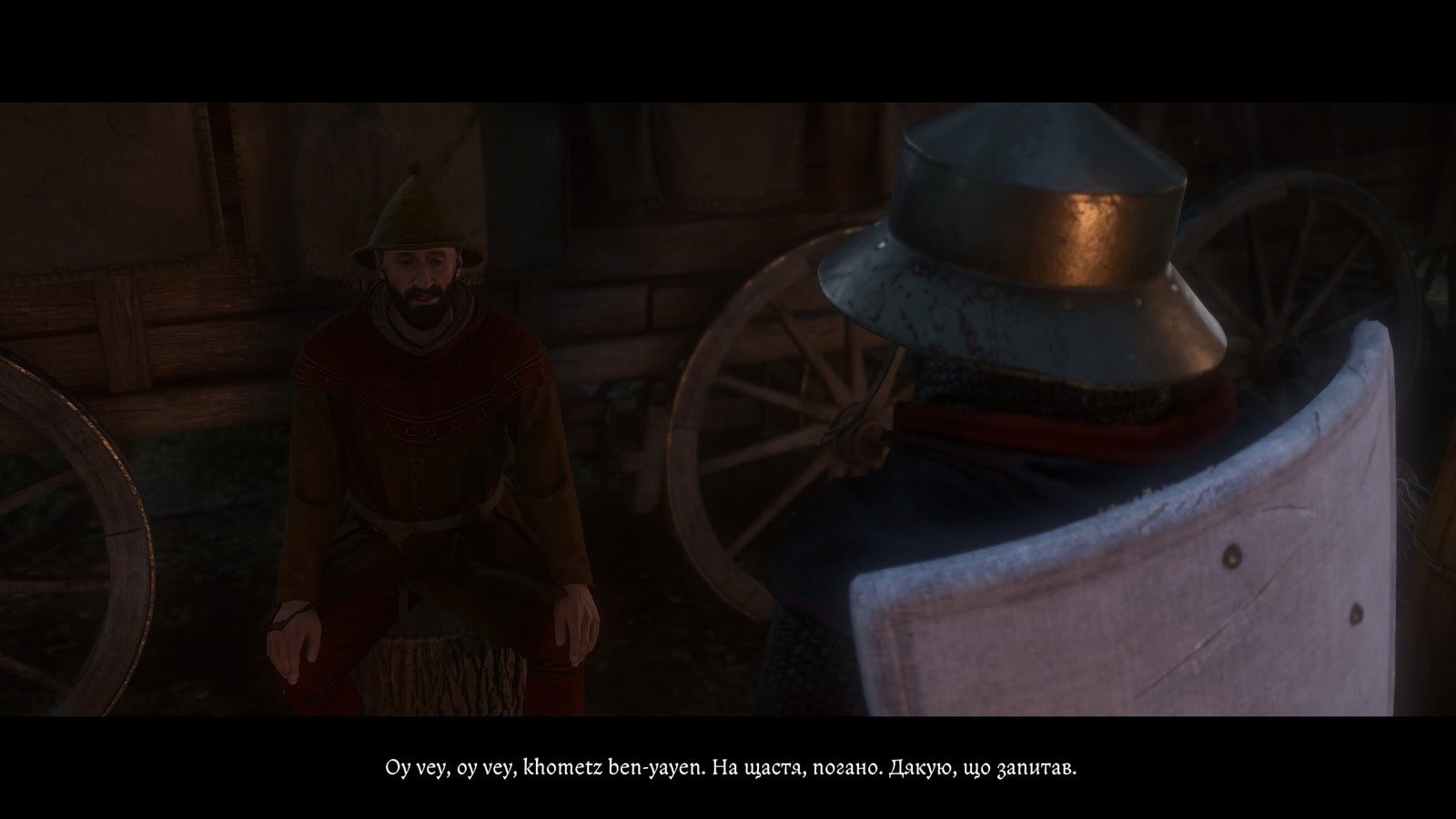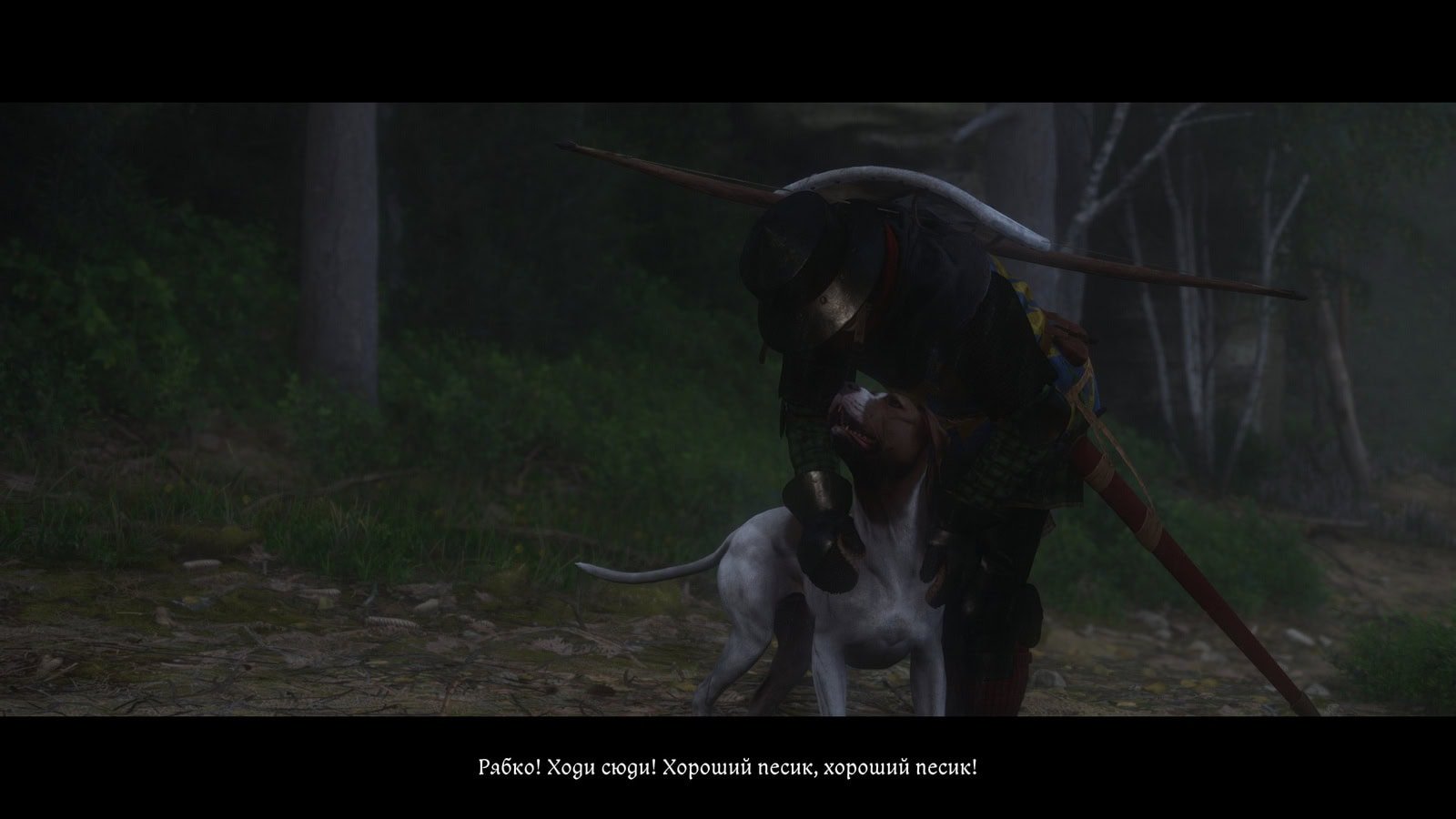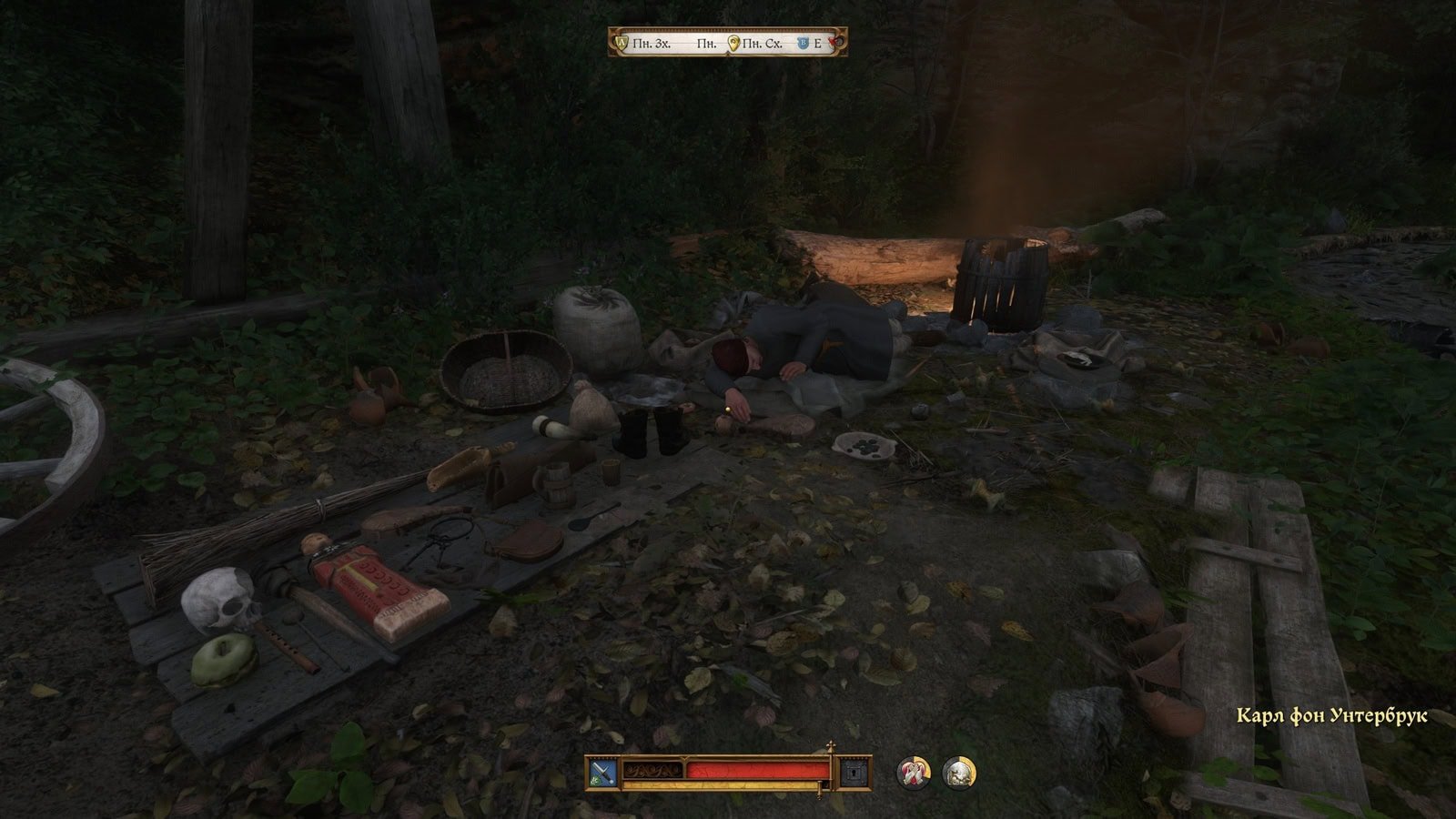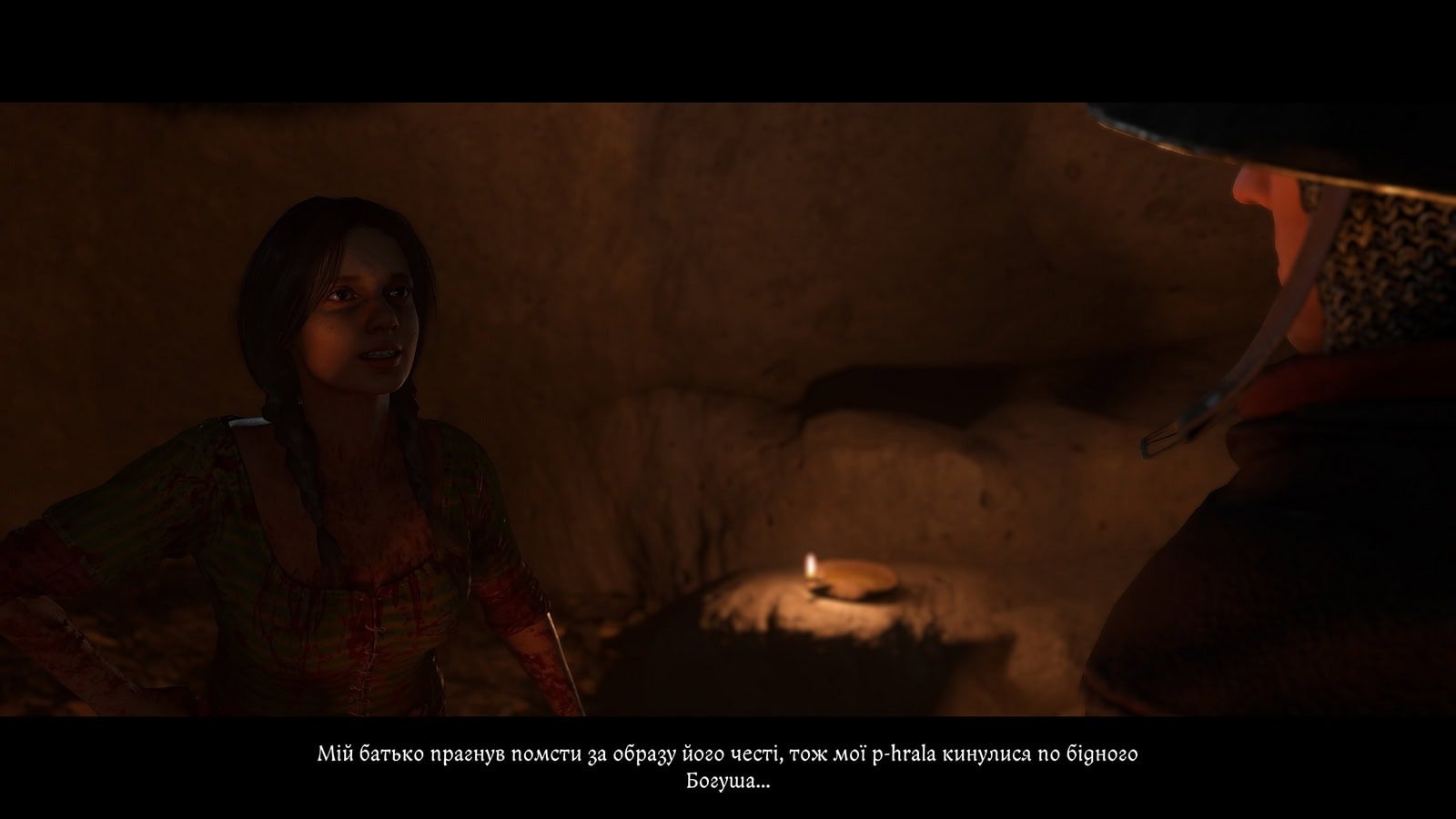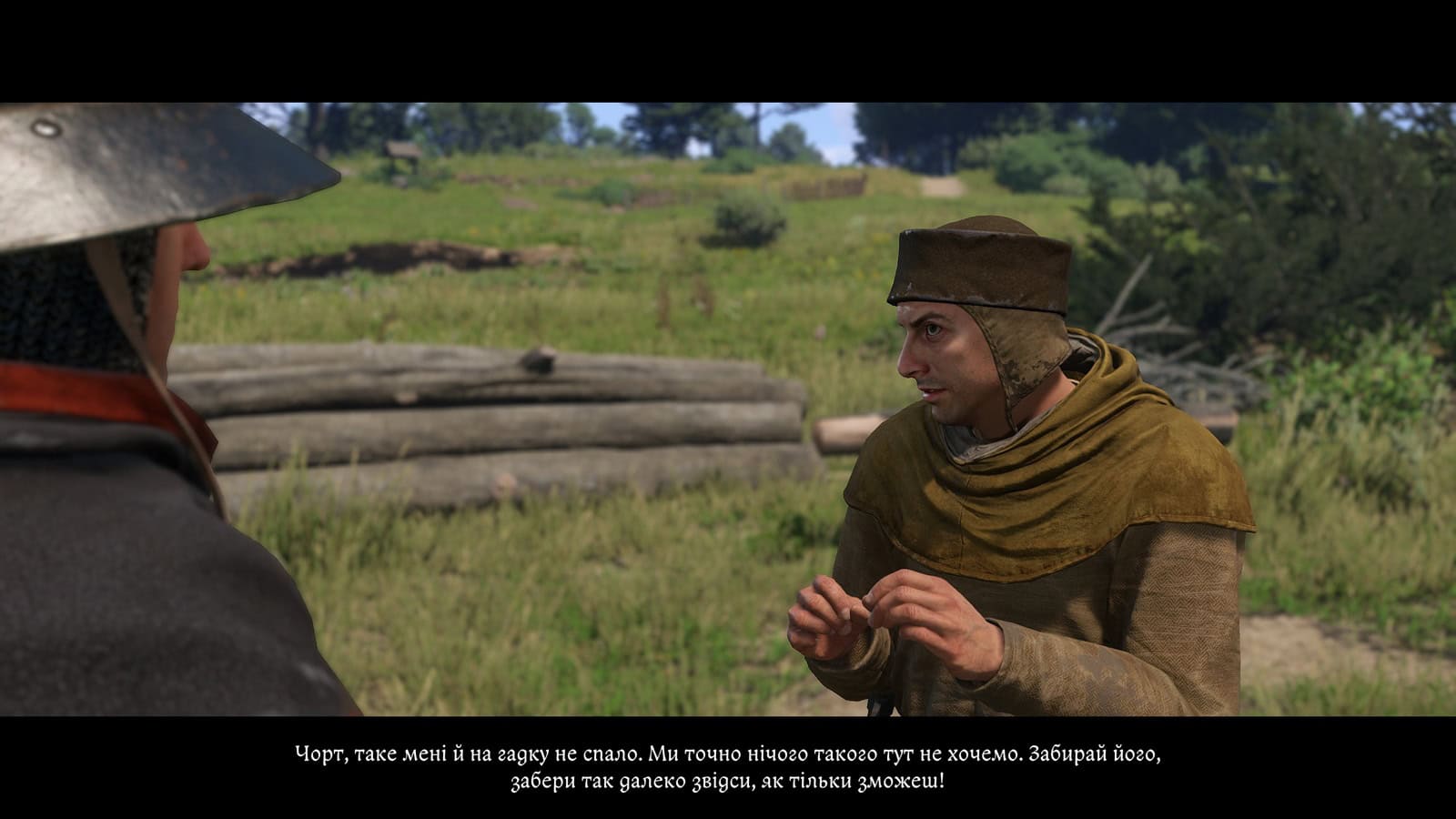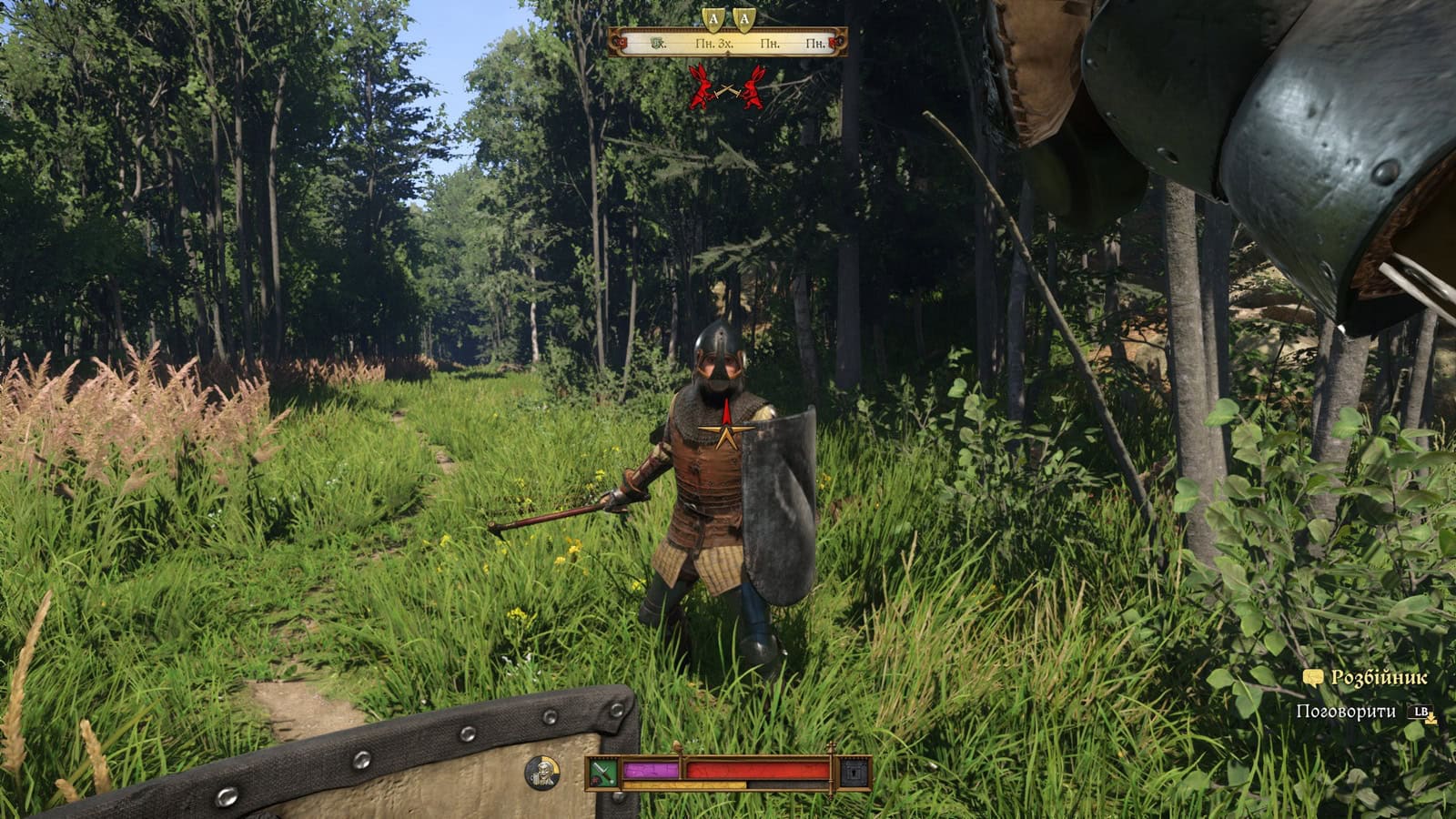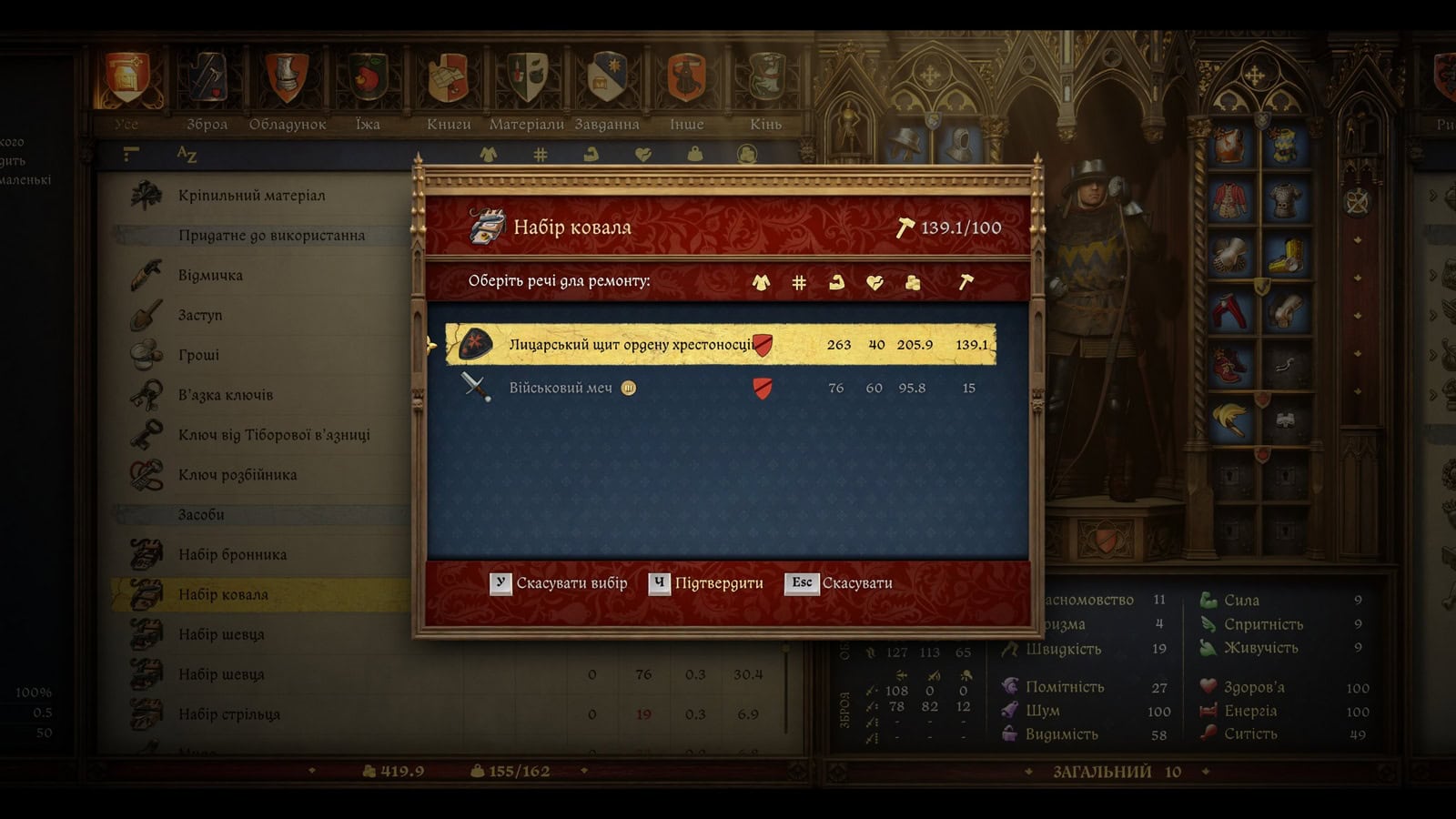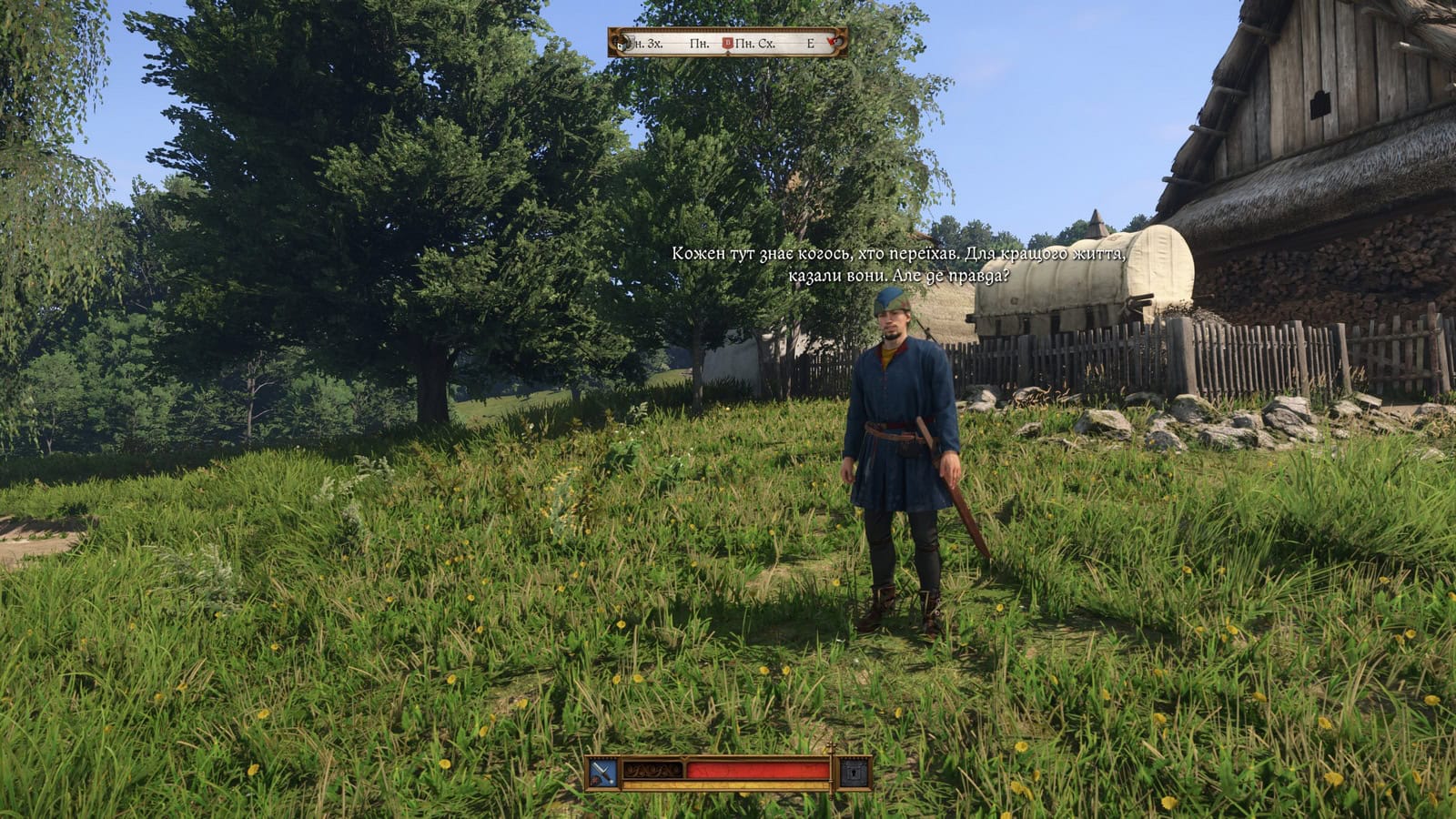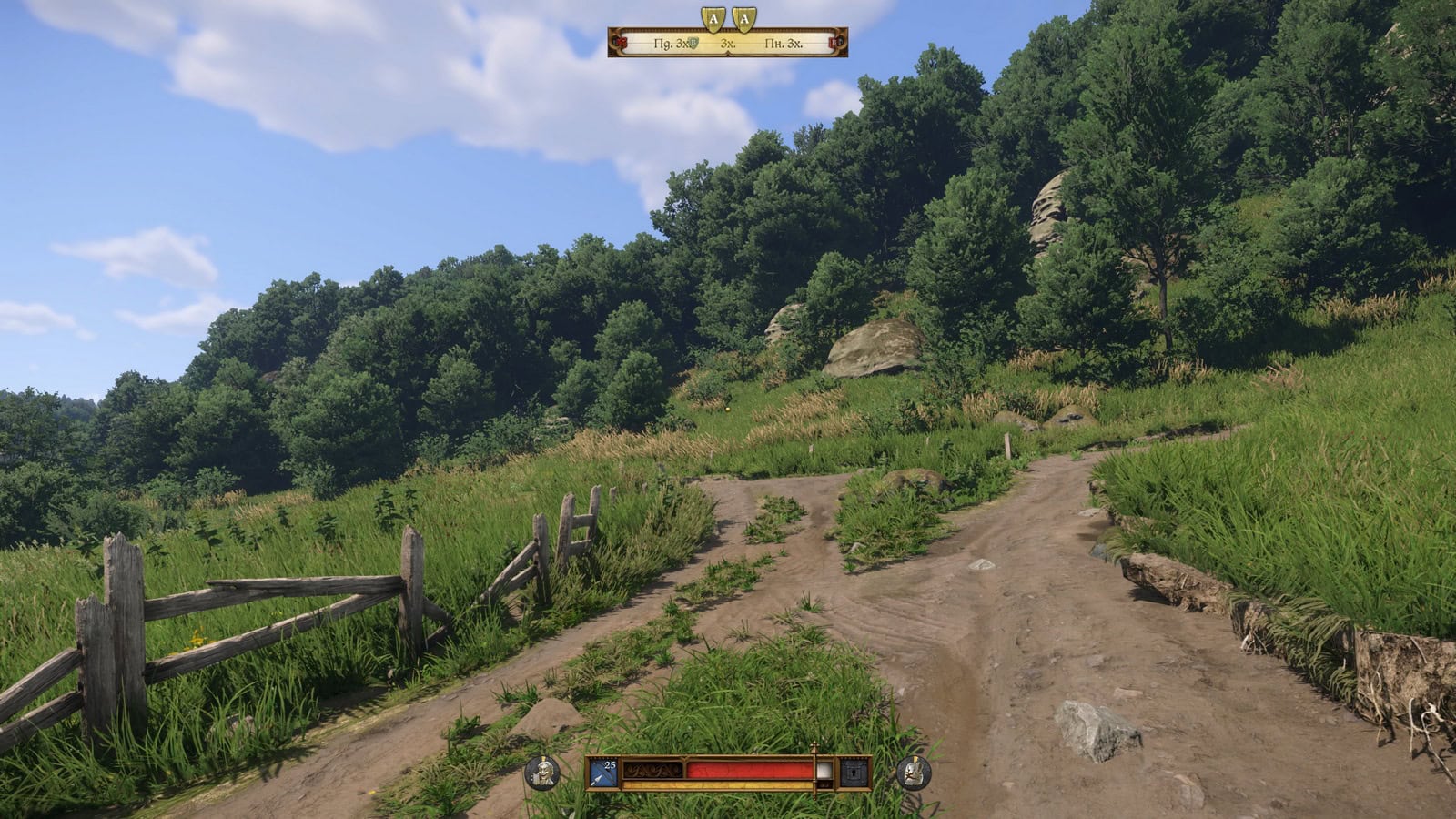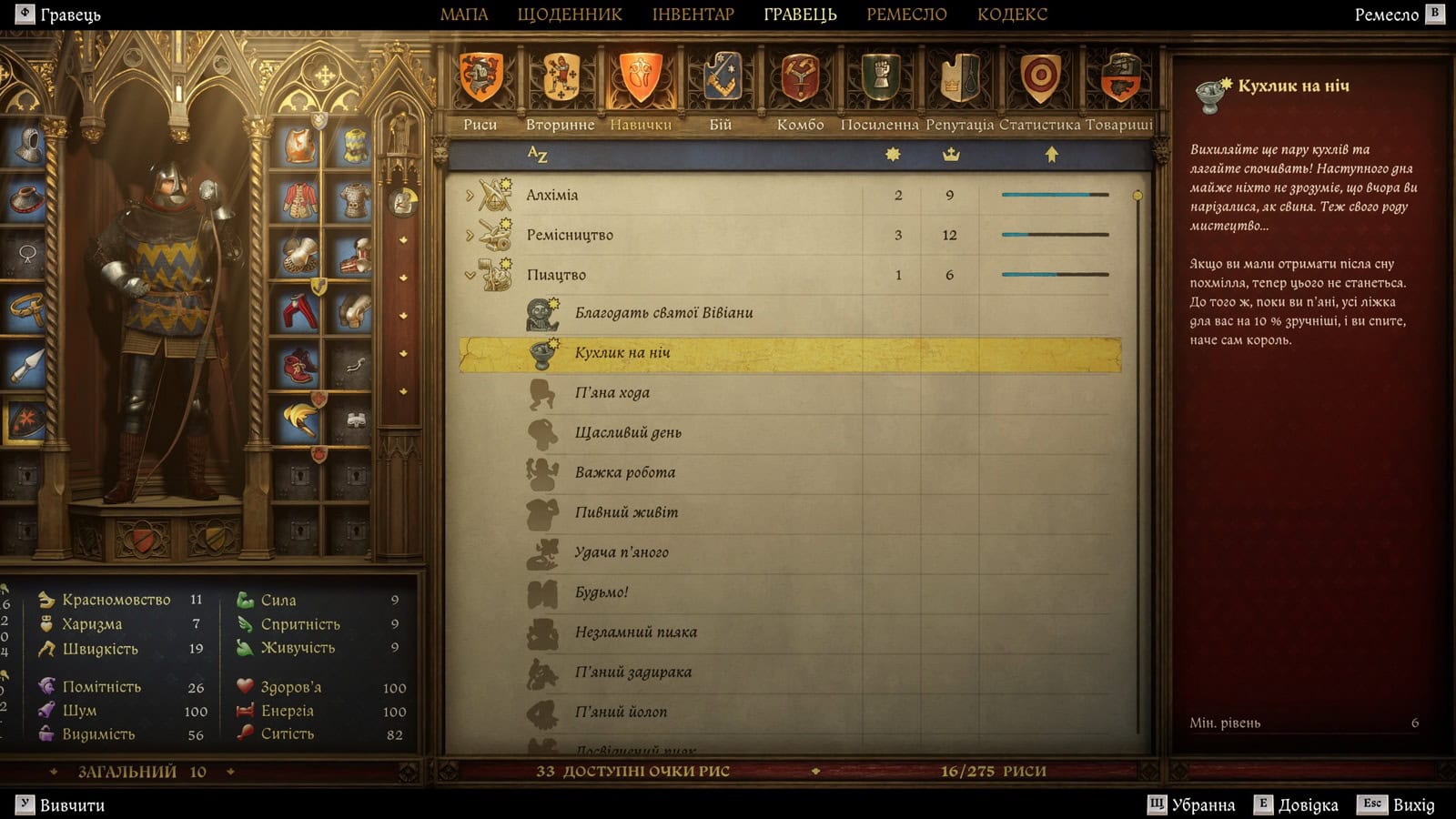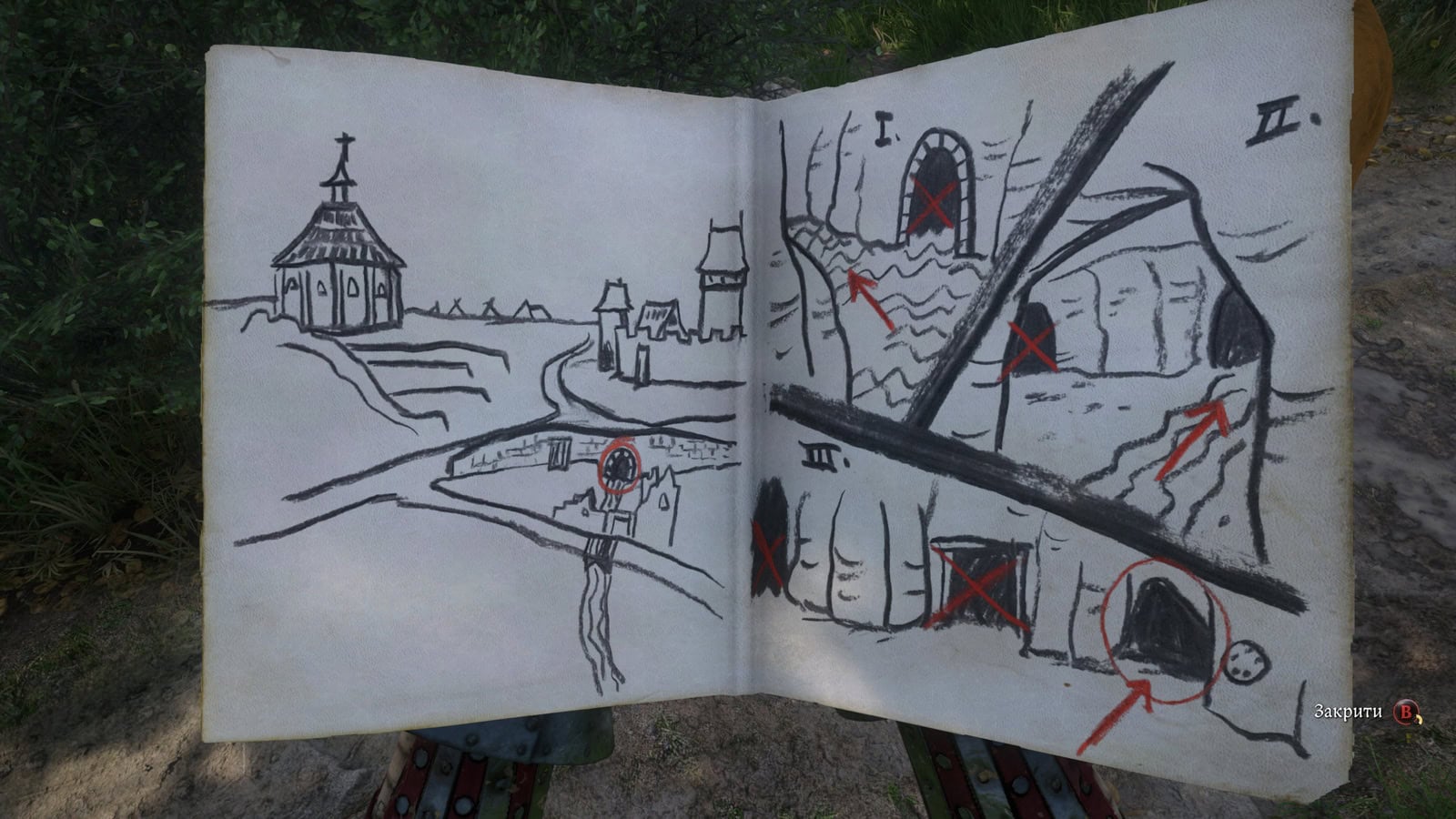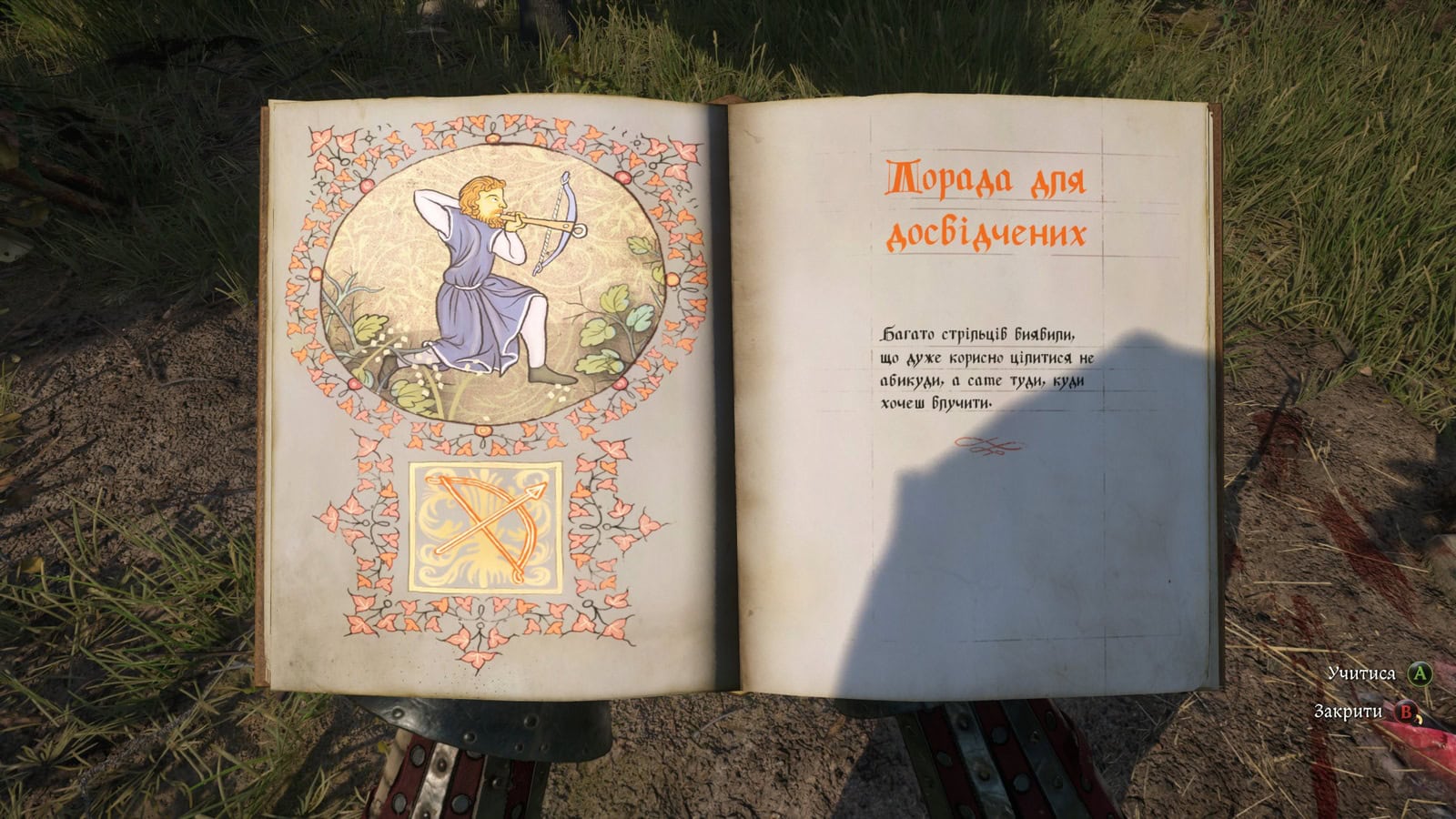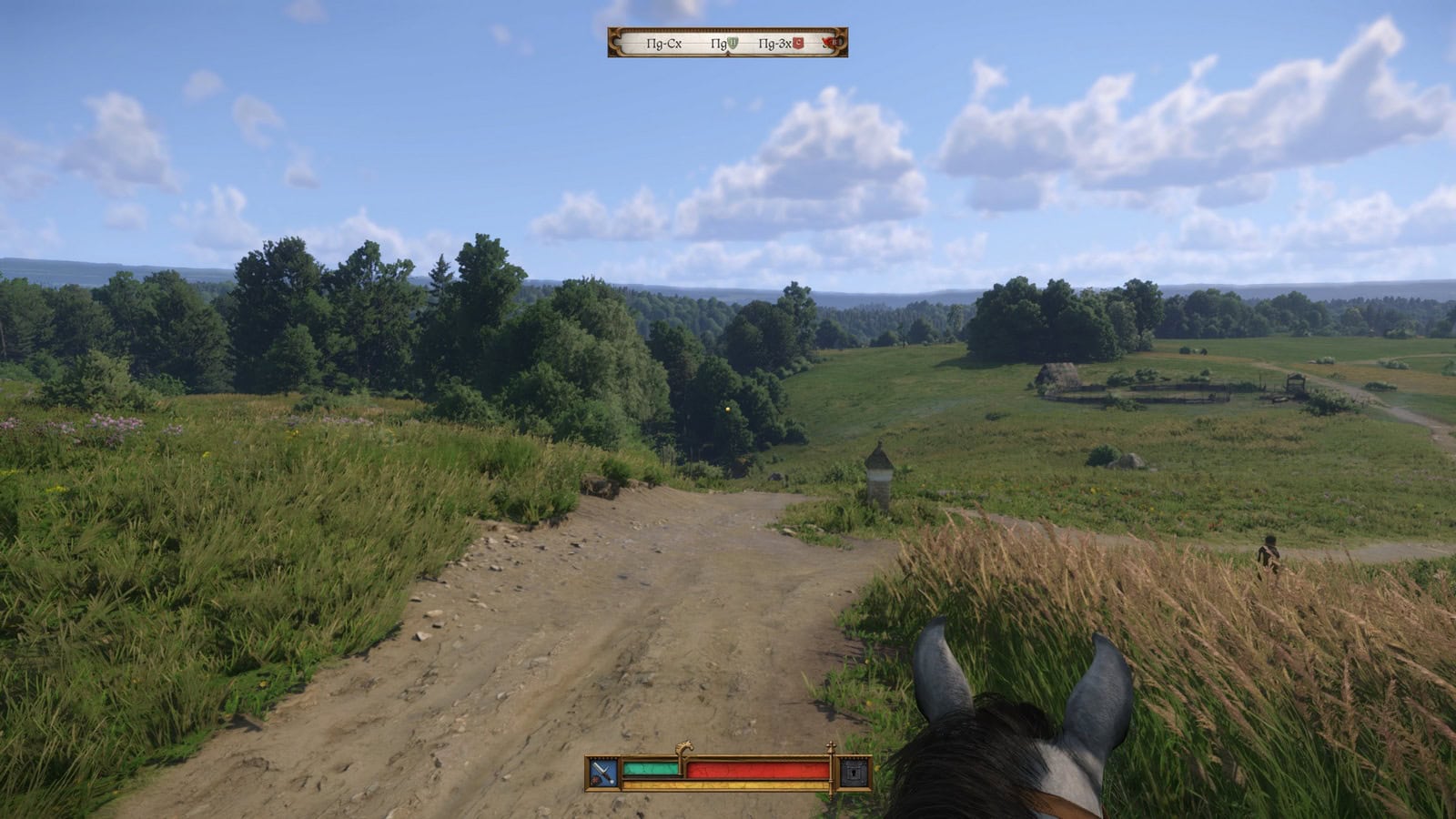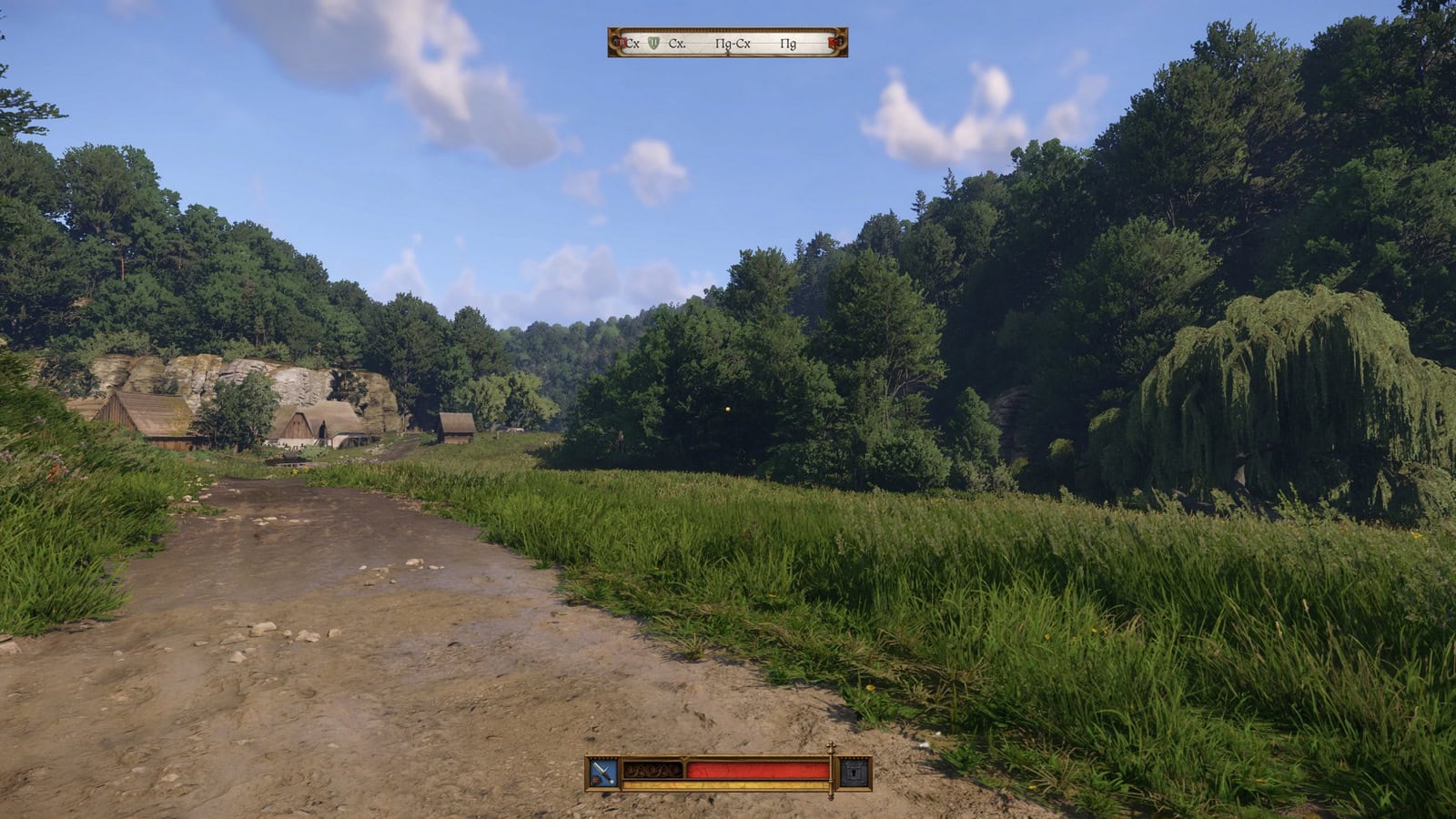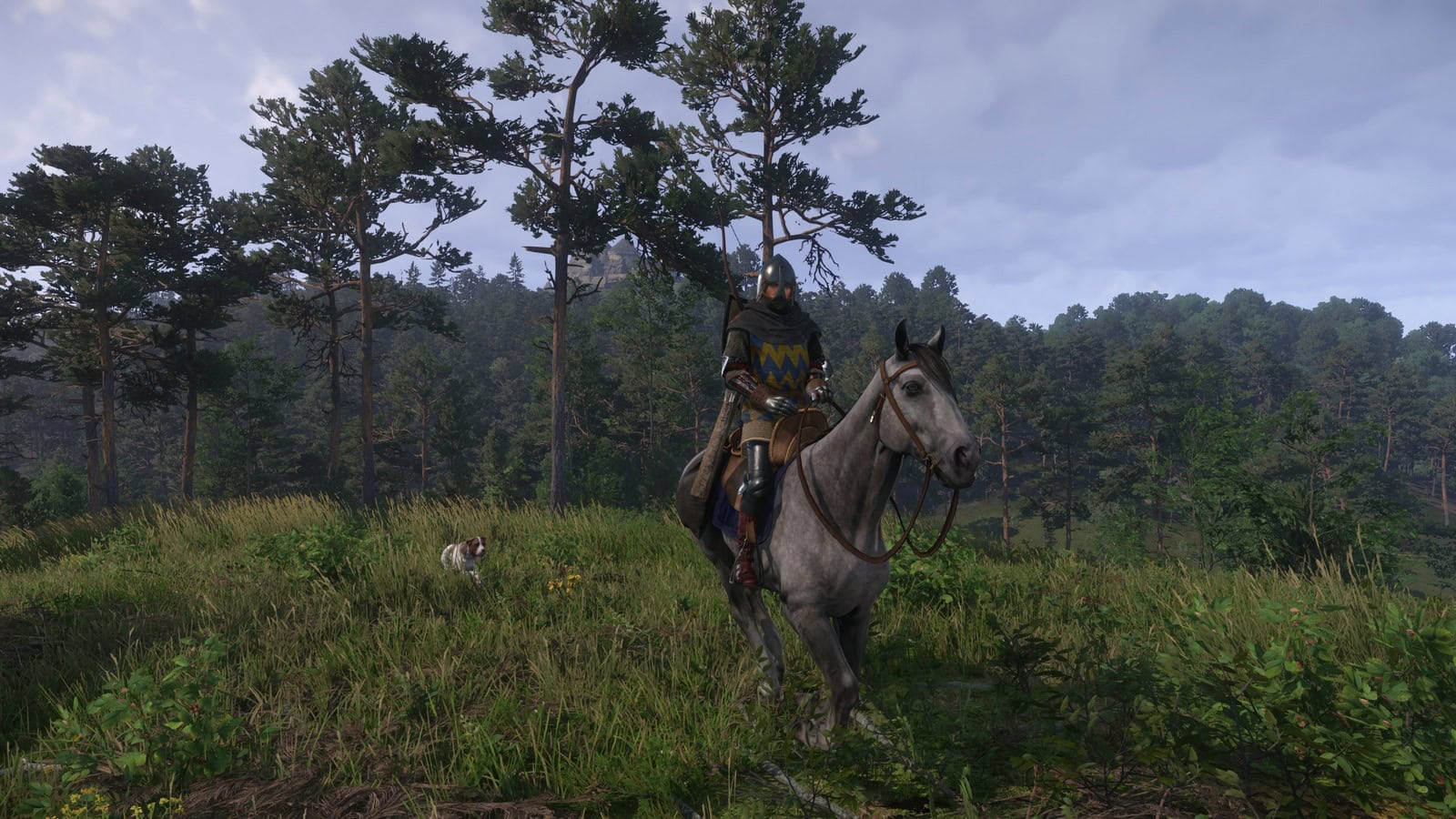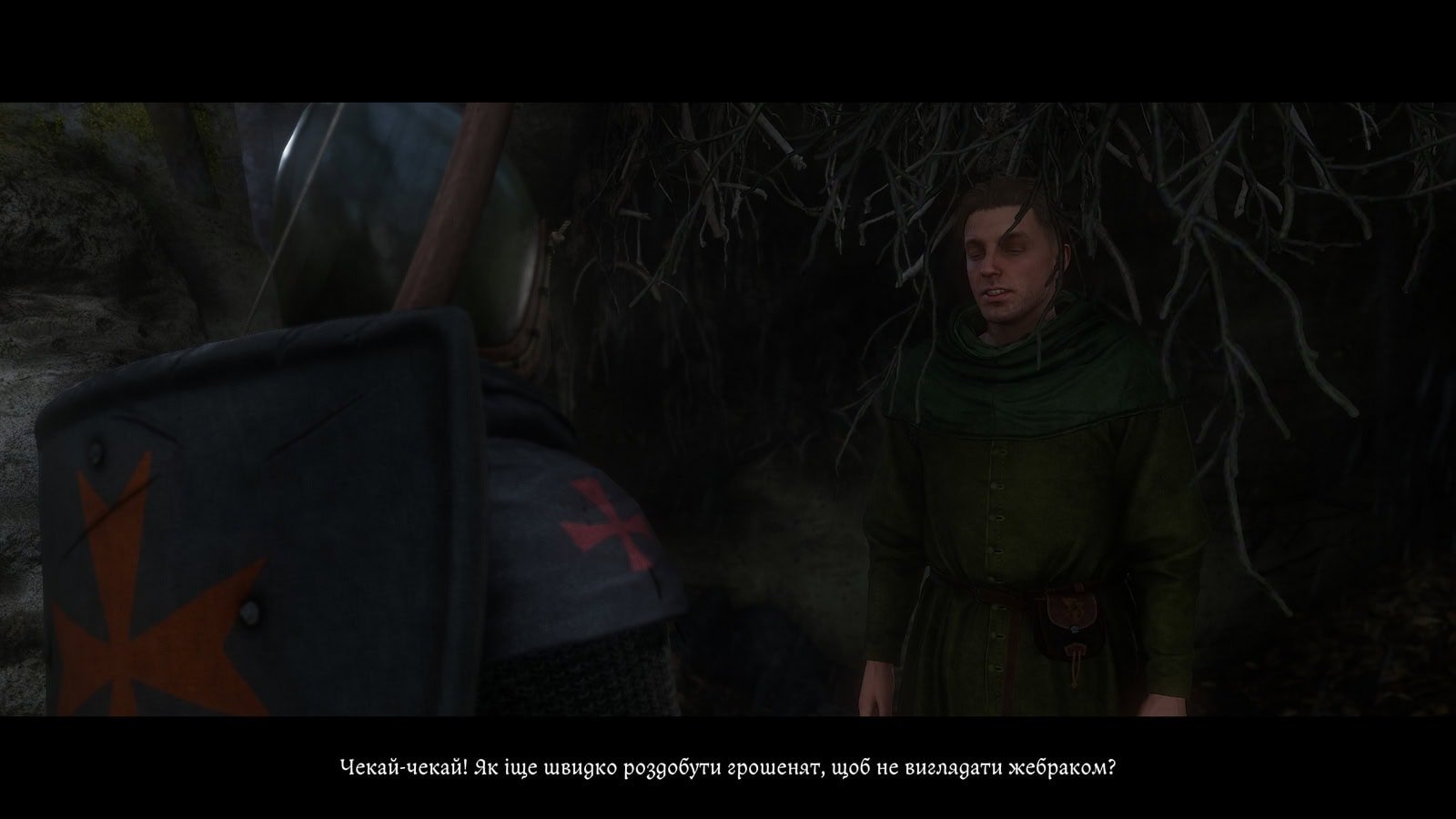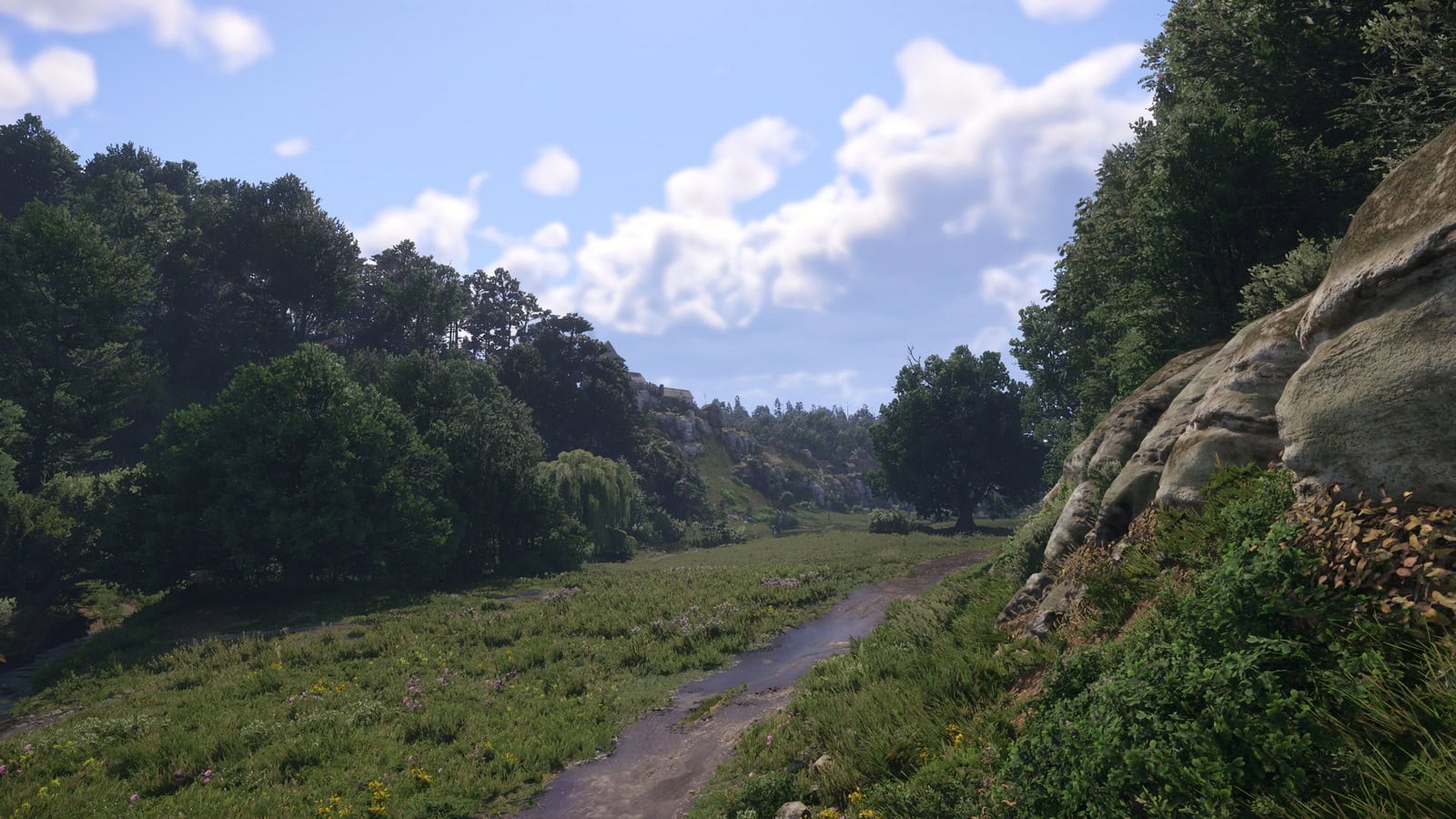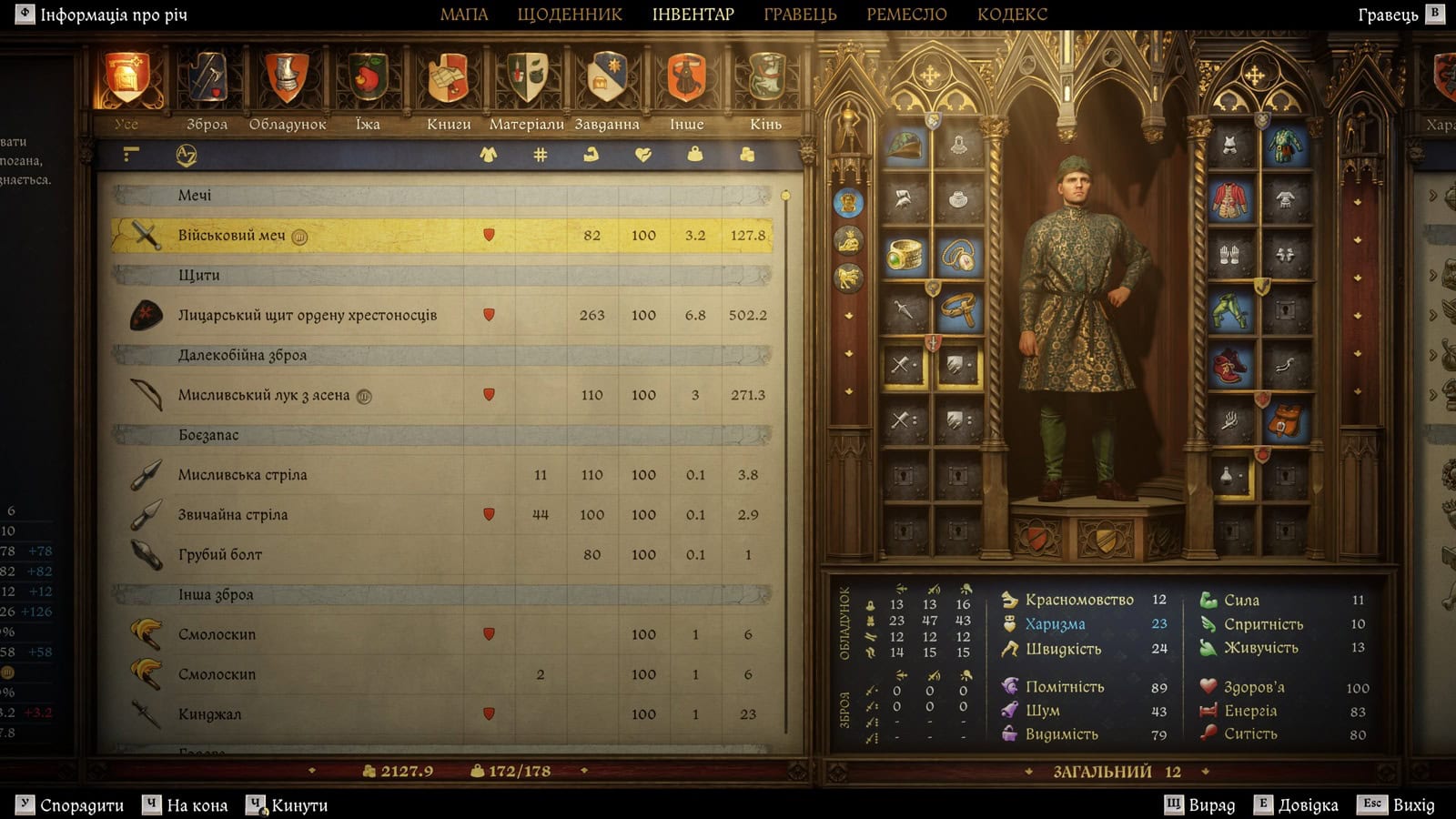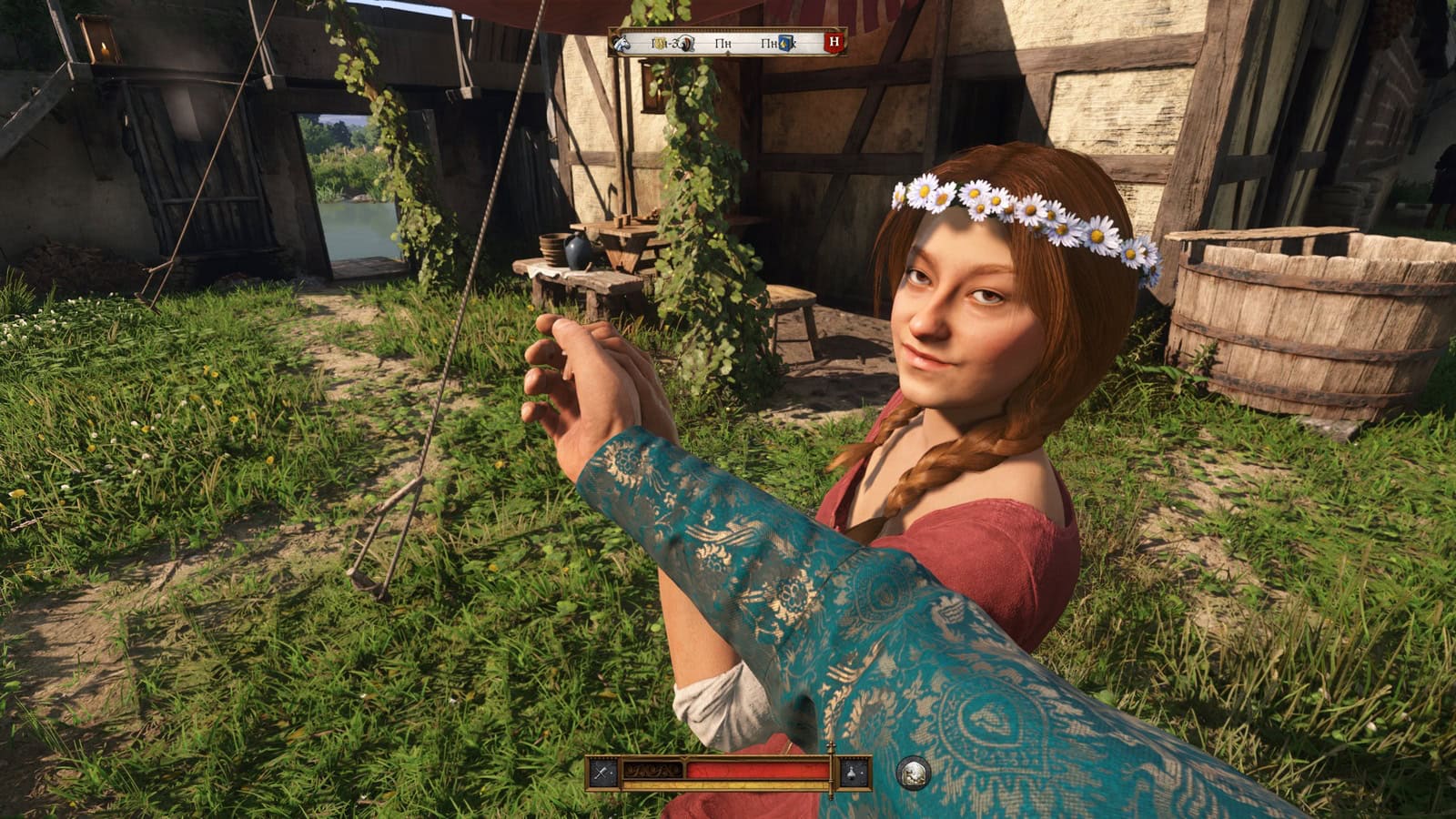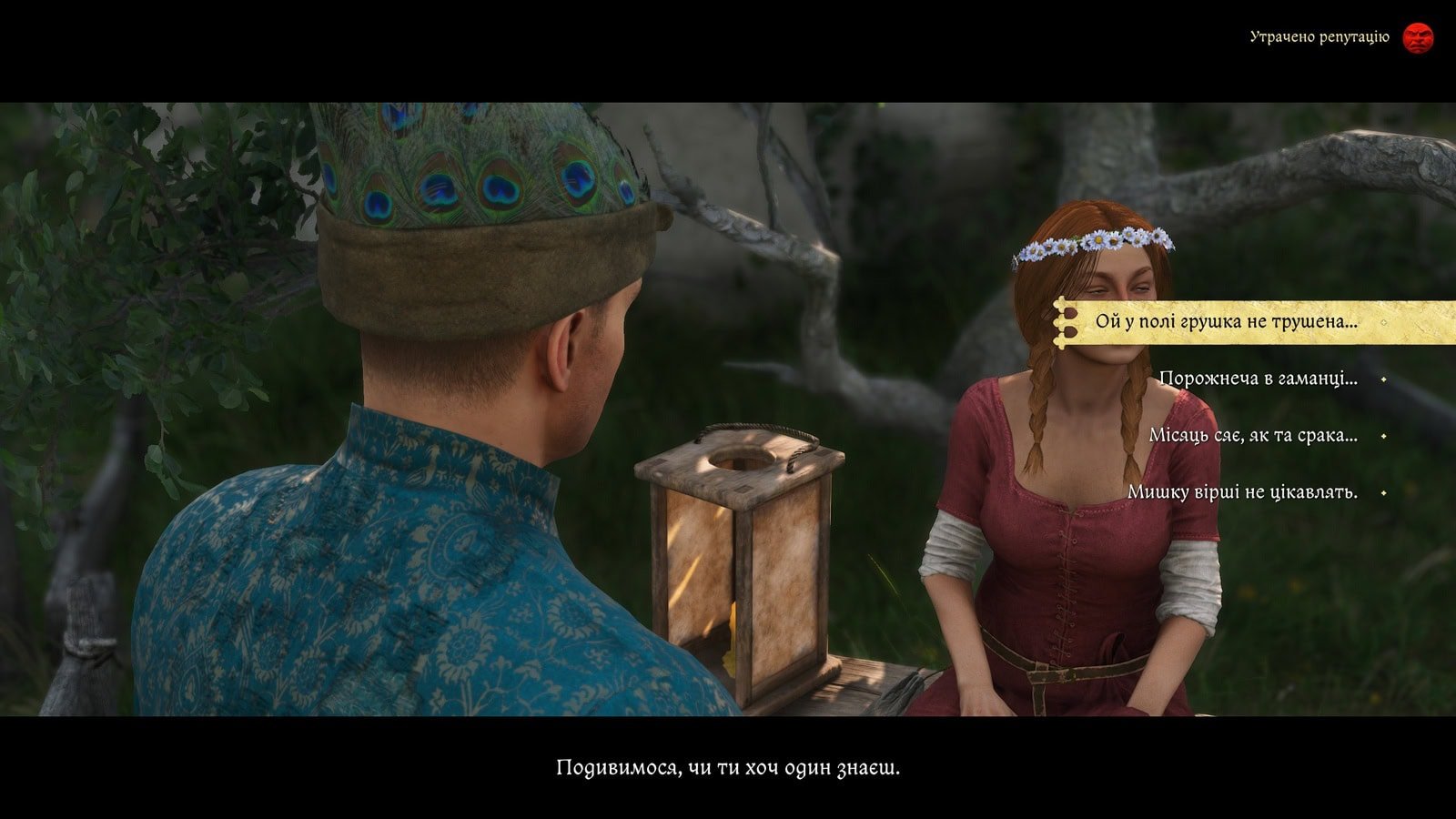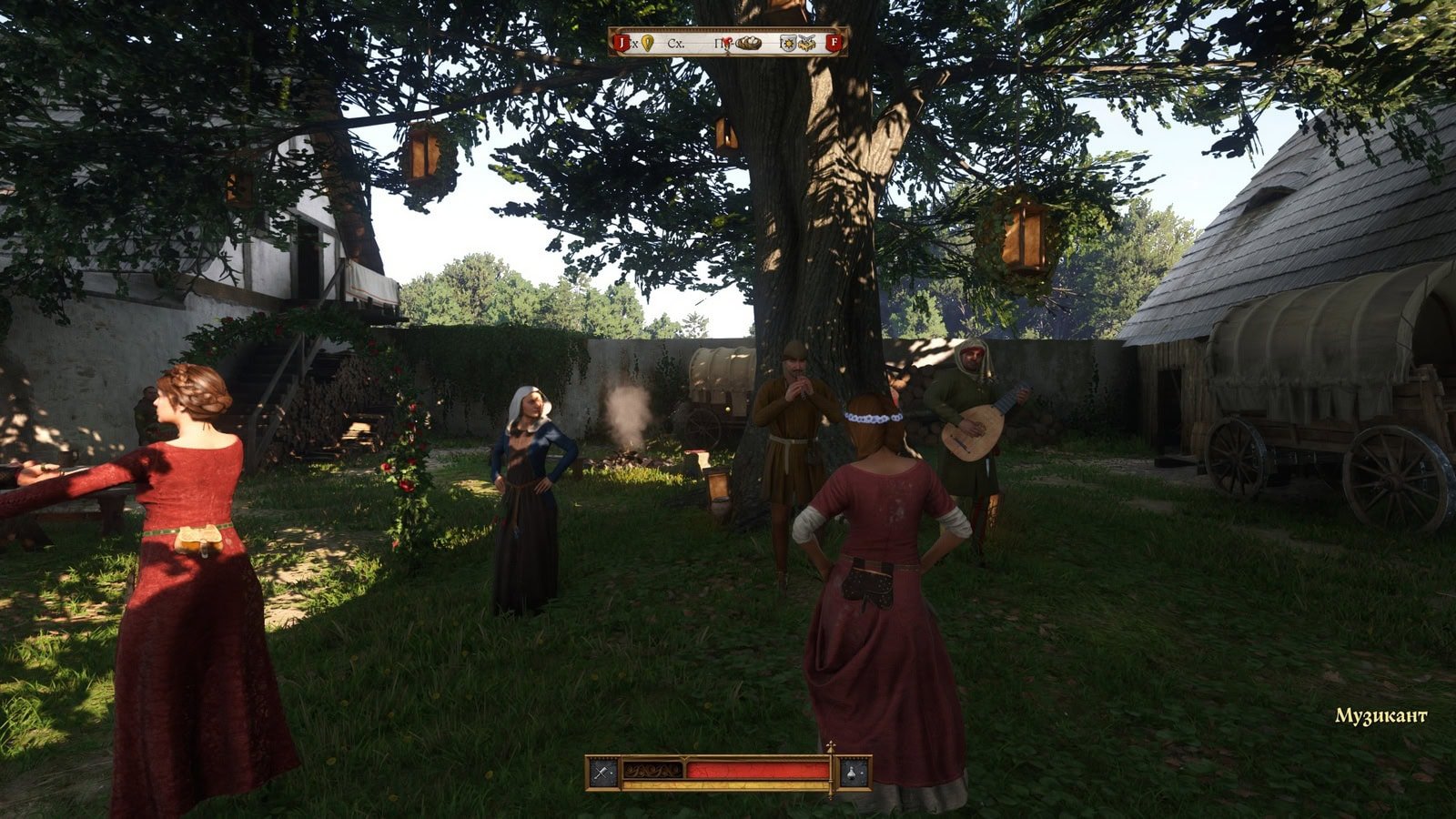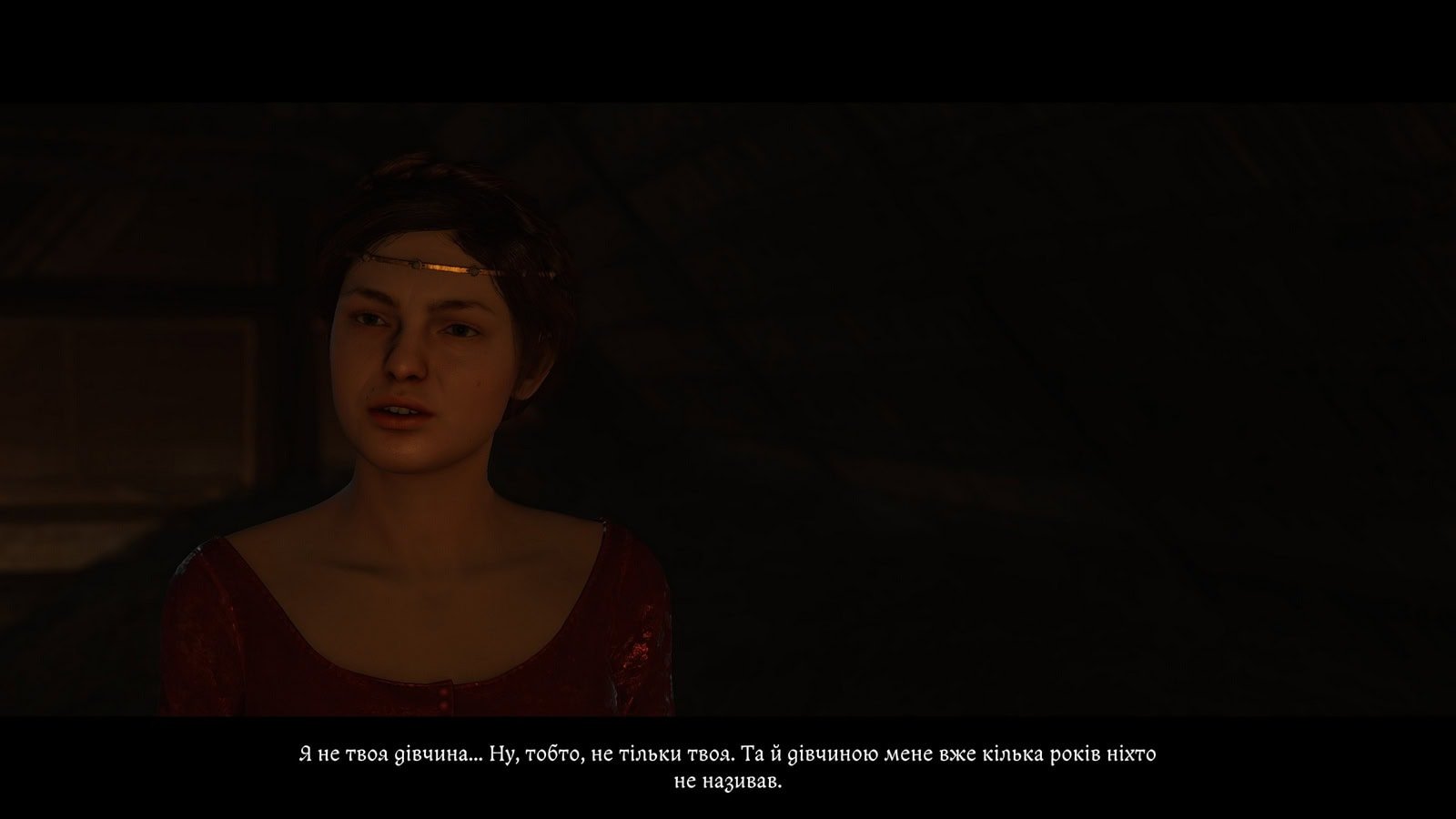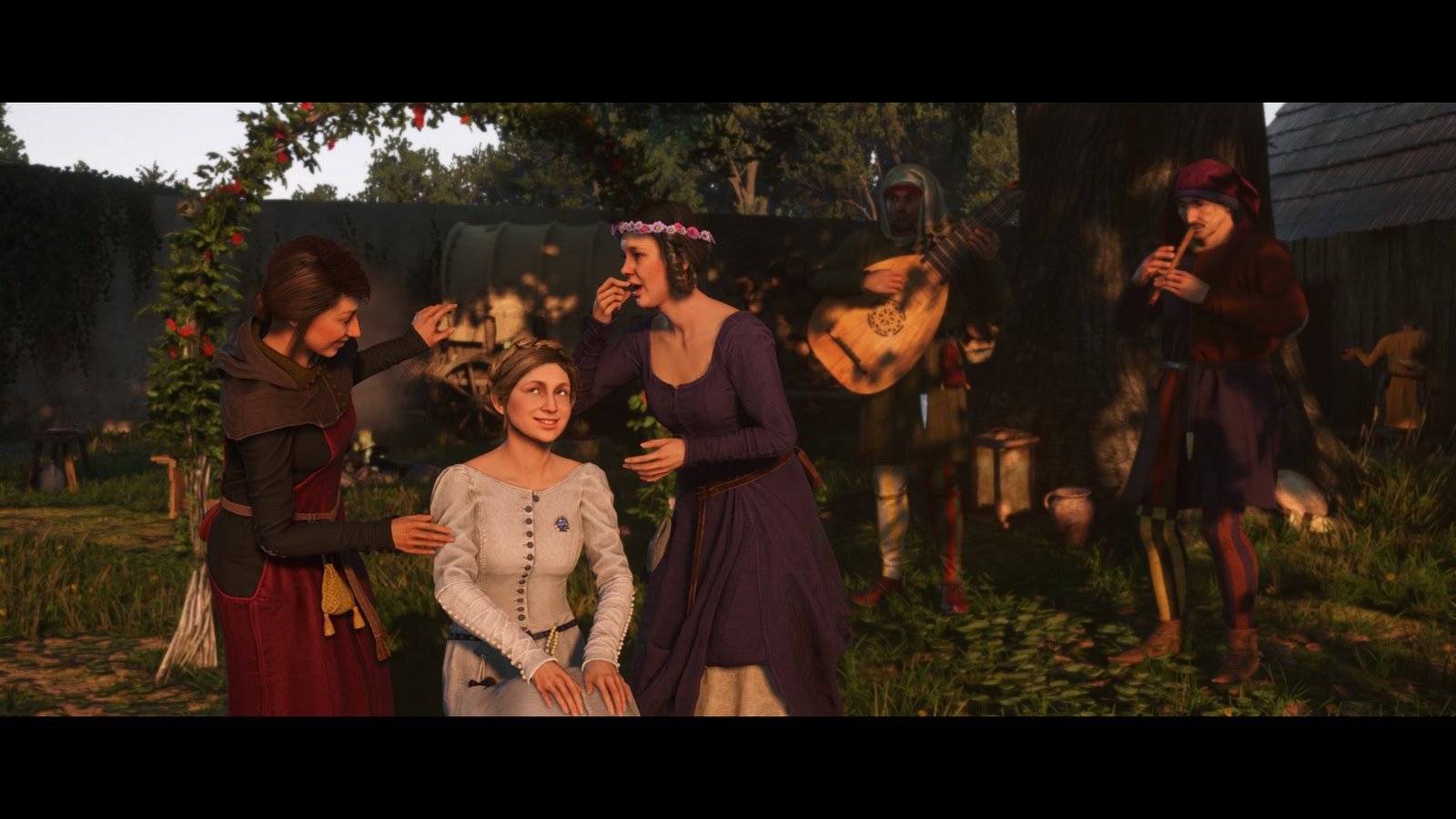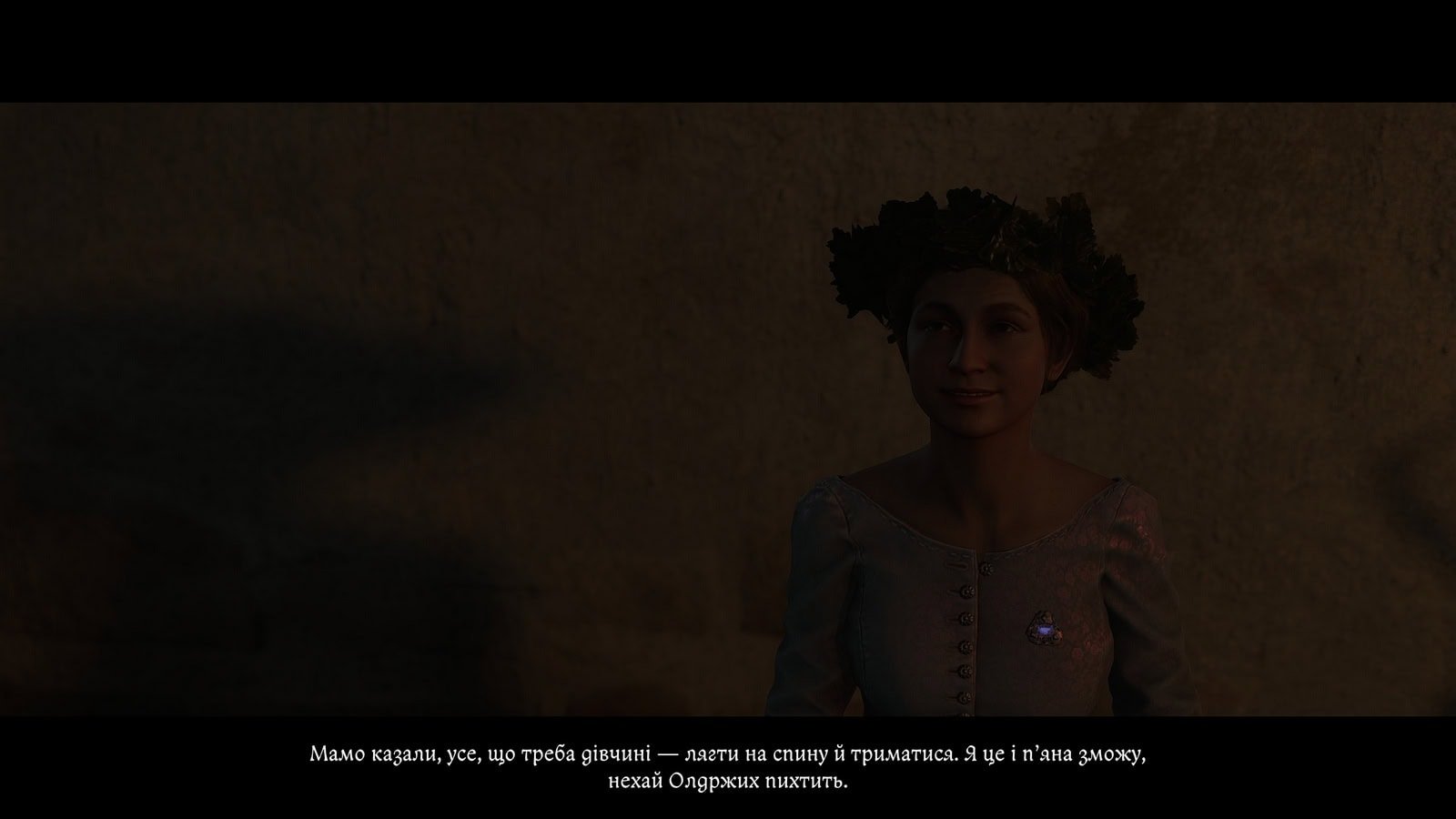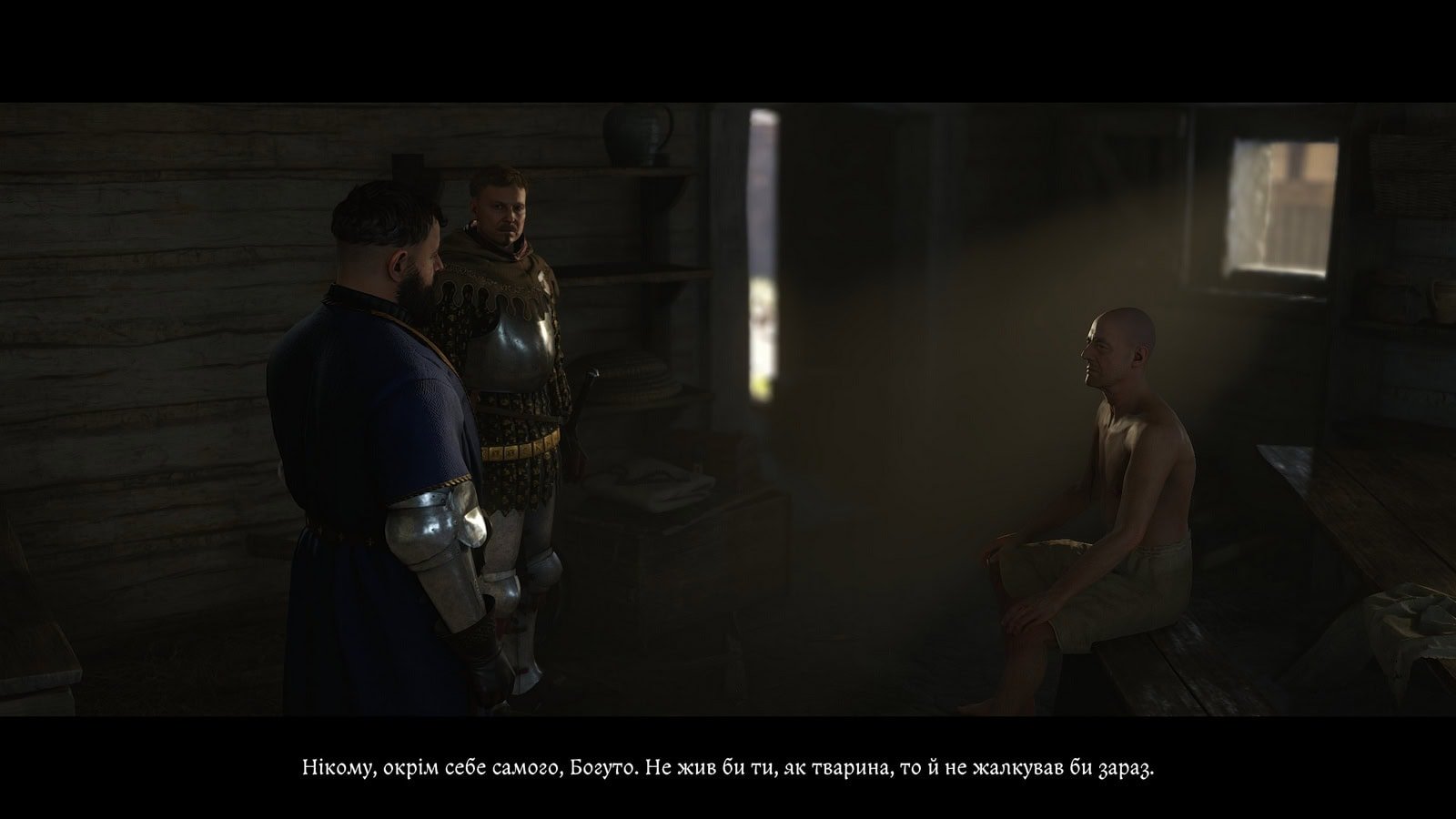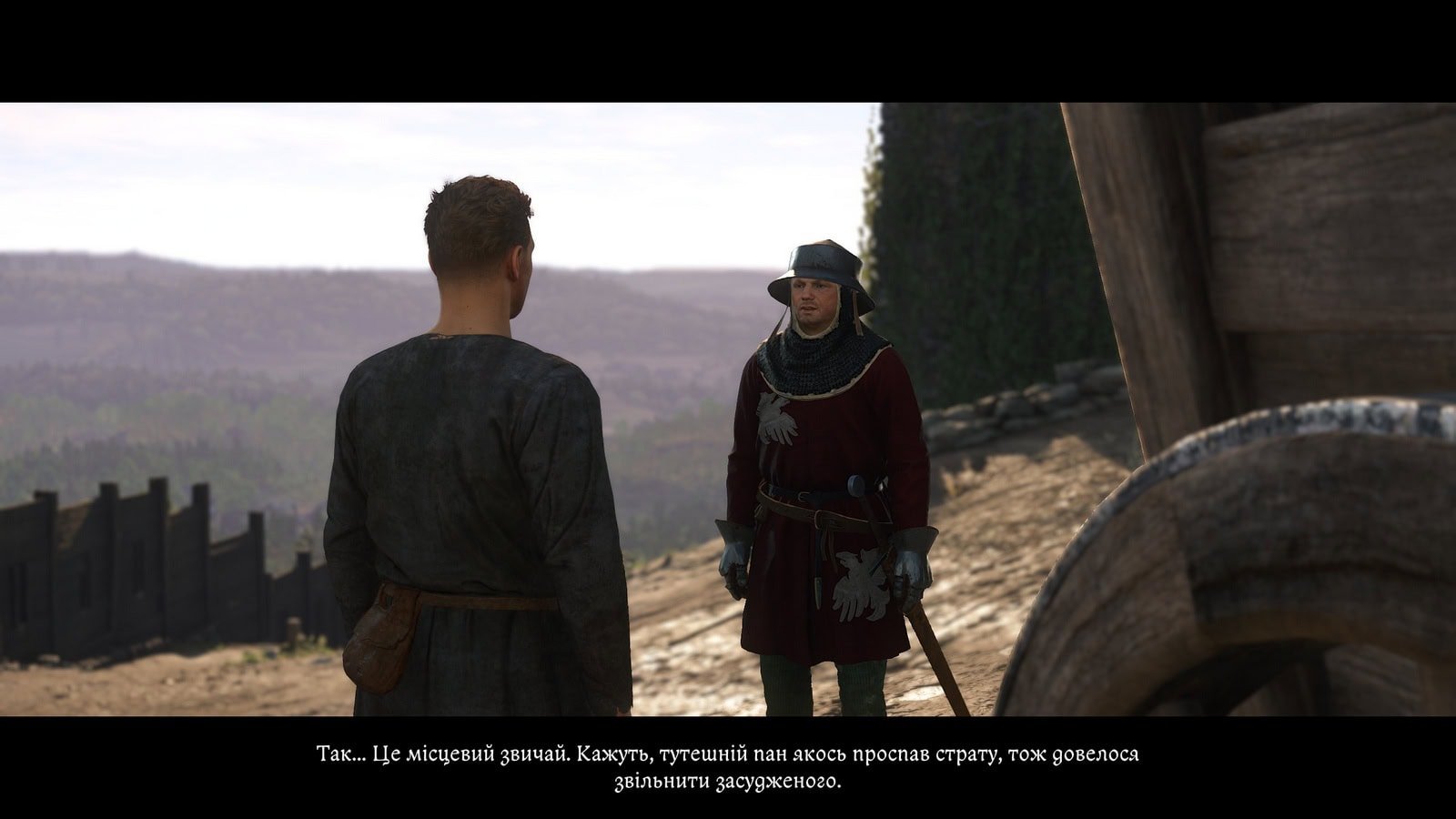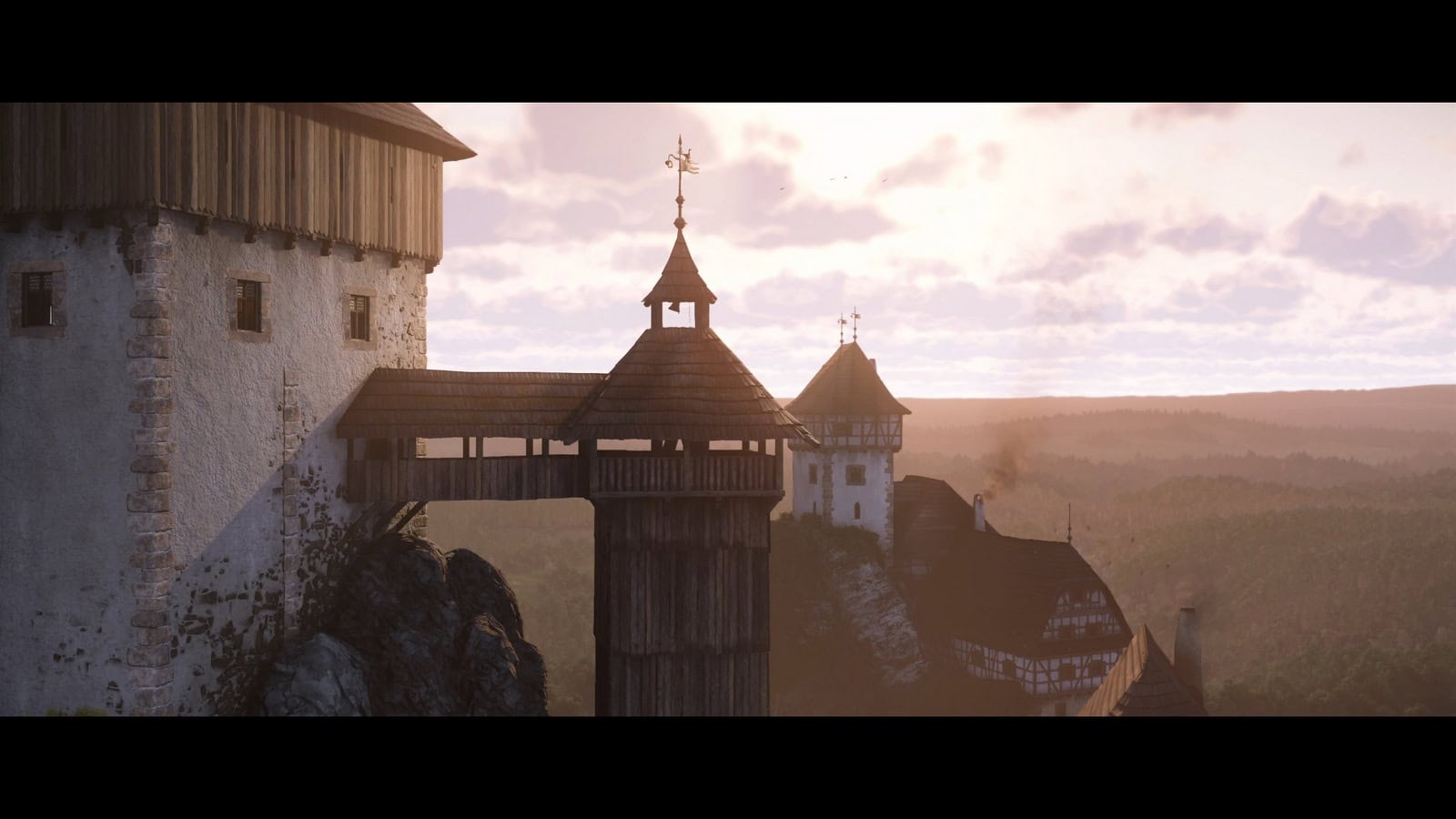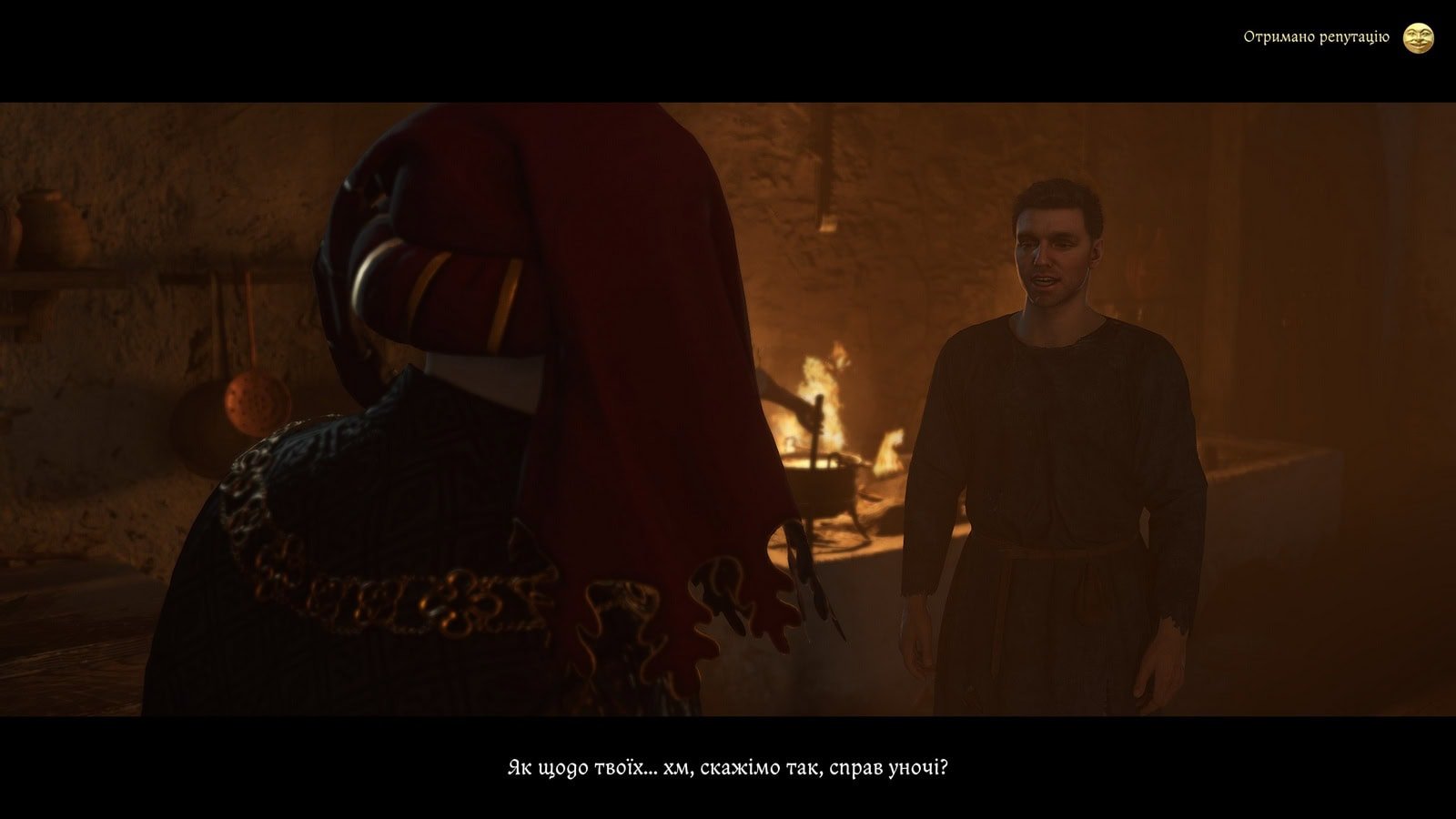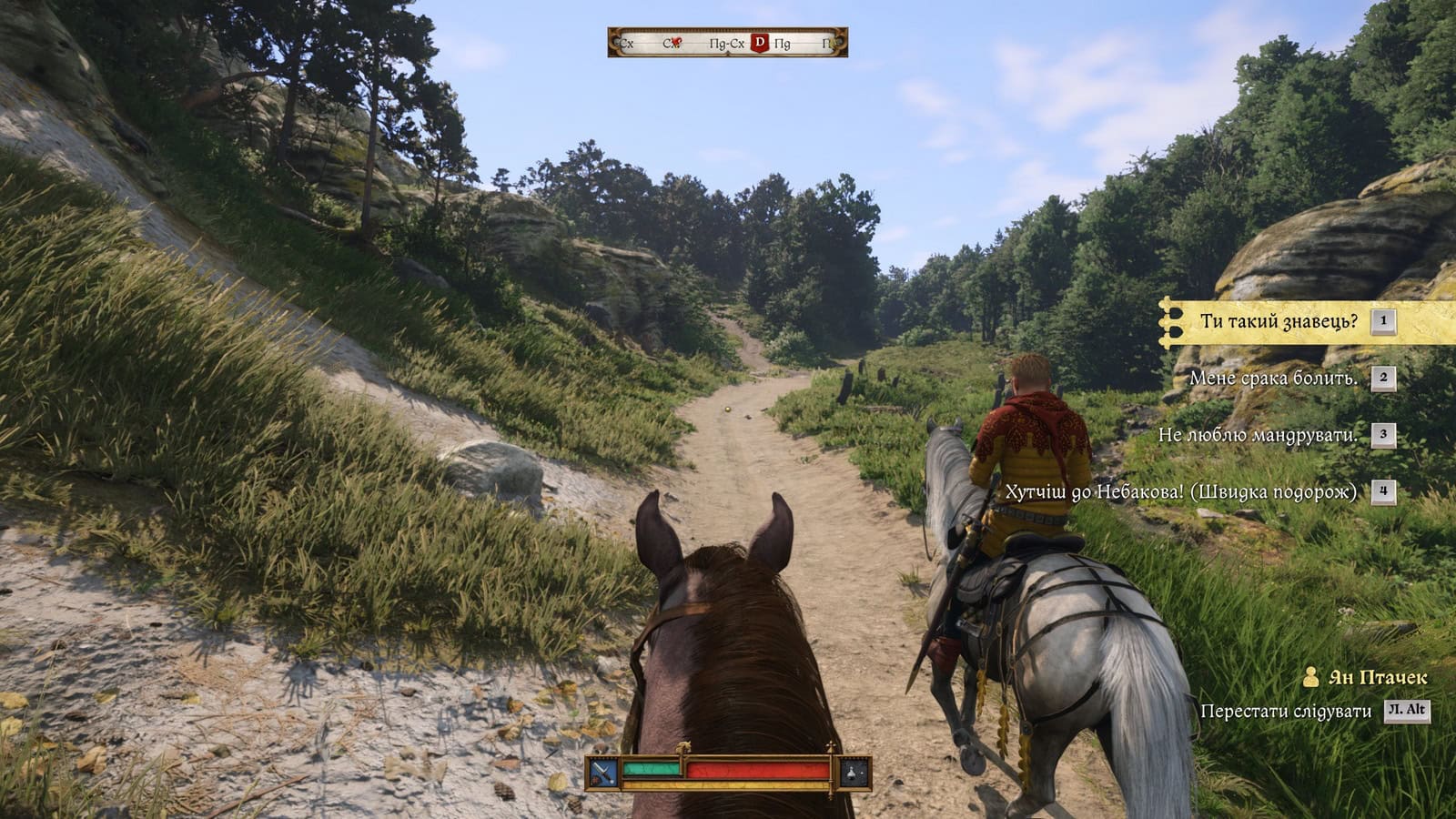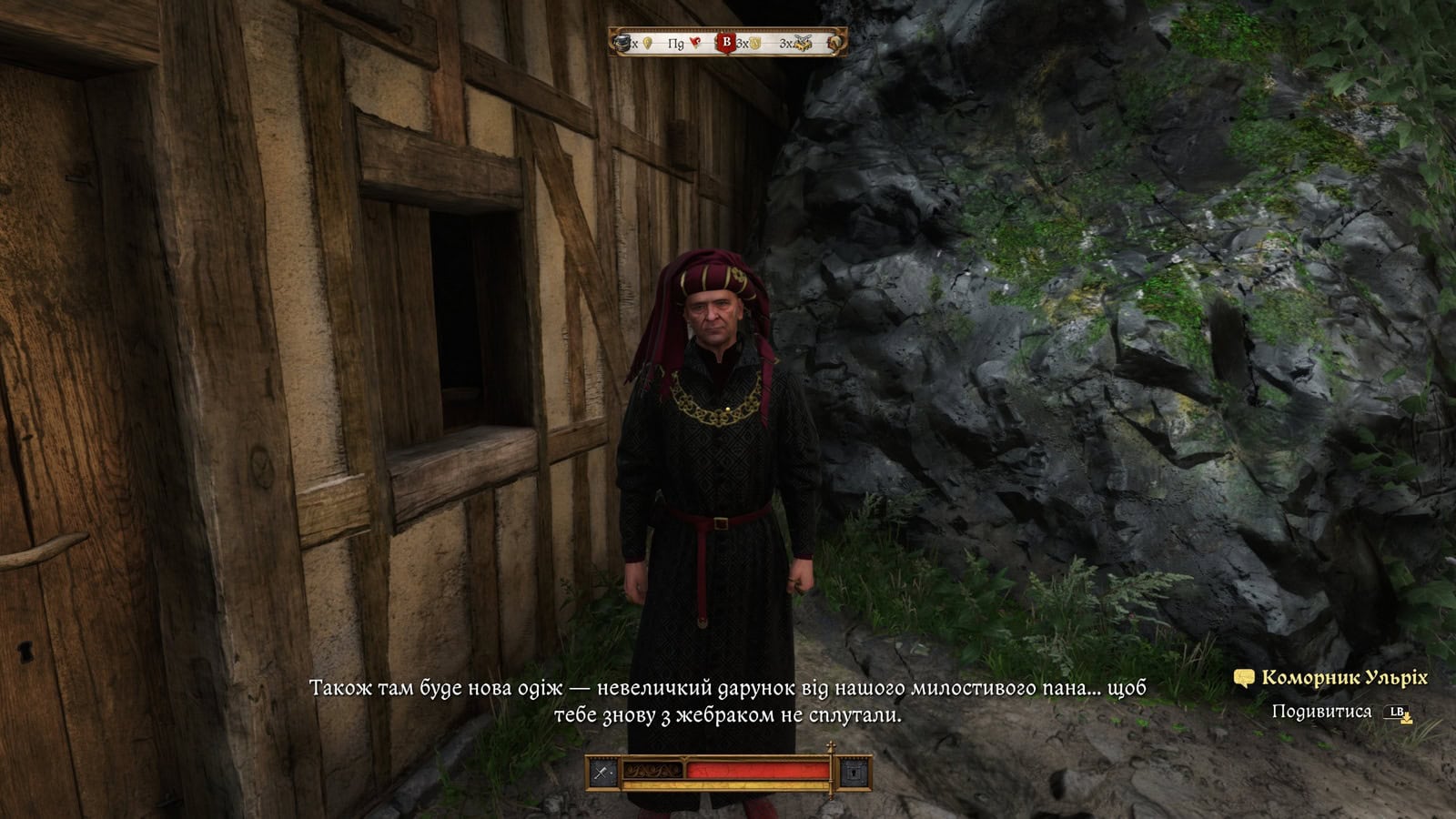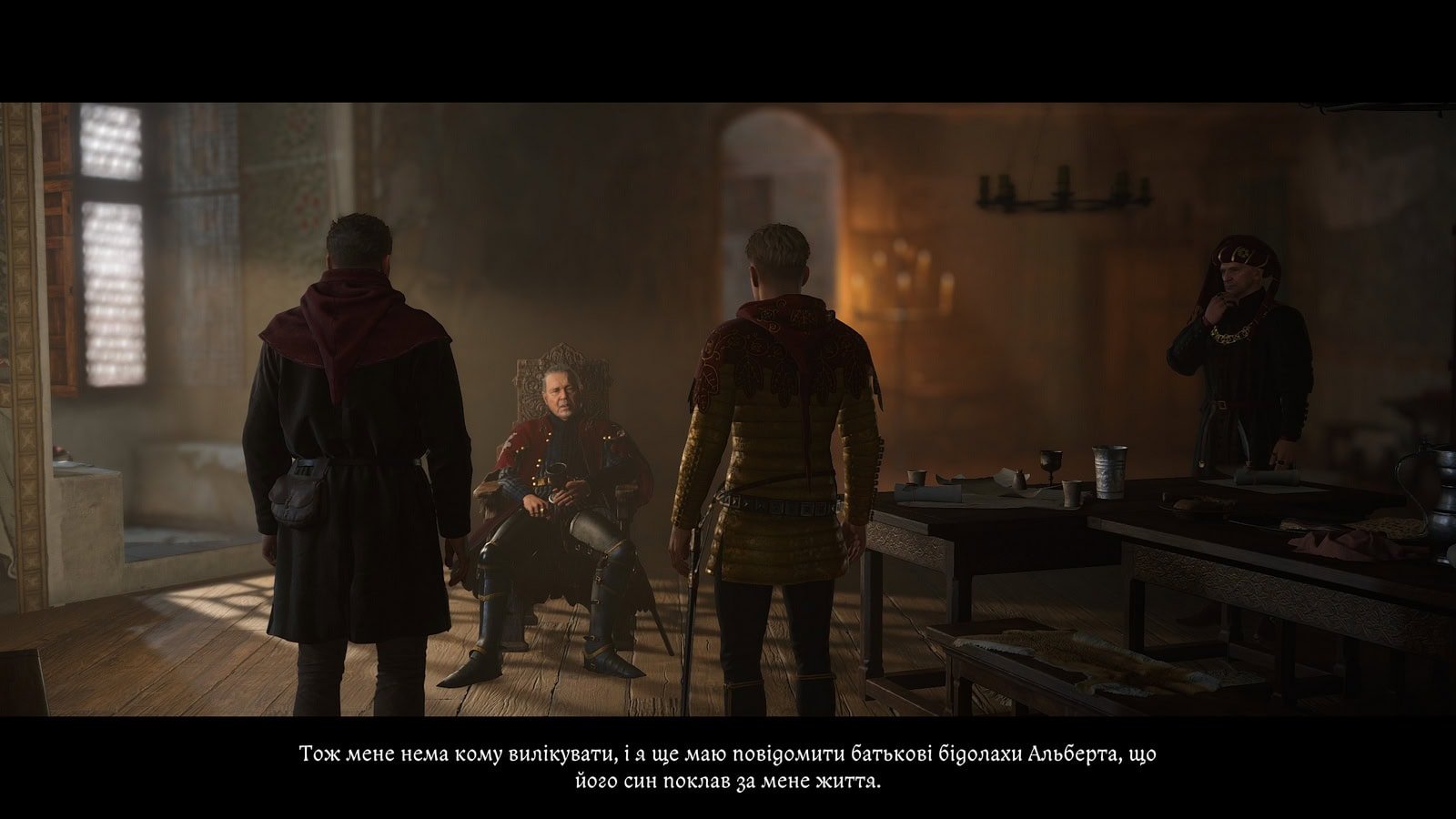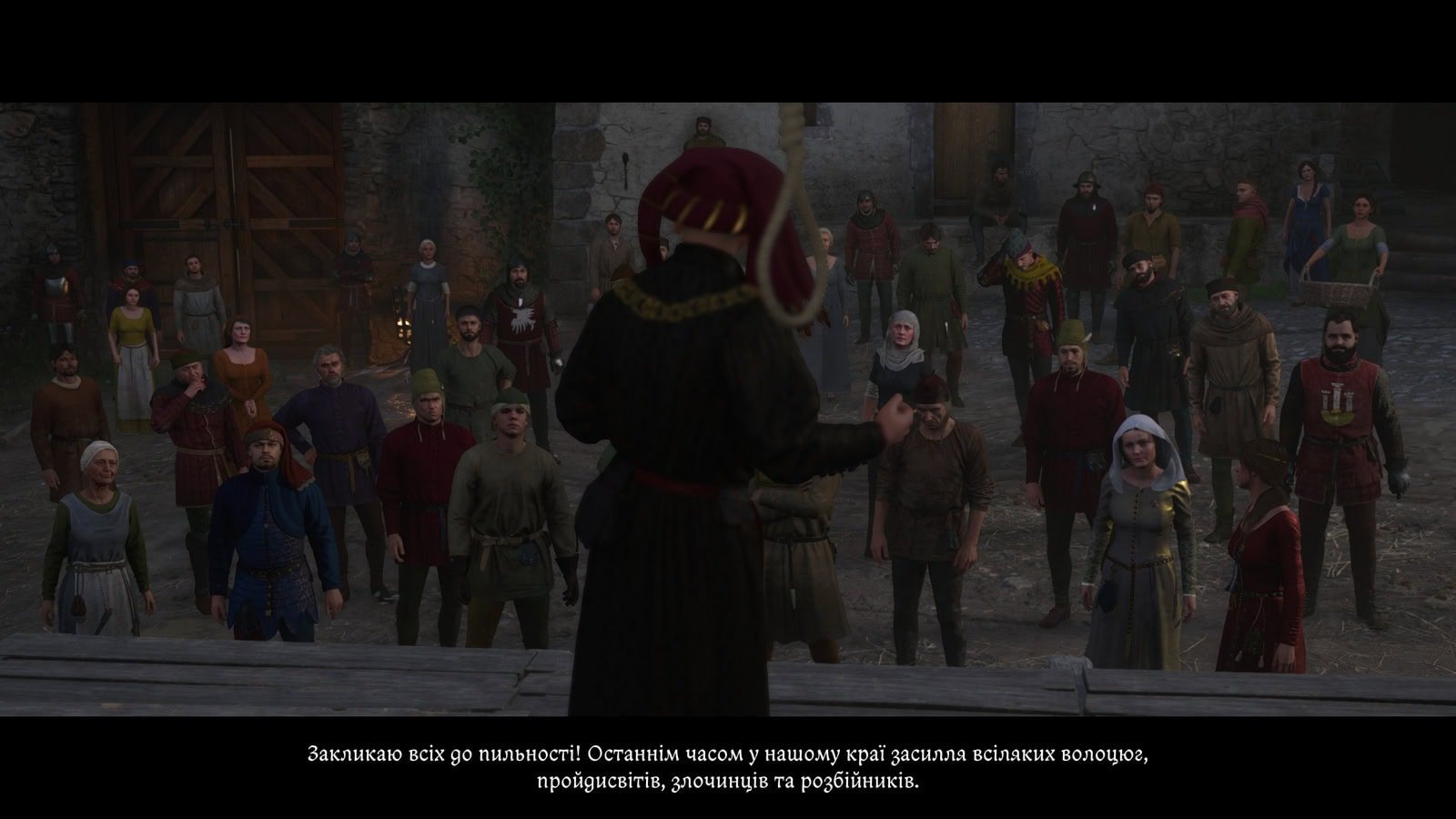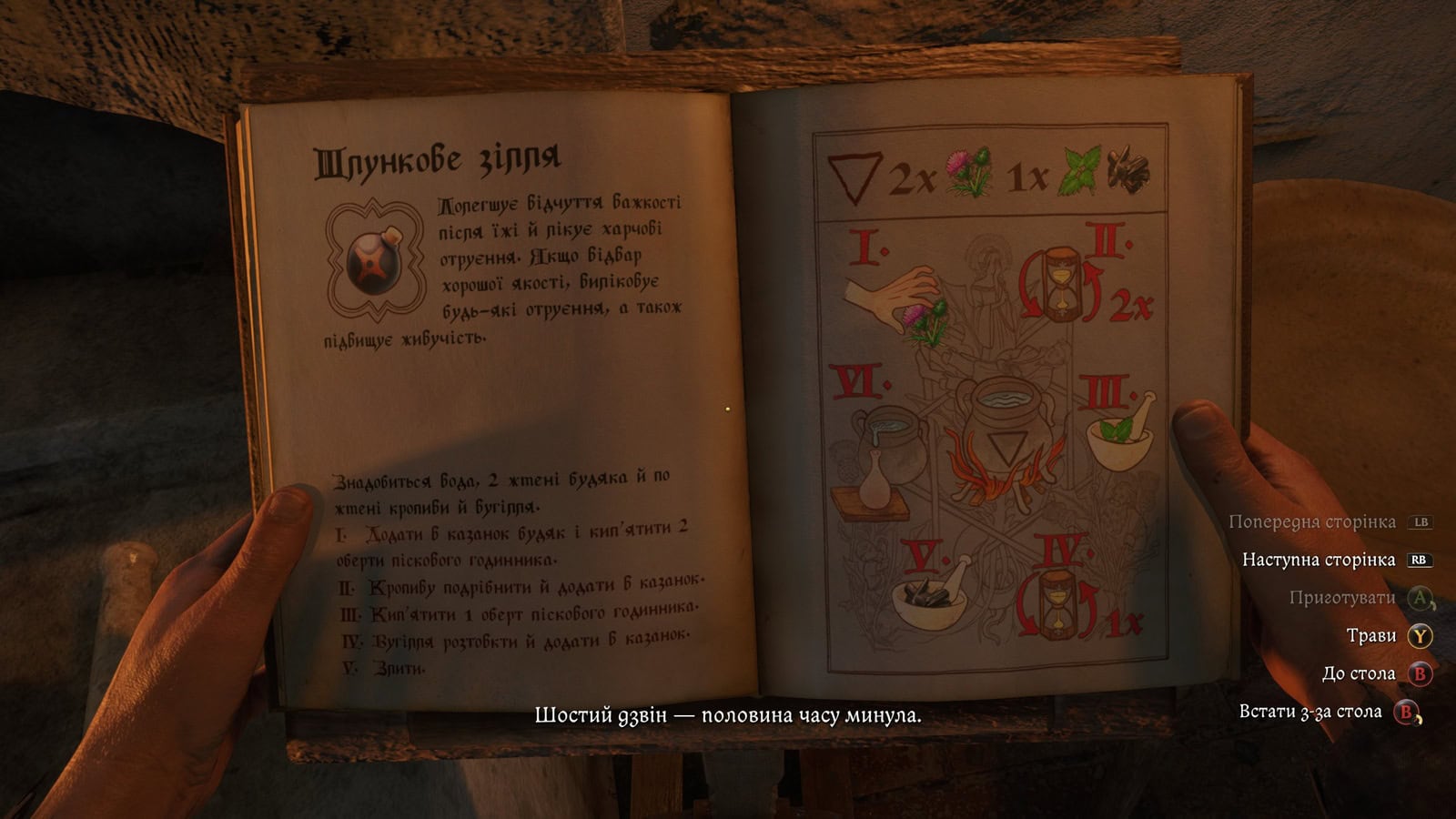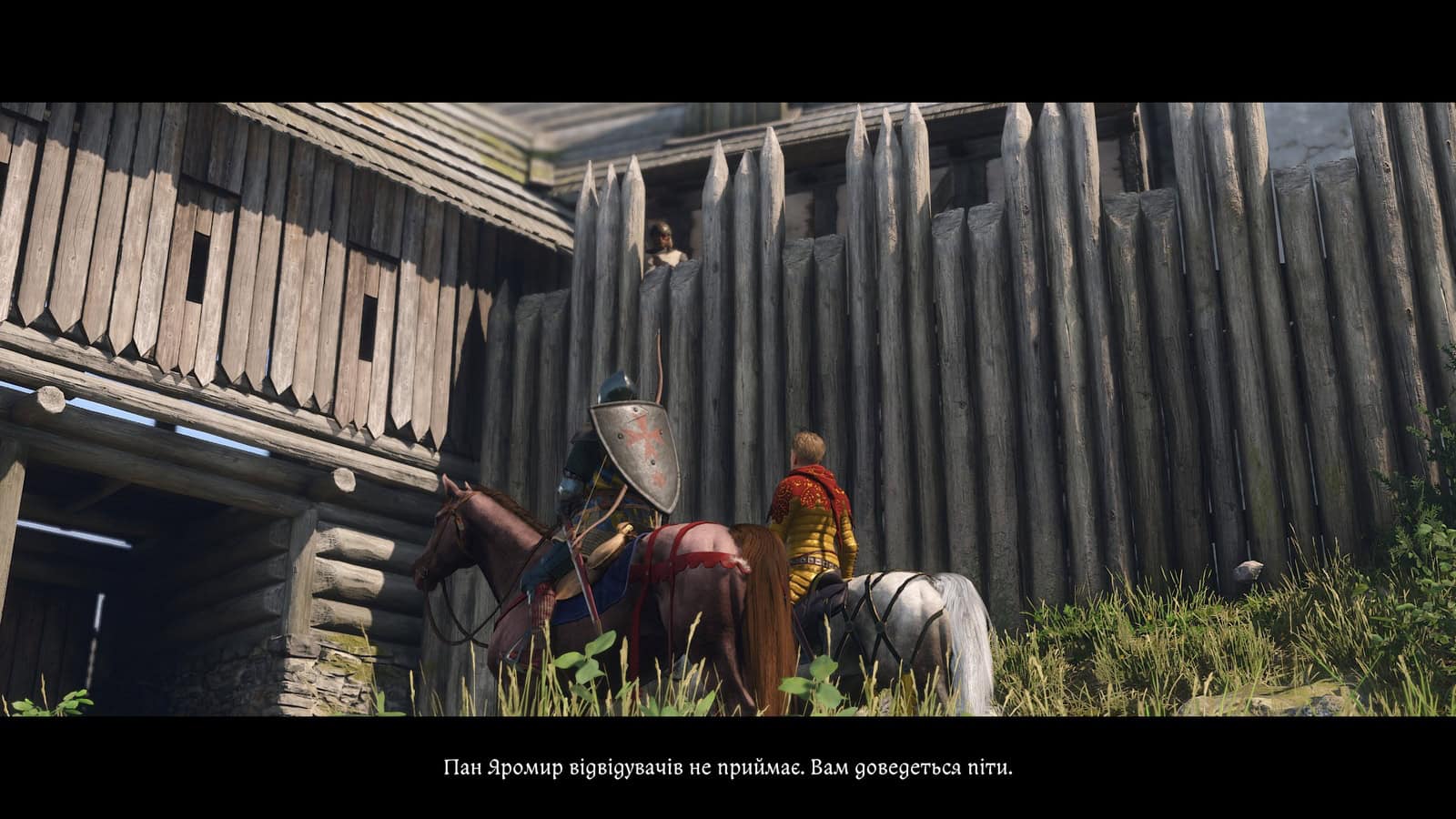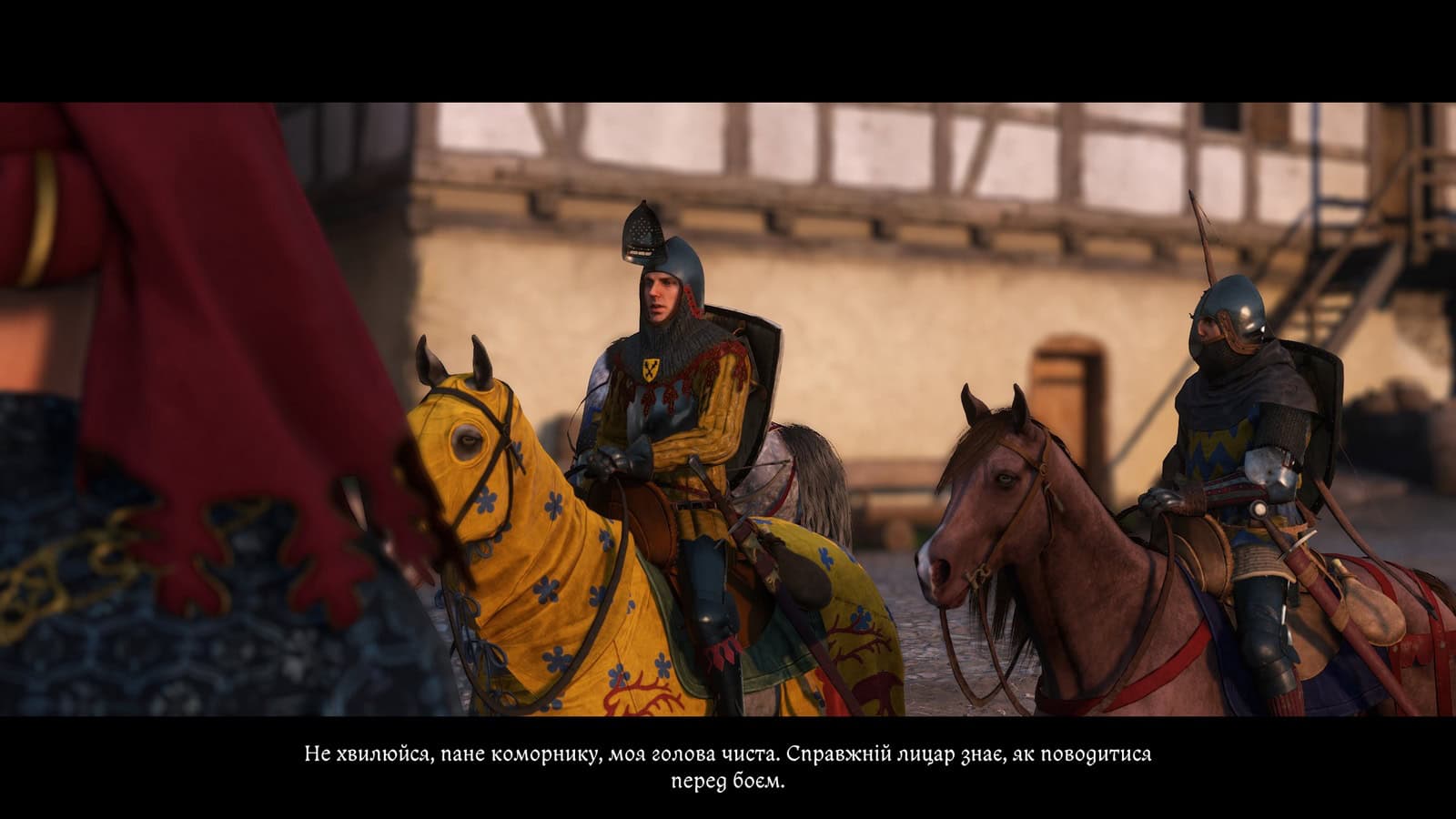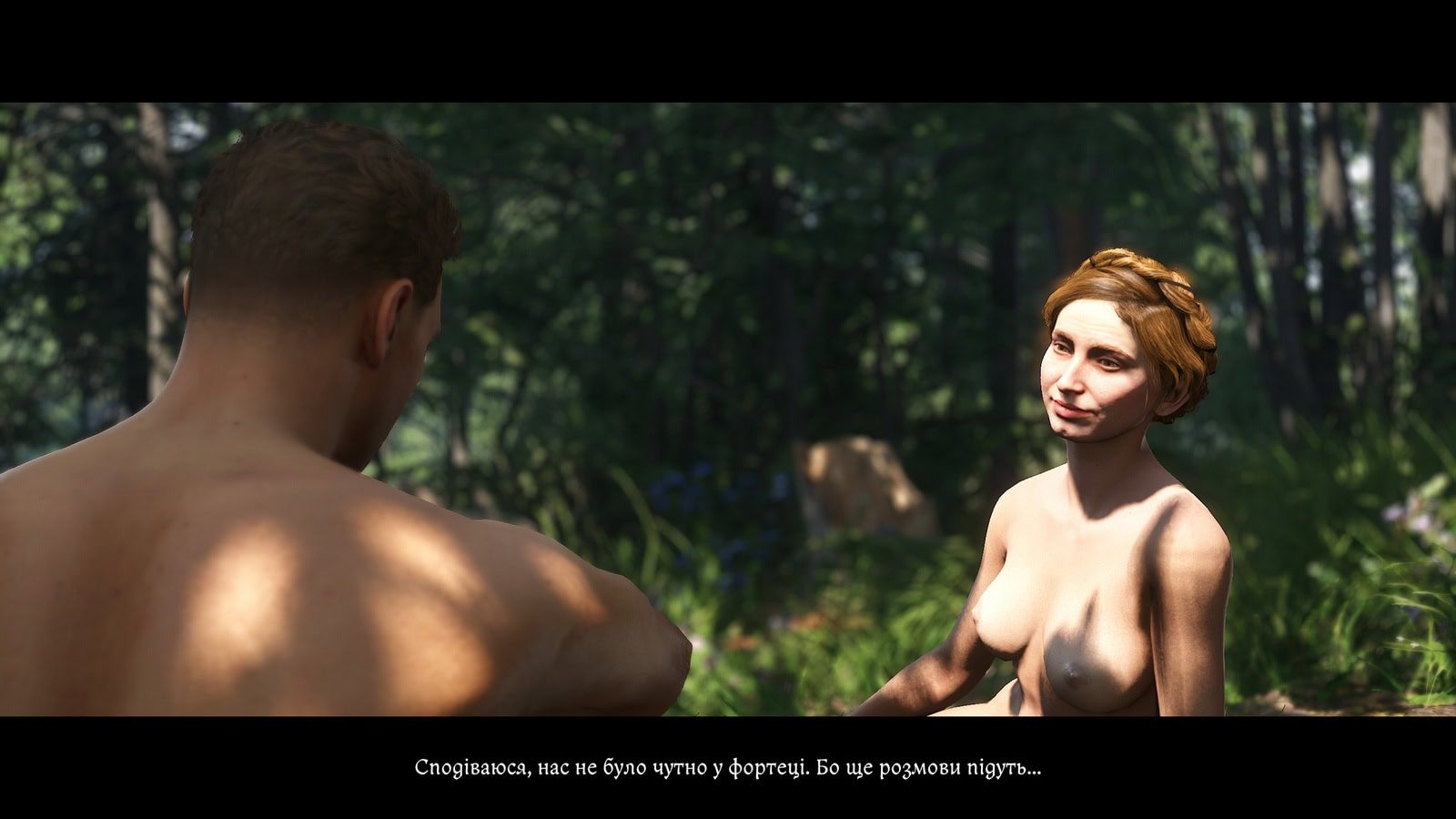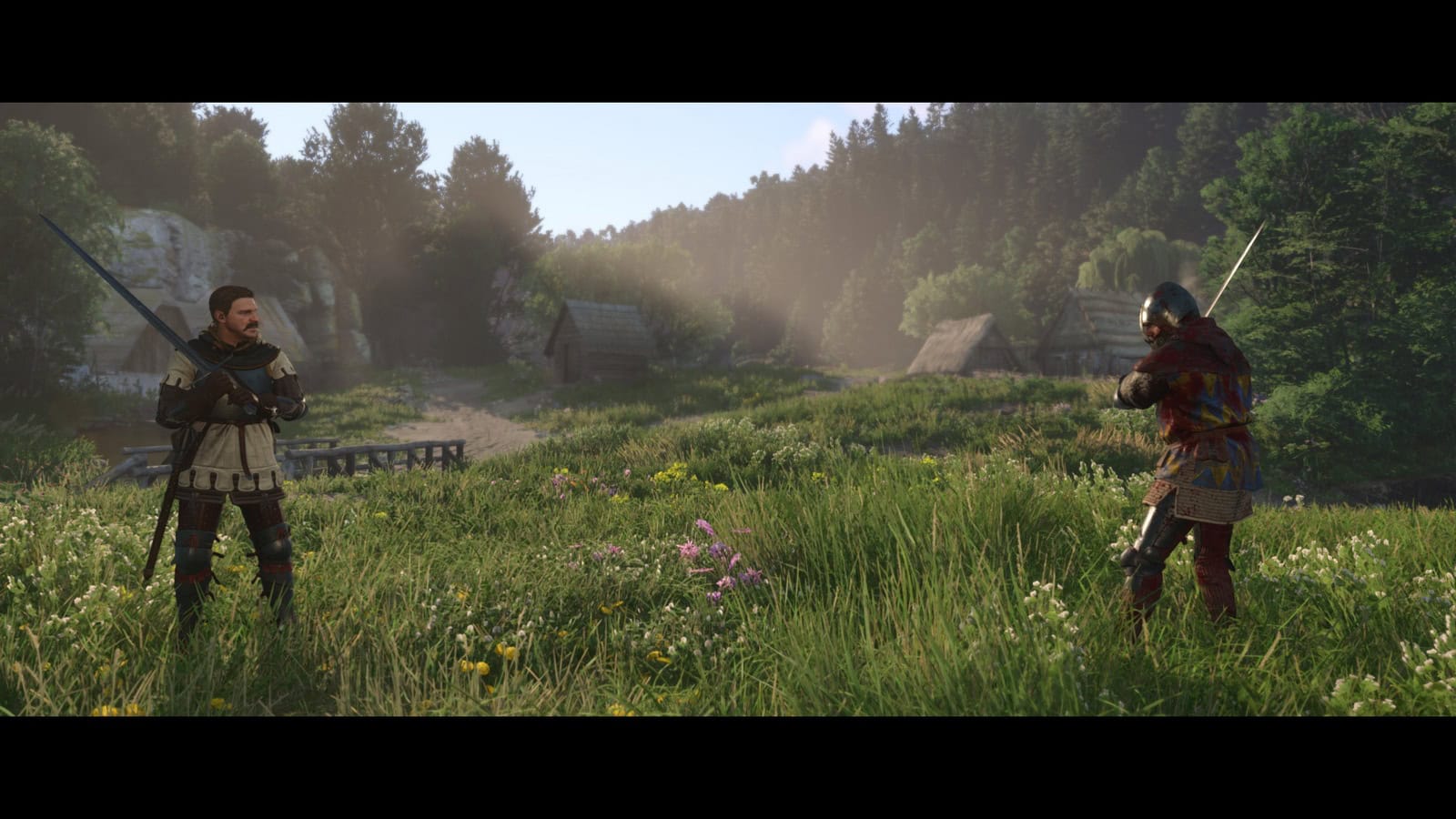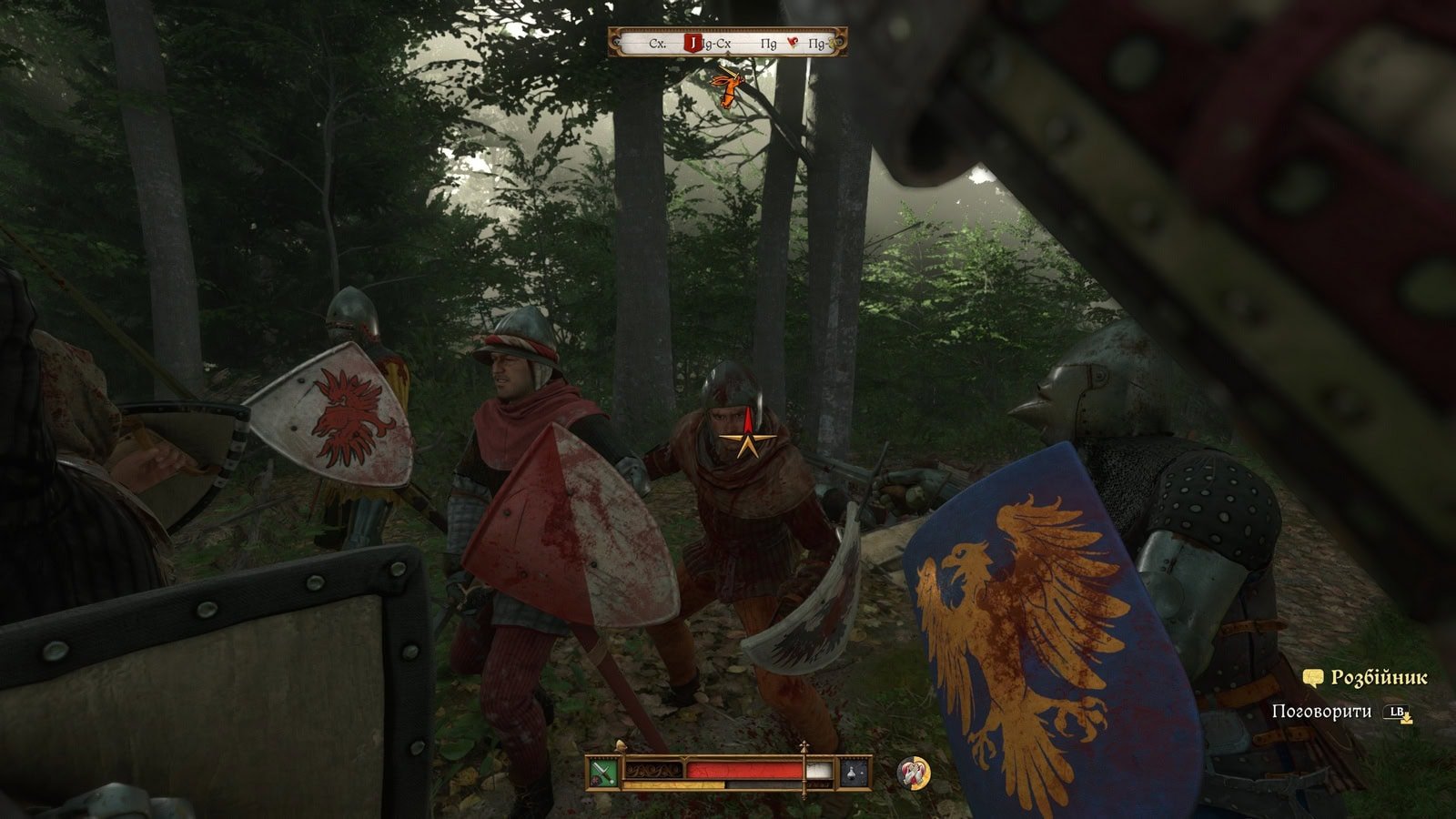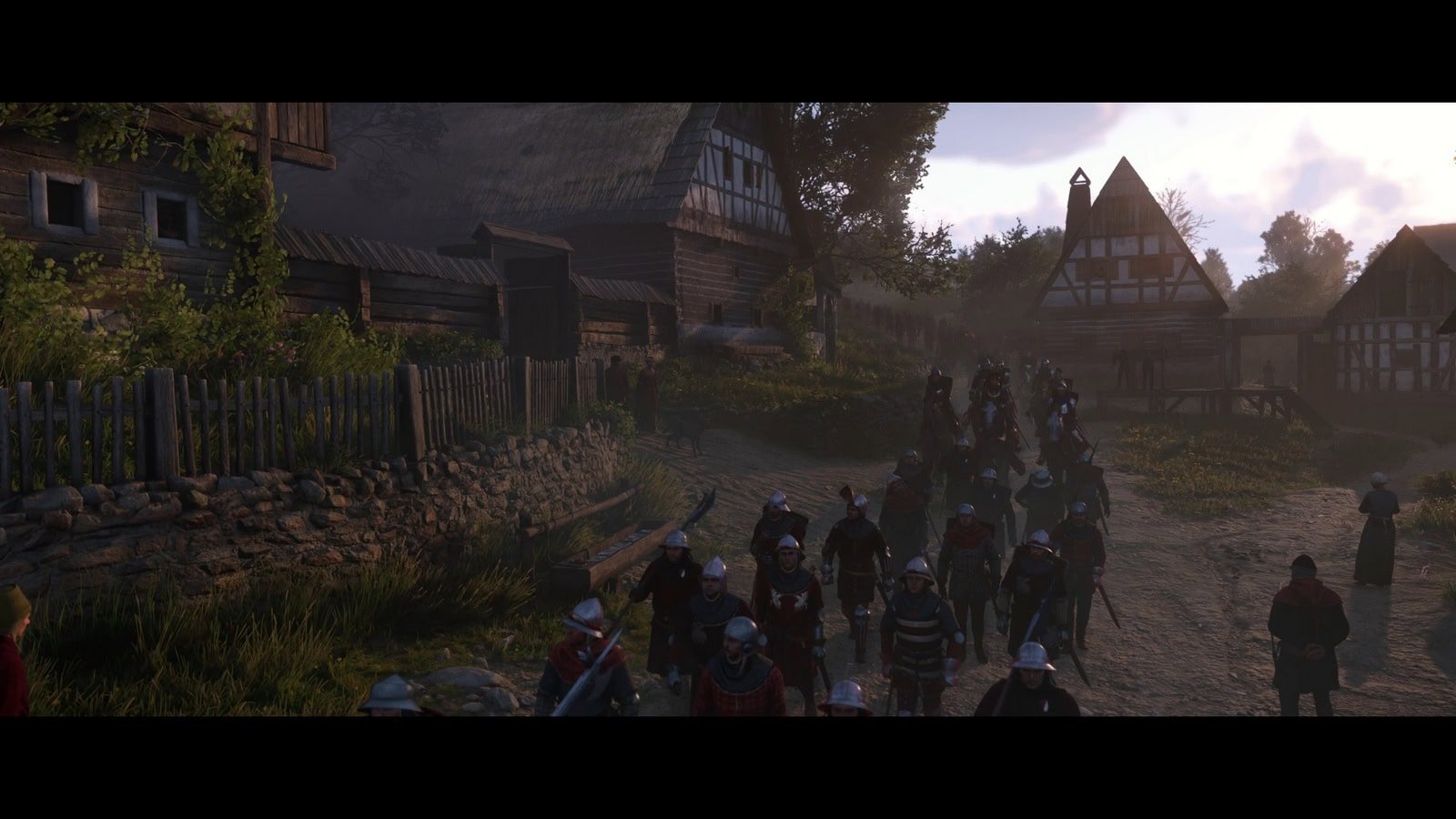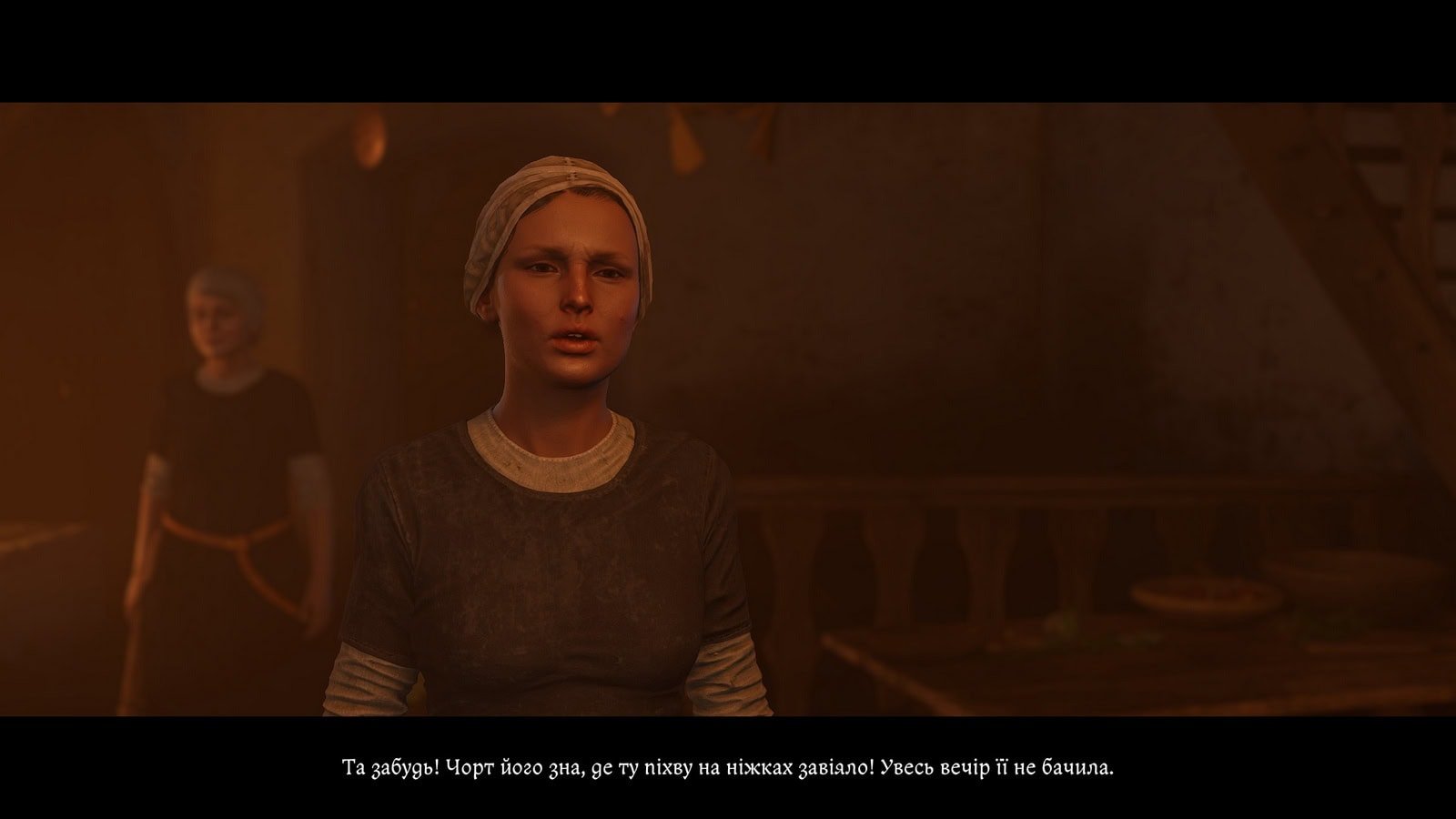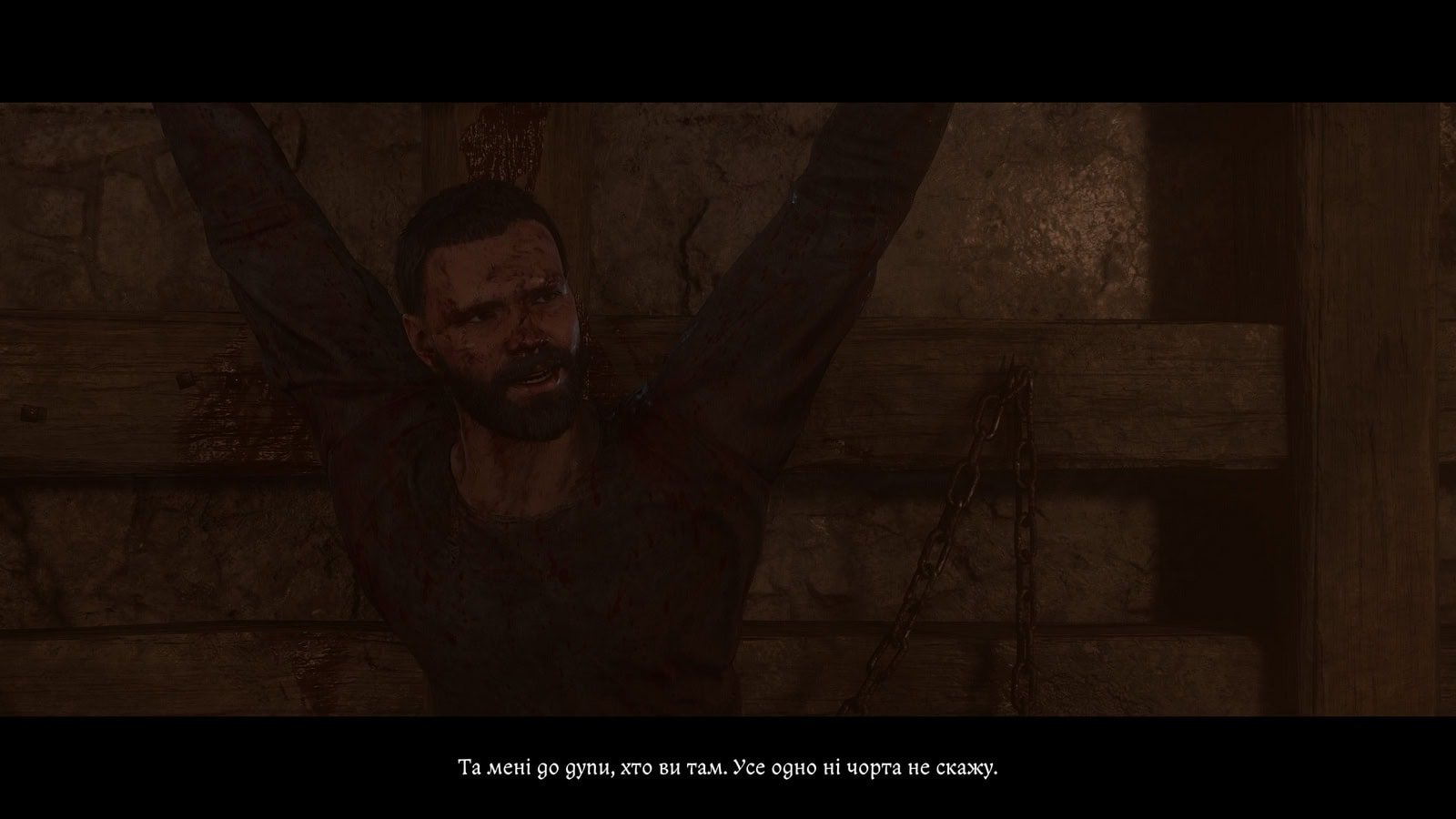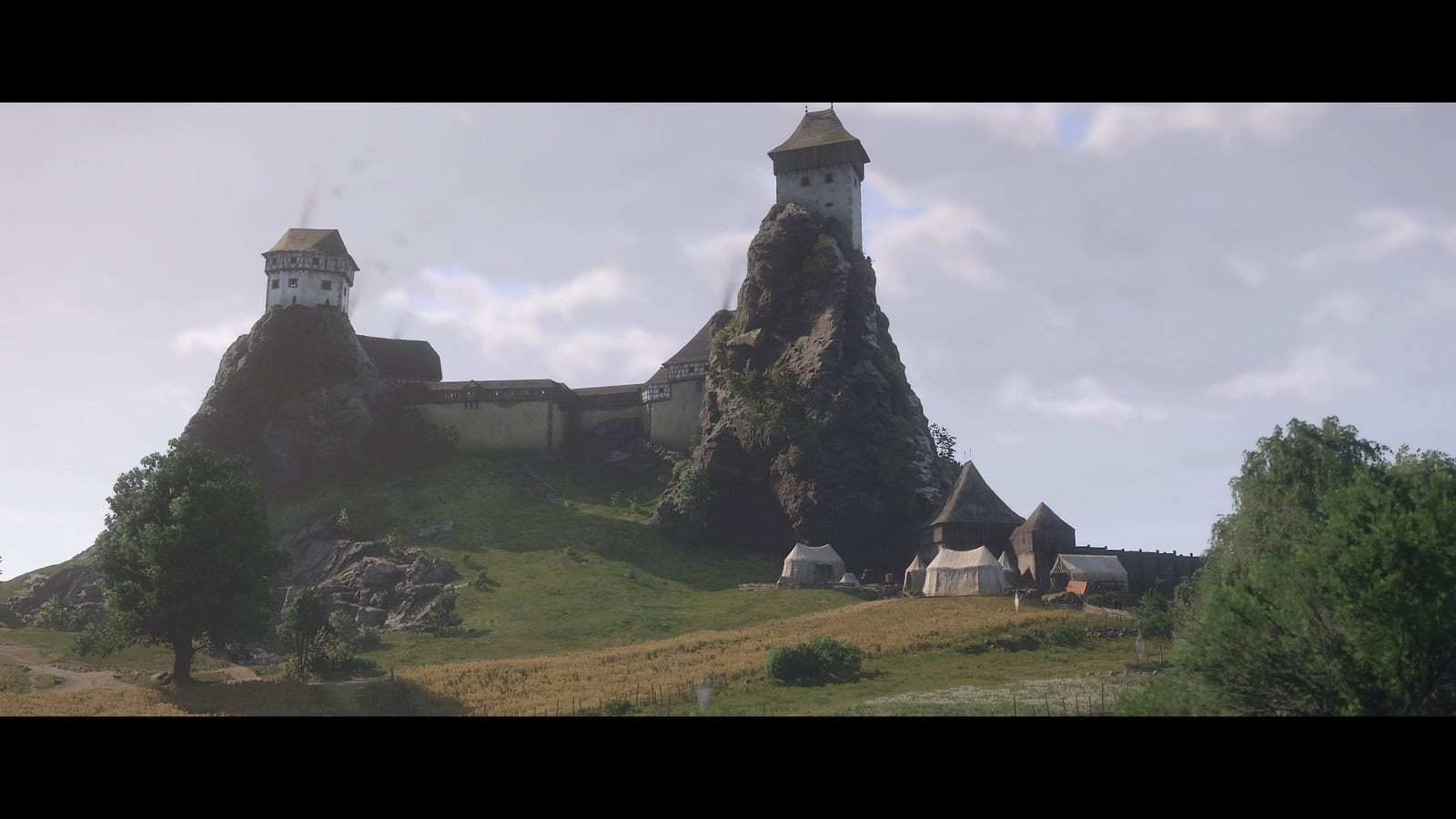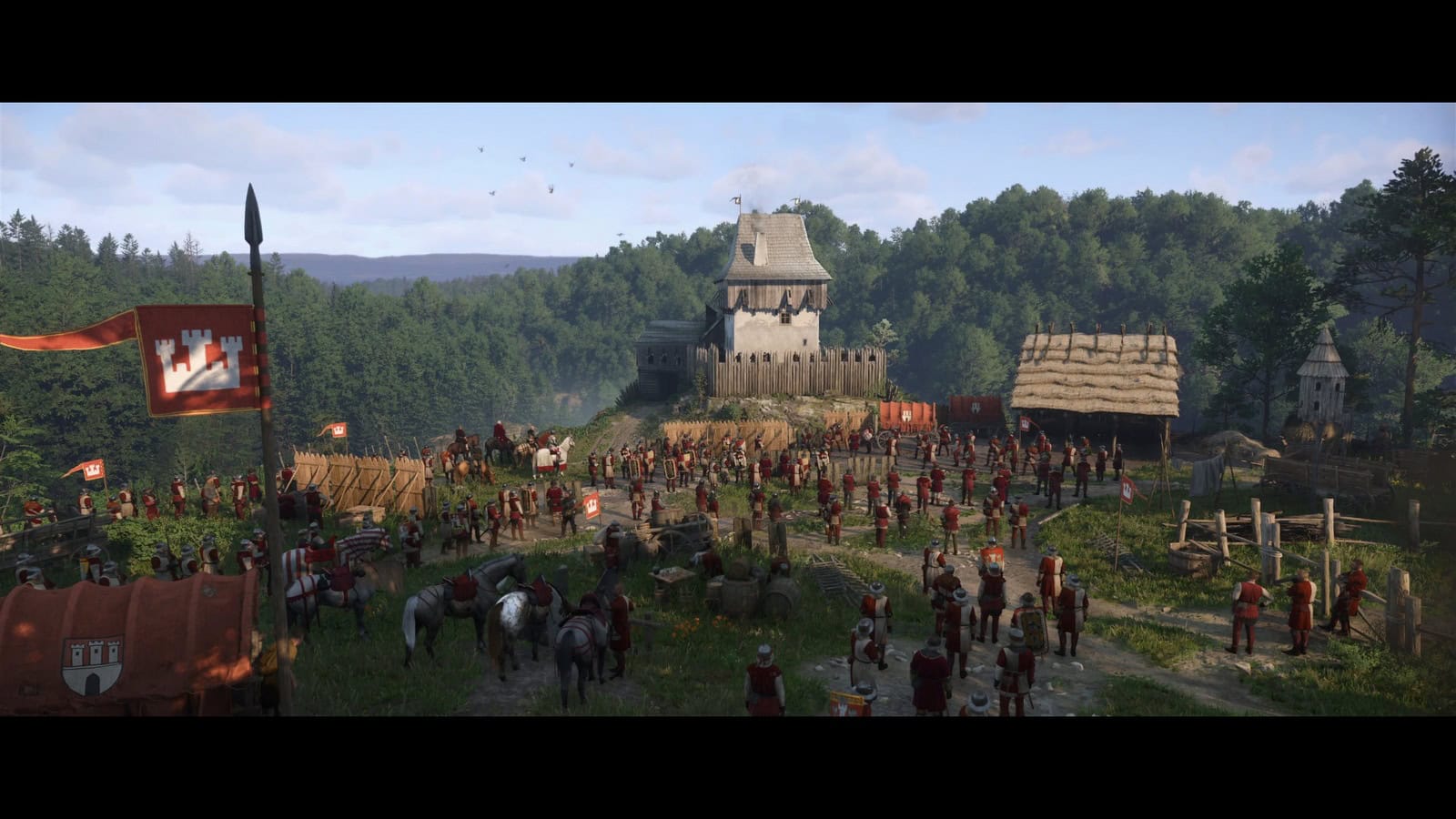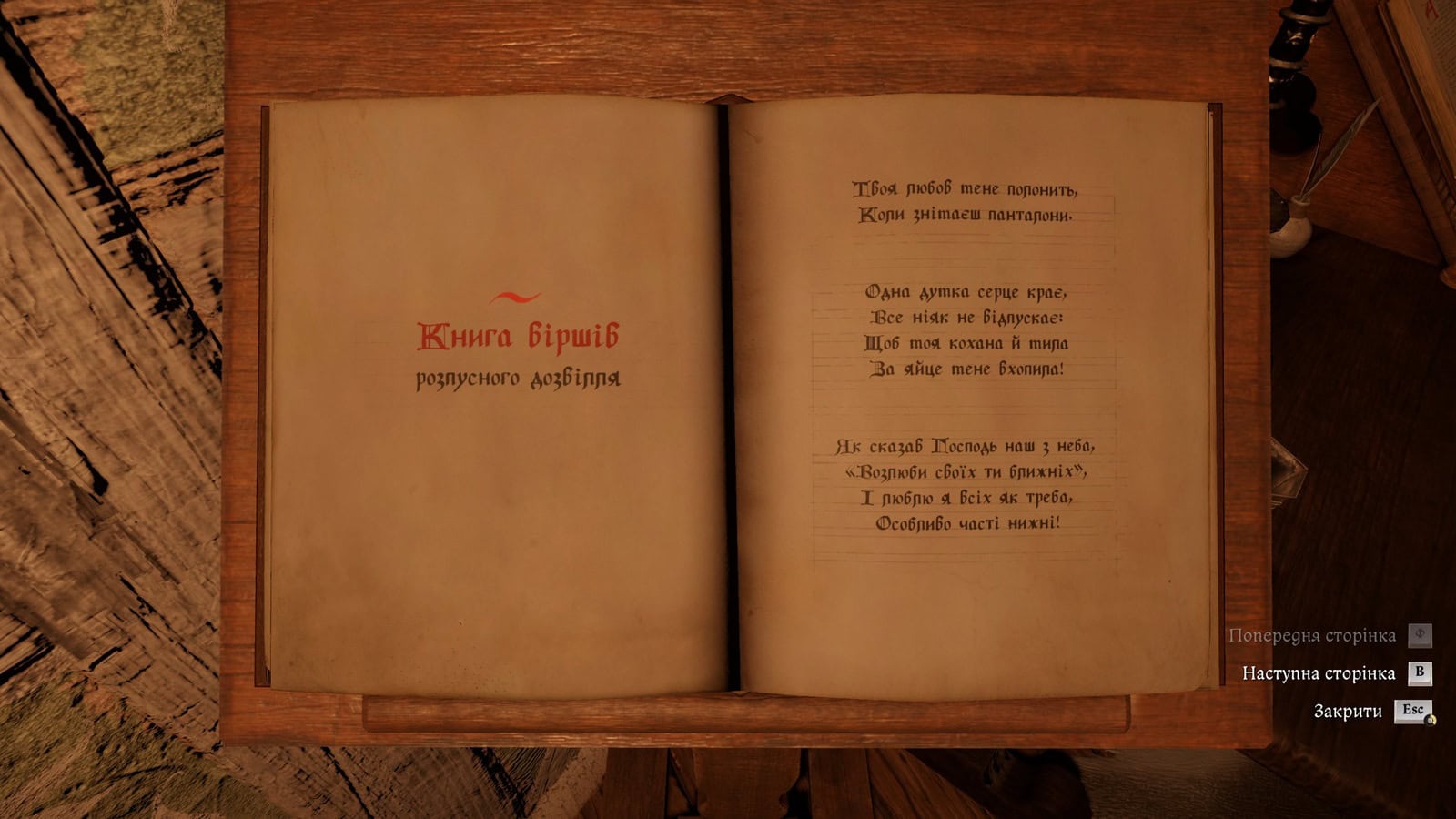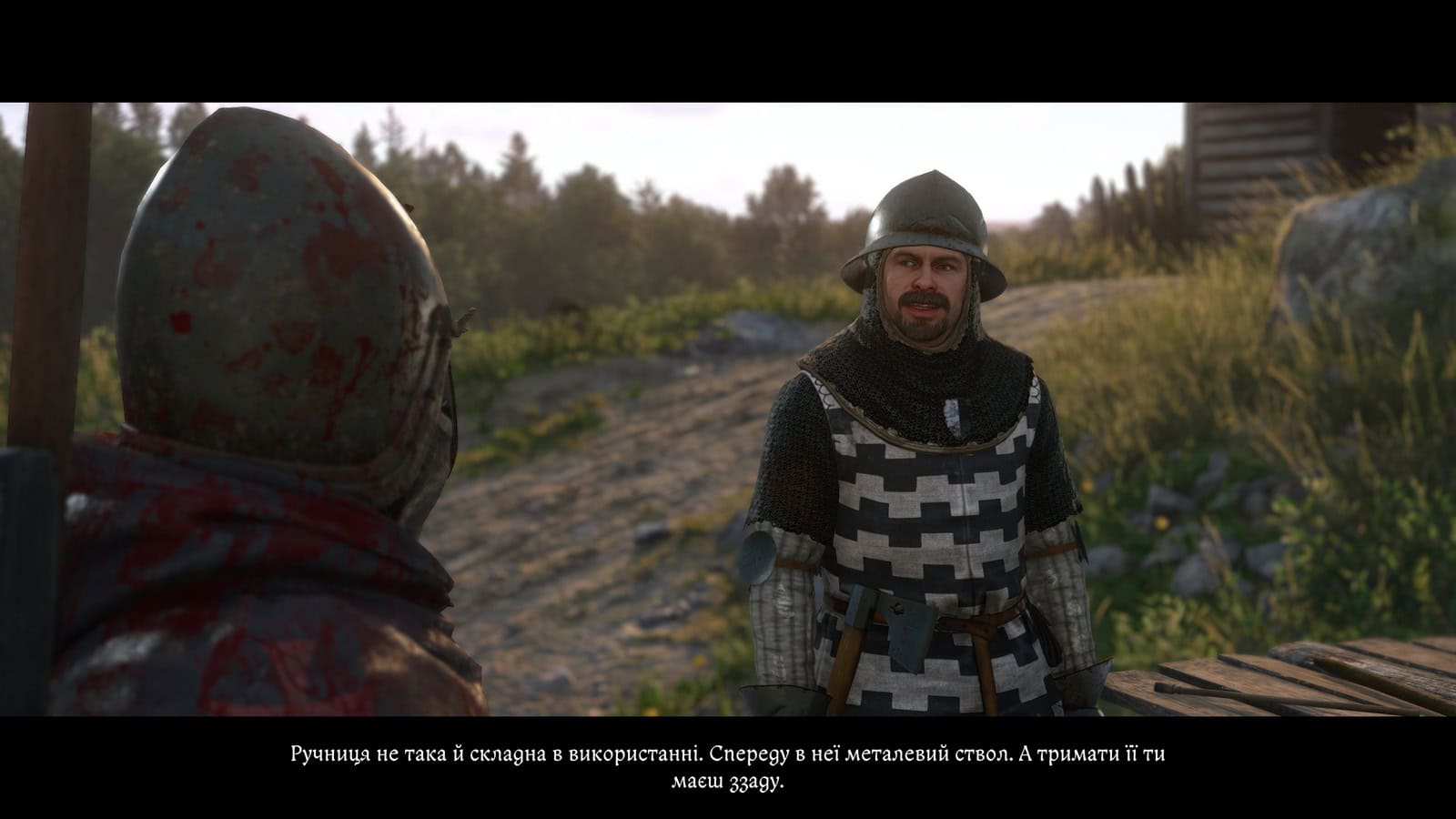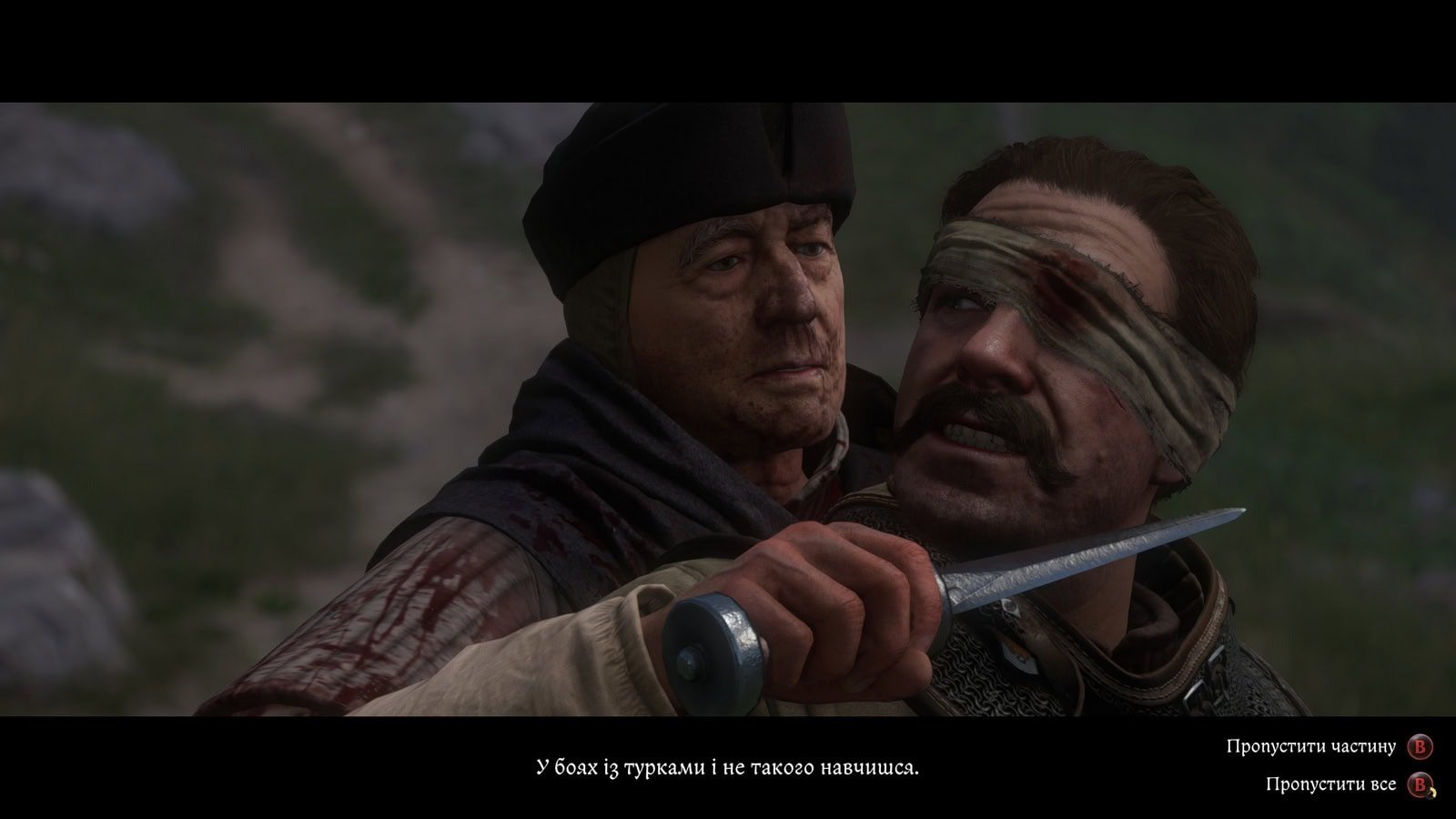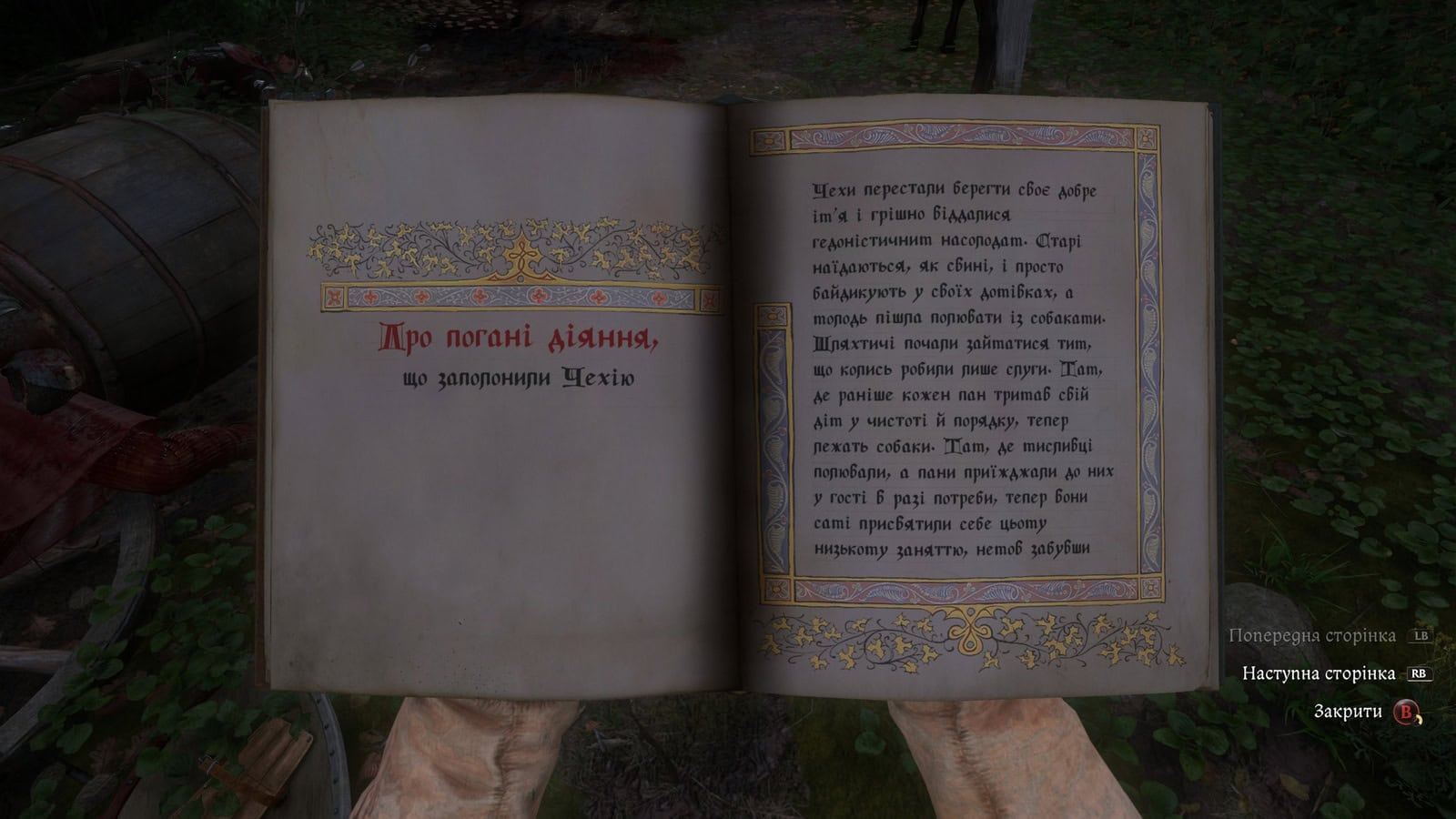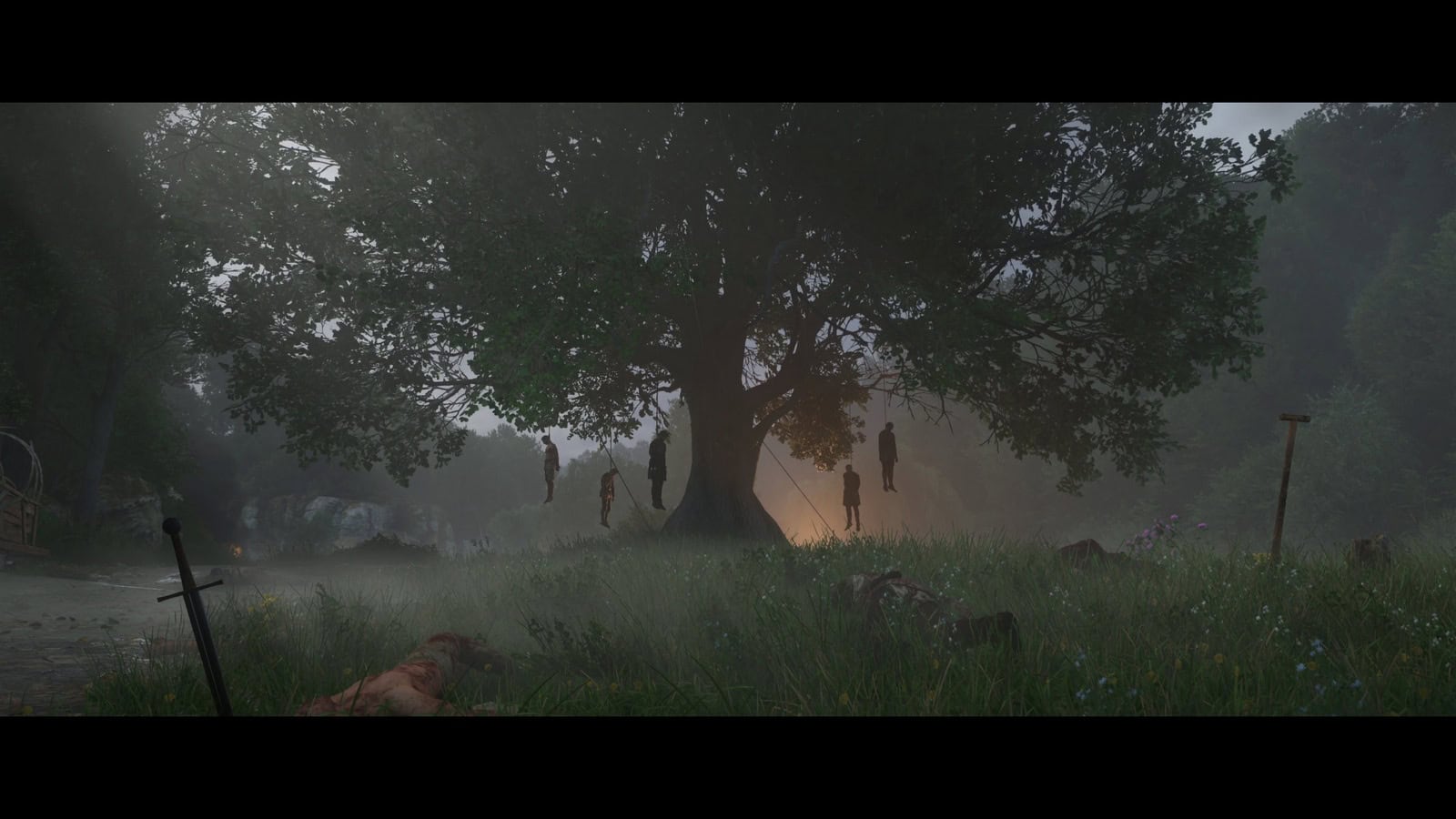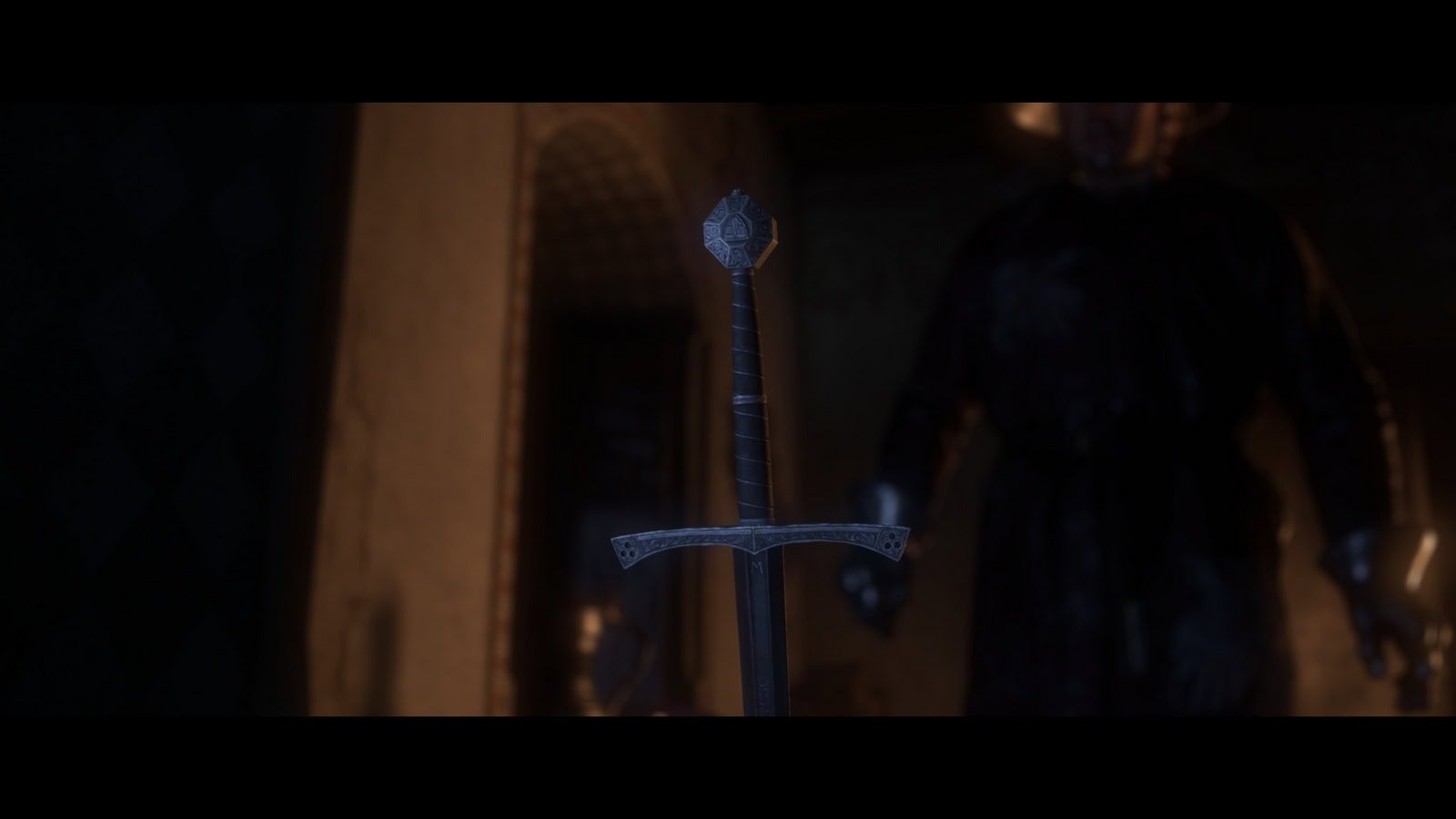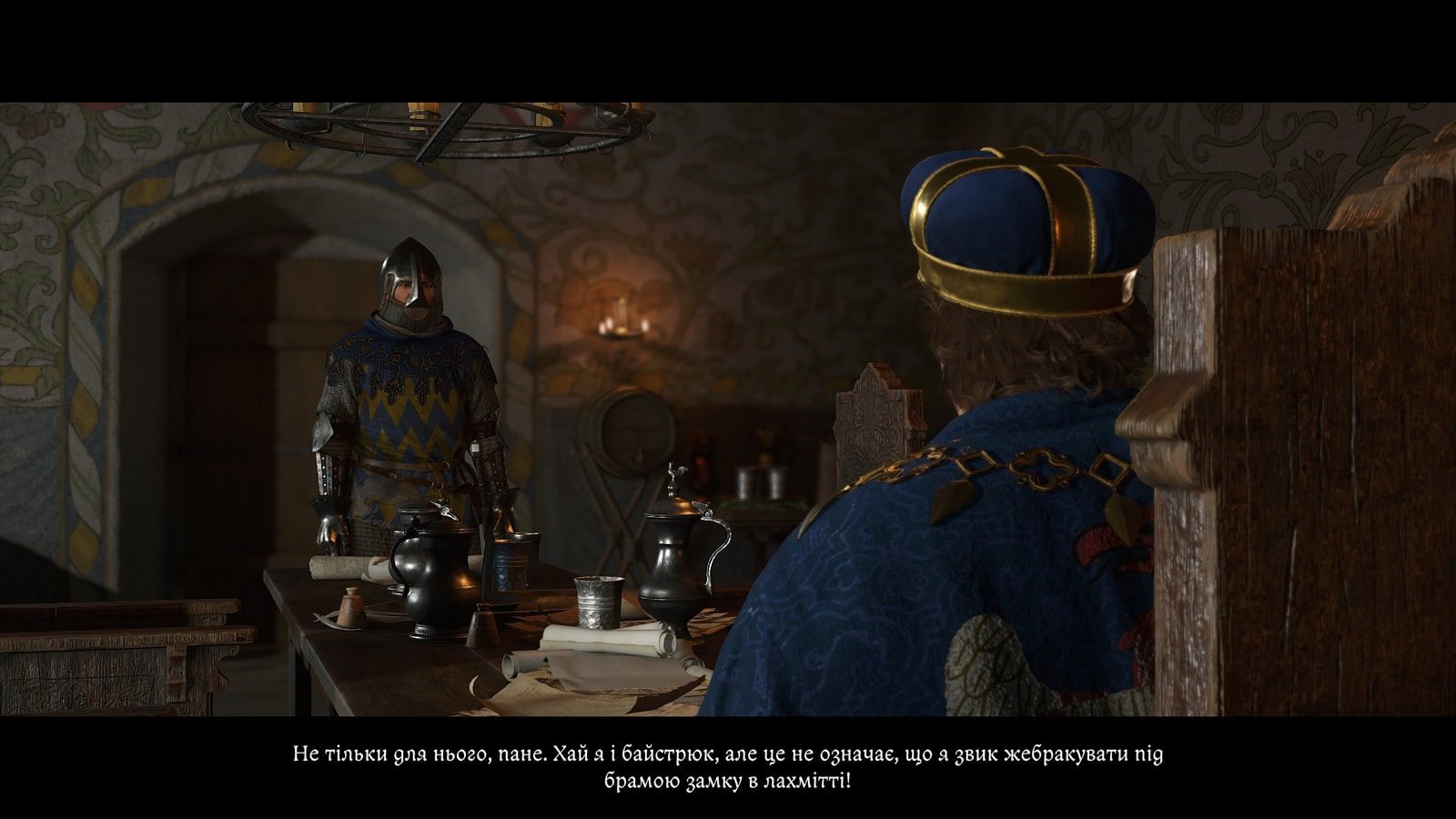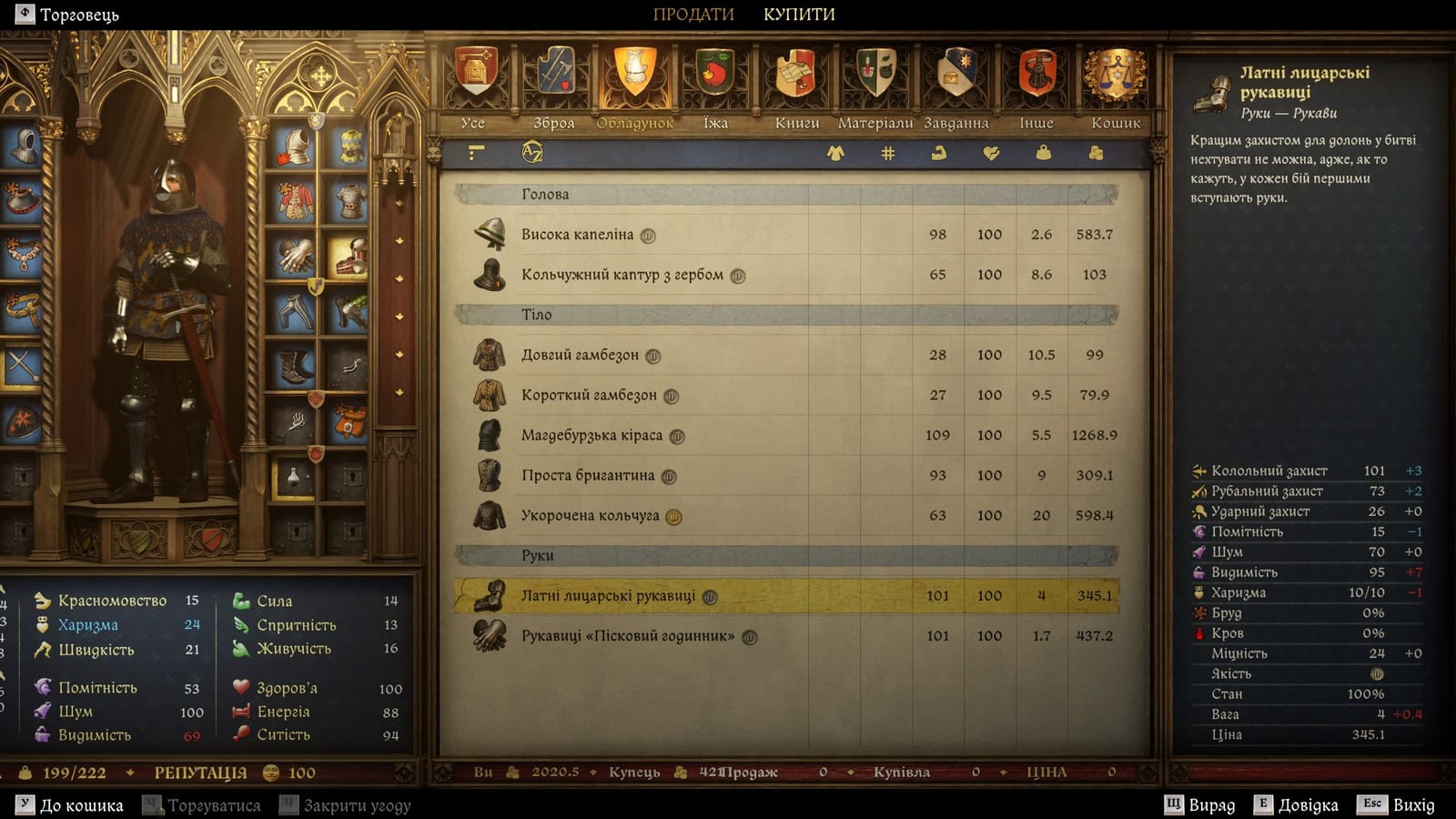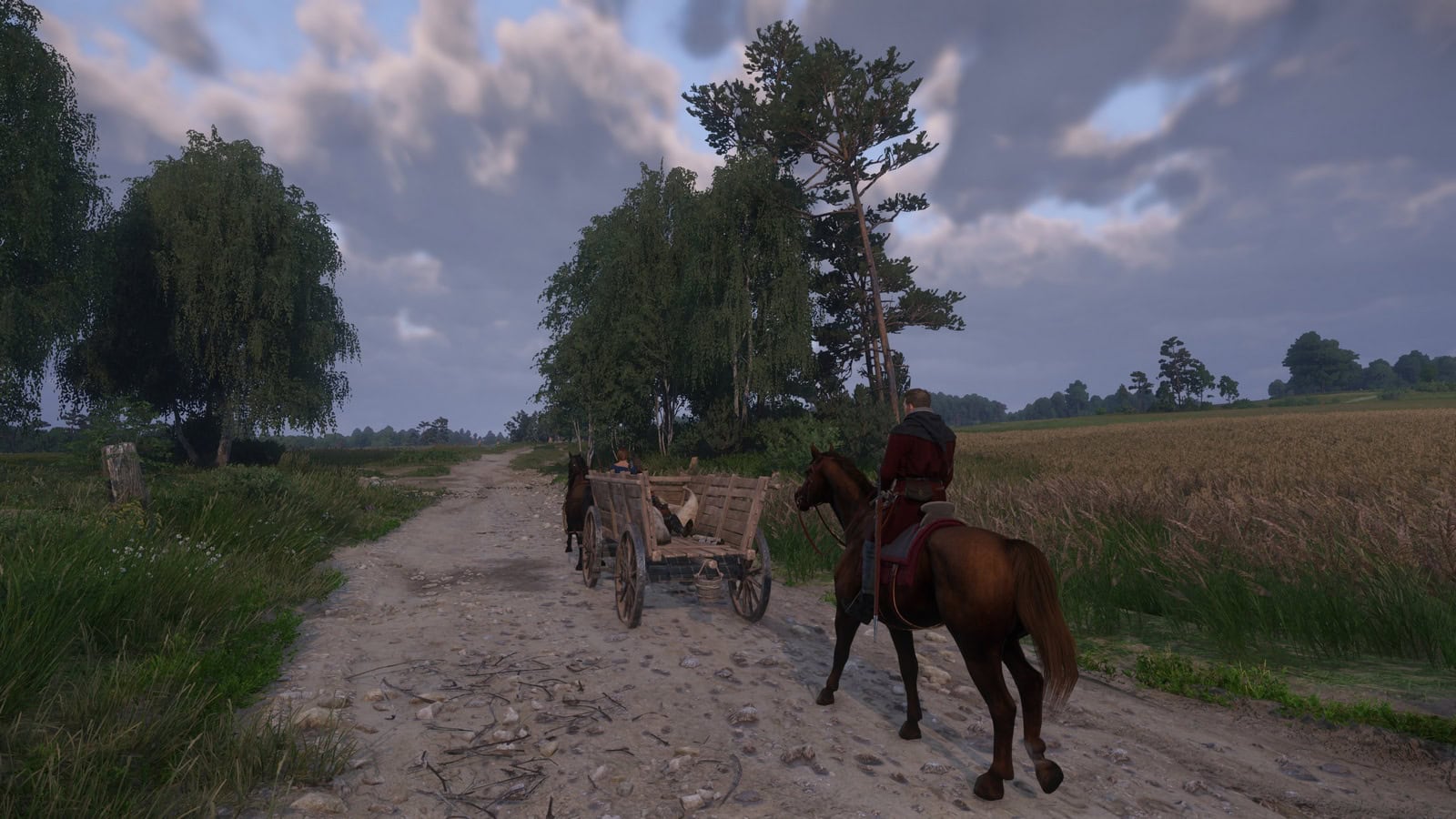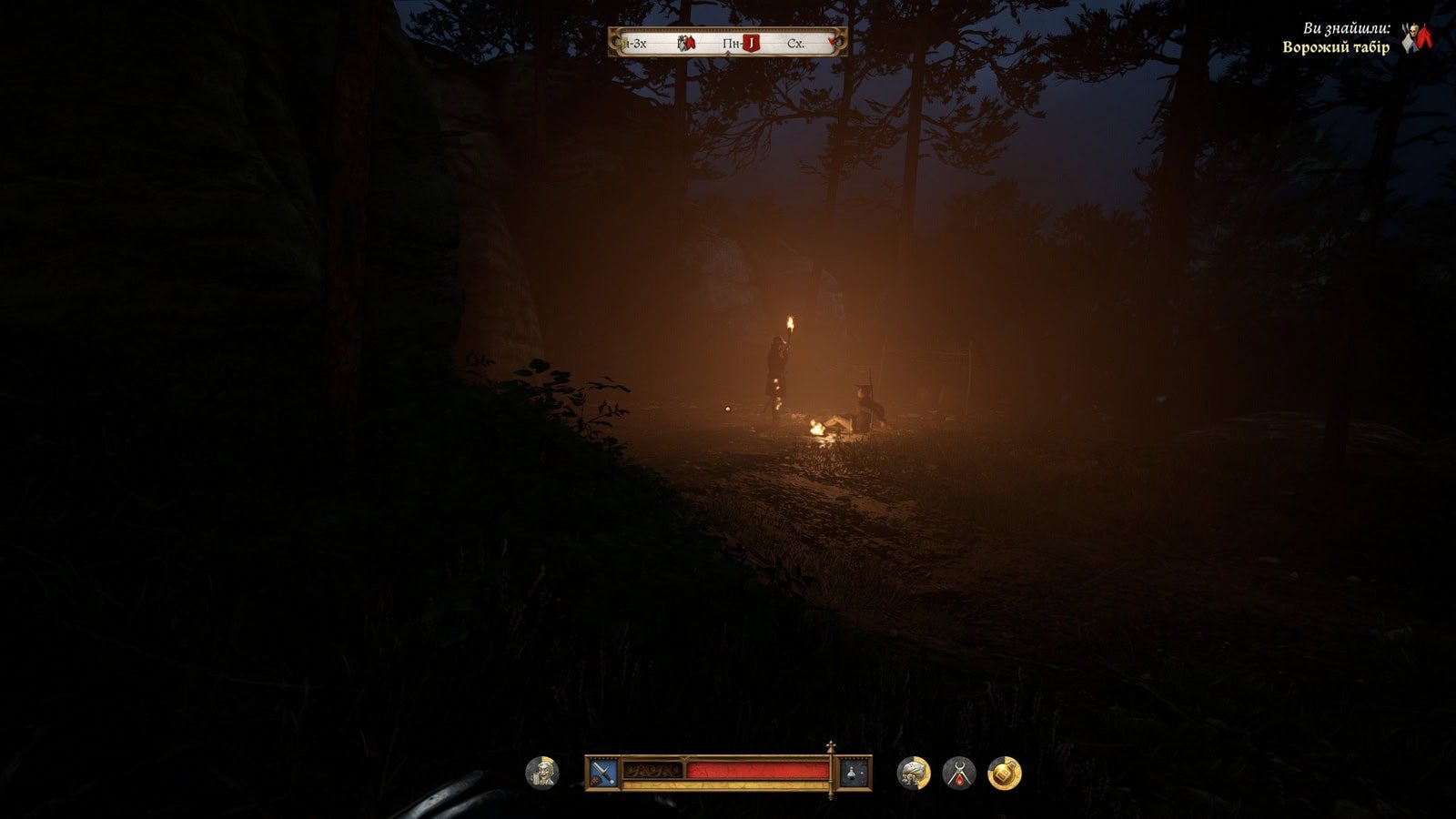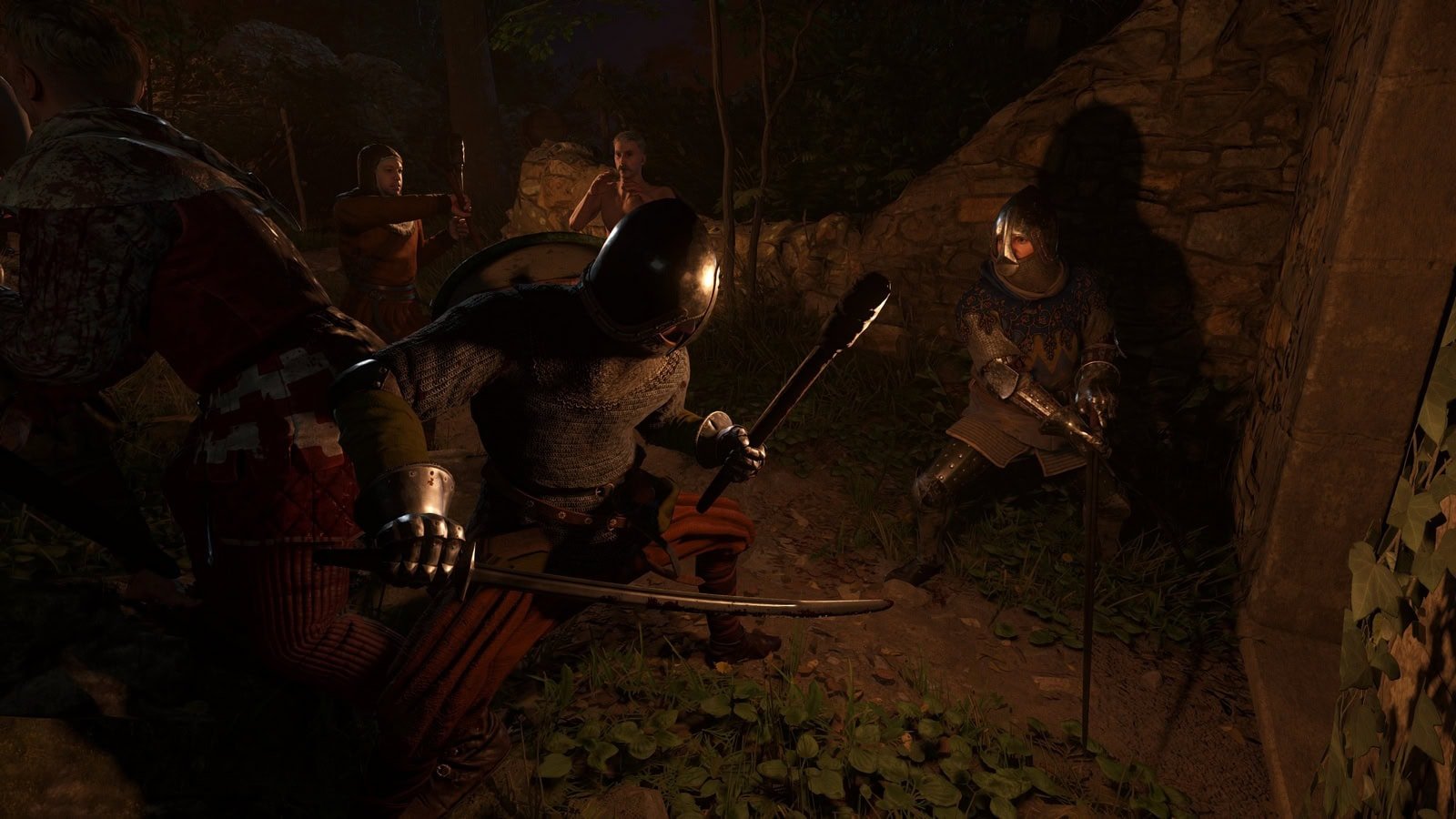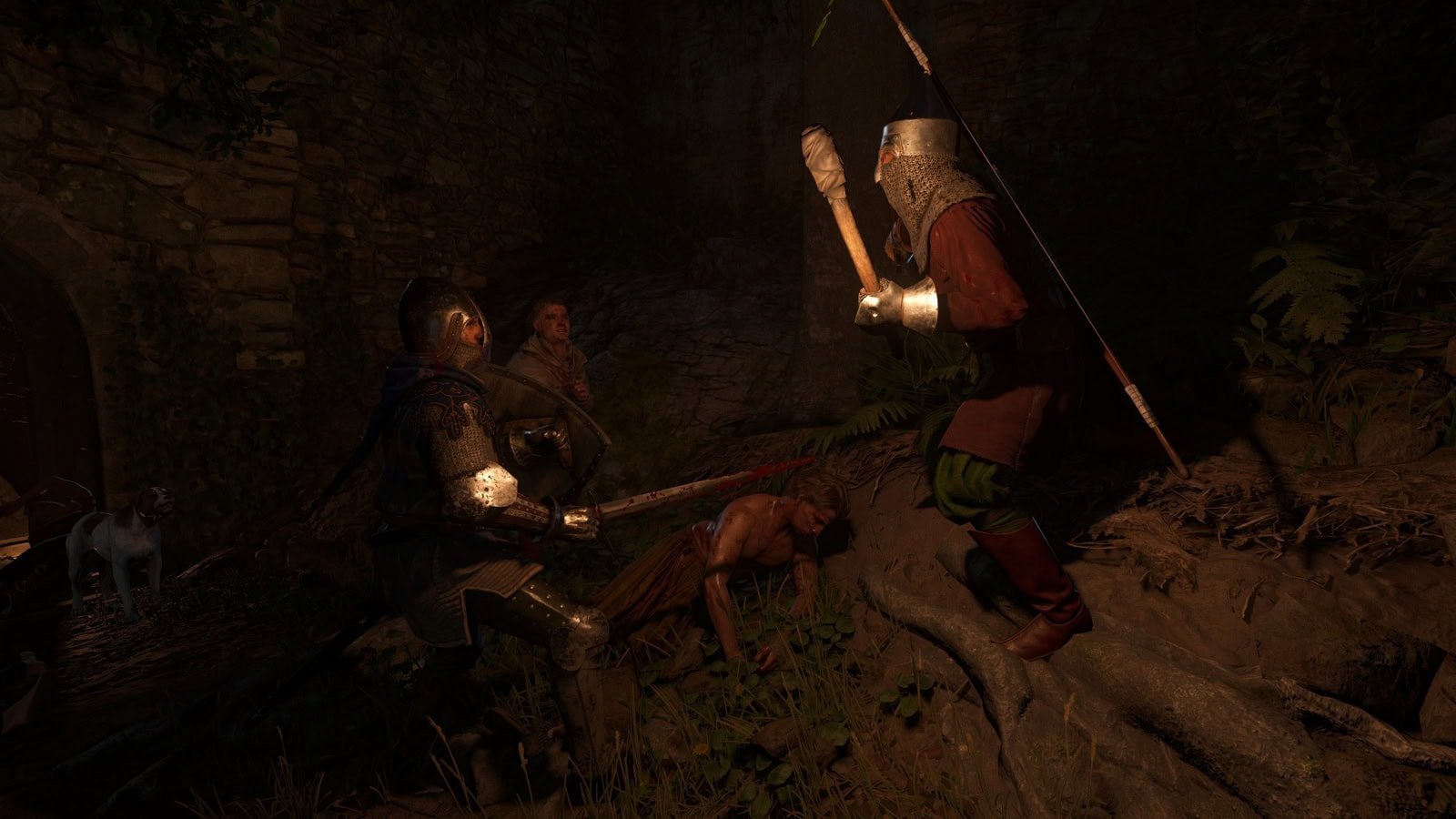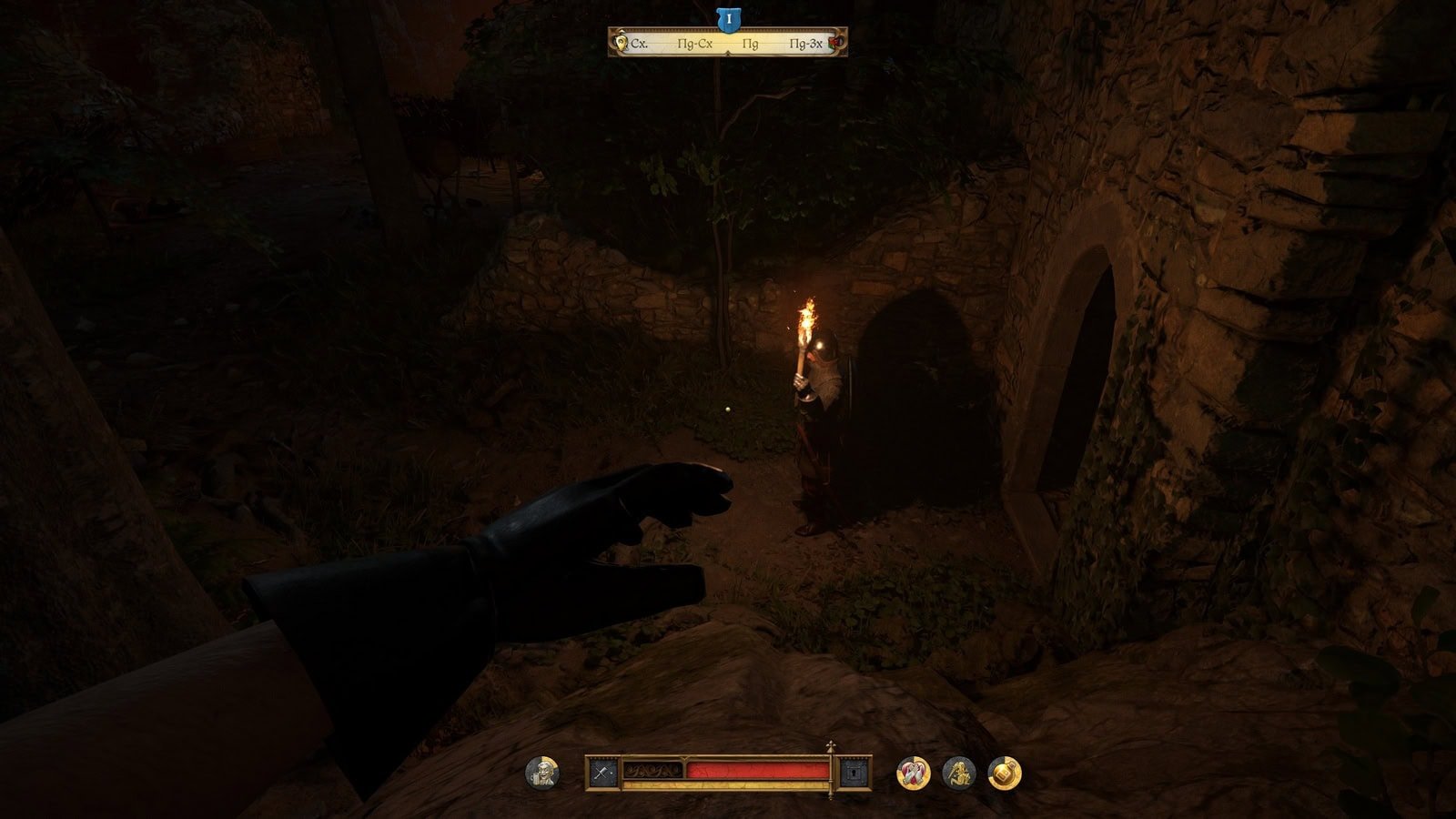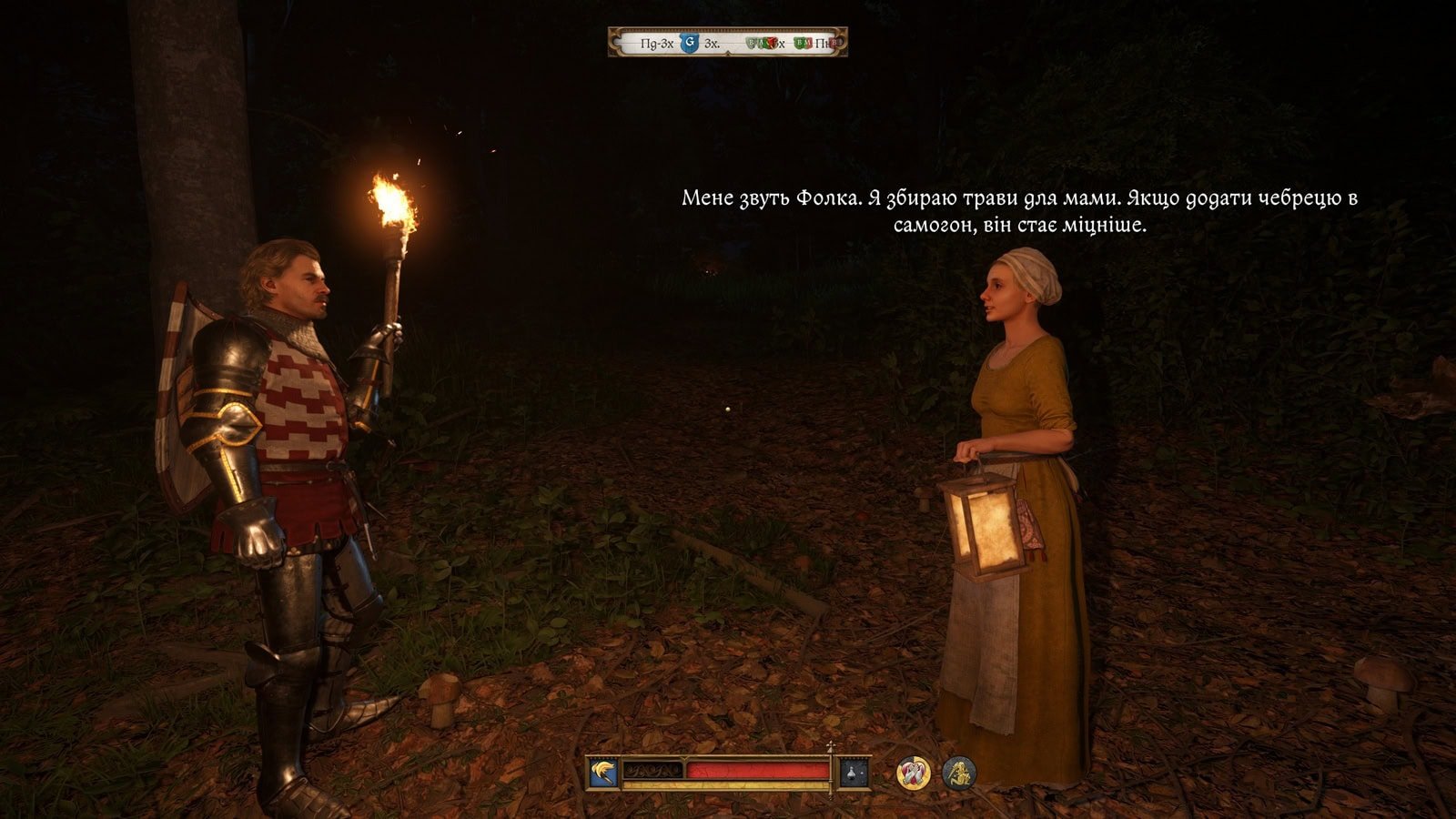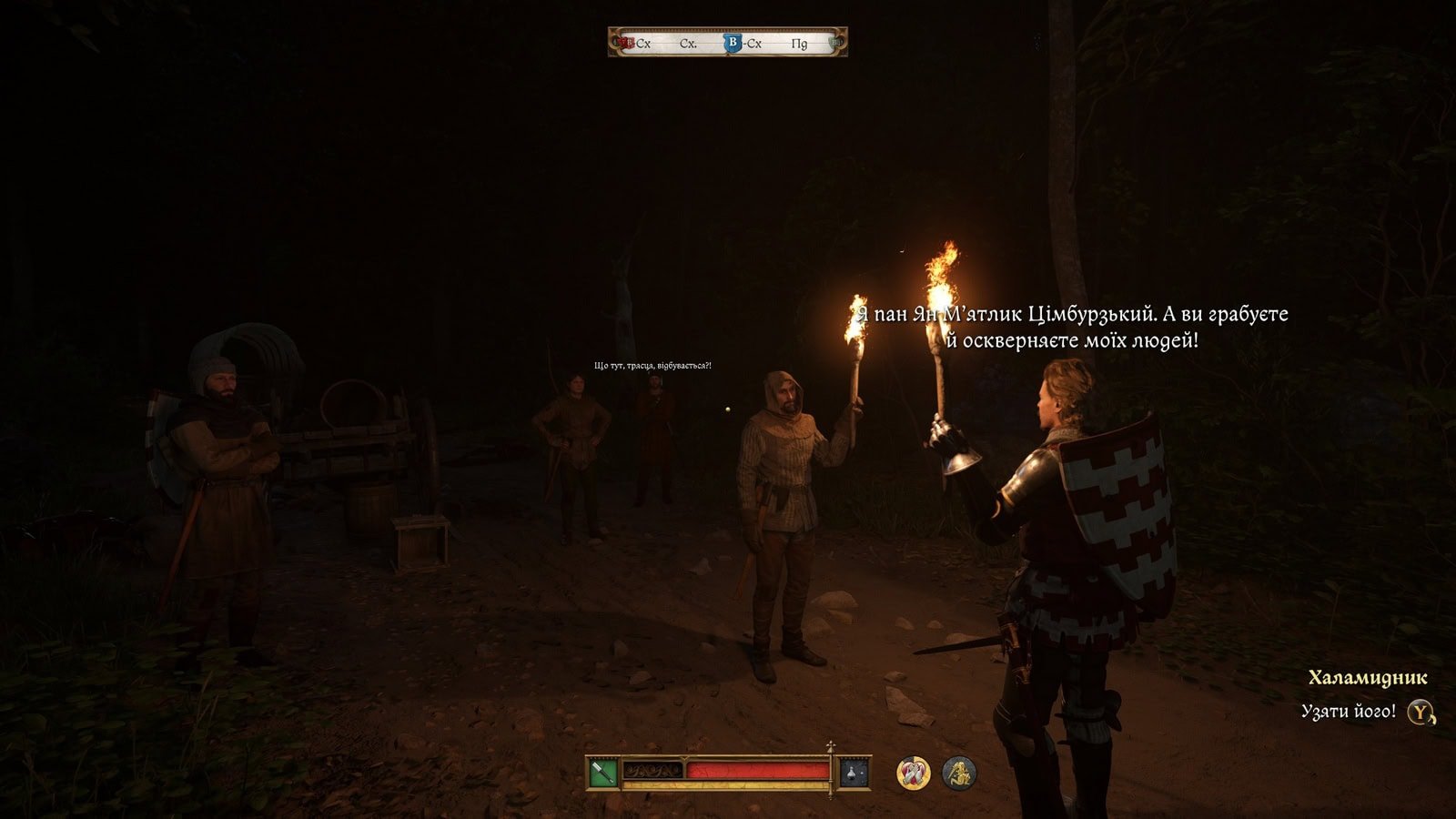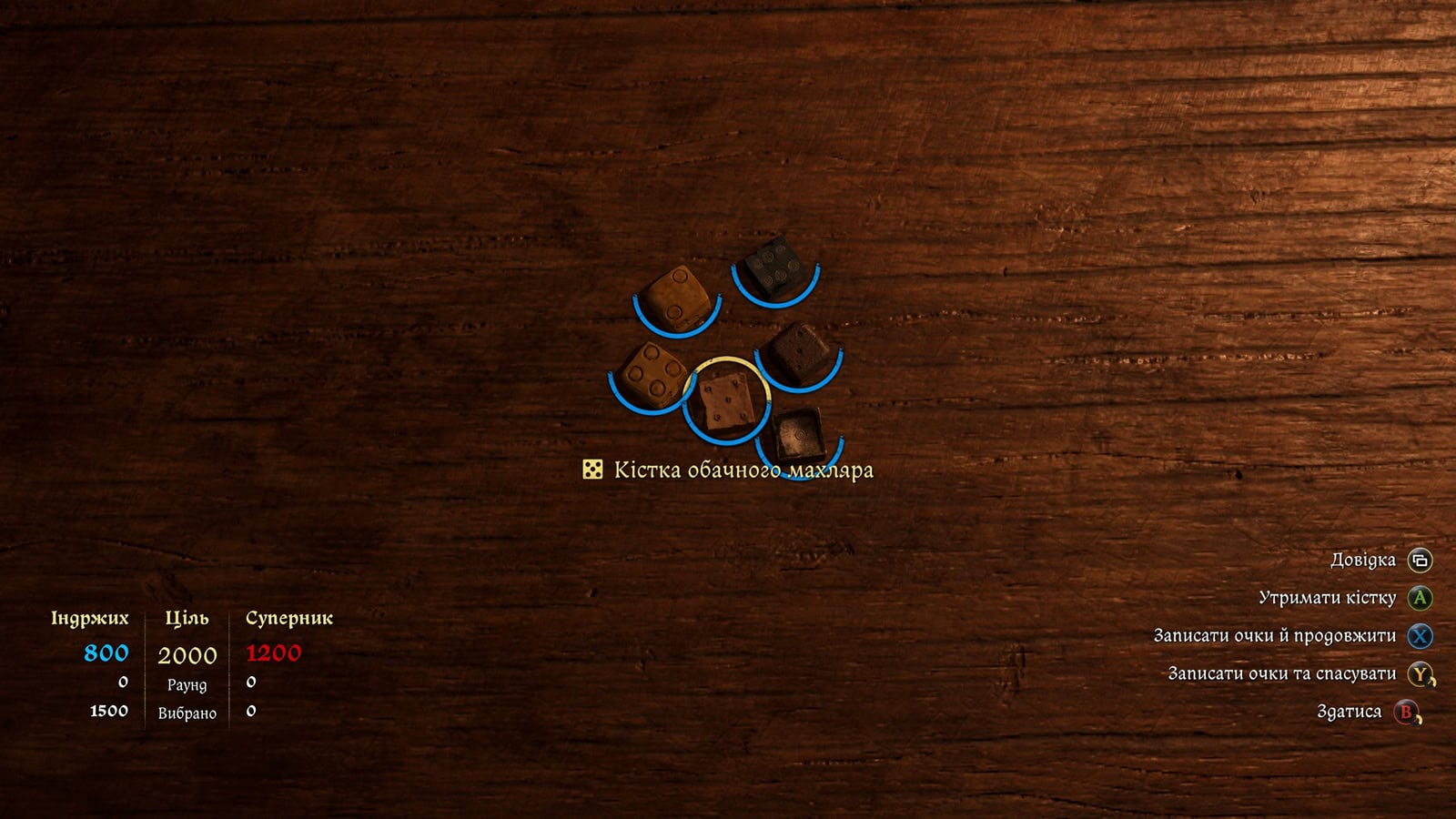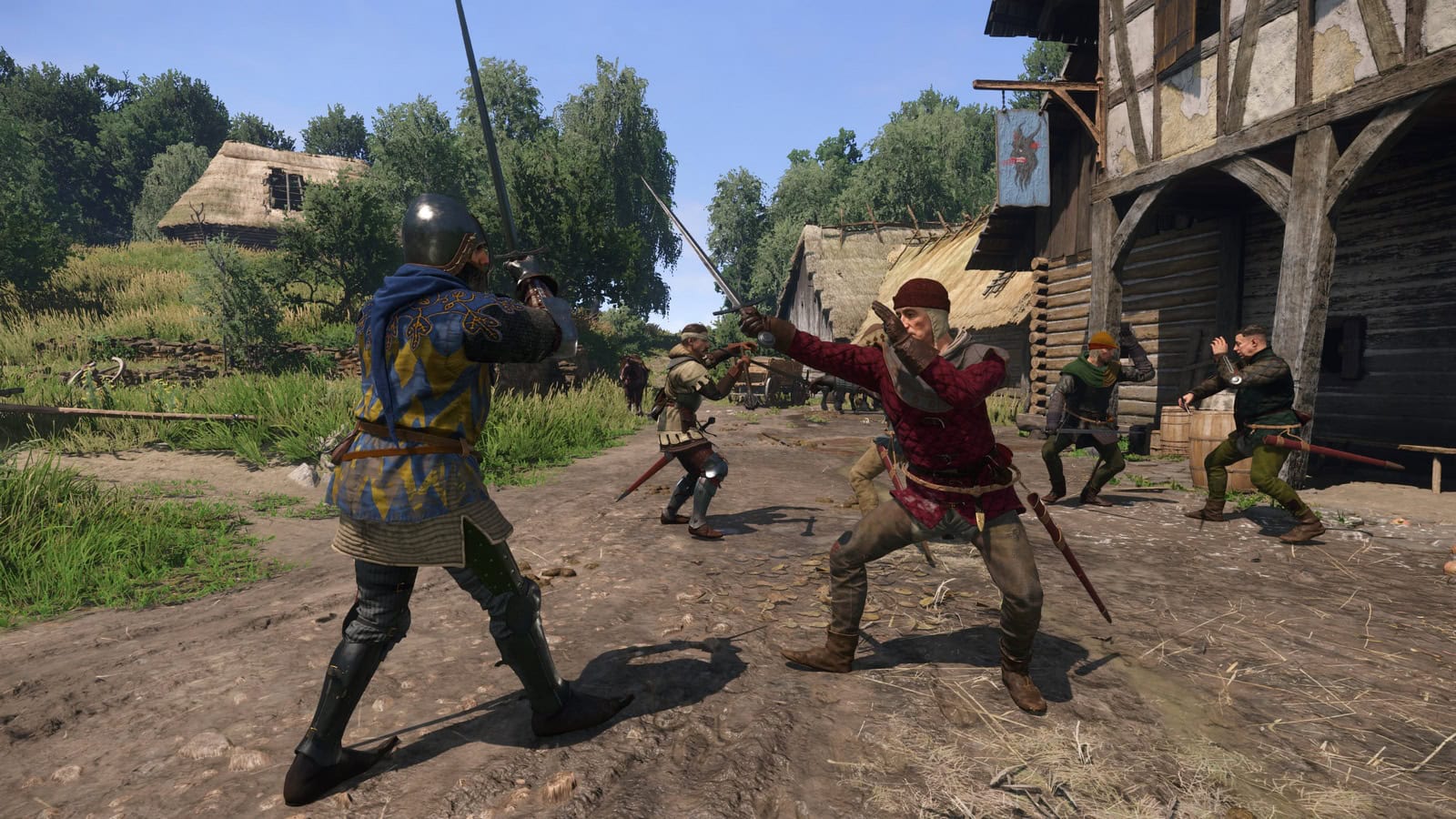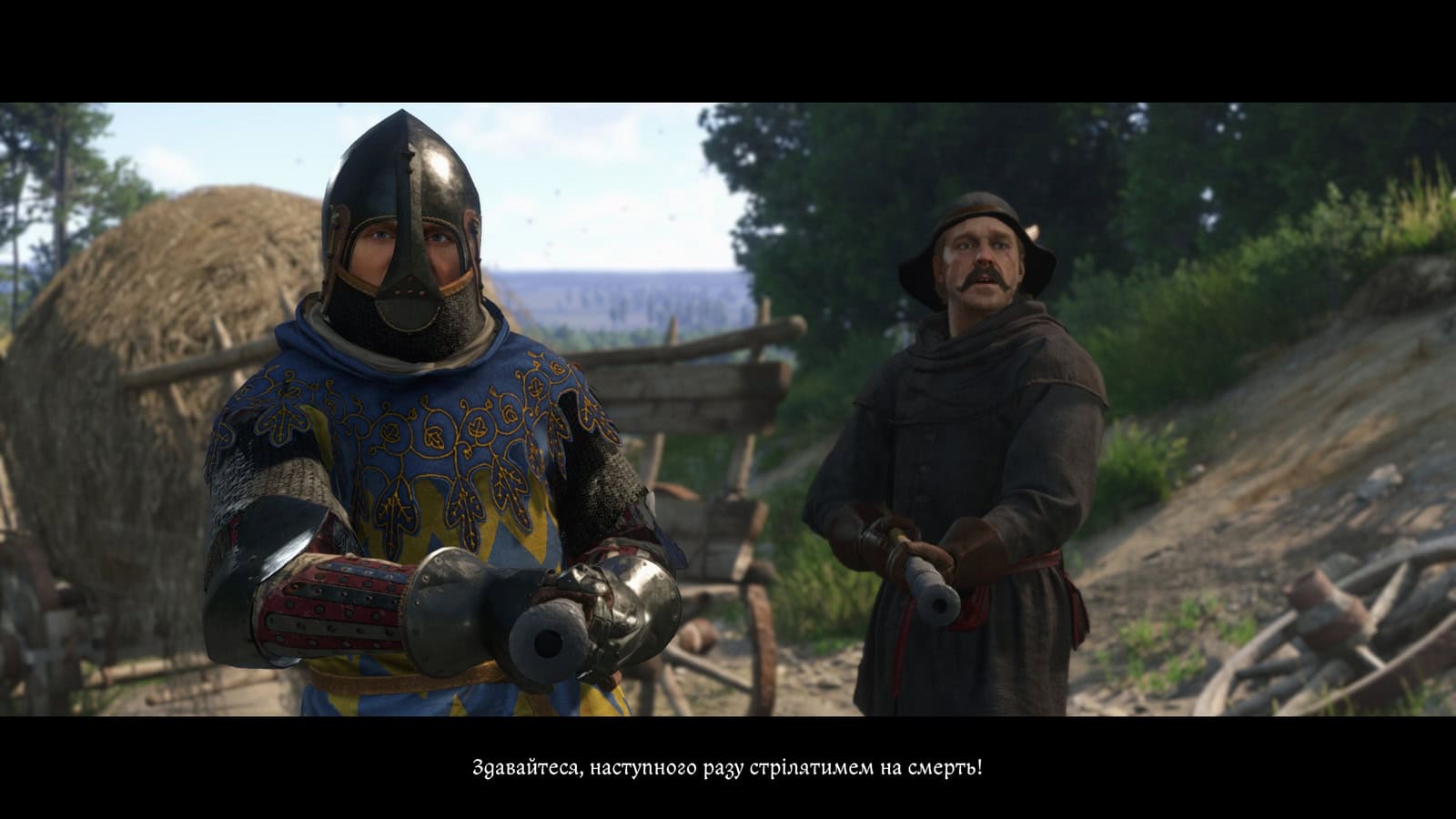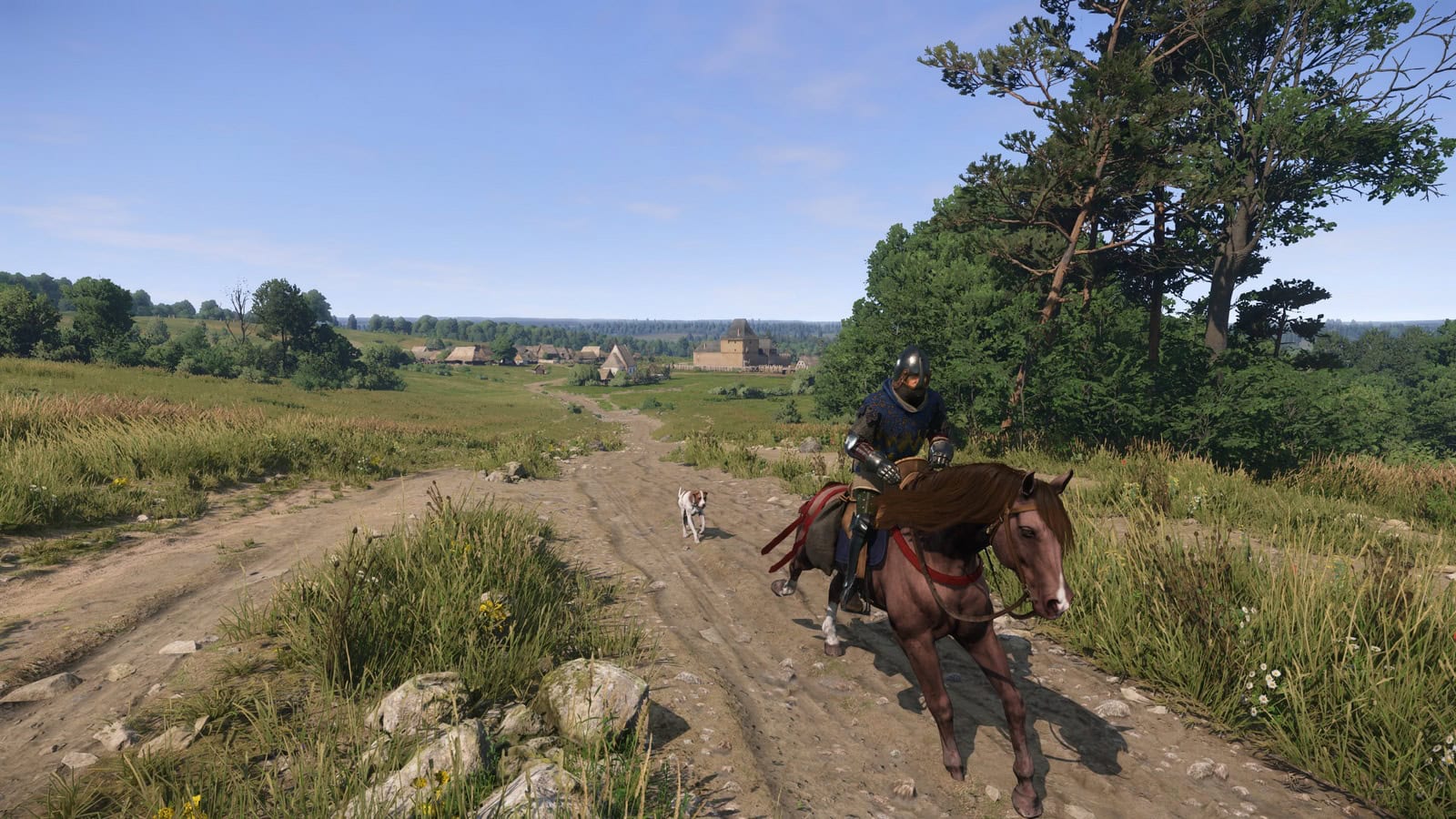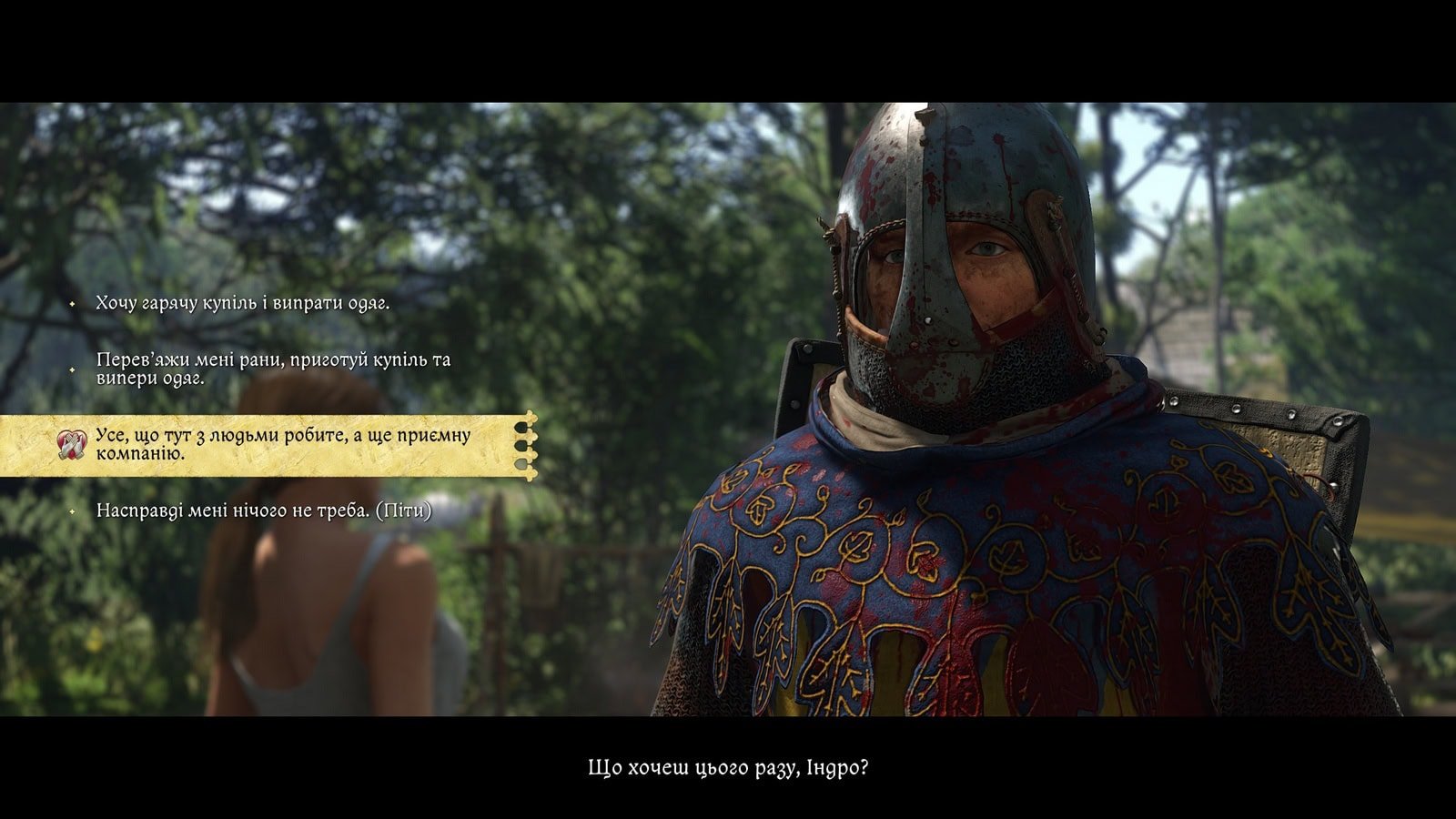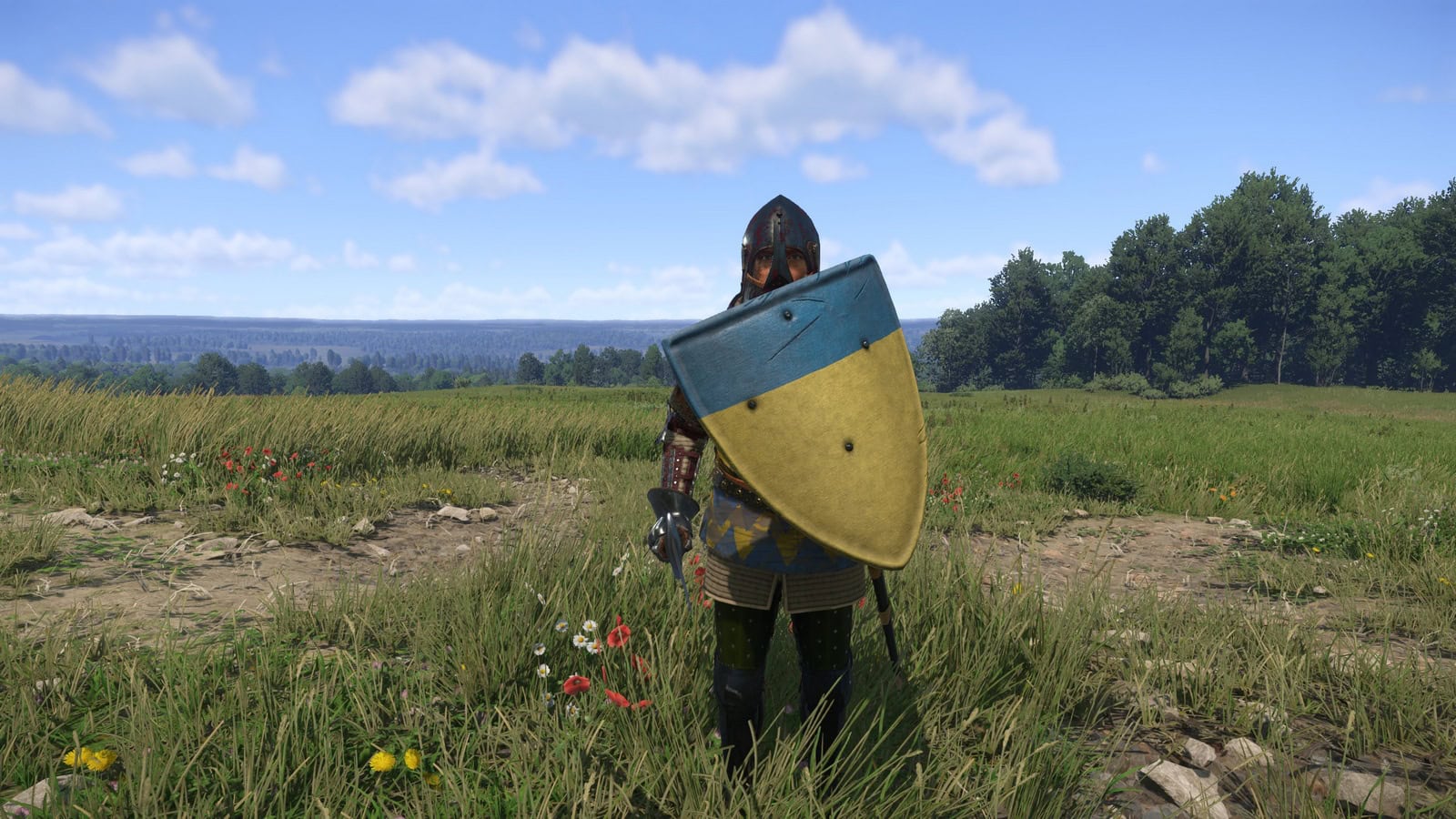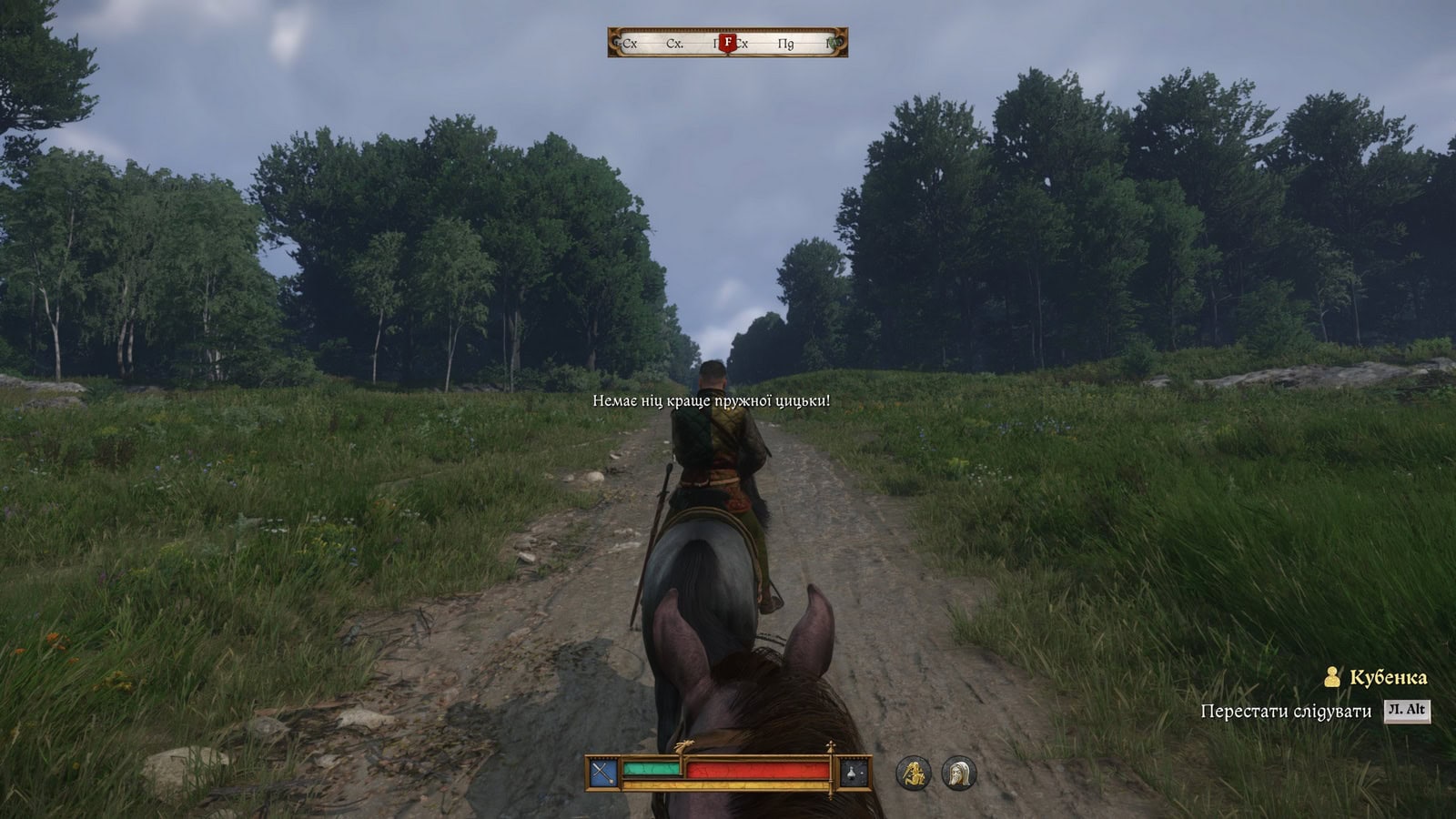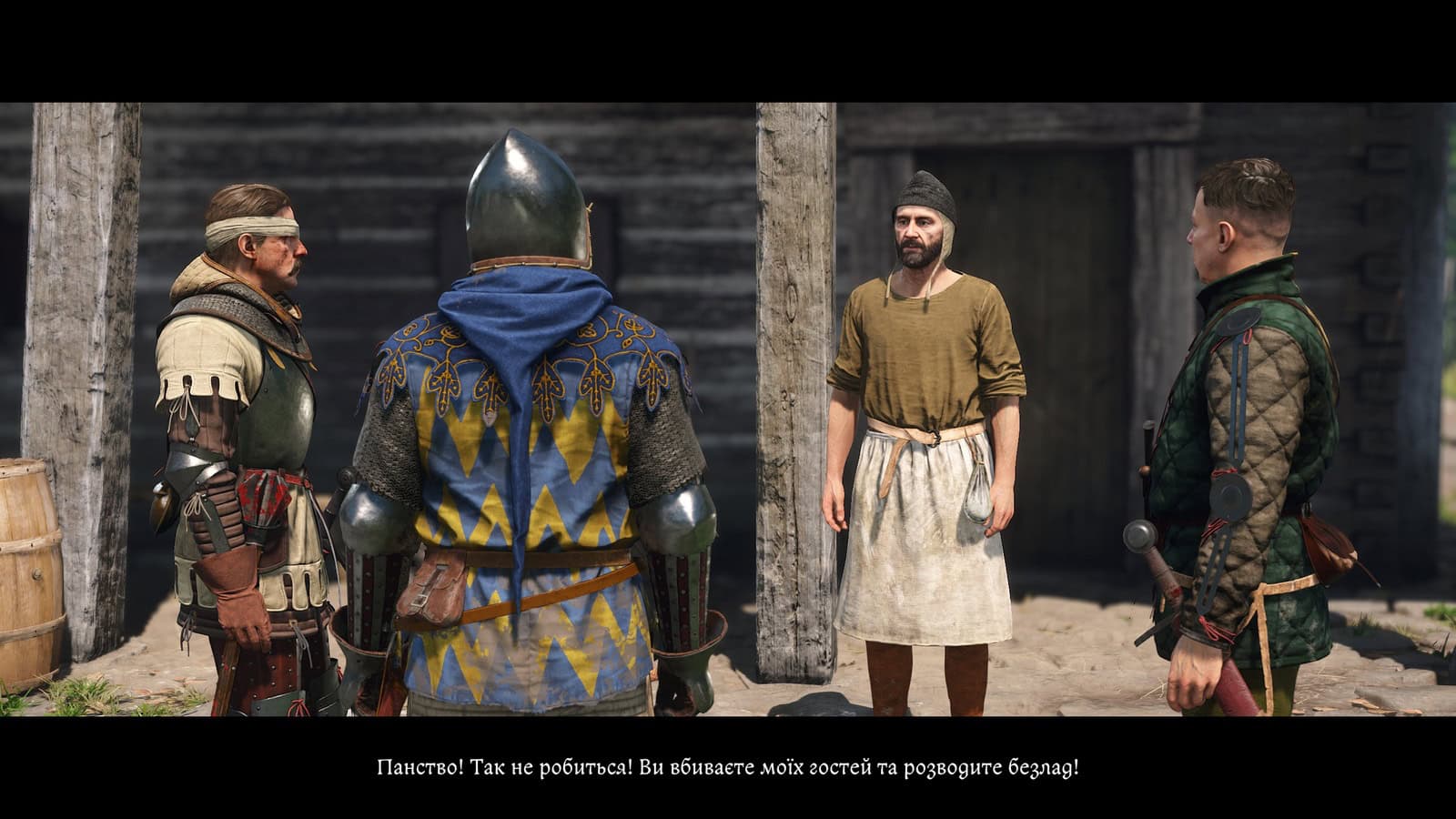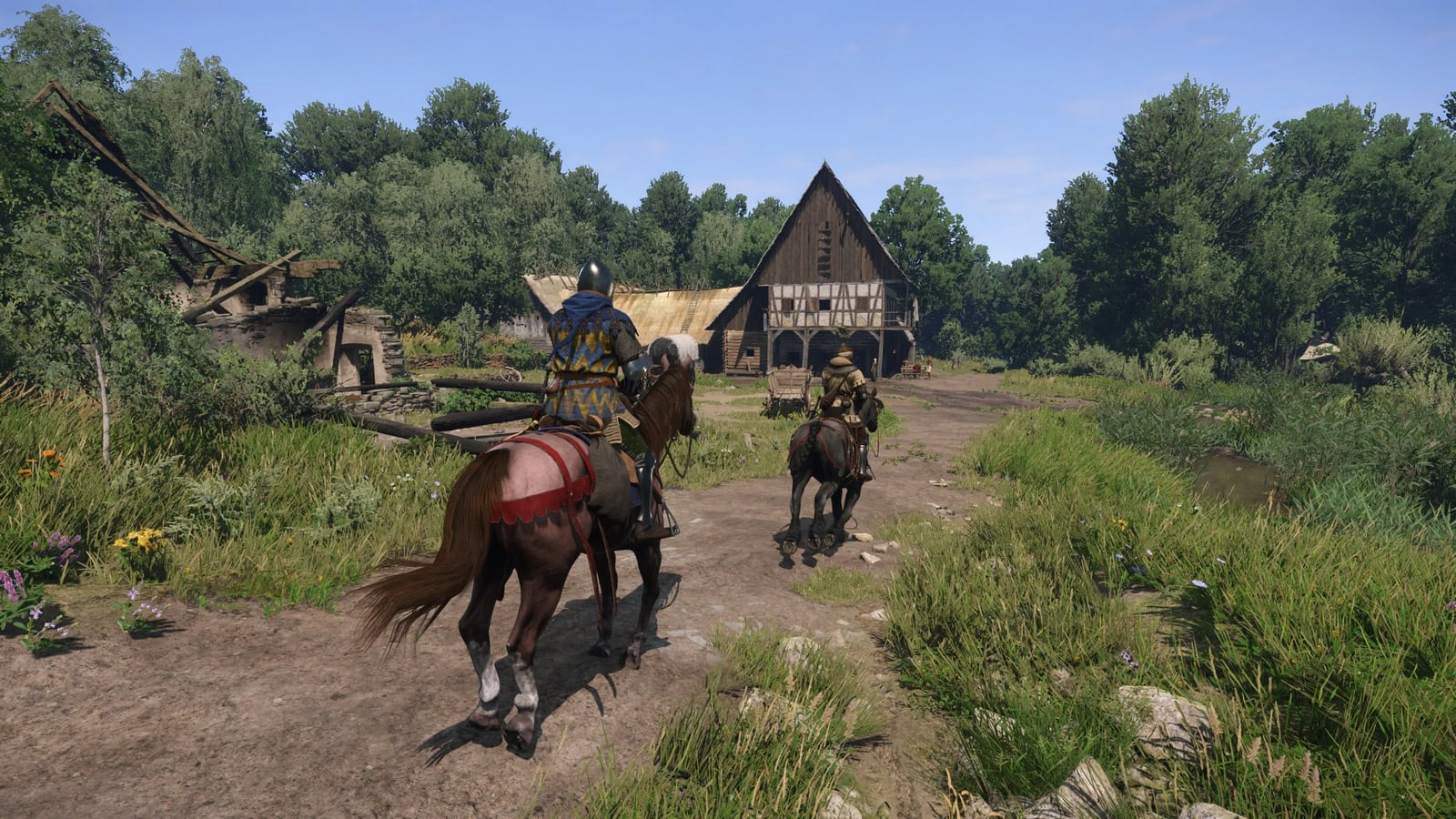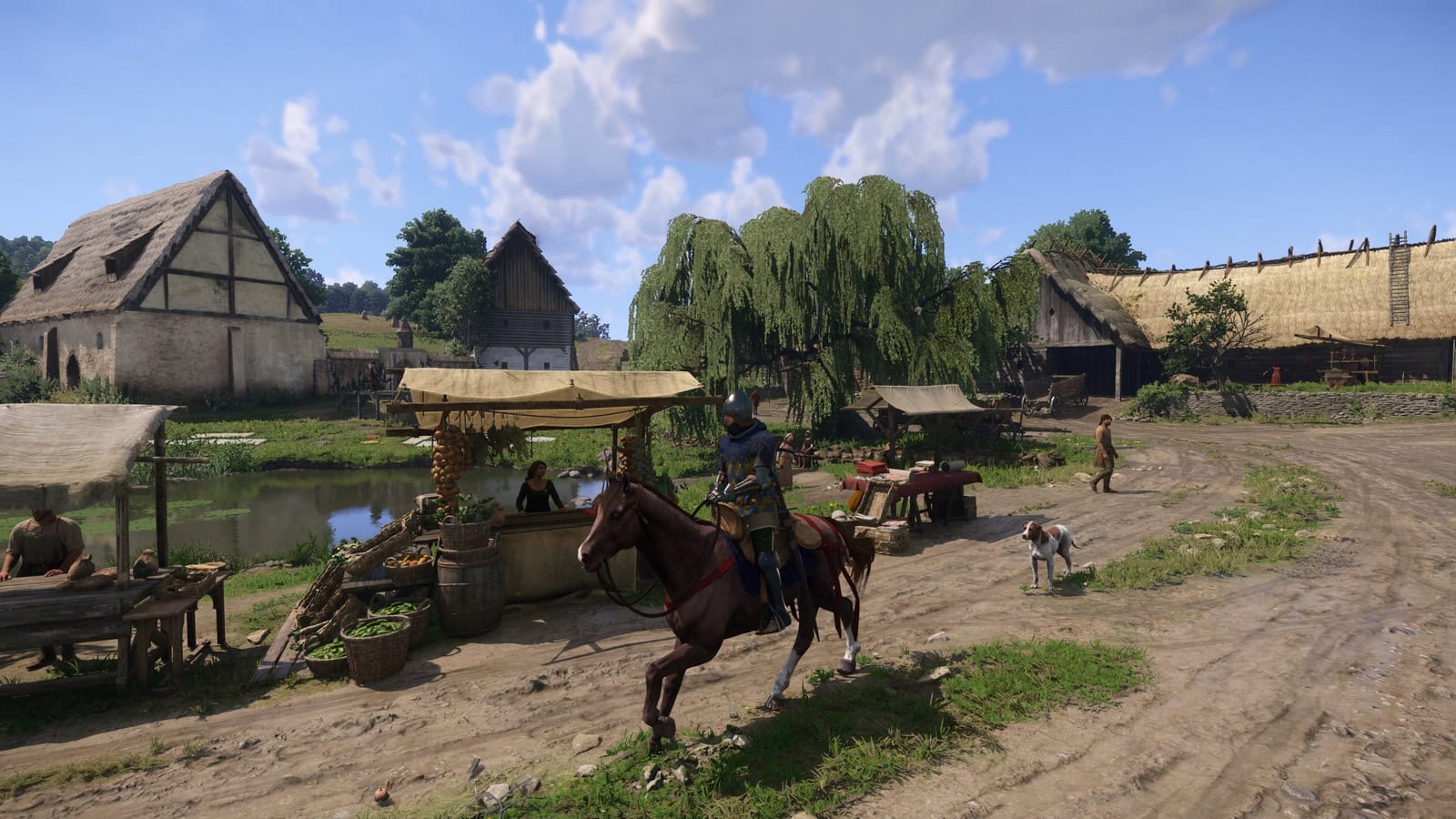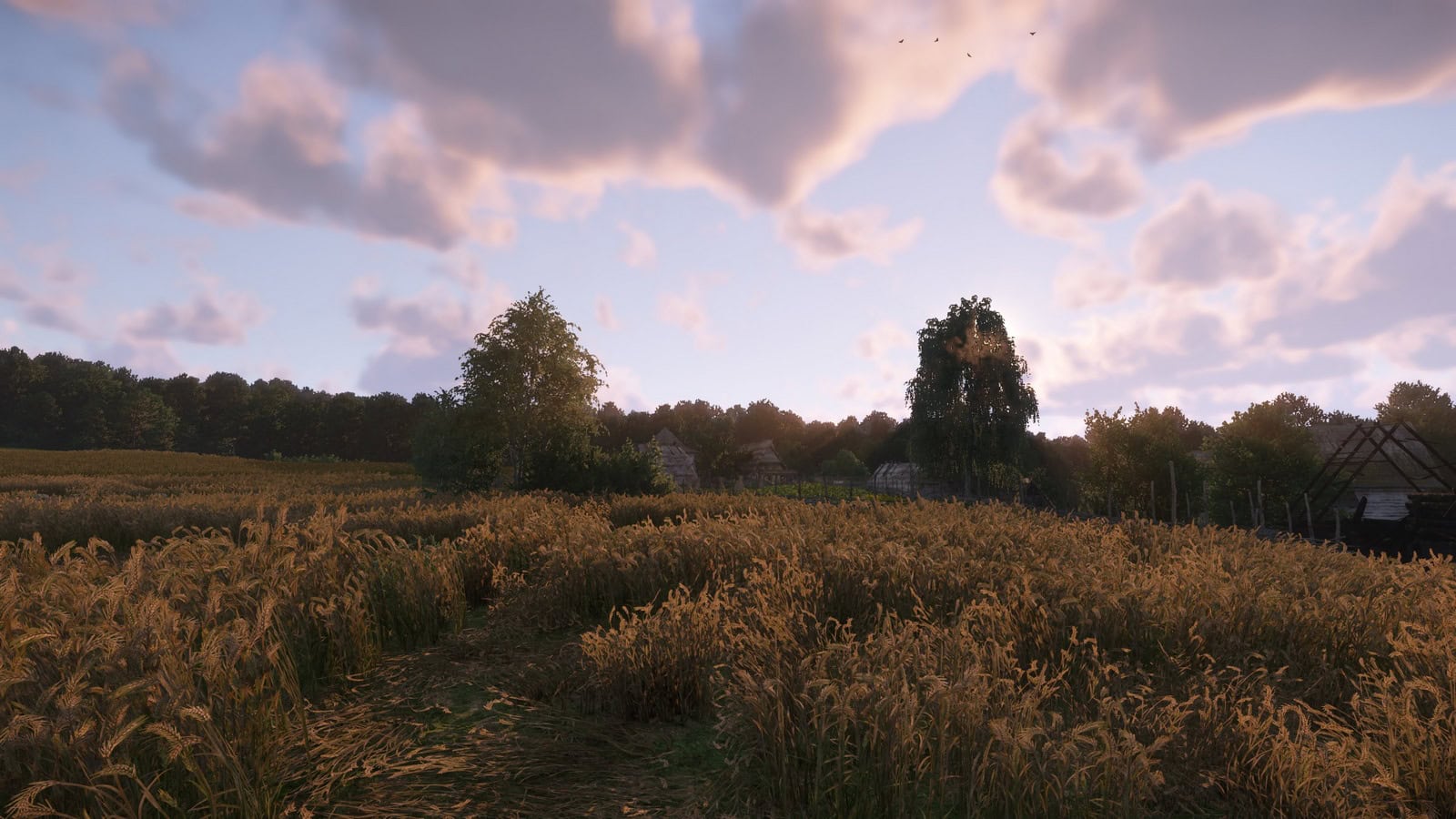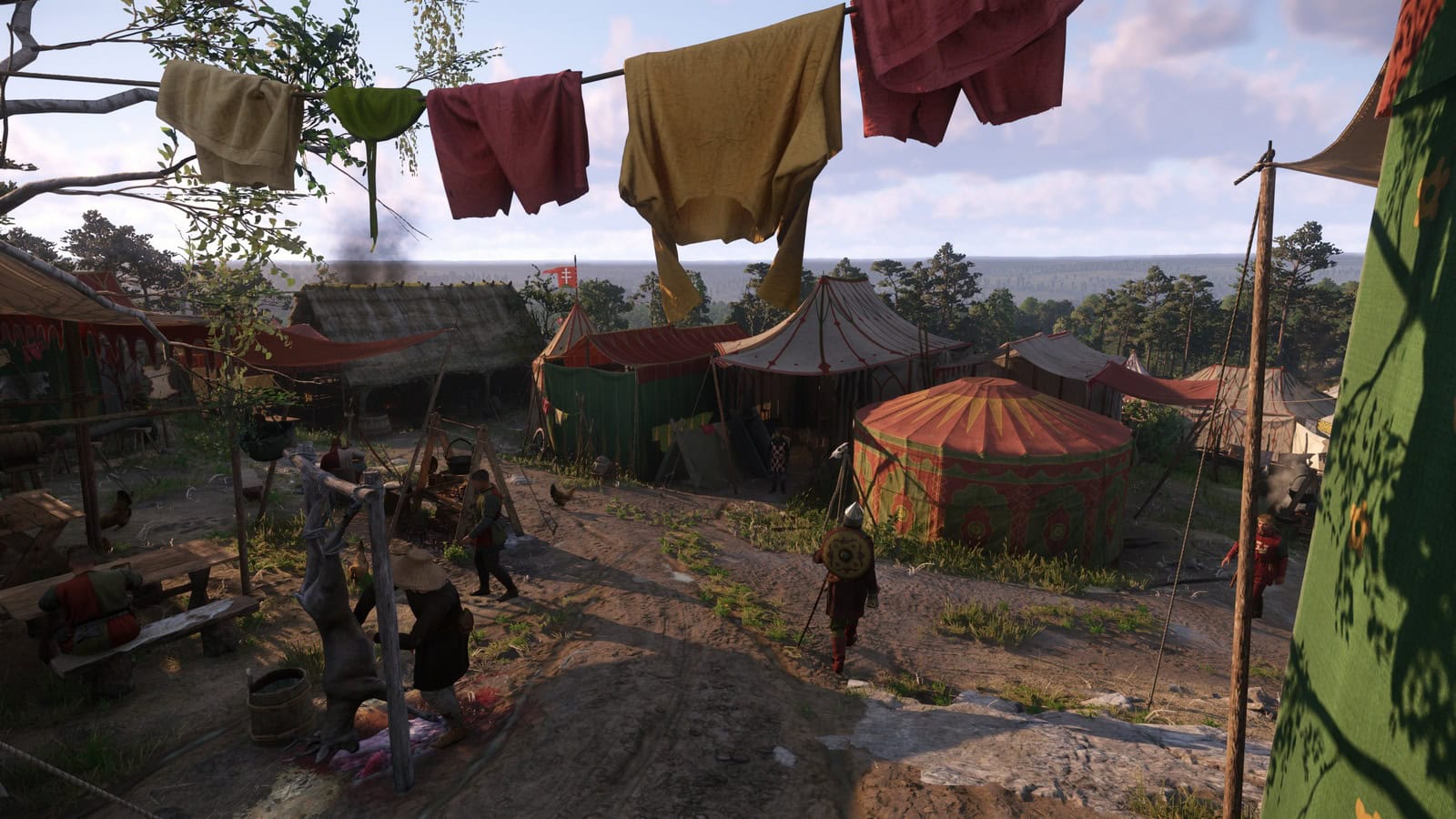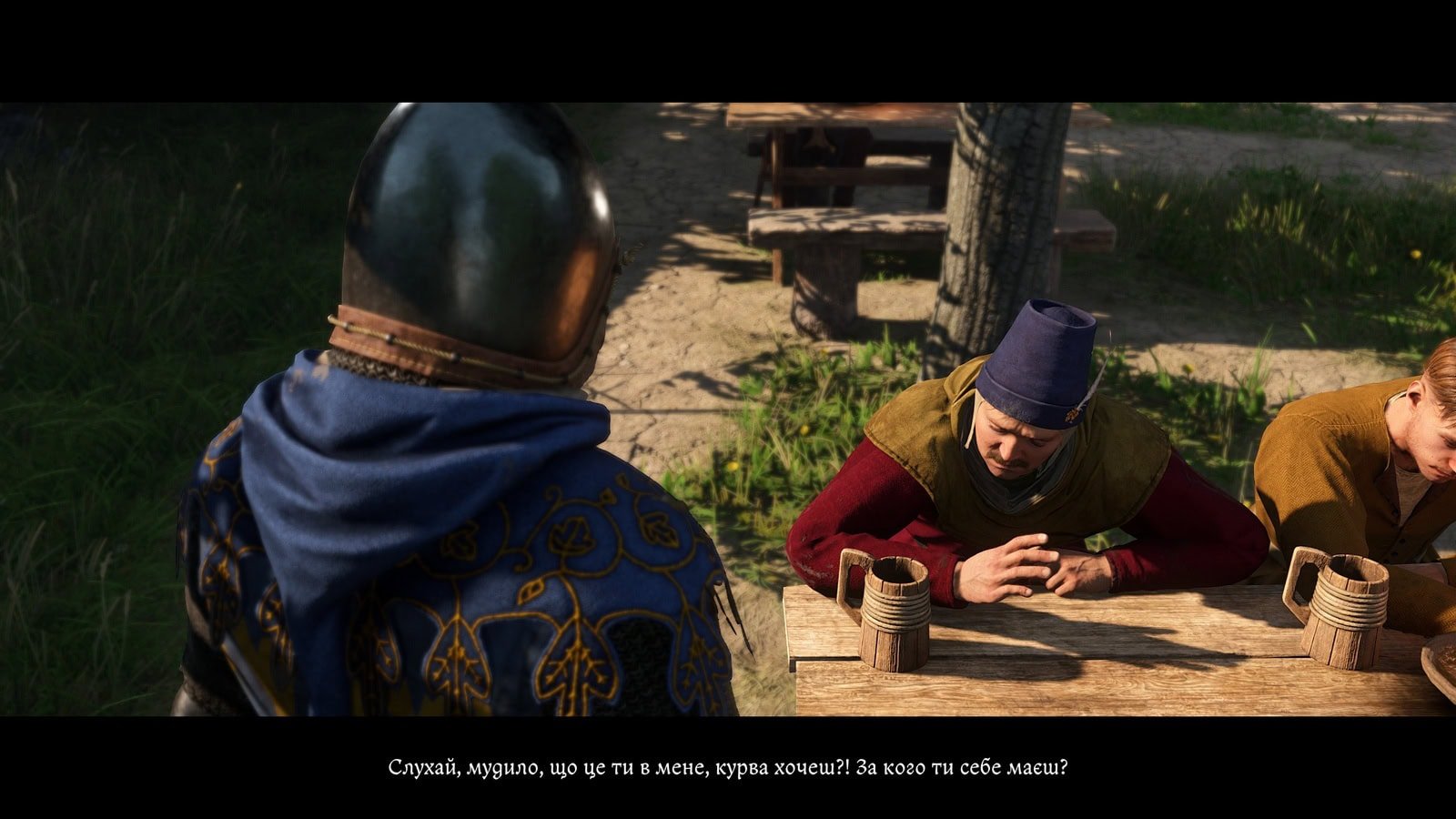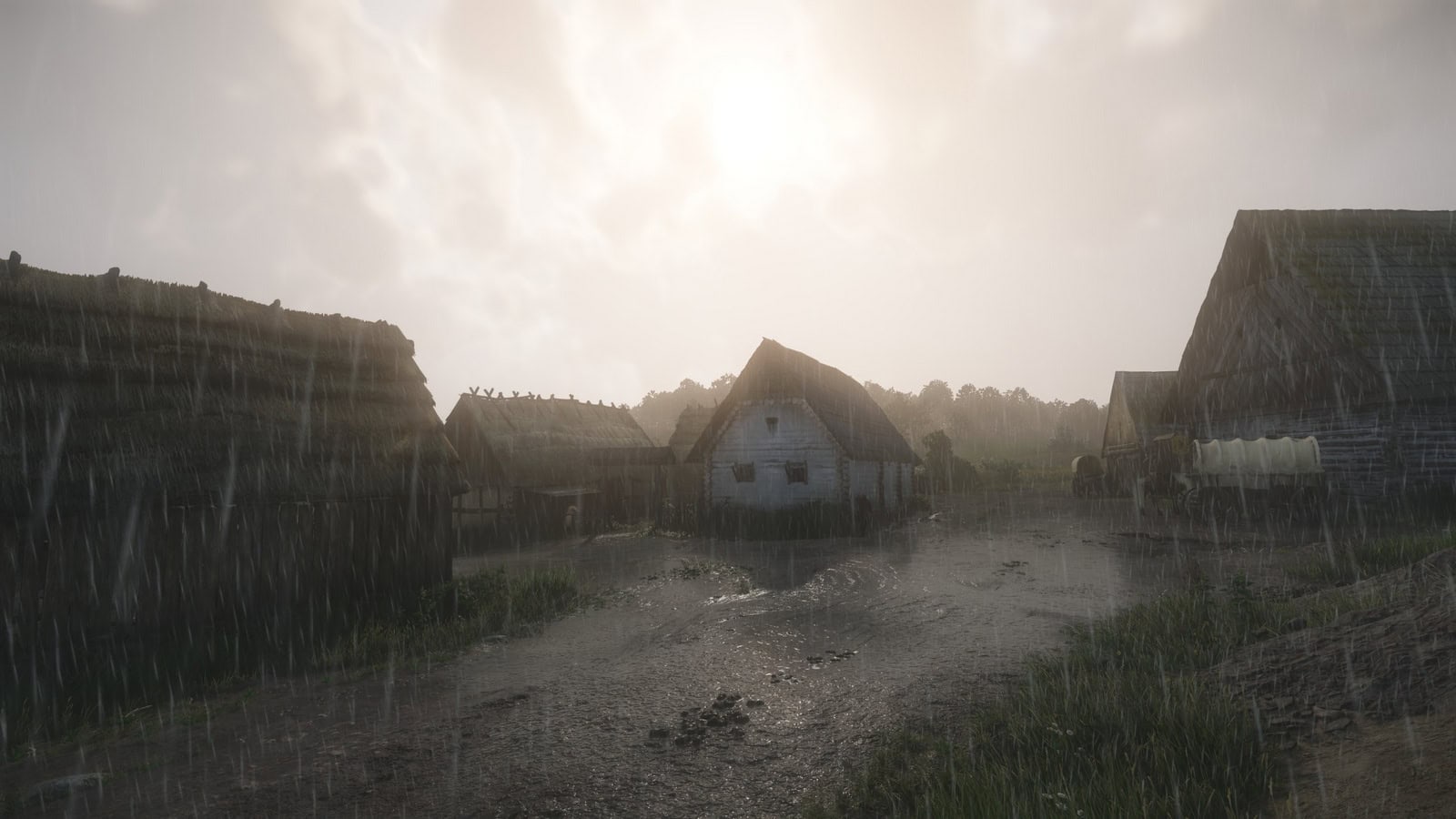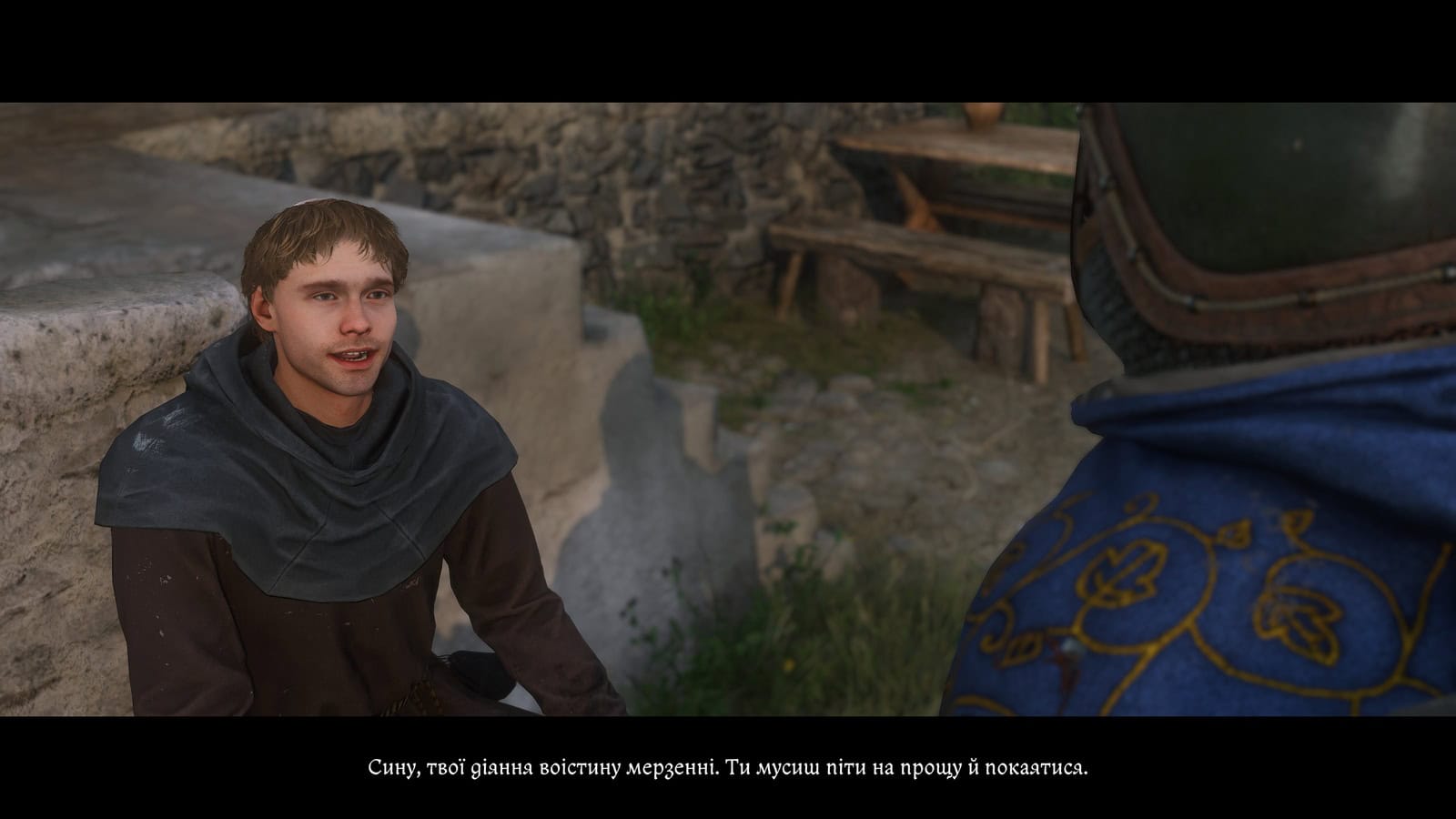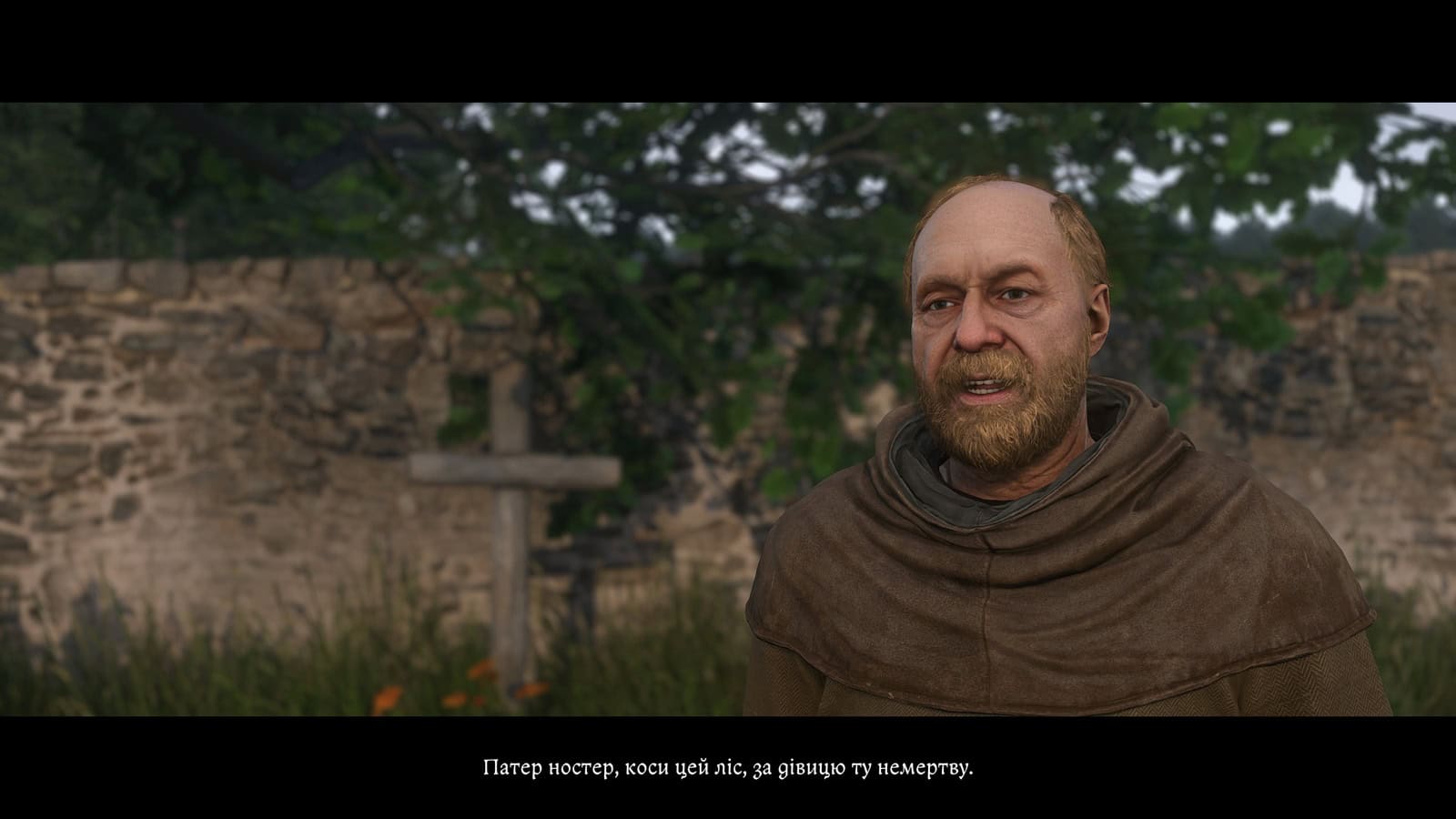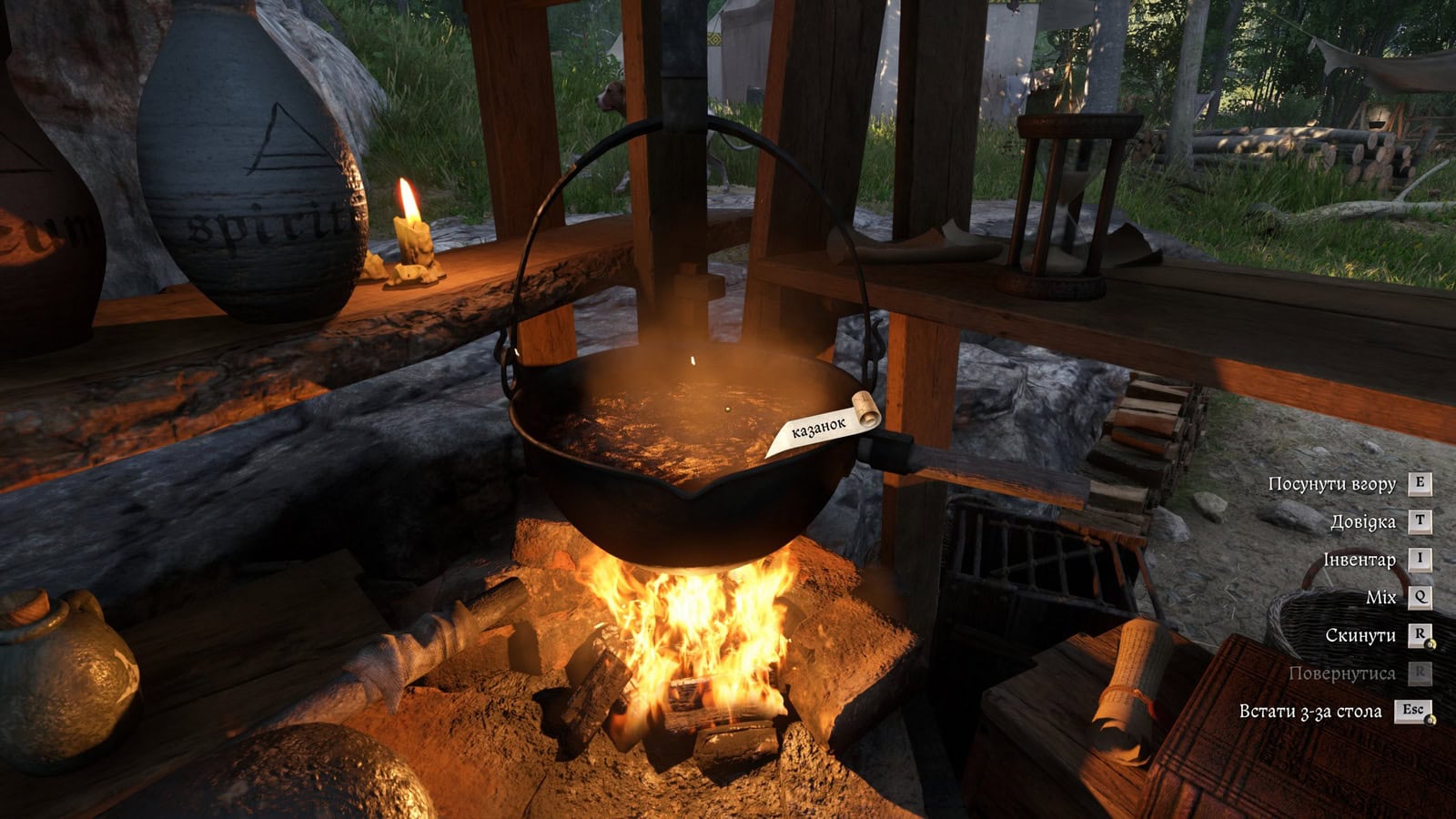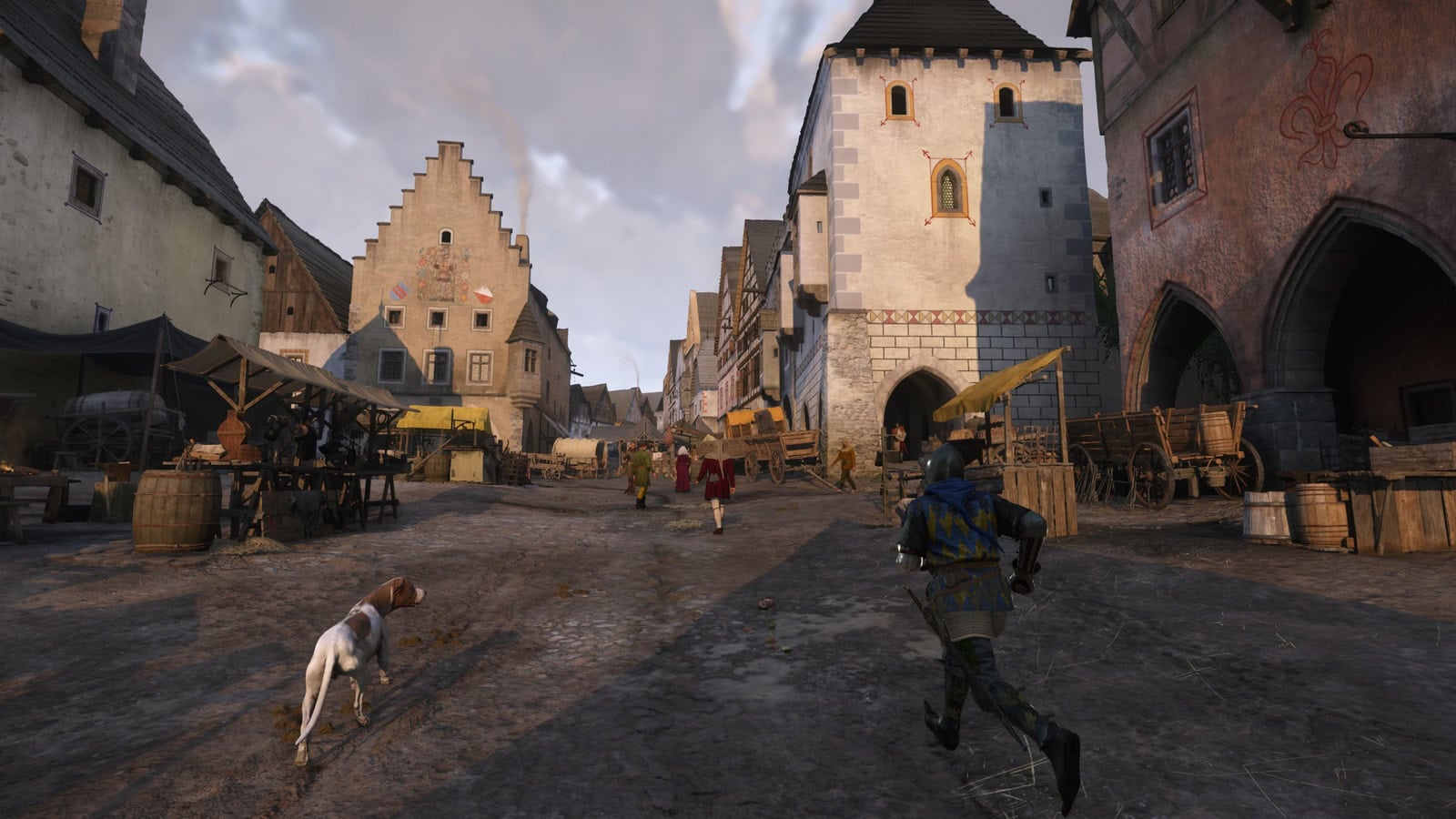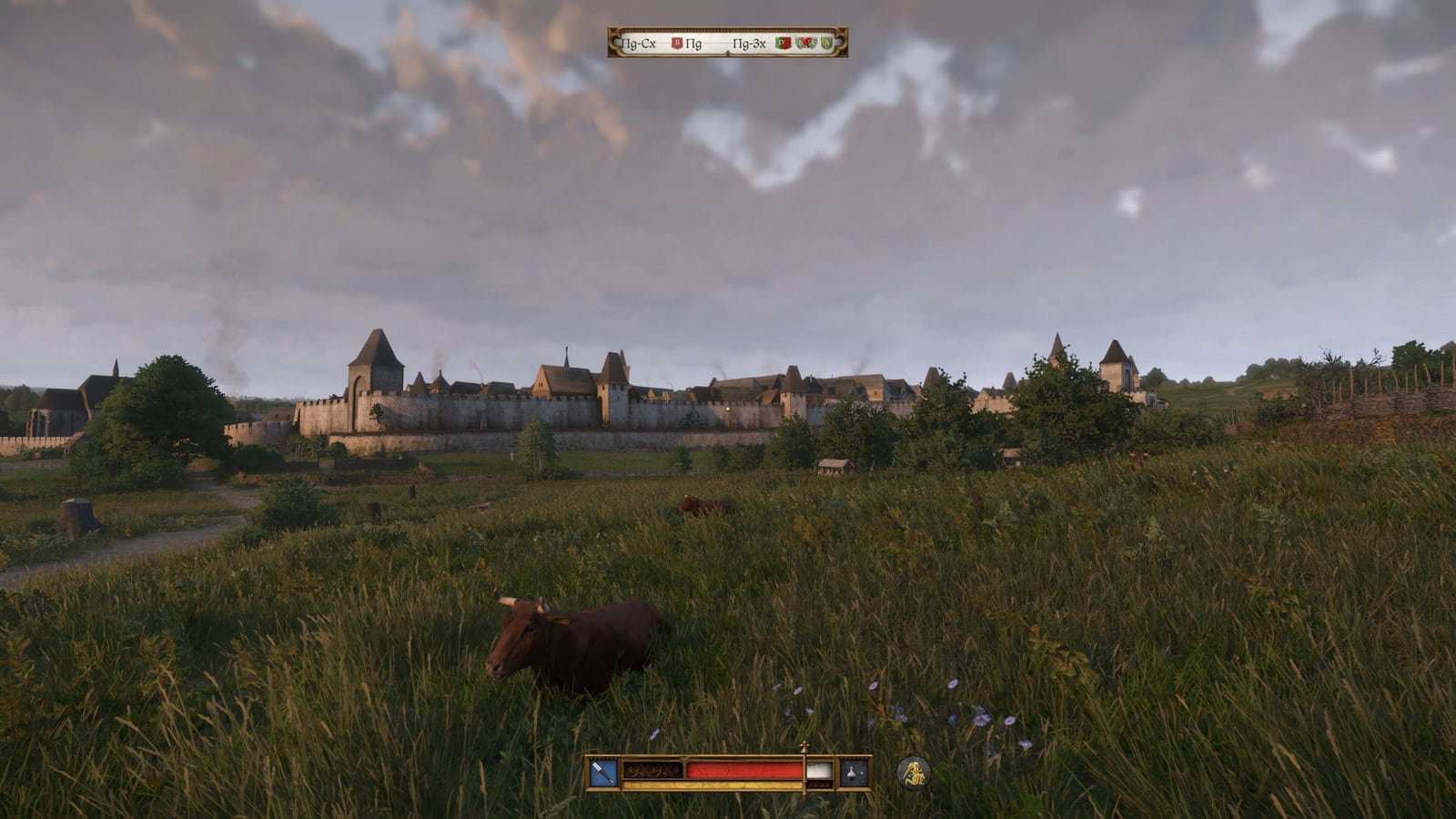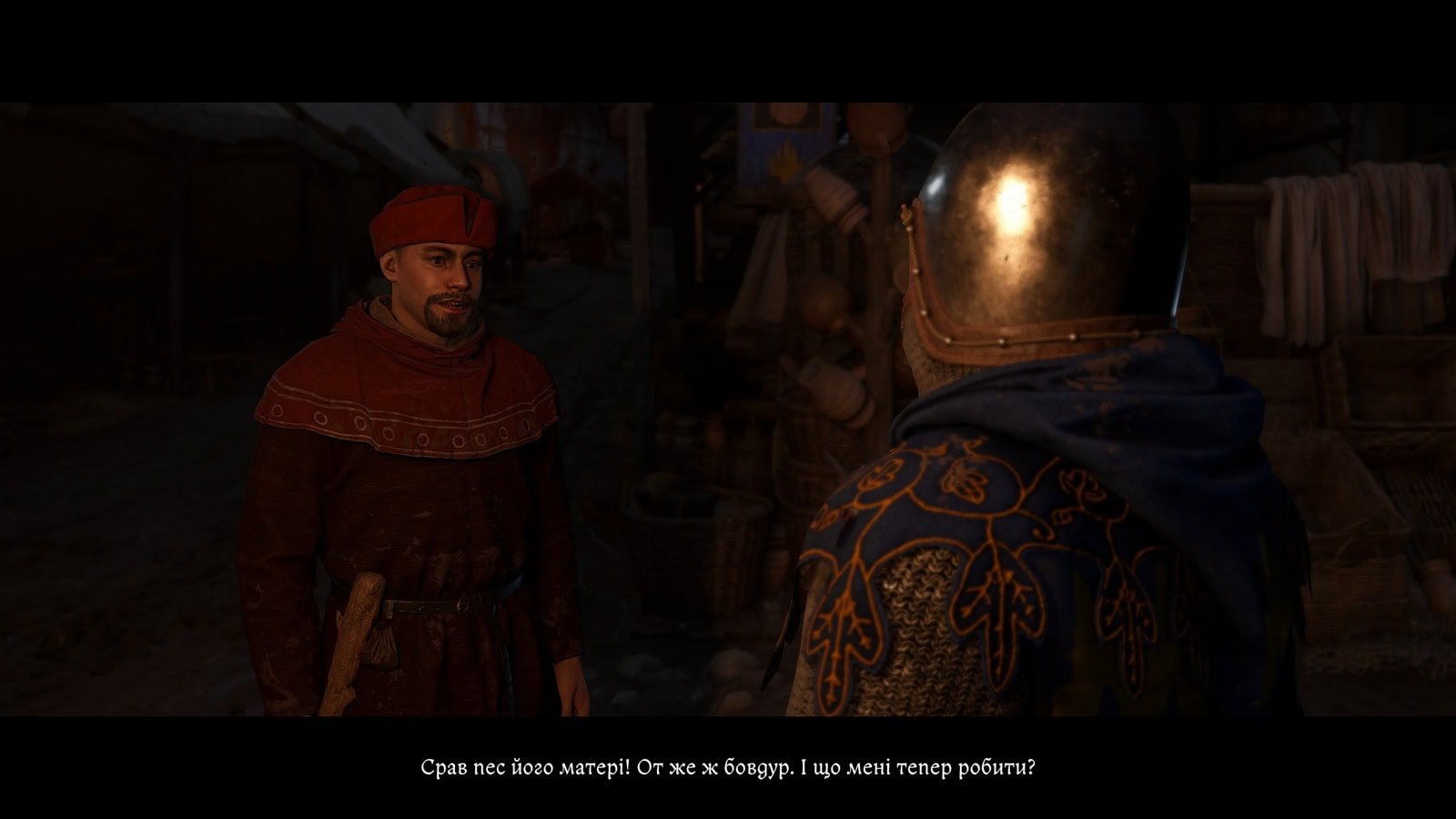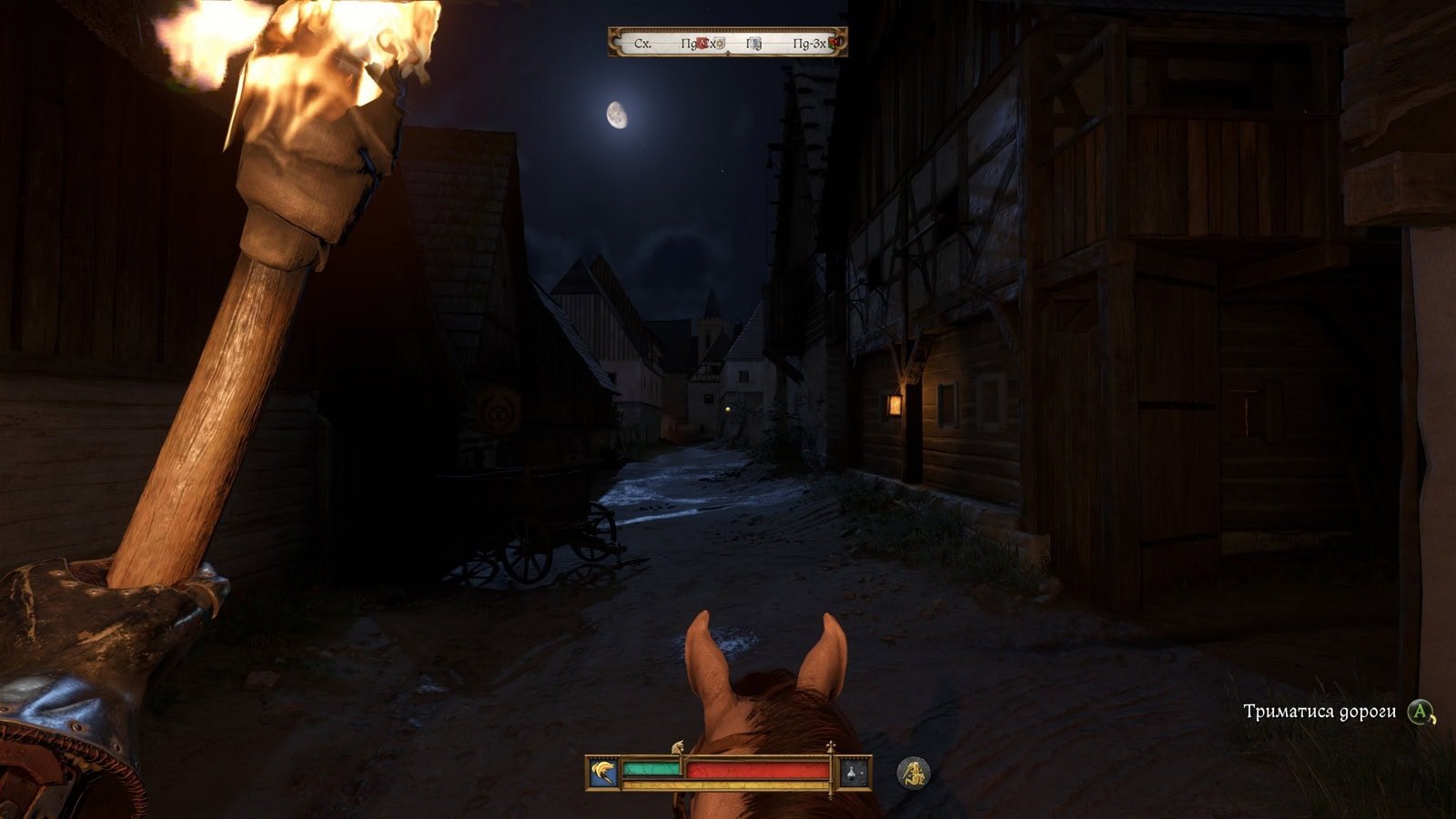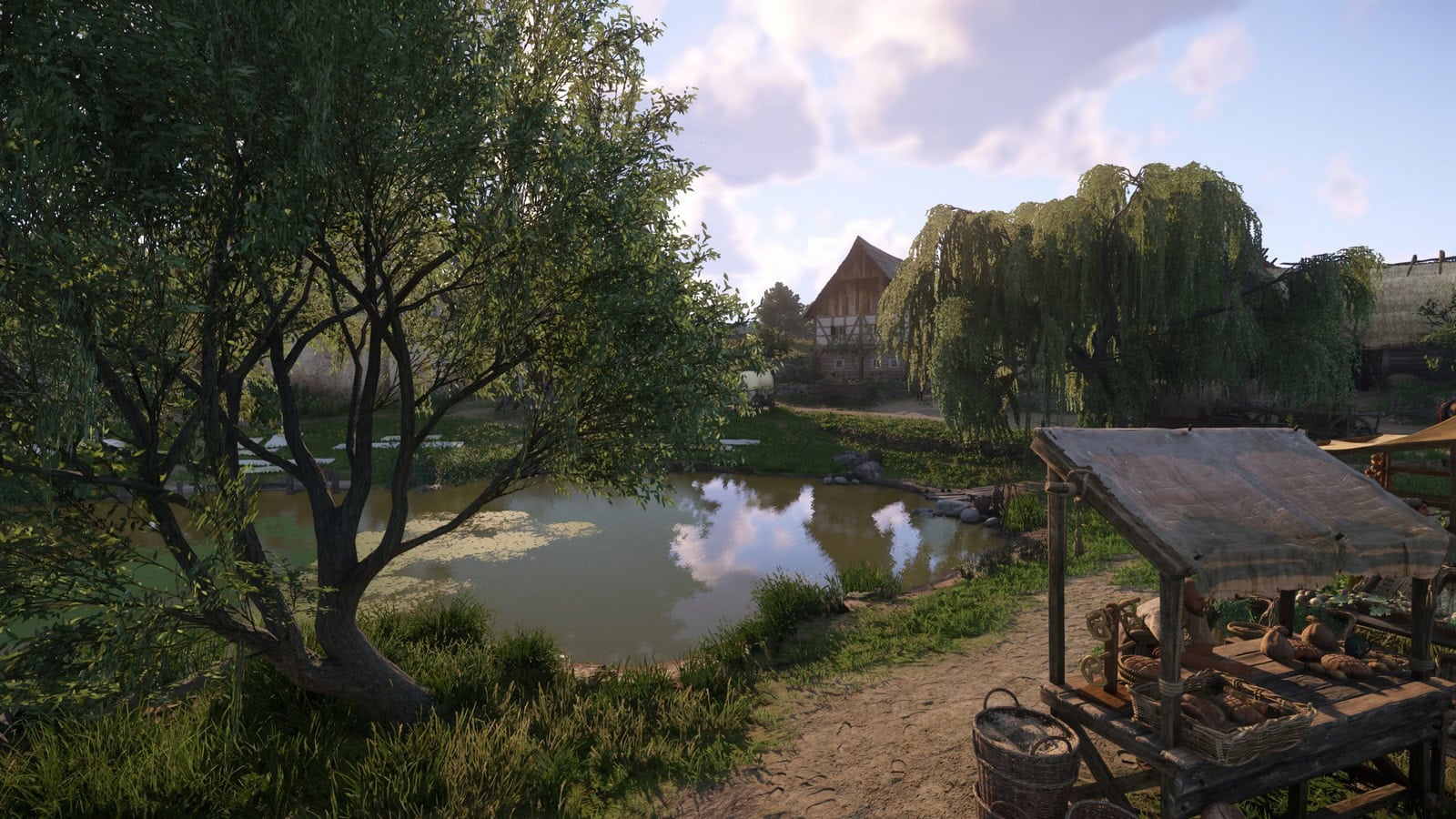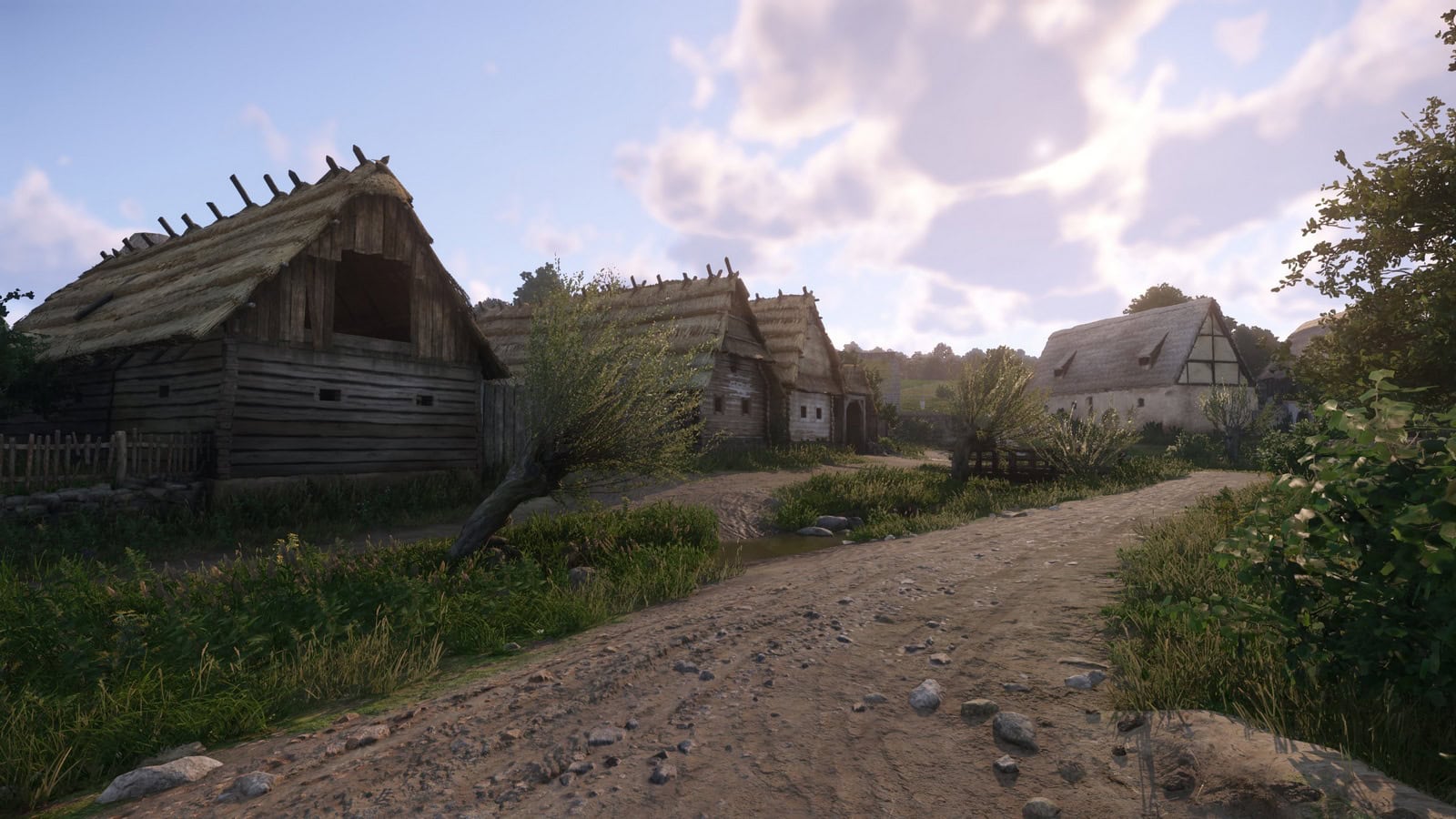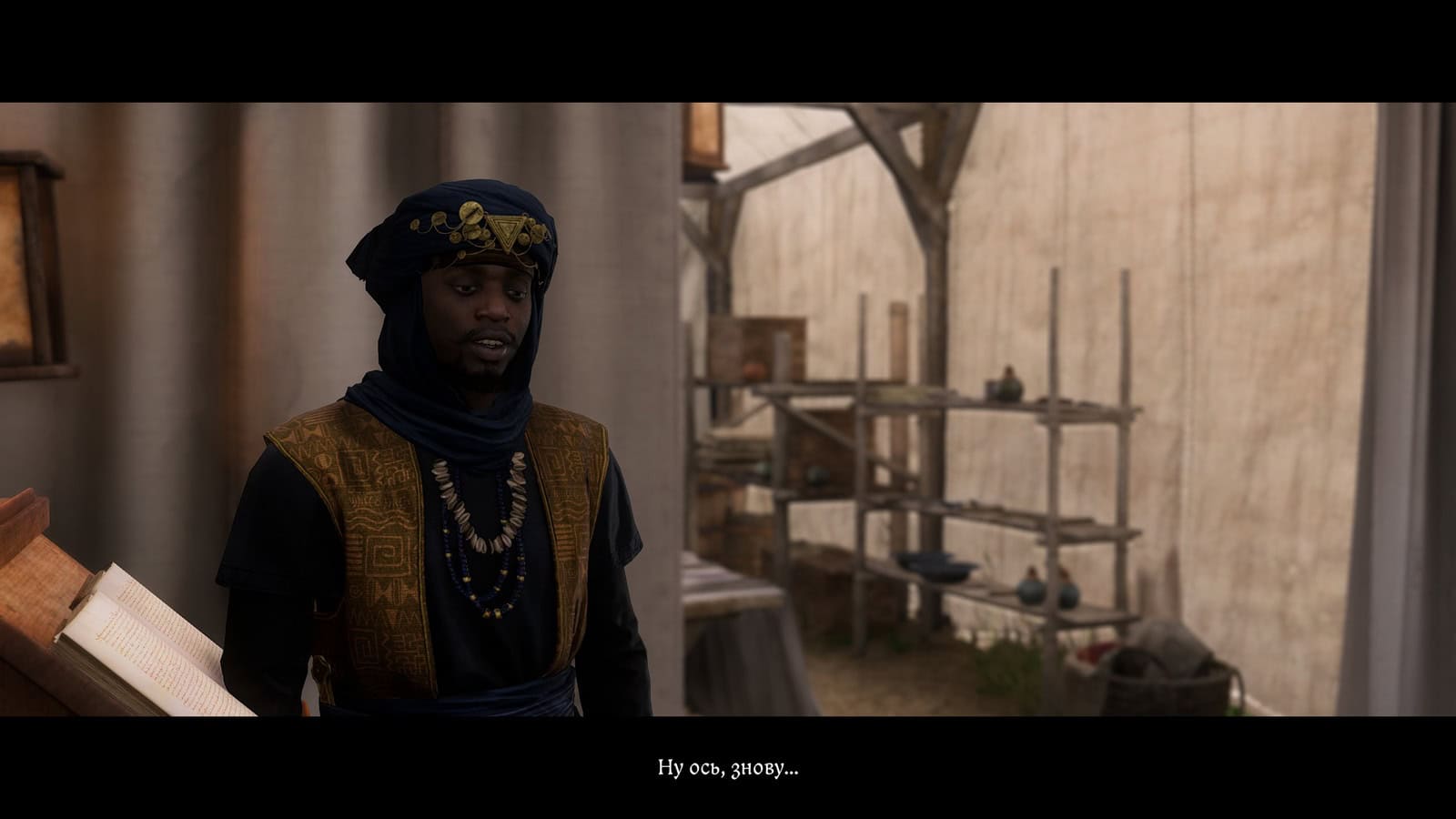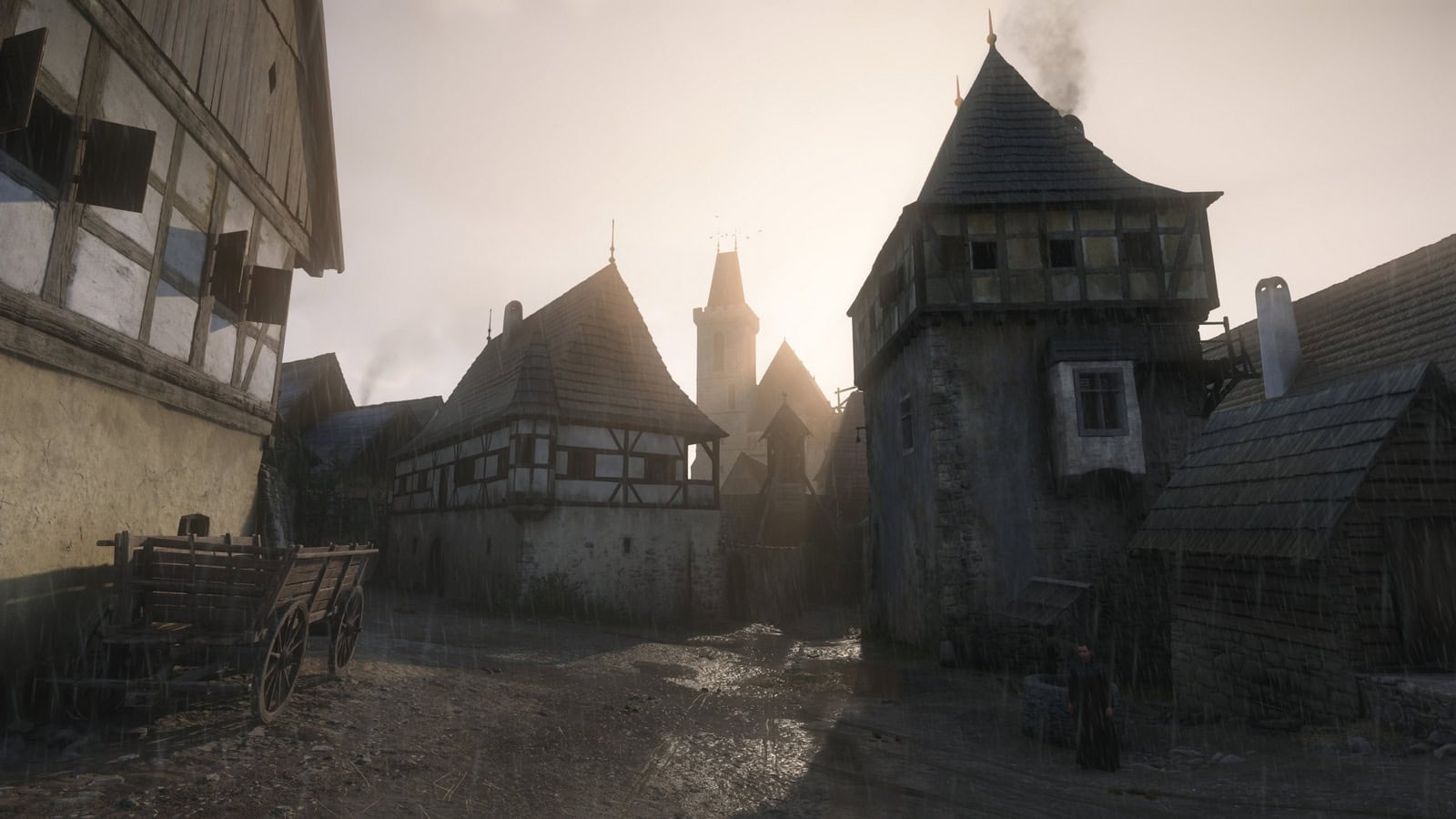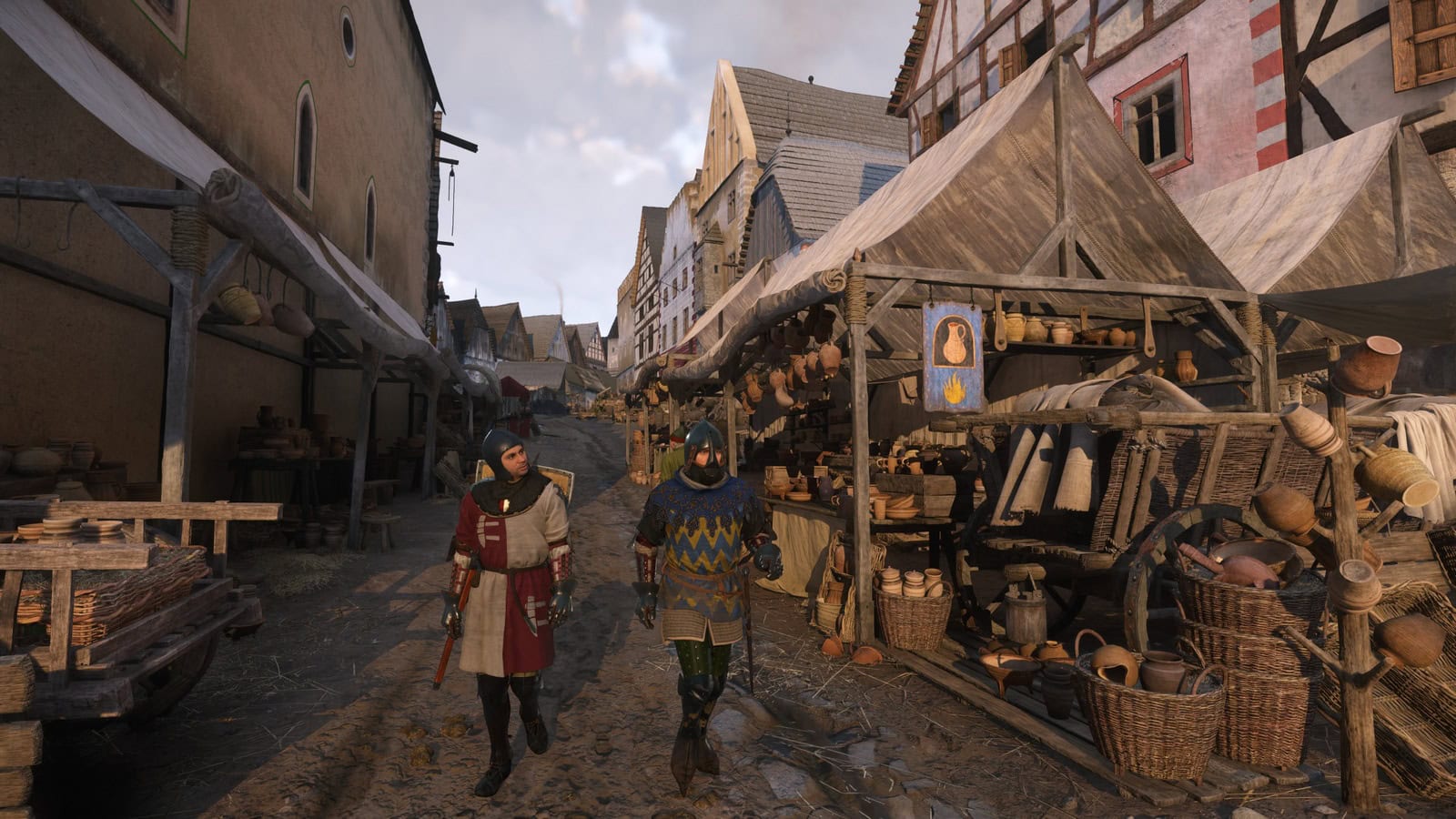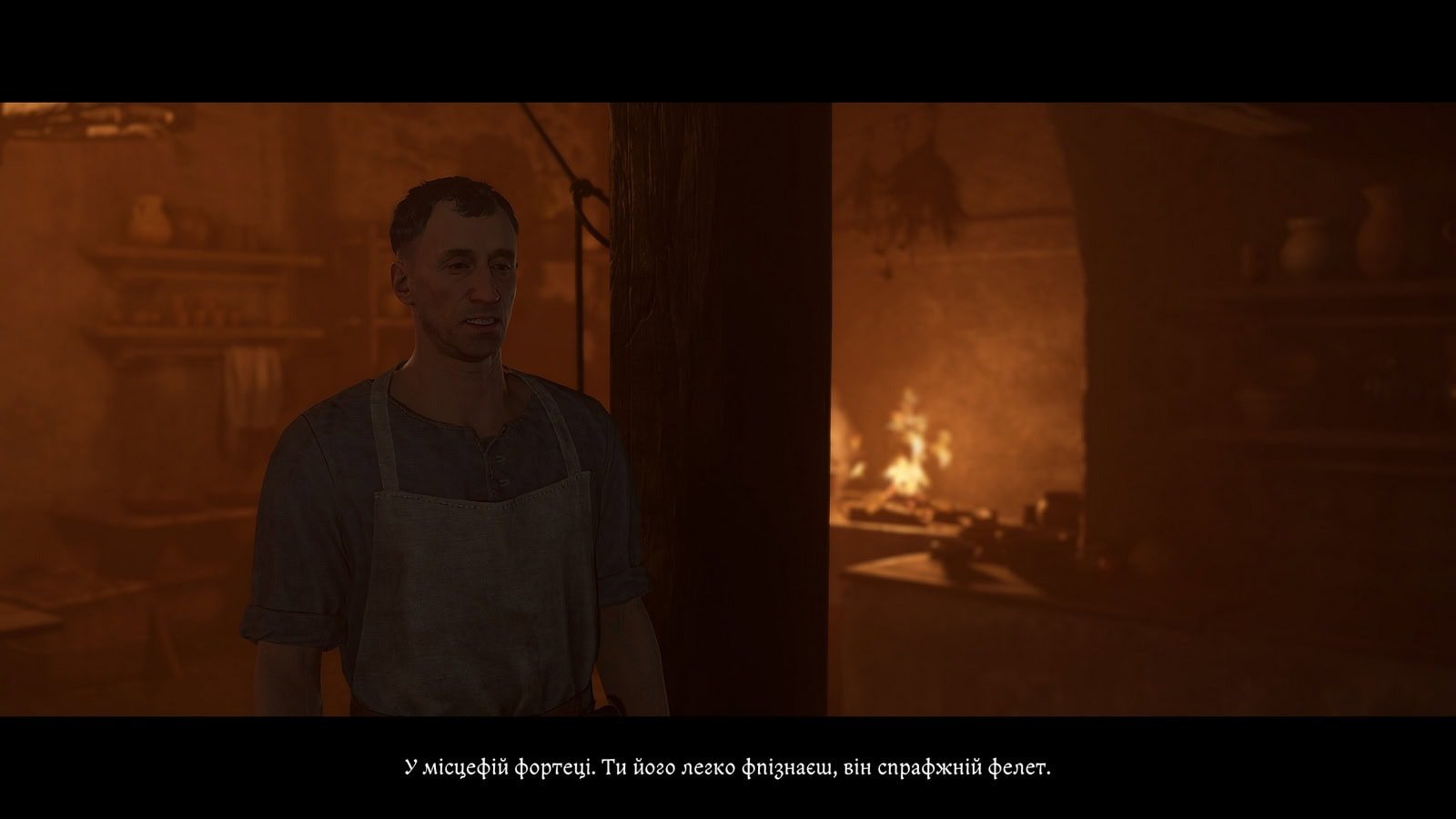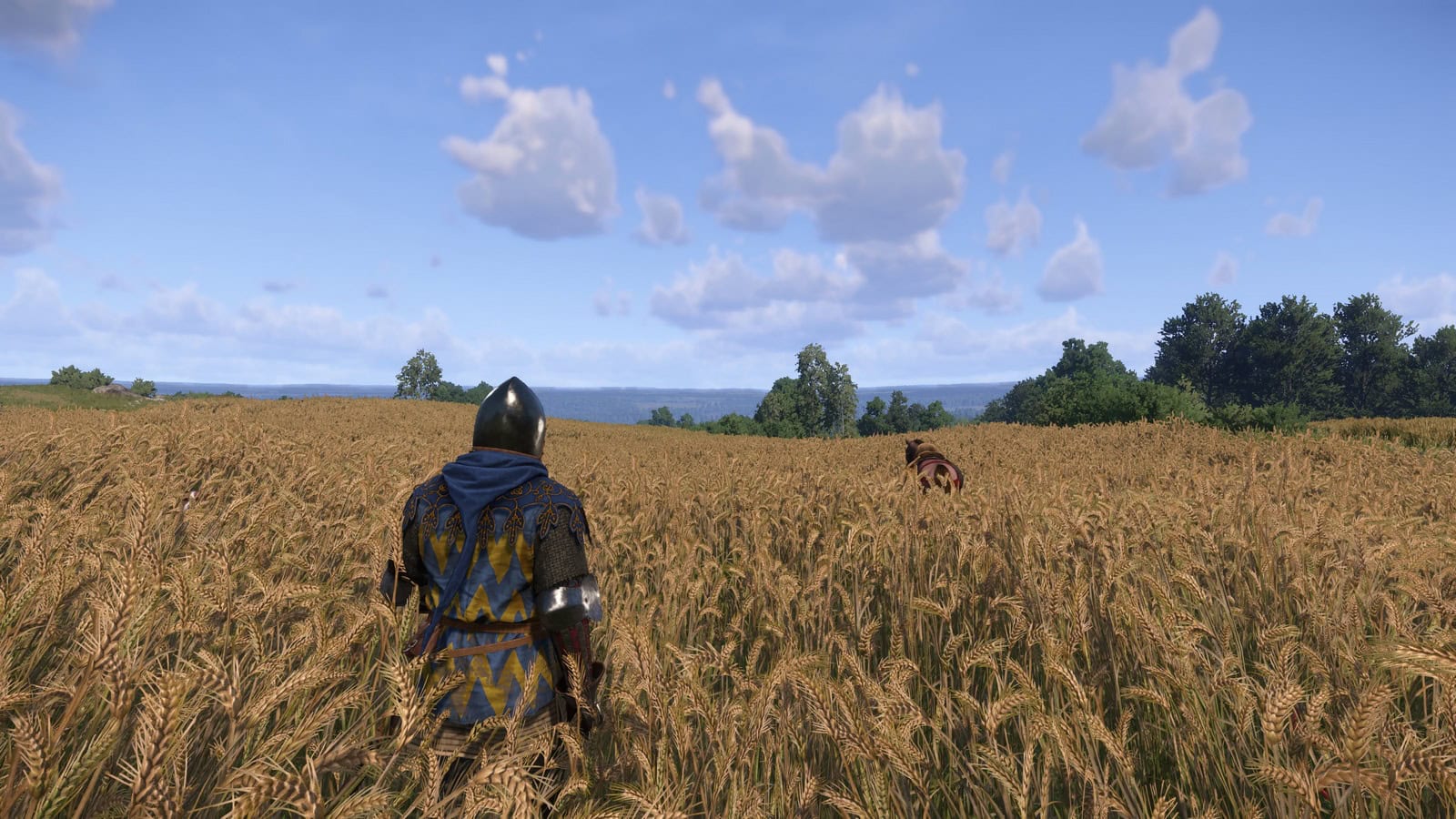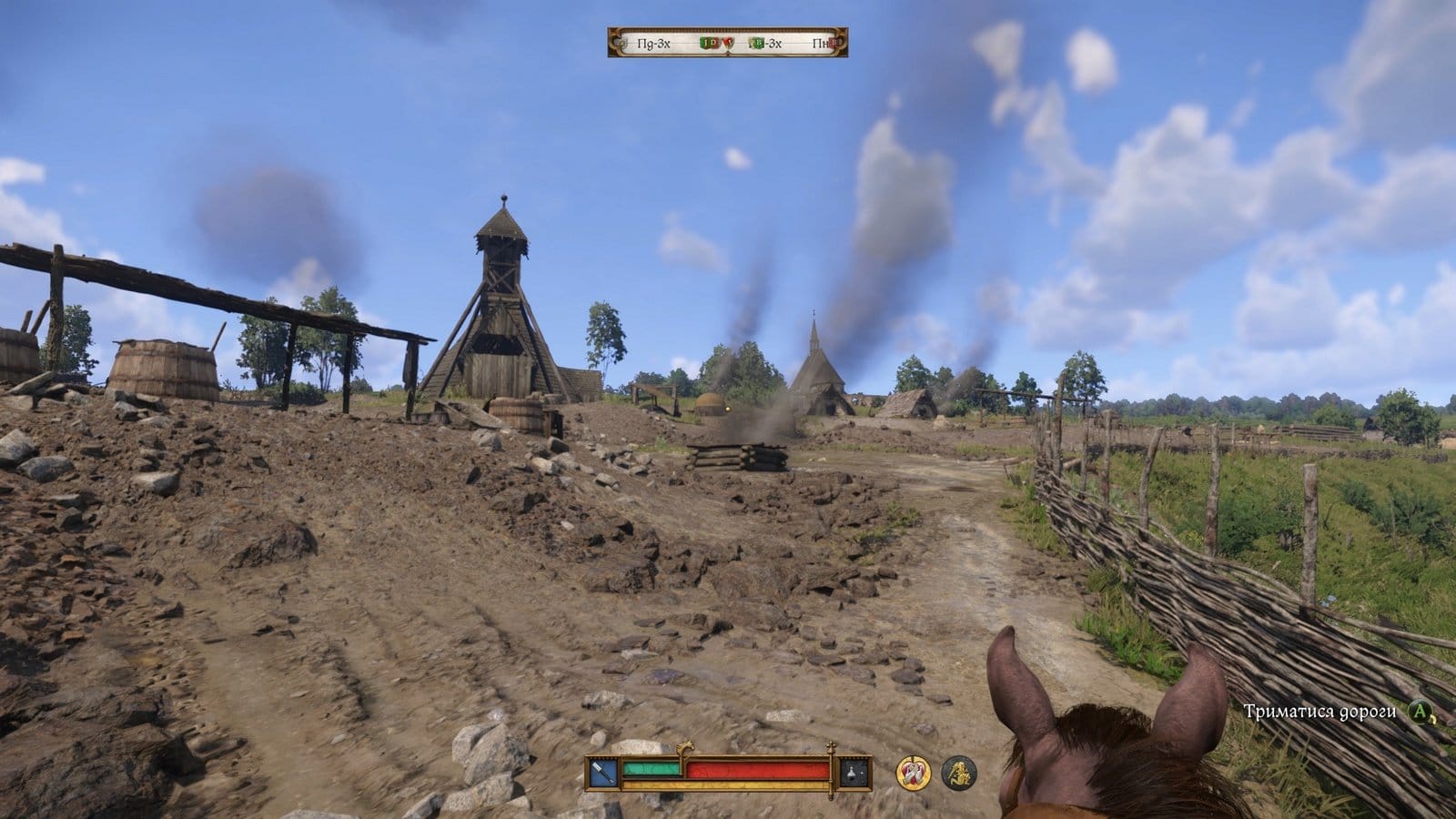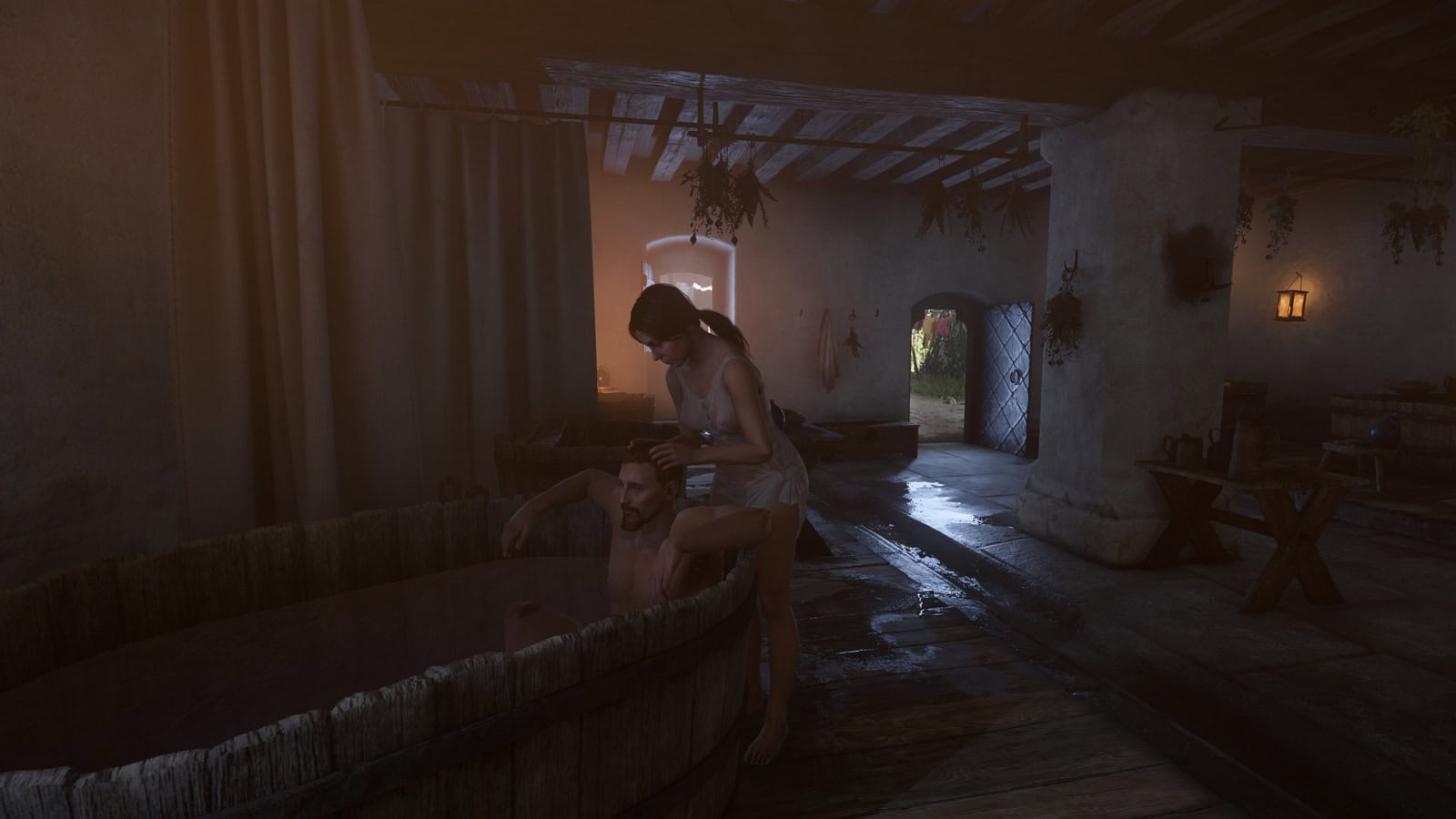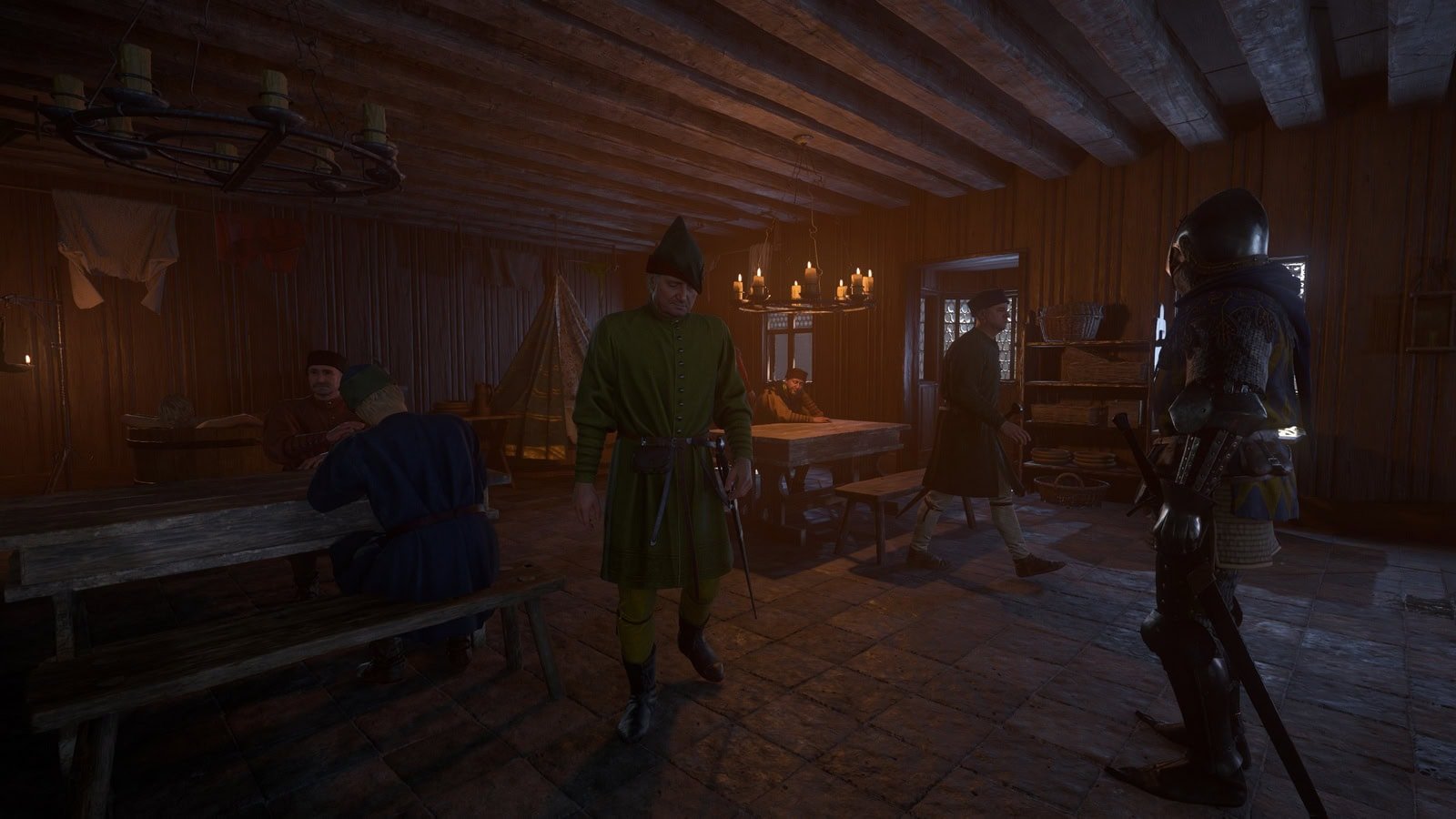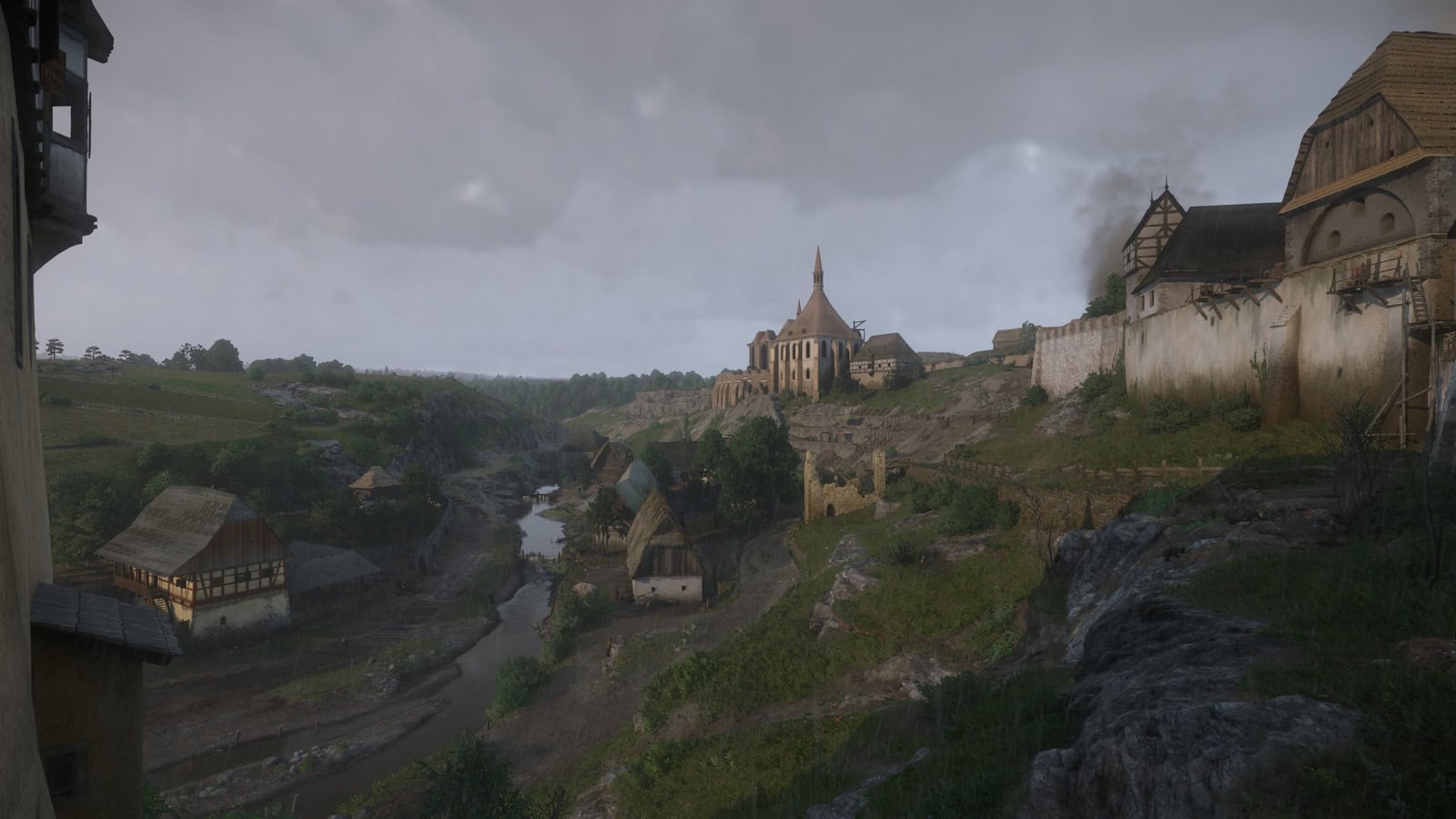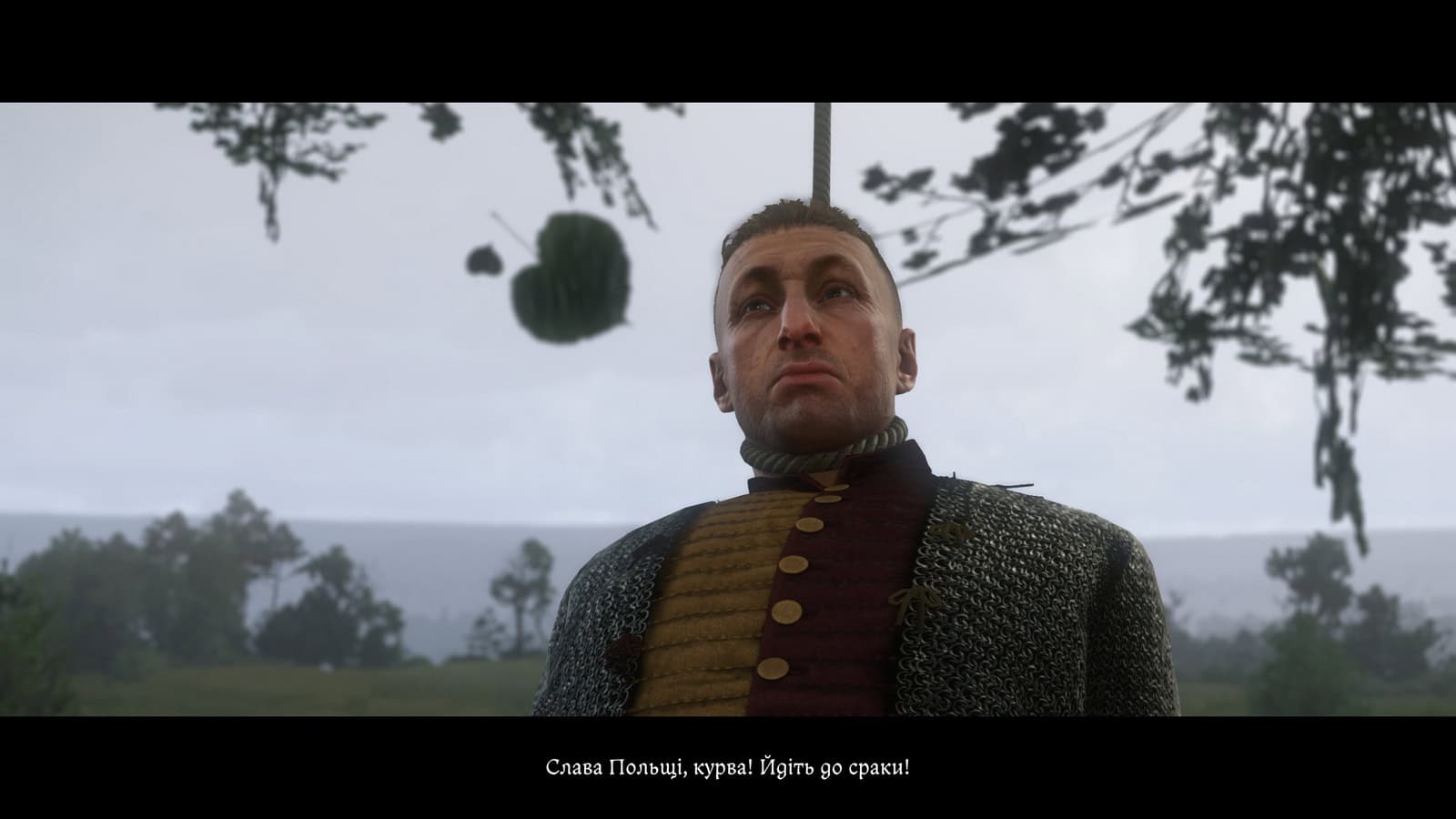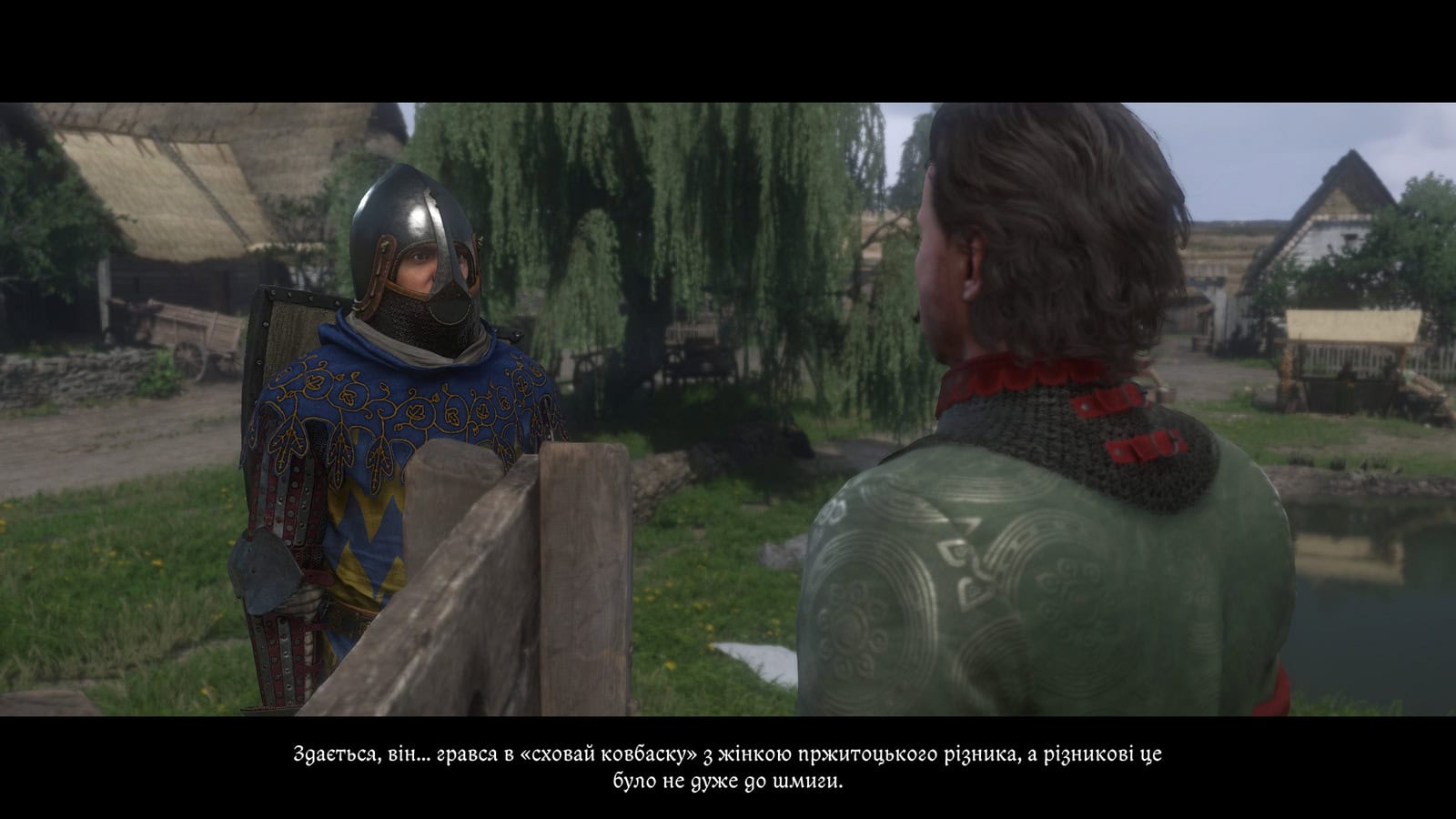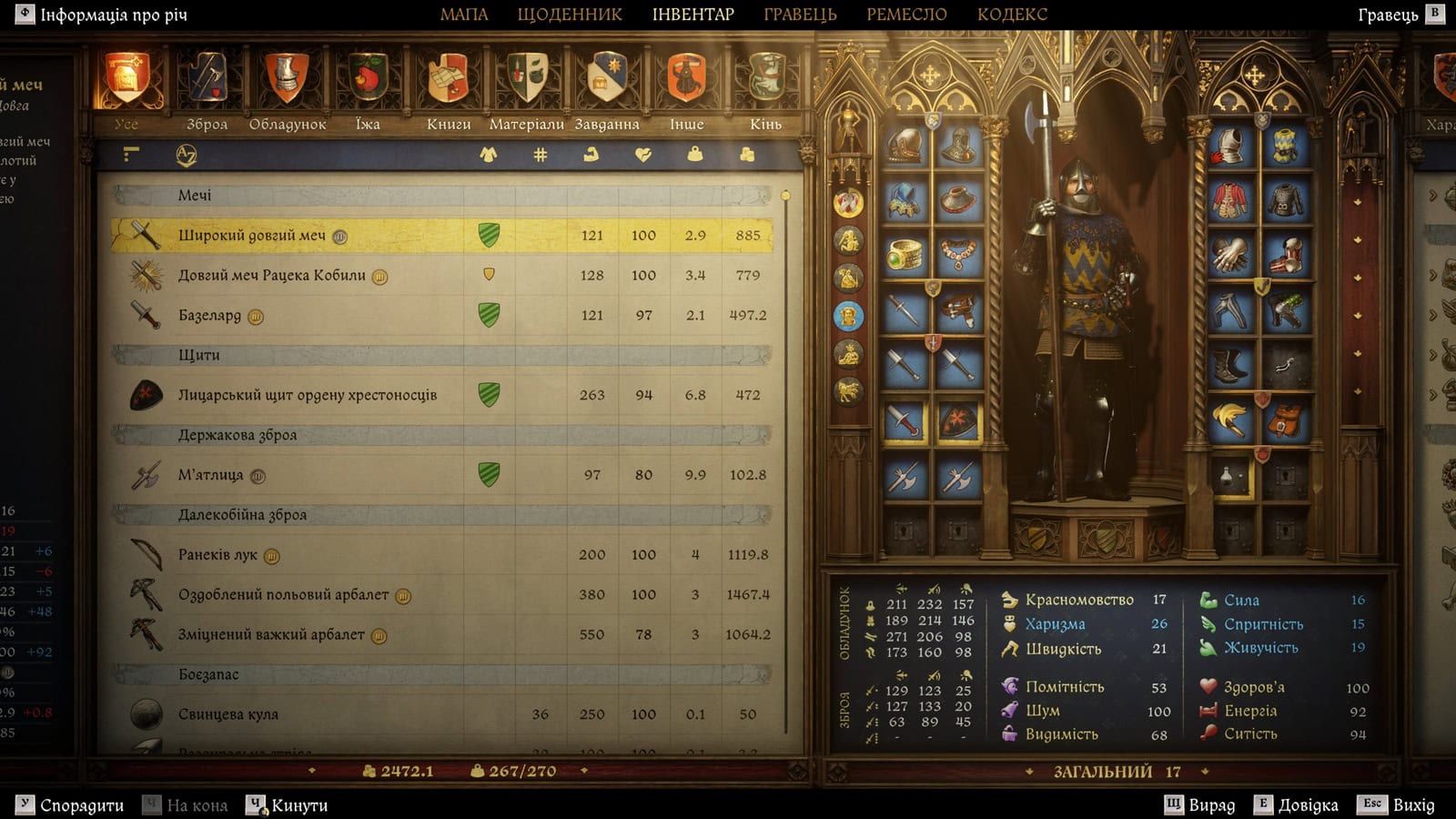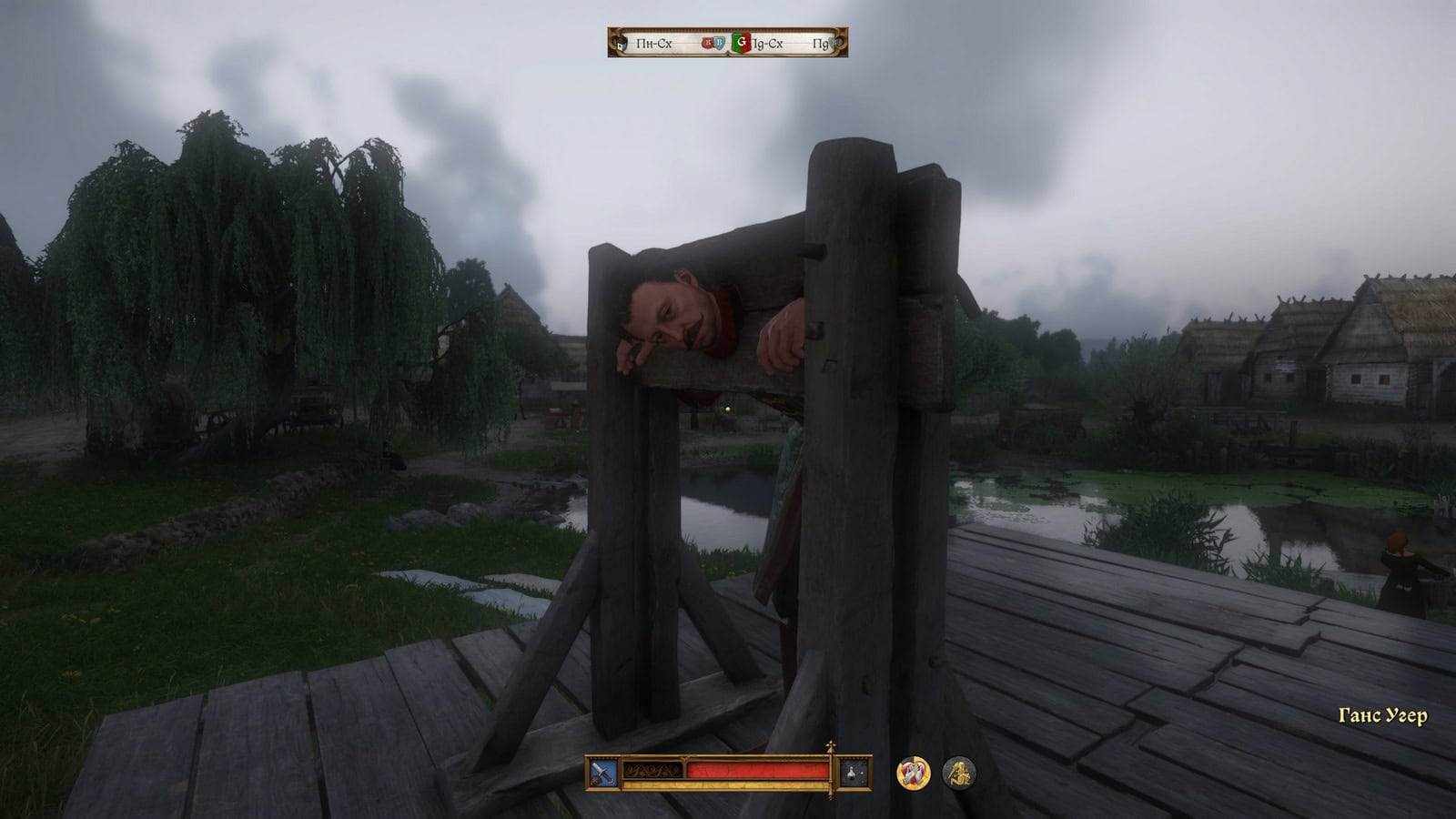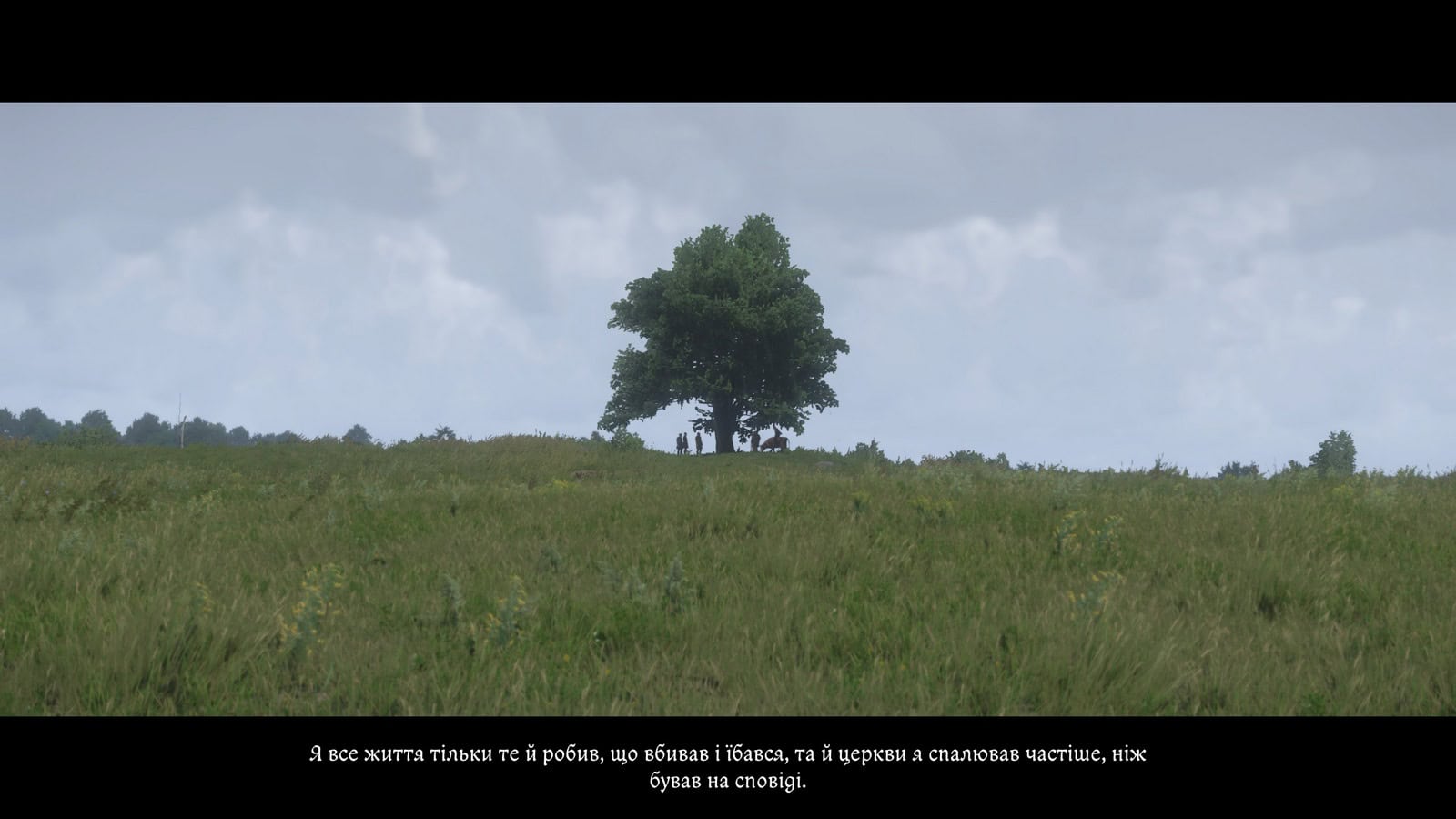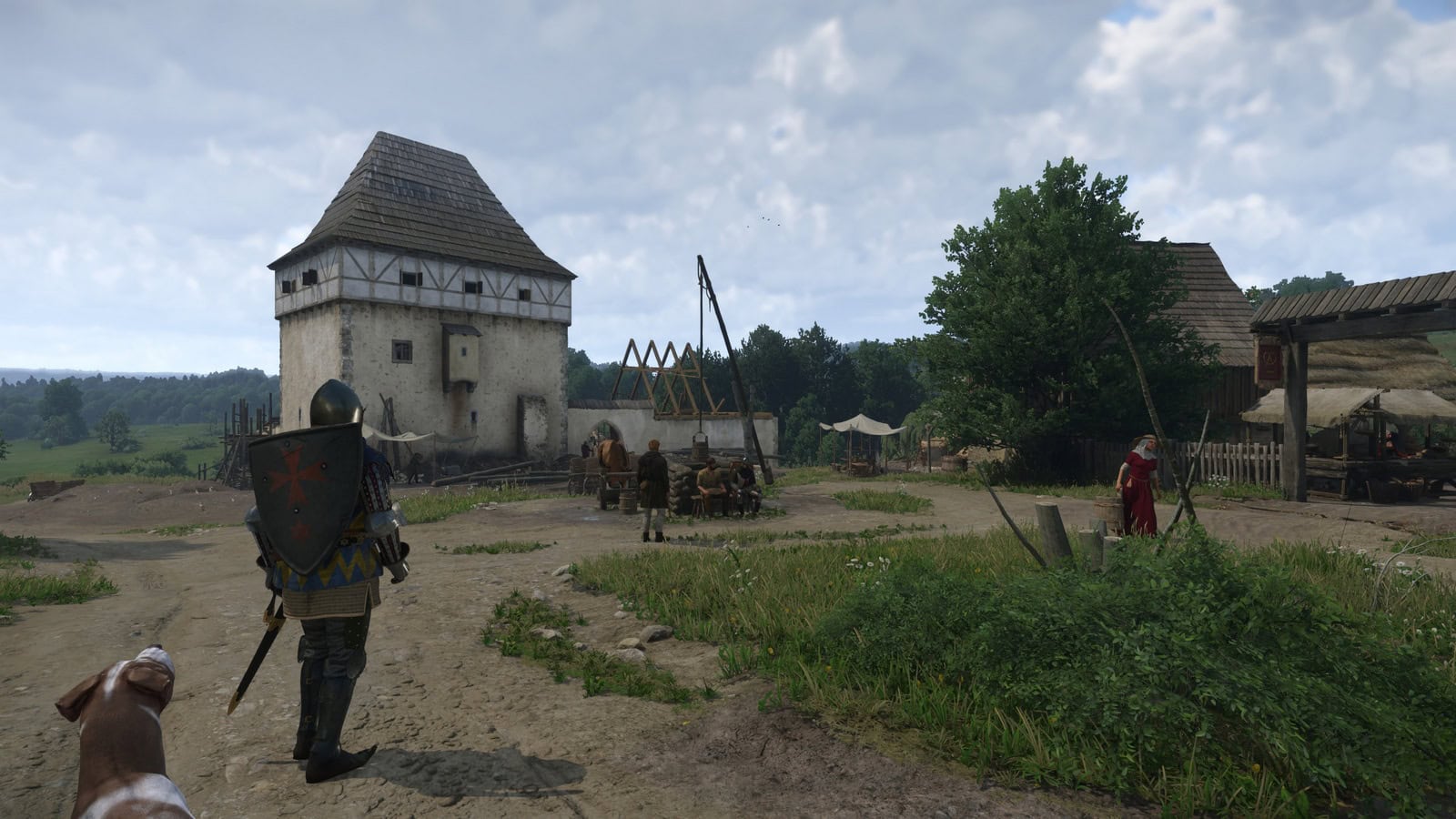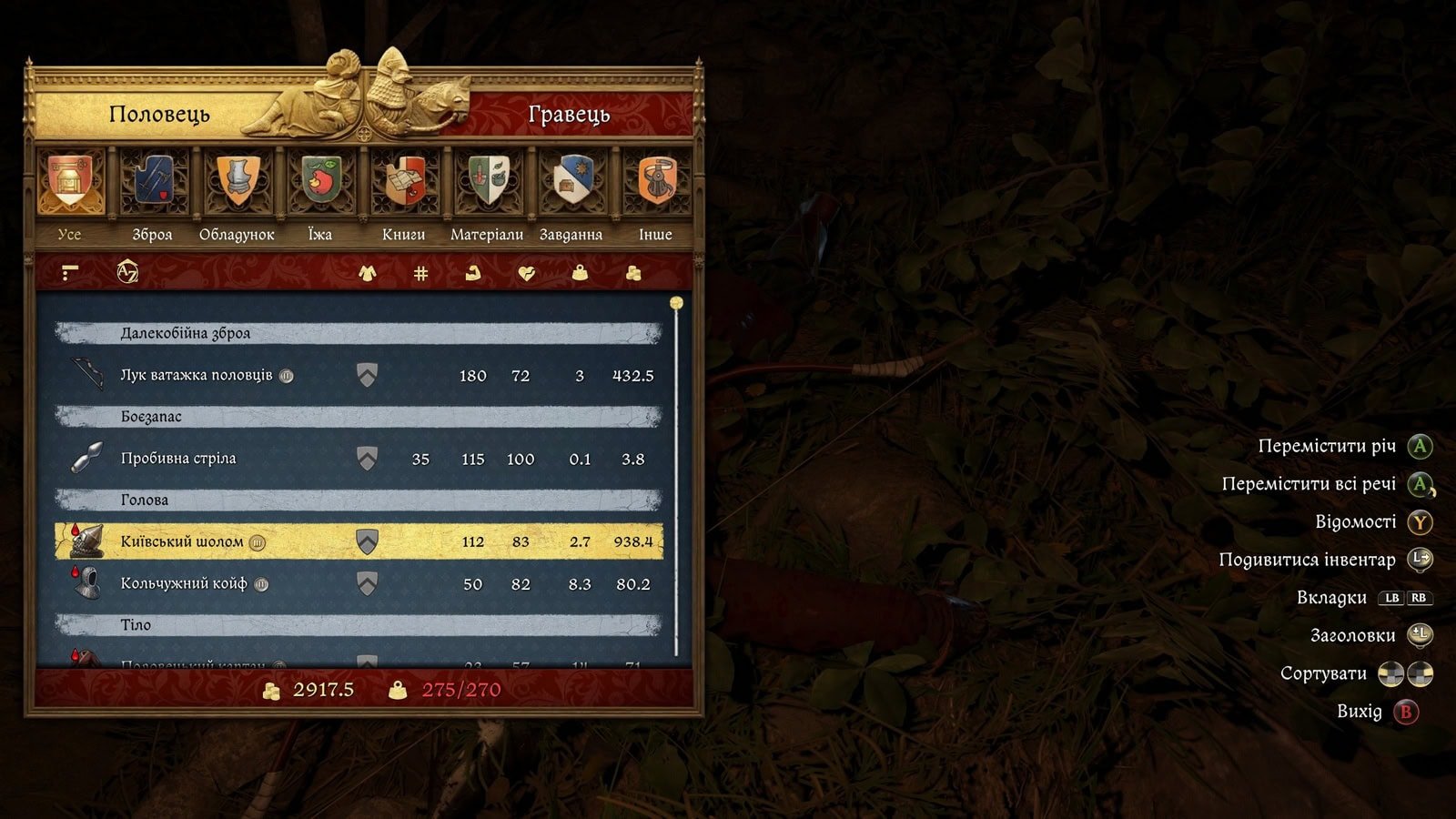The knight and I are sitting in the bushes somewhere near Kutna Hora, planning the rescue of his brother, who has been taken prisoner. On the other side of the bushes, in the ruins of an old castle, a large group of Polovtsians has settled down-some are already going to bed, others are patrolling the camp, illuminating themselves with torches. The knight suggests a frontal attack, relying on the element of surprise, but I don't like this option, fighting an enemy who outnumbers you several times? No, thank you, it's better to slip in unnoticed, free the prisoner, give him a weapon, and then try to deal with the problem together. The ideologue of this raid is convinced without any problems, so Indro takes off his armor, puts on ordinary dark clothes to make less noise, and moves forward. Literally a dozen meters later, one of the Polovtsians raises the alarm and the whole camp comes running to the noise. I did not take into account one small nuance - Mr. Indro stinks of shit.
| Game | Kingdom Come: Deliverance II |
| Genre | role play |
| Platforms | Windows, PlayStation 5, Xbox Series X|S |
| Languages | English, Ukrainian |
| Developer | Warhorse Studios |
| Publisher | Deep Silver |
| Link | kingdomcomerpg.com |
Why? Let's not go into details, let's just say that the guy had his own reasons for taking a good dip in the toilet, but the fact that I didn't visit the bathhouse or at least fix things in the river before agreeing to another adventure is solely my fault. Mr. Knight didn't want to wait until morning, so Jindřich had to go on his mission literally up to his ears in shit, which made sneaking around... problematic, to put it mildly.
Well, let's try to complete this mission naked, I hope I have time to change into my armor before the carnage begins. This time the noise was caused by Ryabok, who decided to bark at the Polovtsians while I was making my way through the bushes. Stupid dog, I should give him a piece of chicken and order him to sit still.
The third attempt is more successful, I manage to hand the prisoner a sword and pull on his armor, but the fool rushed forward, not allowing me to quietly slaughter the guard, and now we are trapped in an old cellar, where Indro cannot swing his long sword properly, and half-naked Polovtsians are knocking his stamina down with a series of kicks. Let's try again, maybe it's not for nothing that the knight recommended I take a halberd, see if it will help scatter this pile of enemies.
The events of Kingdom Come: Deliverance II begins almost immediately after the ending of the previous installment, but given the rather tangible changes in mechanics, a large number of tutorials, and regular flashbacks detailing the key plot twists of the previous game, you won't lose much if you start your acquaintance with the dilogy with this part, because the sequel is practically the same game, only polished and perfected.
The prologue is one huge training mission, in which players have the opportunity to get acquainted not only with the features of the combat system, the specifics of the game mechanics close to realism and the general tone of the game, which skillfully balances on the edge of quality comedy and dark drama, but also with the social realities of the 15th century Czech Republic, in which they will have to spend the next hundred-plus hours.
A striking example is the first test of eloquence, after which Indro is put in his place first by the commander of the armed detachment of the castle guards, and then by Mr. Hanusz, in whose conversation the boy decided to intervene with his incredibly important opinion on the subject of discussion.
In general, Kingdom Come: Deliverance II feels simpler than the first part, but there's a perfectly logical explanation for that. First of all, I already know all the local nuances, food deteriorates over time, so satisfying hunger with the day before yesterday's rotten sausage is not a good idea. Running barefoot or jumping from the second floor is not worth it.
Before you go to bargain with vendors or go to important negotiations, you should at least wash your clothes and wash your face, or even better, go to a bathhouse and put on some lavish clothes, because a smelly tramp in rags with a face in the mud will get the appropriate attitude from others, even if you have the highest reputation with your interlocutor. However, if you put on your best armor, smeared with blood, before the conversation, the result can also be very interesting.
If you're tired, take a nap. Is your armor worn out? Repair it, either by yourself or by a blacksmith. Is your sword dull? Sharpen it. The game simulates the daily life cycle of the local population quite closely, with all the derivatives - if you are told that you have to leave in the morning, it means in the morning, no one will wait for you to finish some other things. If you need to return a quest item, it's not a good idea to break into a character's house at night while they're sleeping. At best, you'll be scolded for invading personal space and kicked out, and at worst, the guards may call the police.
Since you're poor as a church mouse again in the early days of the game, stealing may seem like a good way to build up your start-up capital, but the residents notice that the door they were closing is suddenly open, they hear the sounds of you trying to pick the lock on that attractive chest, and even if they don't catch the theft itself, but saw you hanging around before something went missing, they'll still go to the pawnbroker with complaints.
Plus, you can be stopped by a guard to check for stolen goods, especially if you are dressed like a vagrant, and no one will buy stolen goods anyway (but you can try to hide them in a pile of other things for sale). If you get caught red-handed several times, you won't get off with a fine - you'll be stigmatized, and if you get caught again after that, you'll be hanged.
Moreover, Indro, although he has lost most of his skills due to certain events, is no longer a naive boy who has never seen anything but his village in his life, so certain actions should be much easier for him. The ability to read, for example, will not disappear, and he has acquired some fighting skills in previous adventures.
Speaking of combat. Mindlessly swinging your weapon is still the fastest way to the loading screen, but you need to watch where the enemy is holding his weapon and attack from a different direction. There have been changes here: if Indro used to have five possible directions for attacking plus one more for poking, now their number has been reduced to four, and you can attack from the right, left, top, and directly into the body. Yes, this is an obvious simplification, but it's better, in my opinion.
Fencing is still quite complicated and is built on the right timing, you need to be careful to block a blow or counterattack in time, if you do everything right, you can kill the enemy in a few well-aimed blows, but if you just hit anywhere, then get ready for a long and exhausting fight.
Until you learn a few important lessons in weapon handling and master combos (this is a matter of your reflexes), be sure to have heavy weapons in your arsenal, believe me, disassembling an enemy in heavy armor and with a shield exclusively with basic sword attacks is a pleasure, it's better to break the shield with a mace and then calmly fix the helmet. Well, yes, this will significantly reduce the price of the trophy armor when it is sold later and force you to spend money on repairs, but it's better than downloading previous saves, which the game is rather stingy with.
By the way, learn how to use the alchemy table and brew a potion. In addition to a variety of melee weapons, the game also has long-range weapons such as bows, crossbows, and even rudimentary firearms. The latter, of course, can only be used to try to take down the most armored target at the very beginning of the battle. Well, that's if you're lucky, because there's no sight, and it's not clear where the bullet will go, plus there's a chance that the barrel will explode right in your hands. It takes so long to reload this misfortune that after the first shot you have to take up a sword.
Another pleasant novelty of Kingdom Come: Deliverance II's battle cries are worth noting. With properly distributed talent points, Indro can significantly weaken the enemy by screaming loudly in the heat of battle, sometimes even making random bandits change their minds about solving issues by force.
In general, the combat system is more convenient than before, and this is one of the many improvements that directly affect the "quality of life" in the game. The same food and herbs that deteriorate over time can now be dried or smoked, which will not only significantly extend their shelf life, but also make them lighter, and this is important because the problem of overloading has not gone away, you always need a lot of money, so the guy carries all the expensive loot he can get his hands on. I would also like to mention the ability to quickly switch between three wardrobes, which is incredibly convenient and saves a lot of time because, as we have already mentioned, you need to have radically different sets of clothes for fights, trading, and... more delicate and not so legal activities.
The role-playing system of Kingdom Come: Deliverance II's role-playing system hasn't changed much from the previous installment either, although I really like that perks now only improve the character and have no negative aspects. To summarize it briefly, the more you do something, the more the corresponding skills are pumped. By raising their level, you get points that you can spend on the already mentioned perks, which actually have a significant impact on the gameplay. Actually, you can also increase your skill level passively - by reading books, talking to characters on certain topics, or, if you have the appropriate perk, by watching the master work.
Choosing answers in dialogues periodically requires a check of a certain character trait, just like in the previous part, but the difference now is that you don't see the corresponding indicators of the other party to the conversation, and this is a huge plus in terms of role-playing, since before it was quite easy to choose the "winning" option, now you have to rely on intuition, at least until you become more eloquent and get a perk that will show the relative difficulty of the check.
The plot of Kingdom Come: Deliverance II is a separate story. What started out as a classic road movie with obligatory bromance gradually turns into a kind of Guy Ritchie in the Middle Ages, with betrayals, intrigues, stunning adventures and a huge amount of bright humor.
I won't recount my favorite situations that Indro finds himself in, but I haven't laughed so much while playing for a long time. And I'm not just talking about the story quests here, most of the side quests are also full of jokes, dramatic episodes, and unexpected twists and turns. Although not all of them, sometimes you just need to get from point A to point B and kill everyone there. By the way, it's not a given that you'll be able to get to point B in one piece, because the number of robbers in medieval Bohemia is off the charts, so I went on the most important missions without the help of fast movement, increasing the chance of seeing an ambush in advance and avoiding it.
The good thing is that the scenery in the game is incredible - the grass is in flux, the trees are making noise, a stream is gurgling somewhere, birds are singing, rain is starting to fall, which turns into a thunderstorm, it's beautiful. Kingdom Come: Deliverance II feels like a little vacation after work, a very meditative experience, I'm not sure how many hours I spent just driving around the outskirts of the two regions in the game, but it was definitely a lot.
It is impossible not to mention Kutna Gora, which feels like a real medieval city due to the scale and simulation of the life of the townspeople. These are not the standard two or three streets for role-playing games with conveniently located shops and merchants who sit by their pants for days on end.
If you have time, you can follow anyone - here's a character waking up, getting dressed, having breakfast, maybe doing some household chores, and then going to work, to trade at the market, for example. In the late afternoon, he or she will go to the nearest tavern to spend some of the money he or she has earned, the tavern keeper or local waitresses will walk among the customers, perhaps sit down to have a few words, and as night falls, they will start to drive everyone home and the company of revelers will stagger home.
By the way, before going to bed, the character will change clothes and put valuables in a specific chest. I'm just saying. Anything goes, right? But there is one thing - I have no idea how you can pick locks in this game with a gamepad. Having spent more than 90 hours in it, I still keep a mouse and keyboard handy in case I need to open something. However, working with lockpicks is the only serious complaint about the game mechanics, otherwise I have no complaints.
I can't complain about the technical condition of Kingdom Come: Deliverance II. The optimization is good, in fact, the game runs better on my system than the first part, I have 60 FPS on a regular RTX 4080 in 2K on ultra settings without DLSS, which is nowadays perceived as some kind of exception to the rule.
The game also performed well on Steam Deck, at medium settings with FSR enabled you can get from 30 to 40 frames per second, at low settings even more, and the difference with the average settings on the console screen is almost imperceptible. Although Steam Deck did freeze once, when I came to the Kuttenberg market at night and started the time skip before lunch, the busiest time of the day, the console could not instantly load all that many people and events.
If the first part was famous for the fact that scripts occasionally crashed (the other day I started it again and you won't believe it, the second quest NPC got stuck in the door and didn't respond to attempts to talk to him), then in Kingdom Come: Deliverance II I encountered this only once, in the second half of the game, during an attack on a convoy. My henchmen simply stopped shooting, the only melee fighter was quickly knocked out, and then the entire enemy gang was gobbling up Indro. It took me a good hour to complete this episode, despite the fact that one attempt took at most 5 minutes, and I still don't understand what I finally did right to make the game work.
The other bugs I saw were pretty standard and didn't block the passage - someone in the inn can sit down in midair, during a medical examination a character can take a T-pose and Indro will look at and diagnose a mattress with a smart look. It's nothing, especially since this is the pre-release version of the game.
Kingdom Come: Deliverance II doesn't reinvent the formula that made its predecessor popular, as we said, it's a direct sequel to the first part that feels and plays like the first part. And that's great. Warhorse Studios took what worked last time, fixed what didn't work well, and gave us a huge, complex, and exciting role-playing game in which everything depends on your personal skills as much as on the numbers on the screen with character characteristics.


